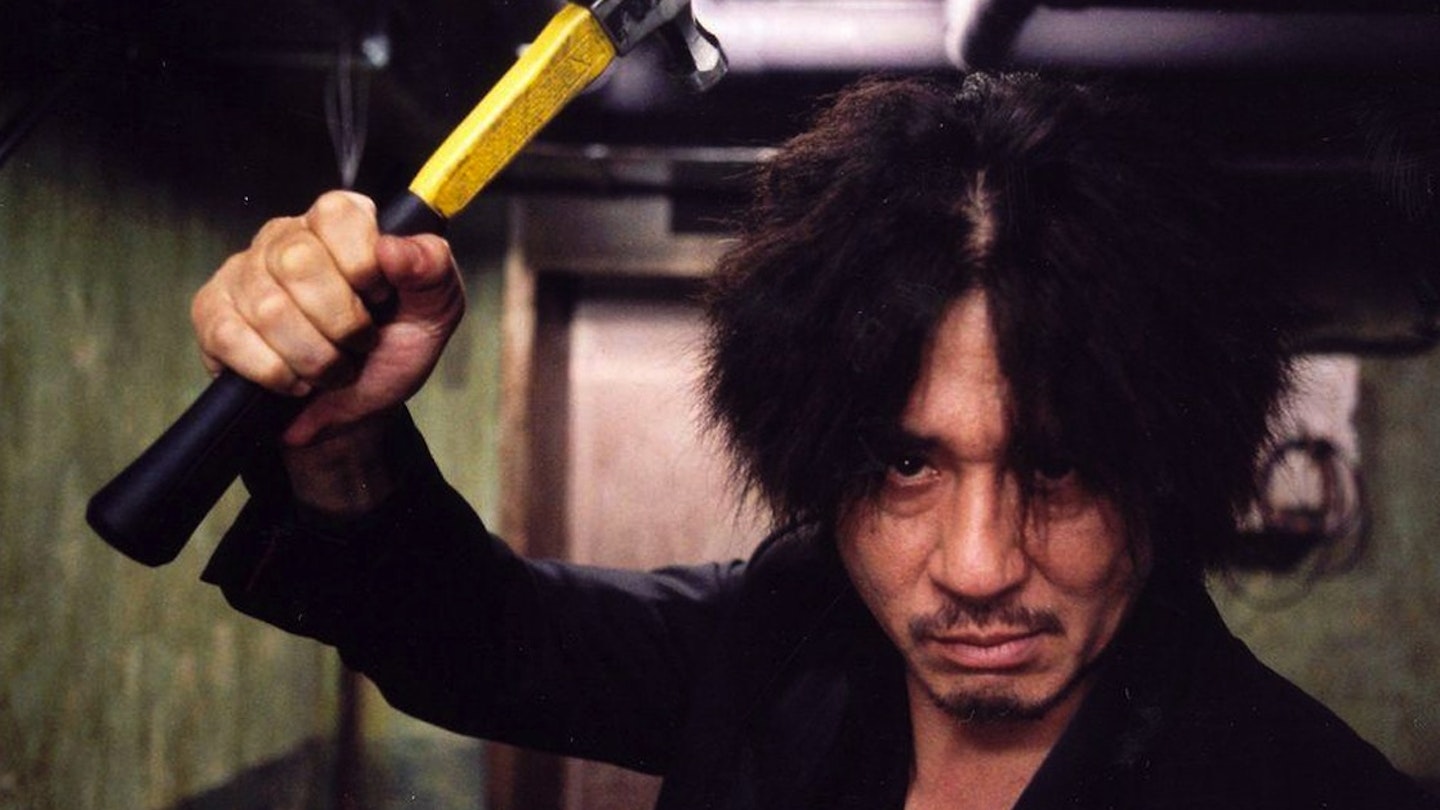From Brazil to Japan to France and Senegal, from Neo-Realism to Dogme to J-horror, we've compiled a list of the very best films not in the English language (note: features, not documentaries). So rustle up some sushi, strike up a gauloise and make sure you've locked your bicycle as we count down the top 100 world cinema movies...
100. Night Watch
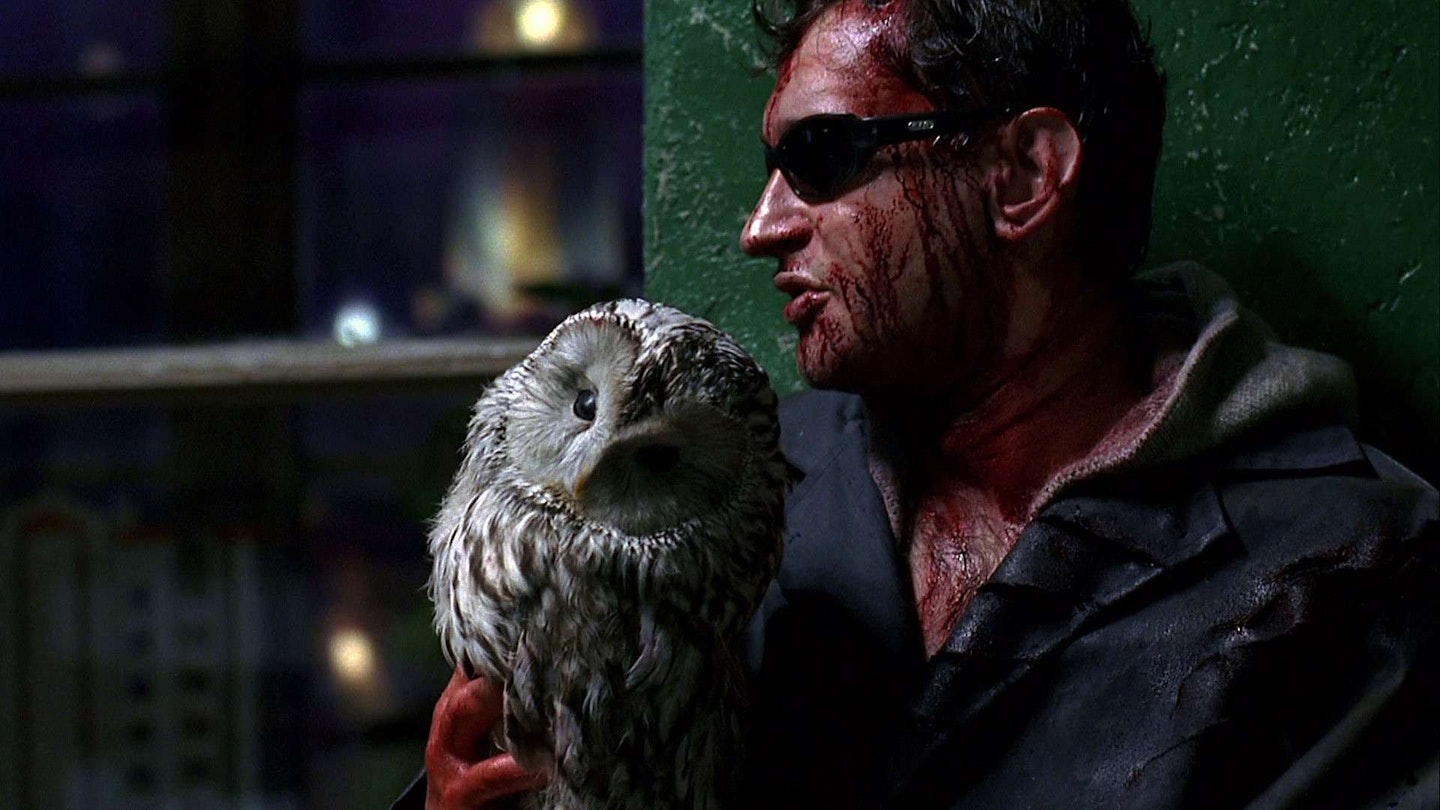
Year: 2004
Country: Russia
Director: Timur Bekmambetov
It's Buffy meets The Matrix meets Blade! In Moscow! Russian madman / genius Timur Bekmambetov arrived on our screens with a bang thanks to this demented, dizzily dark twist on the action movie. It seems that the world is still peopled with witches, werewolves, vampires and the rest - but they are divided into Light and Dark Others, battling it out for supremacy, and the souls of new, emerging Others, on the streets of Russia's capital. Extraordinary visuals on a shoestring budget, bravura subtitle design (it matters) and a plot that just makes sense (unlike its "Chalk of Destiny" powered sequel), this is the most visually imaginative superhero movie of the last decade.
Hollywood remake? Back in 2004 when Fox signed Bekmambetov to a three-picture deal, the plan was that they'd make Twilight Watch, a prequel to Night Watch and Day Watch, and remake the other two in English if that did well. So far, however, there's zero movement on that score and Bekmambetov is busy elsewhere.
Prizes A Russian Golden Eagle for Best Sound. Look, it made lots of money at the Russian box office. You can't expect successful films to win prizes.
What to say... "Do you think Christopher Nolan took his inspiration for the Dark Knight truck flip (around 1.40) from this (around 1.46)?"
What not to say... "I just love Rembrant, don't you?"
99. Iron Monkey
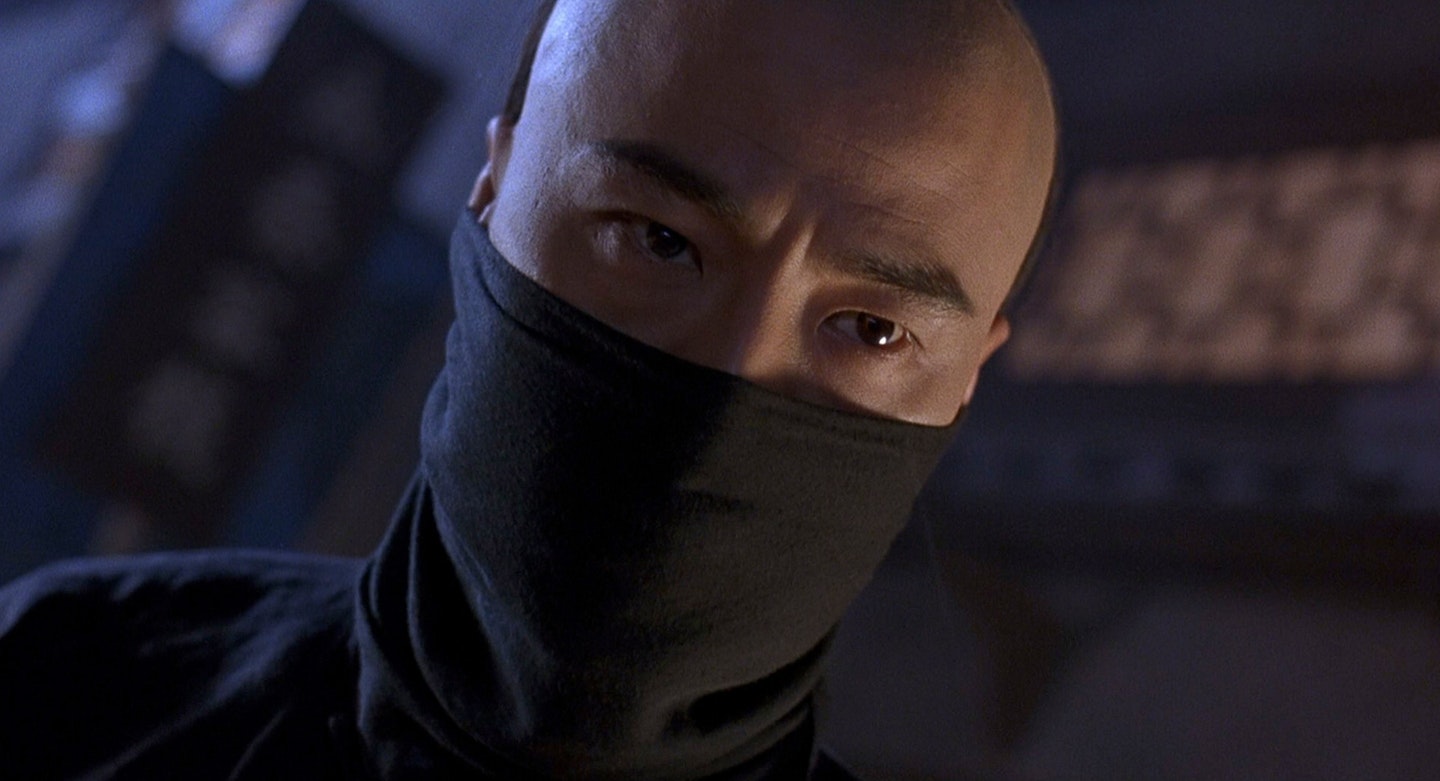
Year: 1993
Country: China
Director: Yuen Woo-ping
It's the Robin Hood story transferred to the Ch'ing Dynasty, helmed by Yuen Woo-ping, the martial arts director that would go onto create such western fighting spectaculars such as Kill Bill and The Matrix Trilogy. Iron Monkey is an action romp starring the then fresh-faced Donnie Yen, so chock-a-block full of breathtaking fighting sequences that you barely have time to place the popcorn in your mouth. If it's the nuanced acting seen in Crouching Tiger you're looking for, you've come to the wrong place, but set pieces such as the knife fight, and the final balancing-on-top-of-giant-sticks rooftop battle are stone cold classics of the genre. And, it's fair enough to say, this has yet to be beaten in terms of fight skill and direction.
Hollywood remake? No remake as such, though when Quentin Tarantino campaigned to have it released in the US, notable Westernisation occurred around the mention of the Chinese folk character Wong Fei-hung that Yen plays.
Prizes Two minor nominations, but nothing in the actual cabinet.
What to say... "The alterations made for its US release ruin the fine work that Woo-ping created - spend the extra money and get the original version on DVD with subtitles."
What not to say... "So is there a robot monkey or what?"
98. Ran
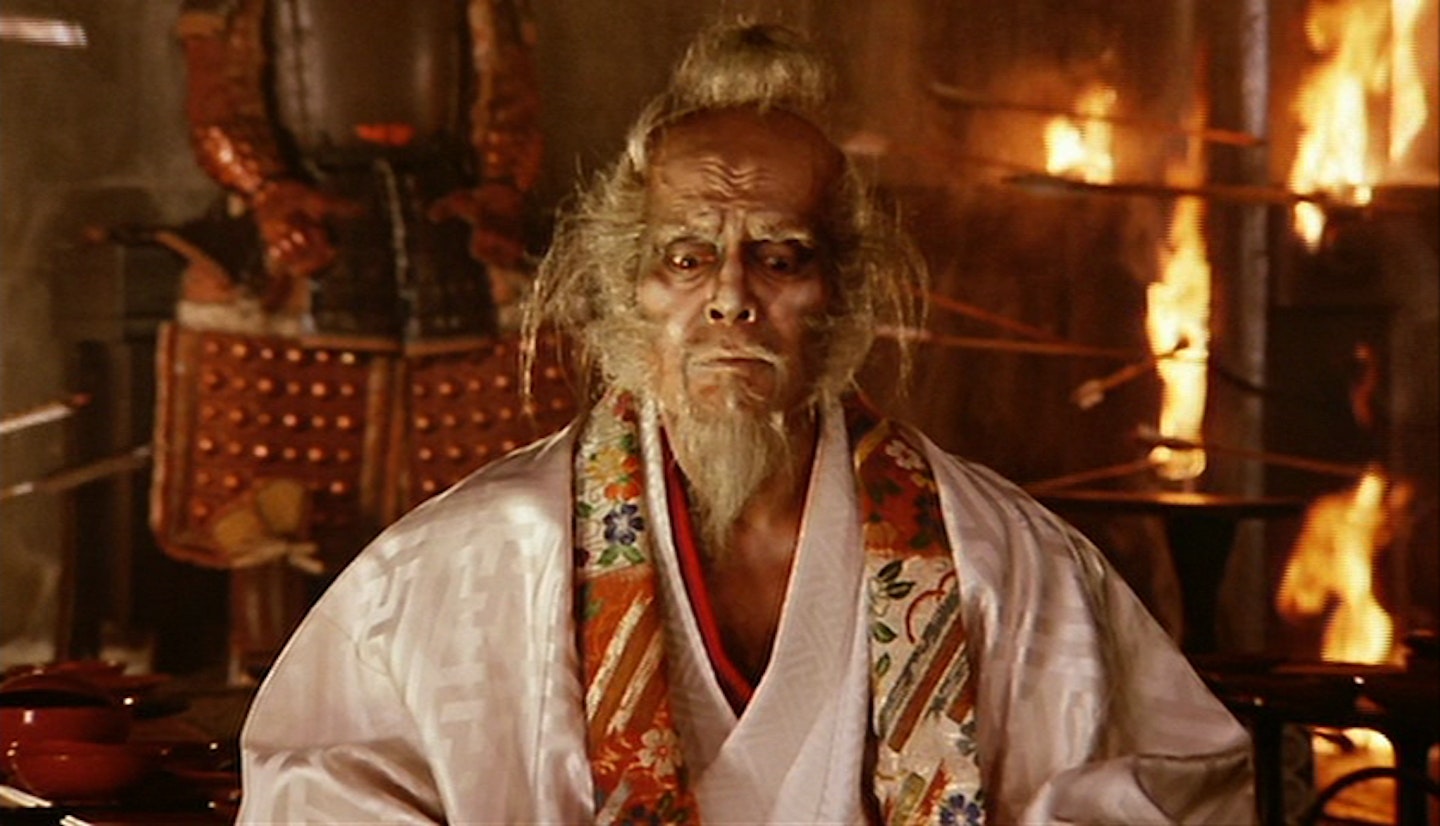
Year: 1985
Country: Japan
Director: Akira Kurosawa
Akira Kurosawa was almost blind when he directed his biggest movie, in 1989, and yet it's possibly his most beautiful. A sumptuous and powerful epic inspired by, but not directly based on, King Lear, it tells the story of a powerful warlord whose three sons, bad eggs all, contribute to his downfall. Moving, and packed with images that sear themselves onto the brain, it's an astonishing work from an old master.
Hollywood remake? Not yet. Well, not specifically. It is King Lear, after all, and after a fashion, and we're never shy of one of those.
Prizes It won an Oscar for Best Costume Design, while Kurosawa was nominated for Best Director, the only time the Academy deigned to decorate one of the greatest directors of all time.
What to say... "If Shakespeare could have directed a movie, it would have looked like Ran."
What not to say... "I heard Kurosawa based it on the Snow Patrol song."
97. Farewell My Concubine
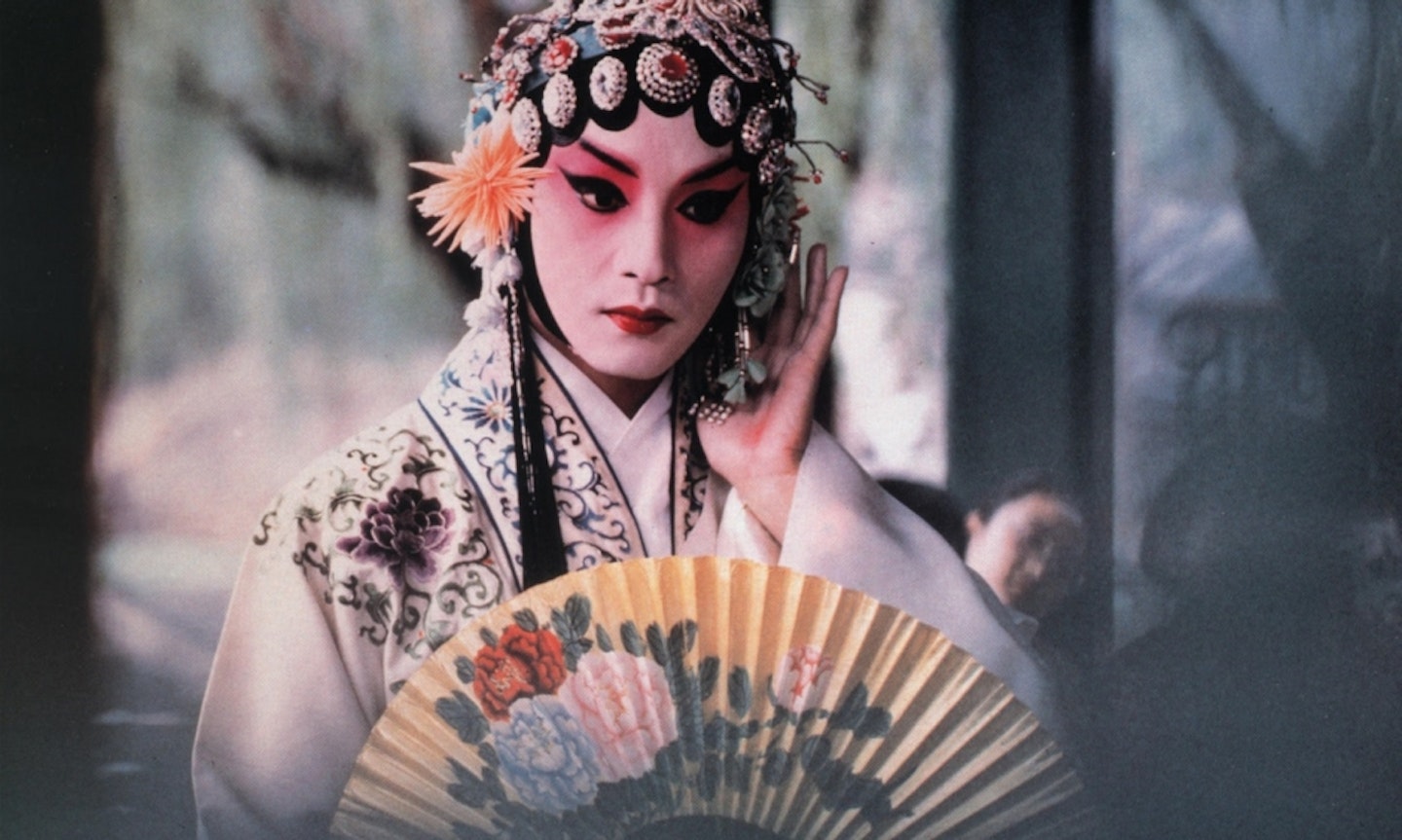
Year: 1993
Country: China
Director Chen Kaige
To fit the span of a character's entire life is no mean achievement; to do so for two (arguably three) characters and take in a swathe of tumultuous Chinese history while you're about it - taking in the Second Sino-Japanese War and Cultural Revolution for kicks - is just showing off. But Kaige's story of two childhood friends who become stars of the Beijing Opera but are torn apart by politics and unrequited love manages to make the personal its focus even against a huge backdrop, helped in huge measure by compassionate performances from Zhang Fengyi, Gong Li and the late, great Leslie Cheung. Operatic but never melodramatic, this shows a more sensitive side to Chinese cinema than we're used to.
Hollywood remake? Never gonna happen.
Prizes Farewell won the Palme d'Or and FIPRESCI prize at Cannes, a BAFTA, the National Board of Review and the Golden Globe for Best Foreign Film. It had to settle for mere nominations at the Oscars and Cesars(France's Oscars), however.
What to say... "There is in fact no such thing as art for art's sake, art that stands above classes, art that is detached from or independent of politics. (Mao Tse Tung)
What not to say... "So long, ho!"
96. Delicatessen
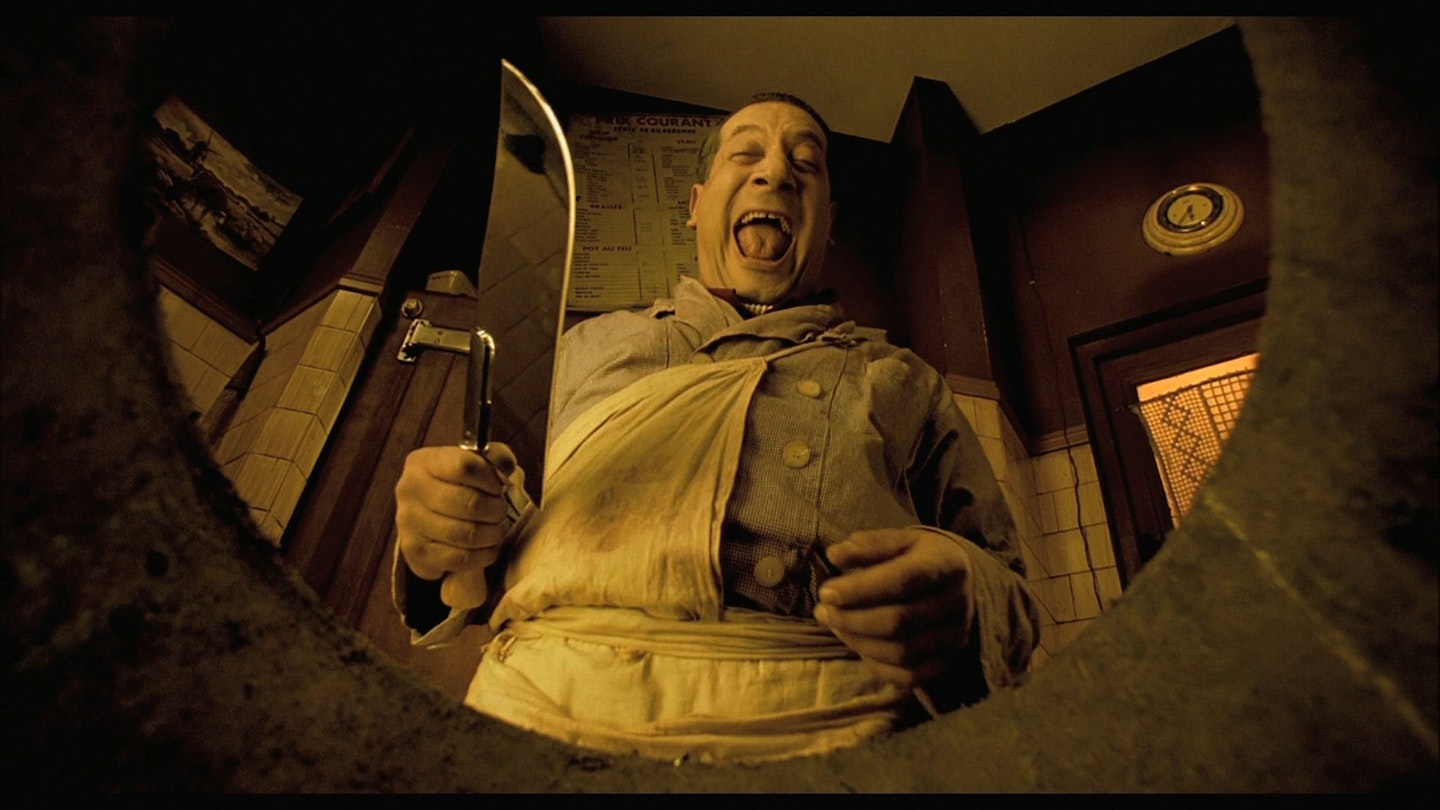
Year: 1991
Country: France
Director: Jean-Pierre Jeunet, Marc Caro
The central character is grieving the death of his monkey (not a euphemism). The bad guy is a butcher who carves up his assistants to provide meat for his building's tenants. The heroine enlists the help of radical, violent vegetarians to bring the villain down. And it's all played out against the backdrop of a post-apocalyptic Paris where all the traditional concerns (gourmet food, music, adultery) remain at the forefront of people's minds while the planet goes to hell around them. Witty, strange and quite brilliant, this is a unique view on what remains when the world ends.
Hollywood remake? Not unless you count The Hills Have Eyes or Hannibal.
Prizes It was nominated for a BAFTA and won four Cesars.
What to say... "As post-apocalyptic cannibalism movies go, this is probably the most charming one you'll ever see. "
What not to say... "I'll have six long-pig sausages and half a pound of that nice-looking mince."
95. Way of the Dragon
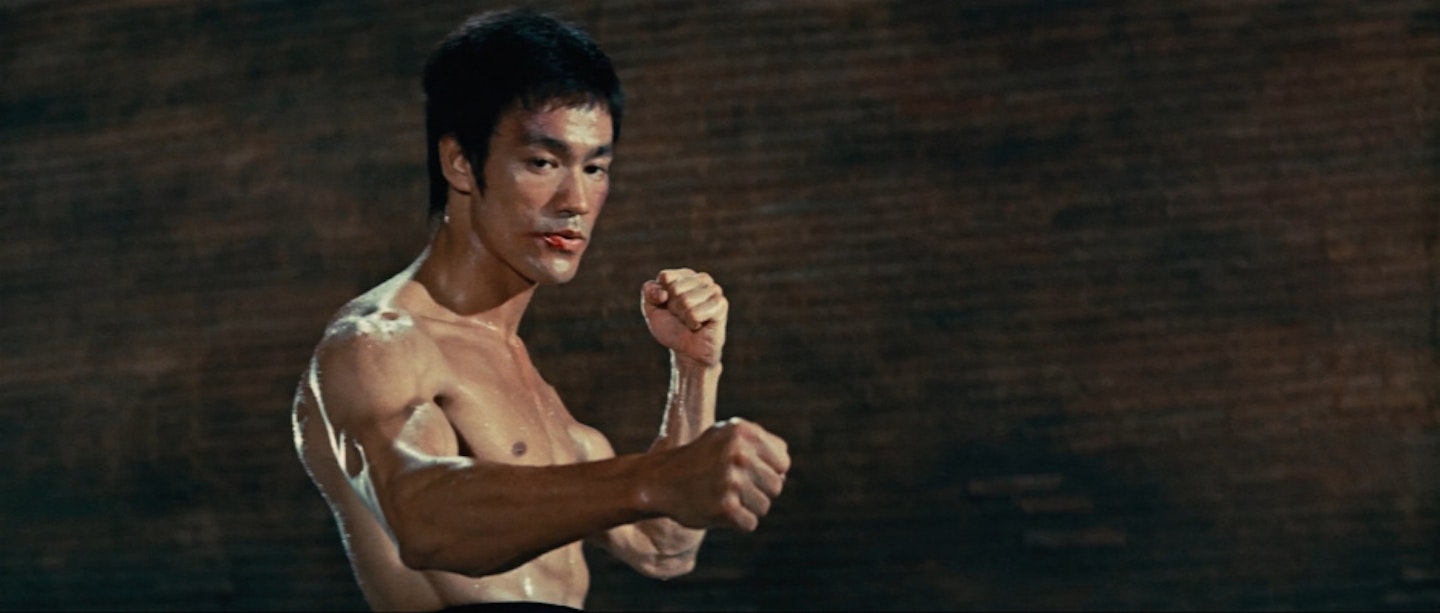
Year: 1972
Country: Hong Kong
Director: Bruce Lee
Arguably his greatest film, it's undoubtedly the skill, charm and work ethic of Bruce Lee that steamrollered this martial arts movie into the classic it has become. It's tempting to confuse how great a martial artist Lee is with how good his films actually were, but in this case, the individual set pieces that dominate the film (notably the Chuck Norris gladiatorial fight at the end) are so well choreographed and so well delivered, that nothing else matters much. In a world now where every every fight and every punch is so full of trickery and post-production, the sheer purity of Lee's work here makes it one of the best of its kind ever made.
Hollywood remake? It's on its way, in the form of a Stephen Chow project (Shaolin Soccer, Kung-Fu Hustle). The worrying news is that it's rumoured to include cast members such as, er, Jack Black and Anne Hathaway.
Prizes Underappreciated critically at the time of release, it only won a Hong Kong award (The Golden Horse) for Best Editing.
What to say... "Chuck Norris was specifically told to put on muscle weight to look more impressive when standing next to the lithe and wirey Lee, you know."
What not to say... "What do you mean Chuck Norris loses the Colosseum fight!? Chuck never loses! Chuck is GOD!"
94. Yeelen
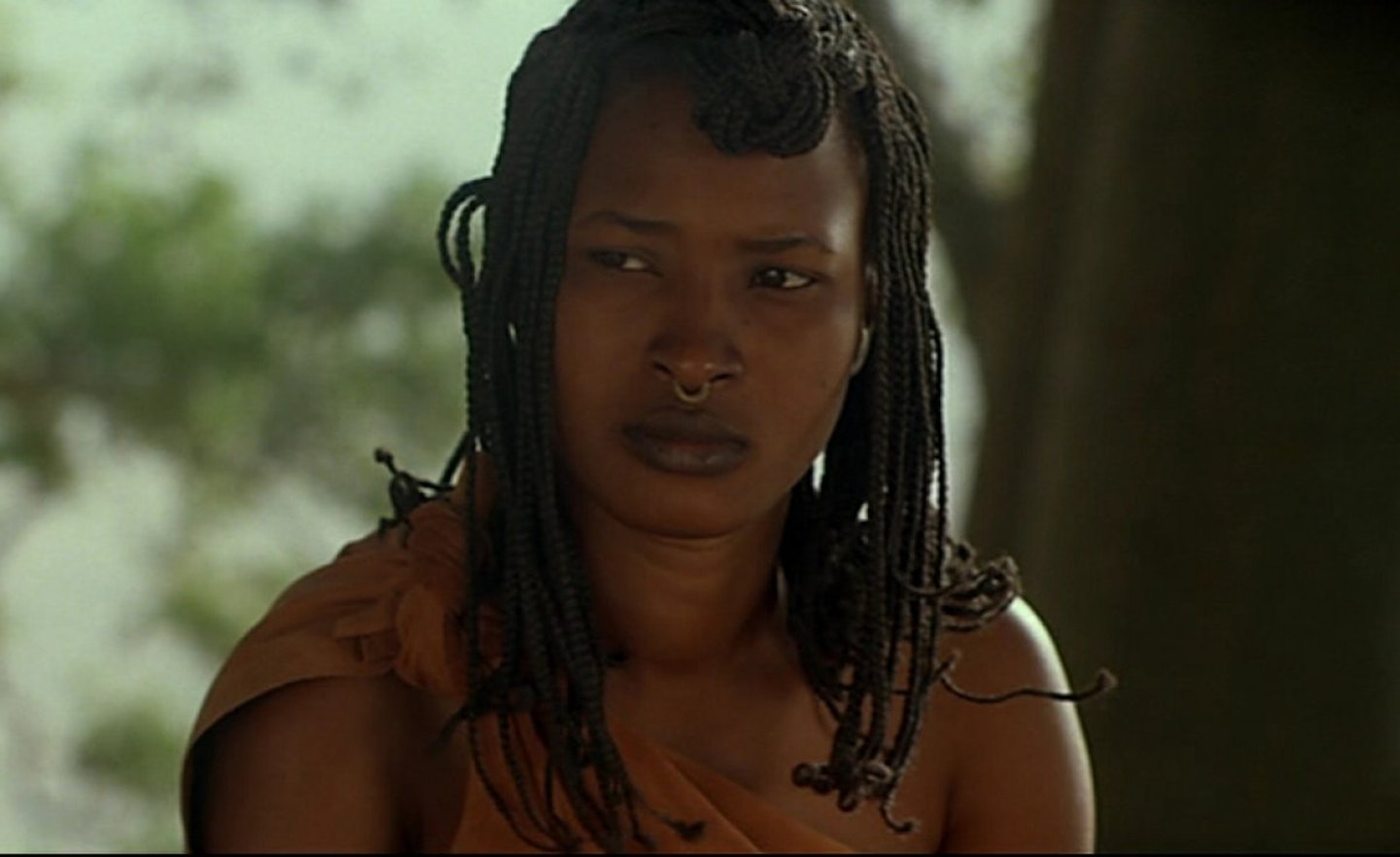
Year: 1987
Country: Mali
Director: Souleymane Cisse
FACT! African films move at a funereal pace to mirror the rhythms of African life. FACT! It doesn't matter if they are all as good as Yeelen. A strange beautiful film, Yeelen weaves together elements of African folklore to tell the tale of a boy who, fleeing his jealous Shaman father, goes on a journey to reach his uncle, helping strangers on the way, all the while gaining knowledge to face his father (it's a bit like Star Wars, this). Yet what really grabs the attention is Cisse's skill with the breadth of landscapes and the simplicity of the human face. Its symbolism might not translate, but it is hypnotically ravishing.
Hollywood remake? No.
Prizes None.
What to say... "Yeelen means brightness, don'tcha know."
What not to say... "The working title for this was Mali And Me."
93. The Fourth Man
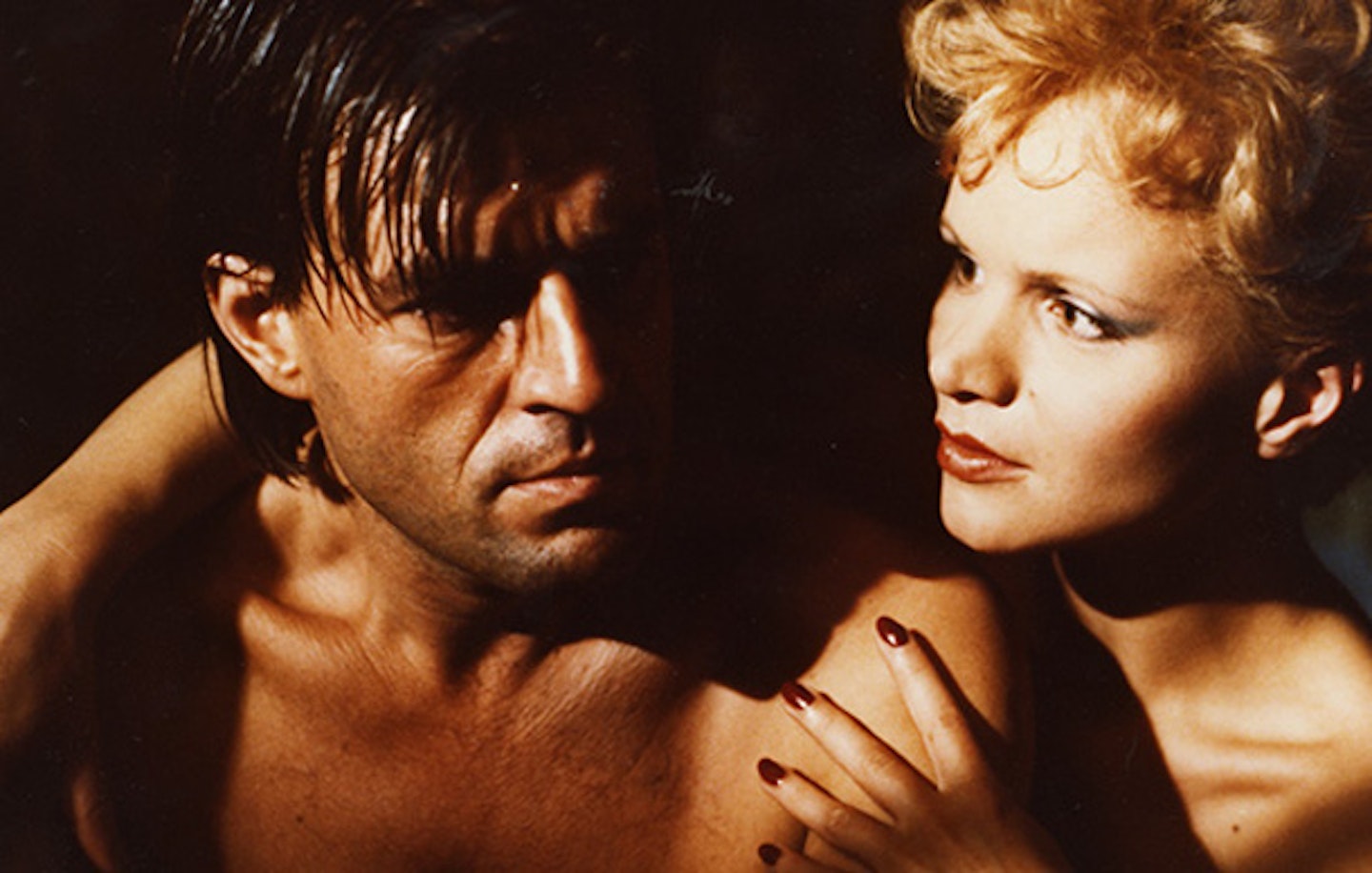
Year: 1983
Country: Holland
Director Paul Verhoeven
Perhaps not as controlled as Soldier Of Orange, Spetters and Black Book amongst non-Hollywood Paul Verhoeven flicks, this is the Dutch master channelling Hitchcock if Hitch had given in to every one of his warped impulses and is therefore unmissable. Jeroen Krabbe is the bisexual writer who falls into the orbit of hairdresser/femme fatale Renee Soutendjik, who may or may not have killed her previous three husbands. Cue rampant symbolism, castration images, kinky sex and dead seagulls - welcome to Verhoevenland.
Hollywood remake? Verhoeven has said this is a spiritual prequel to Basic Instinct.
Prizes Far too pervy for prizes.
What to say... "This is the only film in history where Jesus wears speedos. Oh except for The Last Temptation Of Christ The Swimwear Cut."
What not to say... "Is Orson Welles in it?"
92. Ghost in the Shell
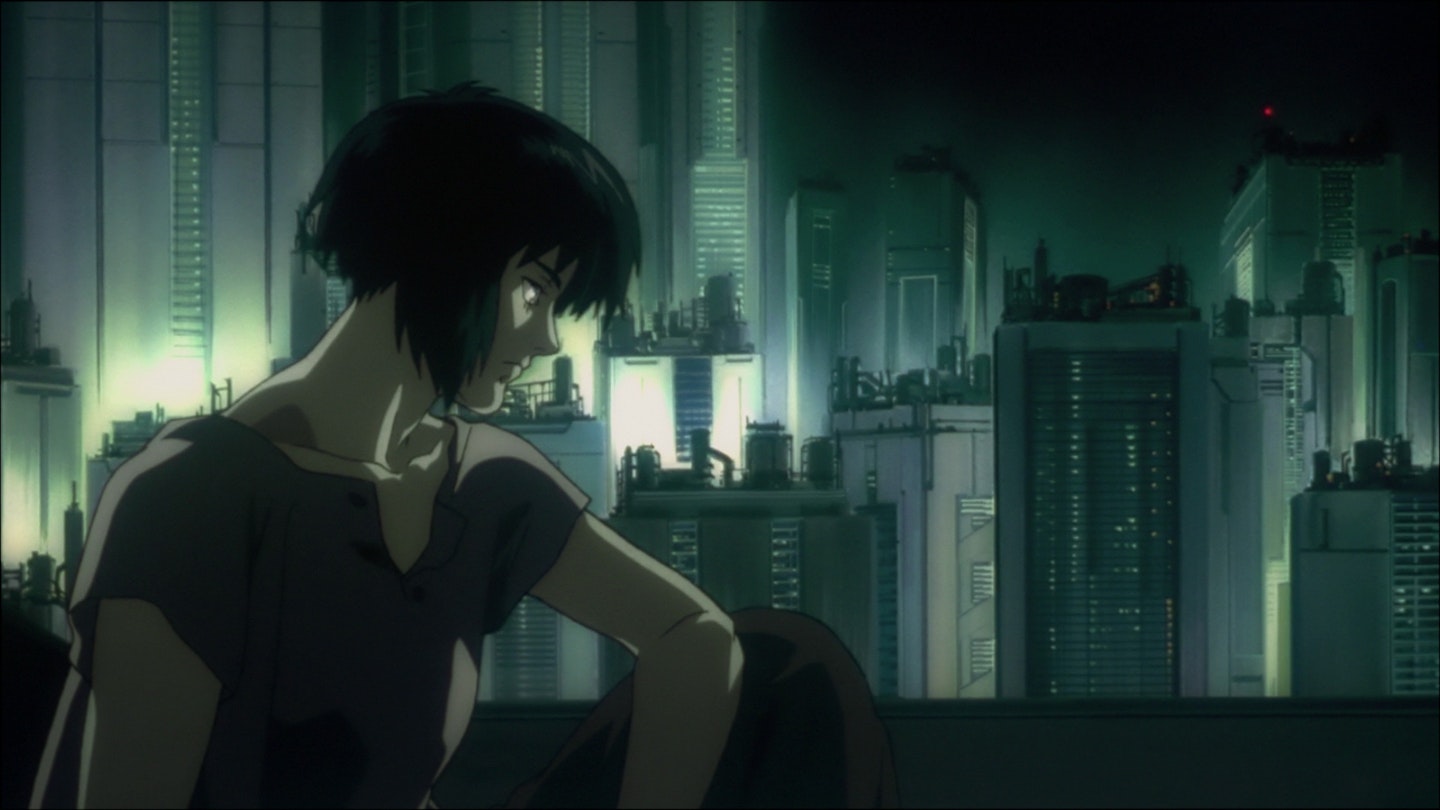
Year: 1995
Country: Japan
Director Mamoru Oshii
The fact that both the Wachowski brothers and James Cameron are huge fans of the film should come as no surprise - it's set in a futuristic cyperpunk world where everyone is connected to a mainframe, and a cyborg by the name of Motoko Kusanagi must hunt down 'The Puppet Master' who's hacking into people's memories. Matrix, much? The film itself remains so popular because it picks up where Akira left off - delivering a grown-up, engaging, fascinating version of a future that challenges the viewer whilst wowing them with stunning animation and eye-candy visuals. Car chases, shoot-outs and existential philosophy are exquisitely mixed together to make a film that intrigues and excites, time and again.
Hollywood remake? Not a Hollywood one (unless you could The Matrix [Lawyer's note: No, we don't]), but a Japanese one, called Ghost in the Shell 2.0, in 2009, which rerecorded the voice acting, gave it new animation and music, but kept the original script and storyboard.
Prizes Best Director of Animation for a Theatrical Feature Film at the World Animation Celebration and a special mention at the Gerardmer Film Festival.
What to say... "You'll notice that Motoko's eyes remain unblinking for long sections of the film, a trick Oshii used to make her seem more 'doll-like'."
What not to say... "No, it's heroes in a half-shell. Turtle power!"
91. Goodbye Lenin
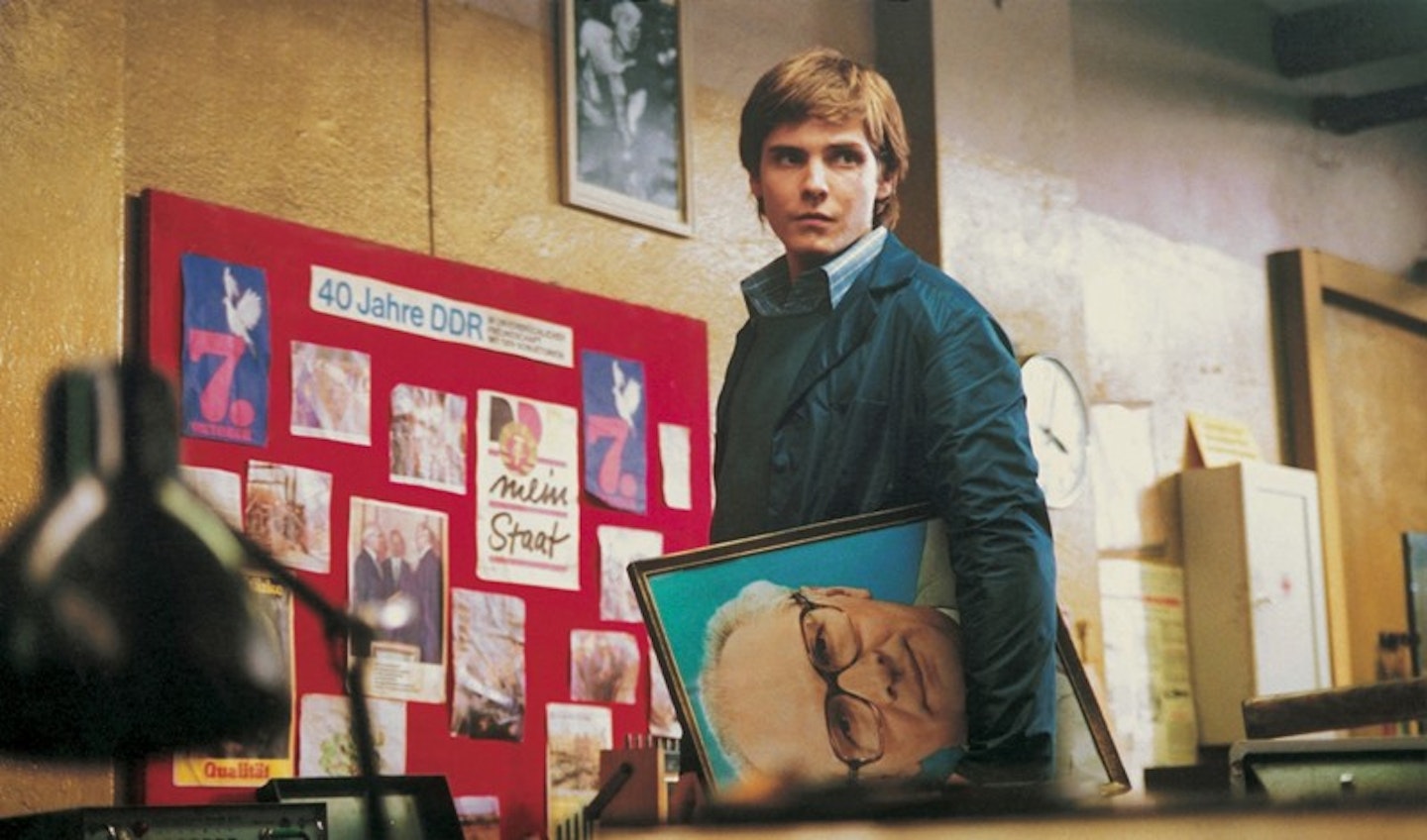
Year: 2003
Country: Germany
Director: Wolfgang Becker
Subtle and delicately delivered humour is where Goodbye Lenin is at. The main premise, that a son must pretend that the Berlin Wall is still up so that his mother, fresh out of a 9-month coma, isn't shocked into a relapse, is one that had to be deftly handled, and deftly handled it is. Though out-and-out farce could be on the cards, leading actor Daniel Bruhl delivers the script with understated aplomb, making intentional audiences wonder whether 'German comedy' was really a contradiction in terms after all.
Hollywood remake? No, and since the story is peculiarly German and Hollywood doesn't like films about Communism, we're probably safe here.
Prizes Cleaning up at the German film awards (it went home with 6 in total), it only managed a nomination for Best Foreign Language Film from the BAFTAs and the Golden Globes.
What to say... "The filmmakers had to use extensive CG to keep the surroundings time-appropriate, such is the change in Berlin since the fall of the wall."
What not to say... "Goodbye Lenin! has to be one of the greatest Russian films ever made."
90. Rififi
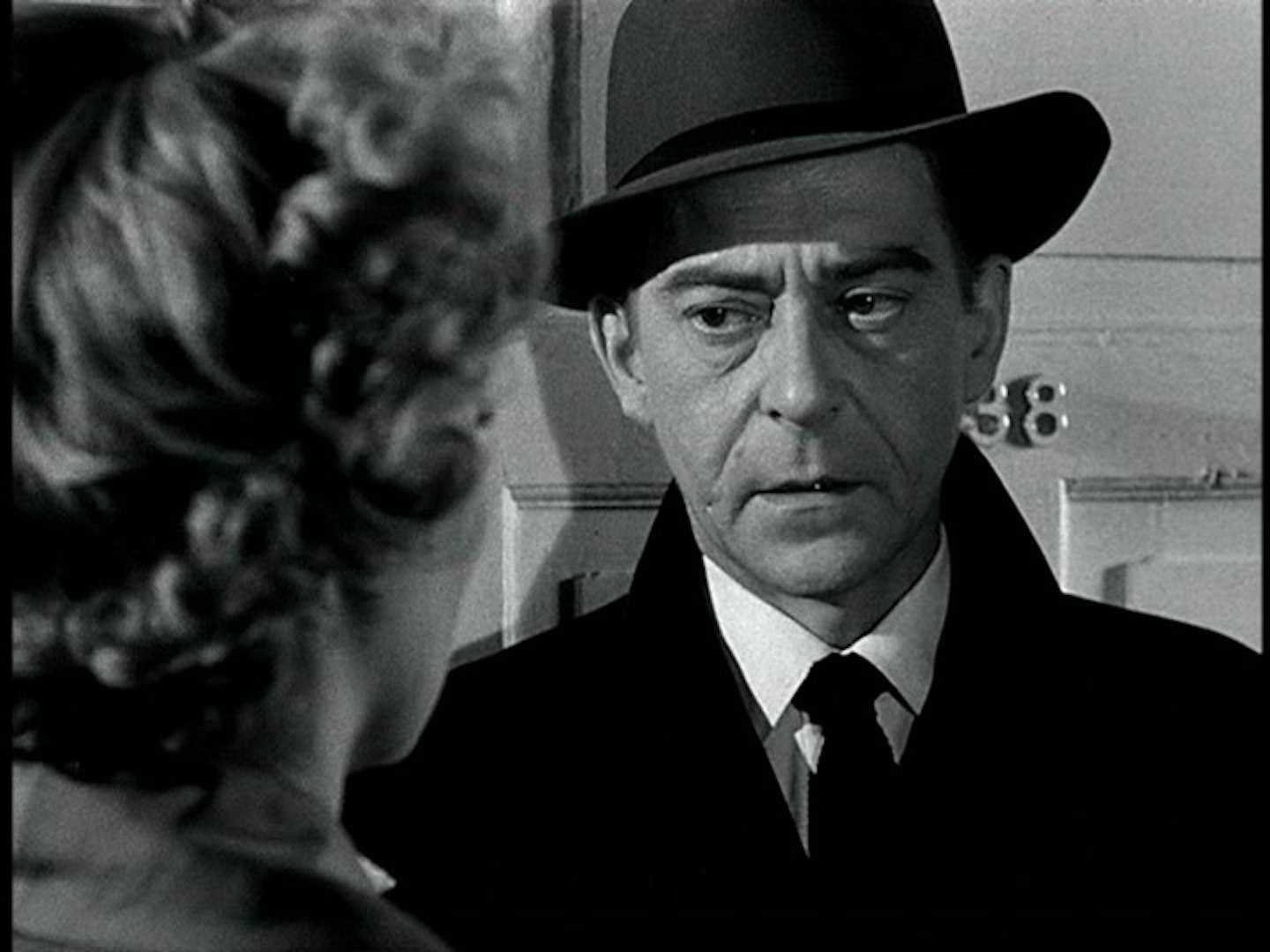
Year: 1995
Country: France
Director: Jules Dassin
There's delicious irony in the fact that Rififi was made in Montmartre while American director Jules Dassin - one of Hitchcock's proteges - was on the Hollywood blacklist, as this striking crime-masterpiece has exerted a heavy influence on virtually every Hollywood heist movie since. Dealing with the set-up, execution and fall-out after a diamond-store safe-break in '50s Paris, it may sound conventional, but with a virtuoso near half-hour - the heist itself - playing out with no dialogue or score in near silence, it's anything but.
Hollywood remake? The likes of The Killing and Reservoir Dogs owe it a debt, but a straight remake is in development at Stone Village Pictures, with Al Pacino down to star.
Prizes Dassin won Best Director at the 1955 Cannes Film Festival (tied with Sergei Vasilyev for Heroes Of Shipka), as well as awards from the New York Film Critics Circle and the French Syndicate of Cinema Critics.
What to say... "It's the father of the modern heist movie."
What not to say... "Turn it up a bit!"
89. Loves of a Blonde
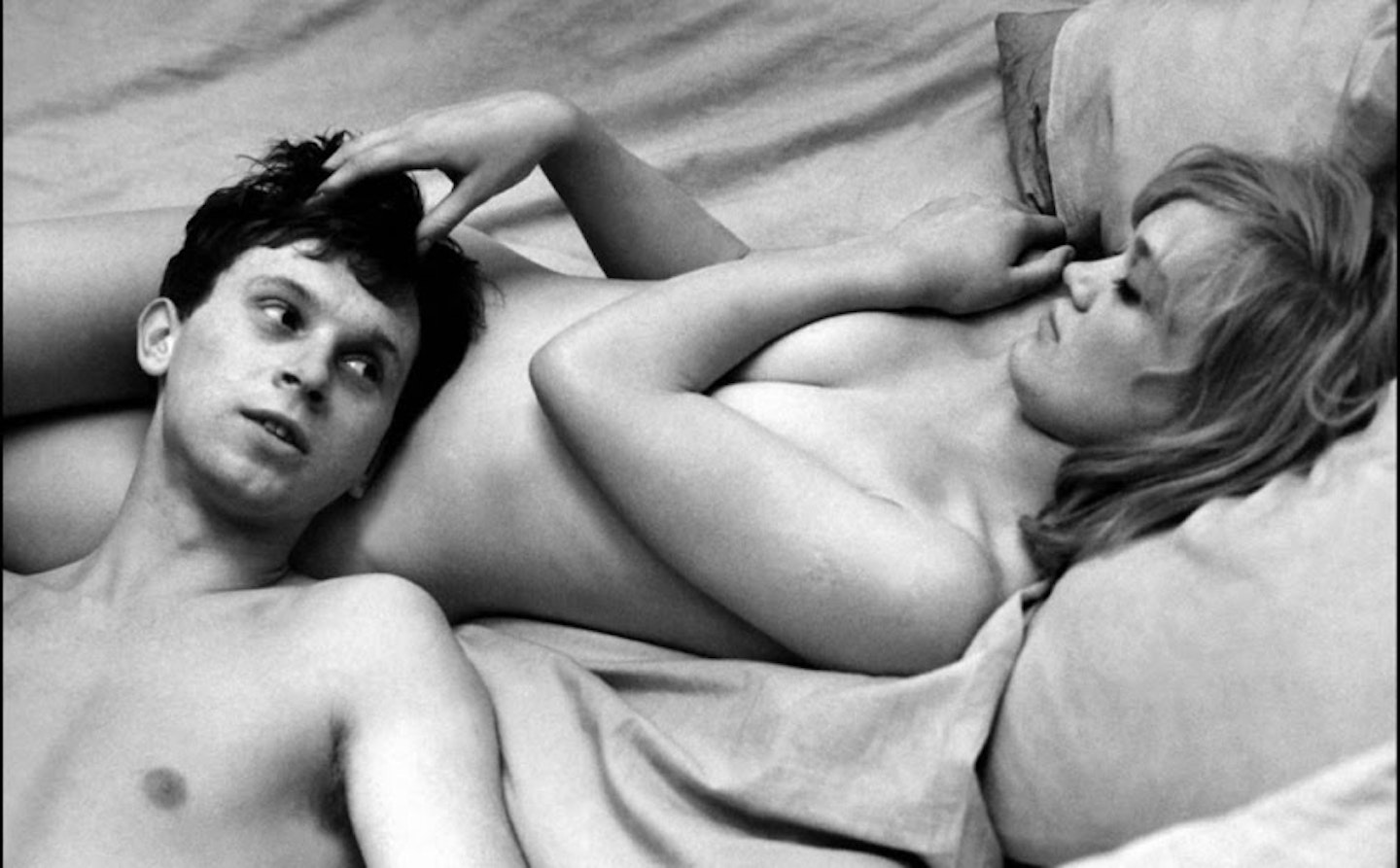
Year: 1965
Country: Czechoslovakia
Director: Milos Forman
Milos Forman's Loves Of A Blonde is a thing of low-key beauty. Charting the romantic hopes and disappointments of shy young factory worker Andula (a terrific Brejchova), Forman etches a tender gentle but never twee portrait of young love. A central set-piece where the hot young girls of a small town are wooed by aging soldiers (they send a bottle of booze to the wrong table) is ripe for Hollywood remake, but it is Andula's pursuit of a rakish piano player (Pucholt) that delivers true emotional wallop. Forman went onto make Oscar winners (One Flew Over The Cuckoo's Nest, Amadeus) but this stands with the best of them.
Hollywood remake? None.
Prizes Nominated for Best Foreign Language Film at the Oscars and Golden Globes.
What to say... "(Loves Of A Blonde) endorsed everything I was trying to do in my own work but hadn't managed yet." (Ken Loach)
What not to say... "Is this The Pamela Anderson Story"
88. Leningrad Cowboys
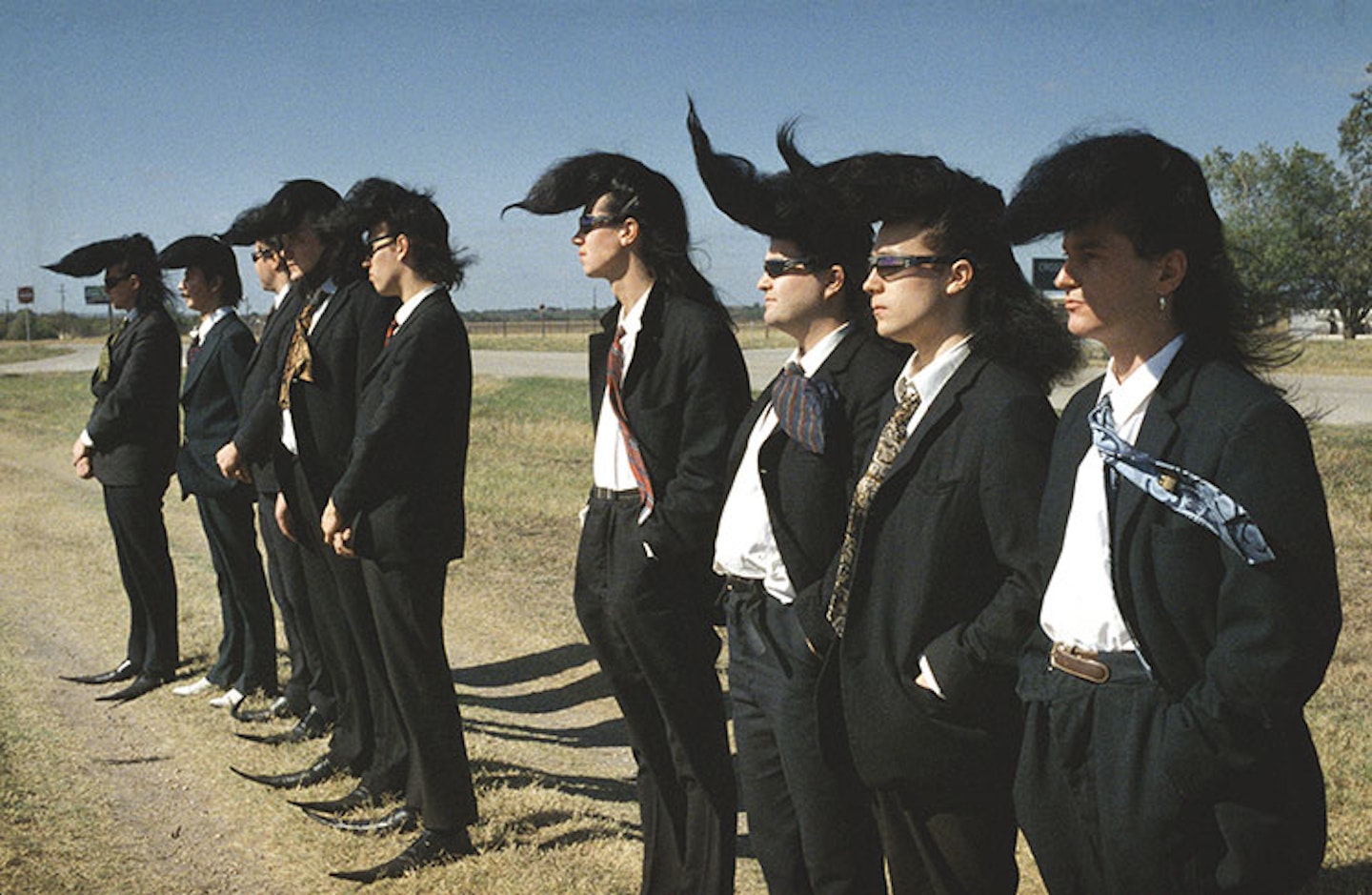
Year: 1989
Country: Finland
Director: Aki Kaurismaki
It's essentially a one-joke movie - blundering and incompetent rockers The Leningrad Cowboys (real band, real weirdos), having failed to make it in Russia, are told to try America "because they'll listen to any old shit". Luckily, it's a good joke. True oddballs, the band grab themselves a Cadillac and head south into America's heartland, performing godawful show after godawful show, all with their dead frozen guitarist in a coffin alongside them. Deadpan wit is the order of the day, and with its expert location shooting, it's an off-the-wall adventure like no other, and easily the best Finnish-rock-band-travelling-across-America movie you'll ever see.
Hollywood remake? No sir. You can't remake this kind of crazy.
Prizes None, alas.
What to say... "Jim Jarmusch has a cameo as a car dealer, which makes perfect sense considering the tone of the film throughout."
What not to say... "Is this the one before Mission To Moscow?"
87. Andrei Rublev
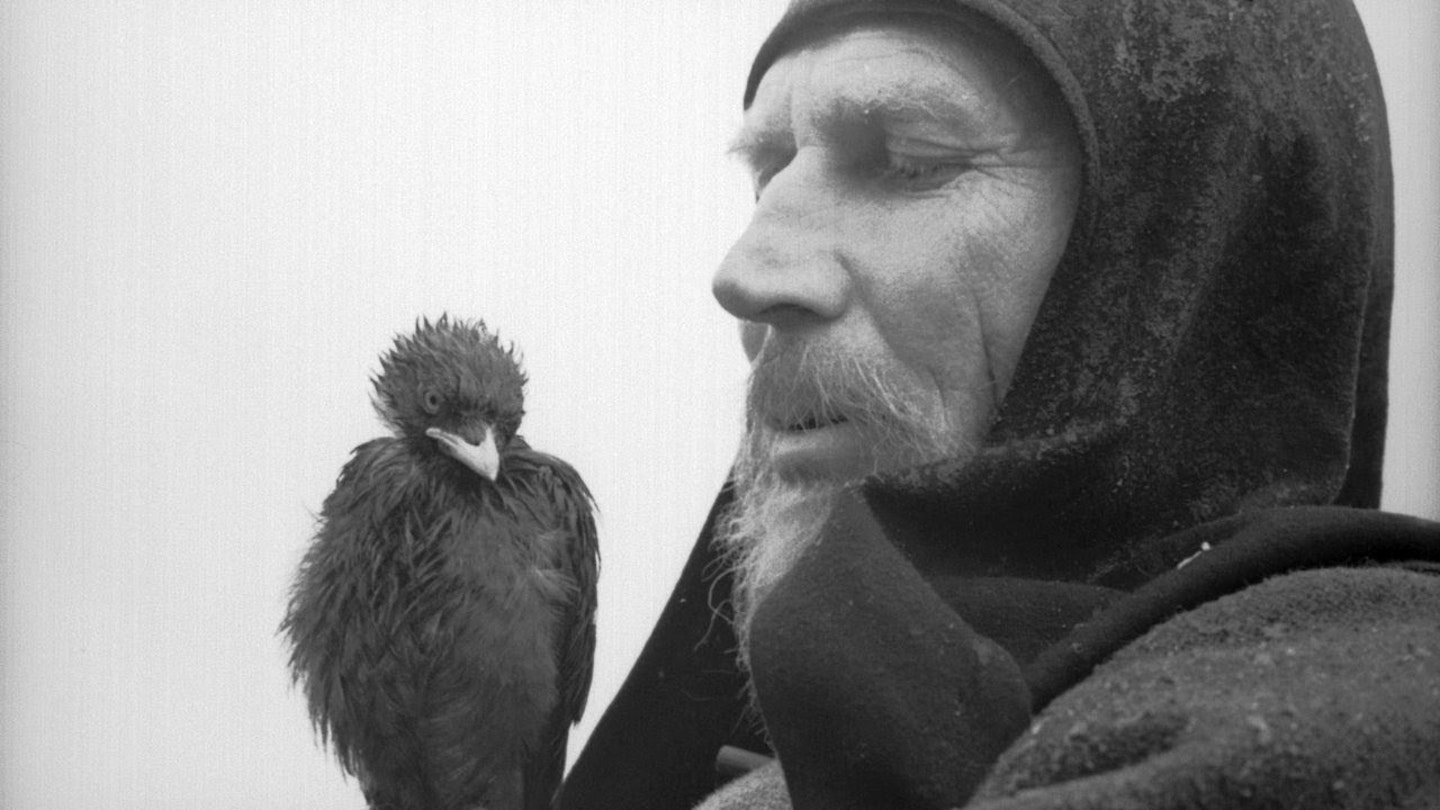
Year: 1966
Country: Russia
Director: Andrei Tarkovsky
A kind of companion piece to The Seventh Seal, Andrei Tarkovsky imagines eight episodes in the life of a medieval monk (Solonitsin) with a gift for painting icons. Similar to Bergman's knight in Seal, Rublev traverses feudal Russia renouncing speech, his art and his faith in response to the horrors he witnesses. Alongside the heavy duty themes, there are stunning visual set-pieces - Tartars ransacking a cathedral, the forging of a bell - and a fresh take on artist biopic cliches, only revealing Rublev's artwork in stunning colour and Cinemascope at the very end.
Hollywood remake? None.
Prizes Winner of the FIPRESCI prize at Cannes.
What to say... "Rublev co-writer Andrei Konchalovsky also directed Tango & Cash!"
What not to say... "Can you guess what it is yet?"
86. Run Lola Run
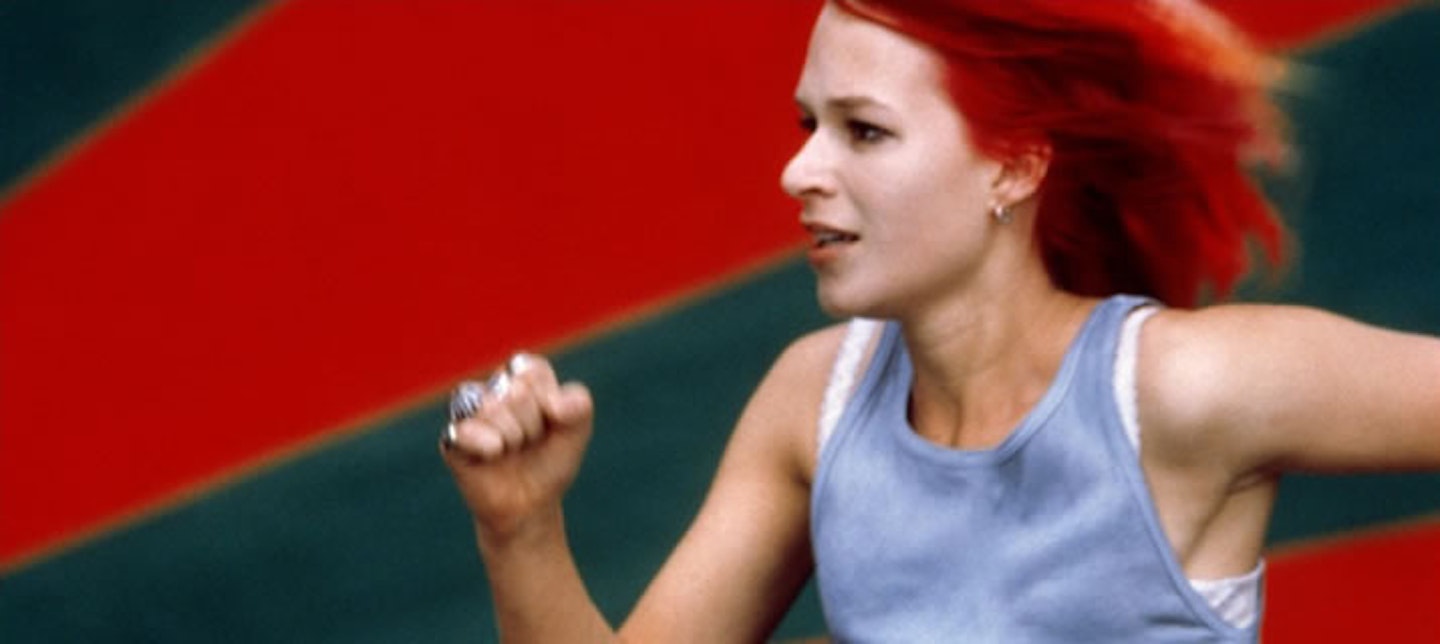
Year: 1998
Country: Germany
Director: Tom Tykwer
On the face of it, it's a very simple premise: one woman called Lola must find 100,000 DM in 20 minutes to save the life of her drug-dealing boyfriend who's left that sum on the subway (the doofus) and whose boss is about to rock up to collect. Combining a lo-fi aesthetic with Hollywood-worthy thrills, Twyker created an extended short, repeated three times as Lola tries again and again to get it right. It's as fast-paced as you'd expect, full of likable characters, and perfectly balances arthouse sensibilities with multiplex action to create one of the most enjoyable movies Germany had made for years.
Hollywood remake? Not unless you count lesbian "homage", And Then Came Lola, which you probably don't. Weird considering this is one of the most Hollywood-friendly on the list.
Prizes A huge success in its home country, it also earned a nomination at the BAFTAs and at Venice for Best Foreign Film, and won the World Cinema Audience Award at Sundance.
What to say... "An expert editor was required to make all 1581 cuts work, eventually managing at an average shot duration of 2.7 seconds, to keep the pace quick."
What not to say... "So is this a sequel or a prequel to that Simon Pegg movie?"
85. Il Conformista
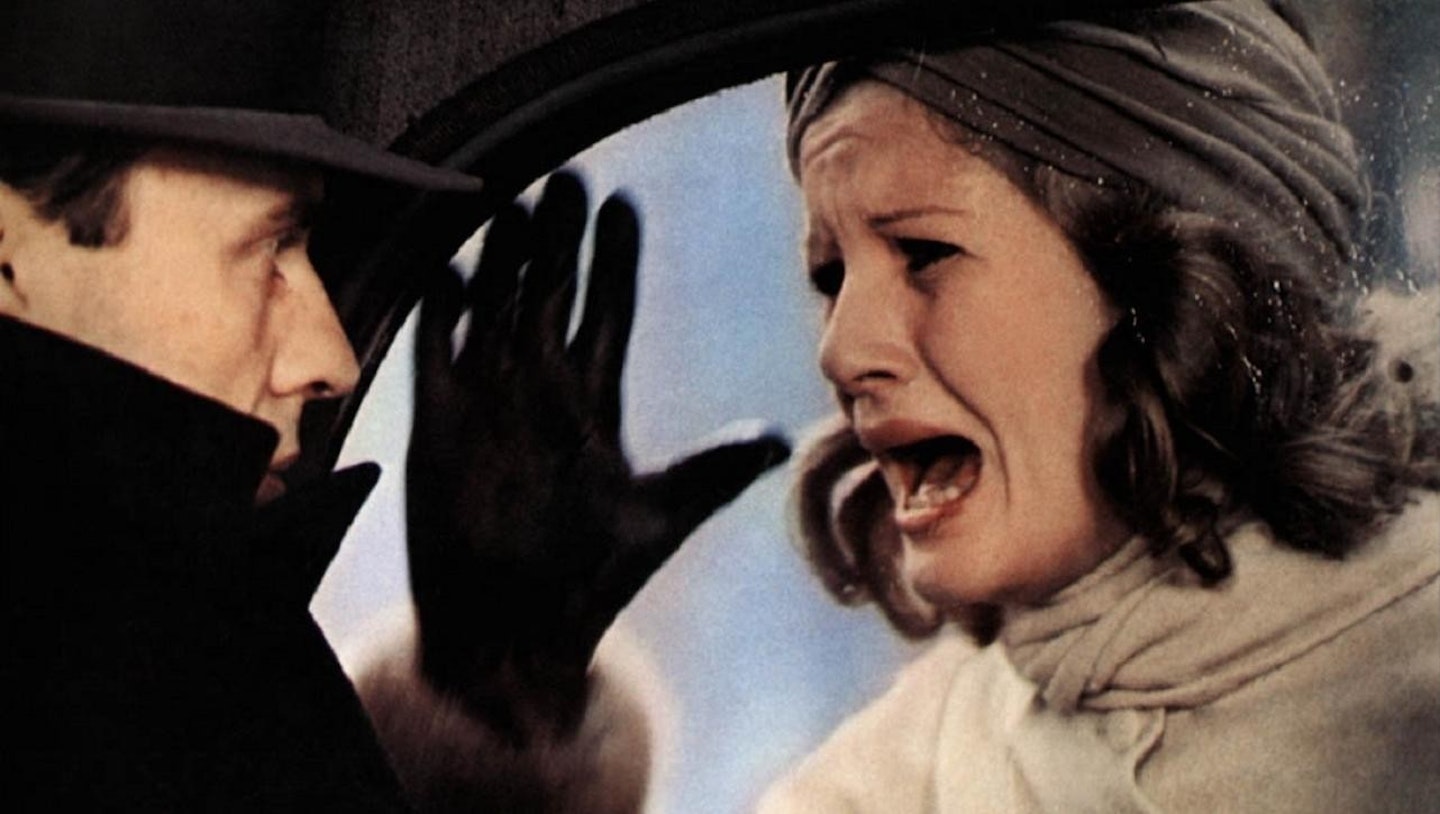
Year: 1970
Country: Italy
Director: Bernardo Bertolucci
Conceived by a director at the top of his game, Il Conformista is a period piece that looks as good today as 40 years ago. Betrayals take place in dappled, sun-filtered woods and compromises are made on blue-lit Parisian streets, as a venal man, Marcello Clerici (Jean-Louis Trintignant), vainly tries to negotiate his way through Mussolini's Italy. Bertolucci's ornate design and Vittorio Storaro's sensual cinematography enhance a story that perfectly captures the immoral world of fascist Italy.
Hollywood remake? No, although we wouldn't mind seeing Leonardo DiCaprio playing the amoral Clerici.
Prizes A big winner at the Berlin Film Festival, it was also nominated for an Oscar (Best Adapted Screenplay) and a Golden Globe (Best Foreign Language Film).
What to say... "I don't film messages. I let the post office take care of those." (Bernardo Bertolucci)
What not to say... "Is it a rom-com?"
84. Orphee
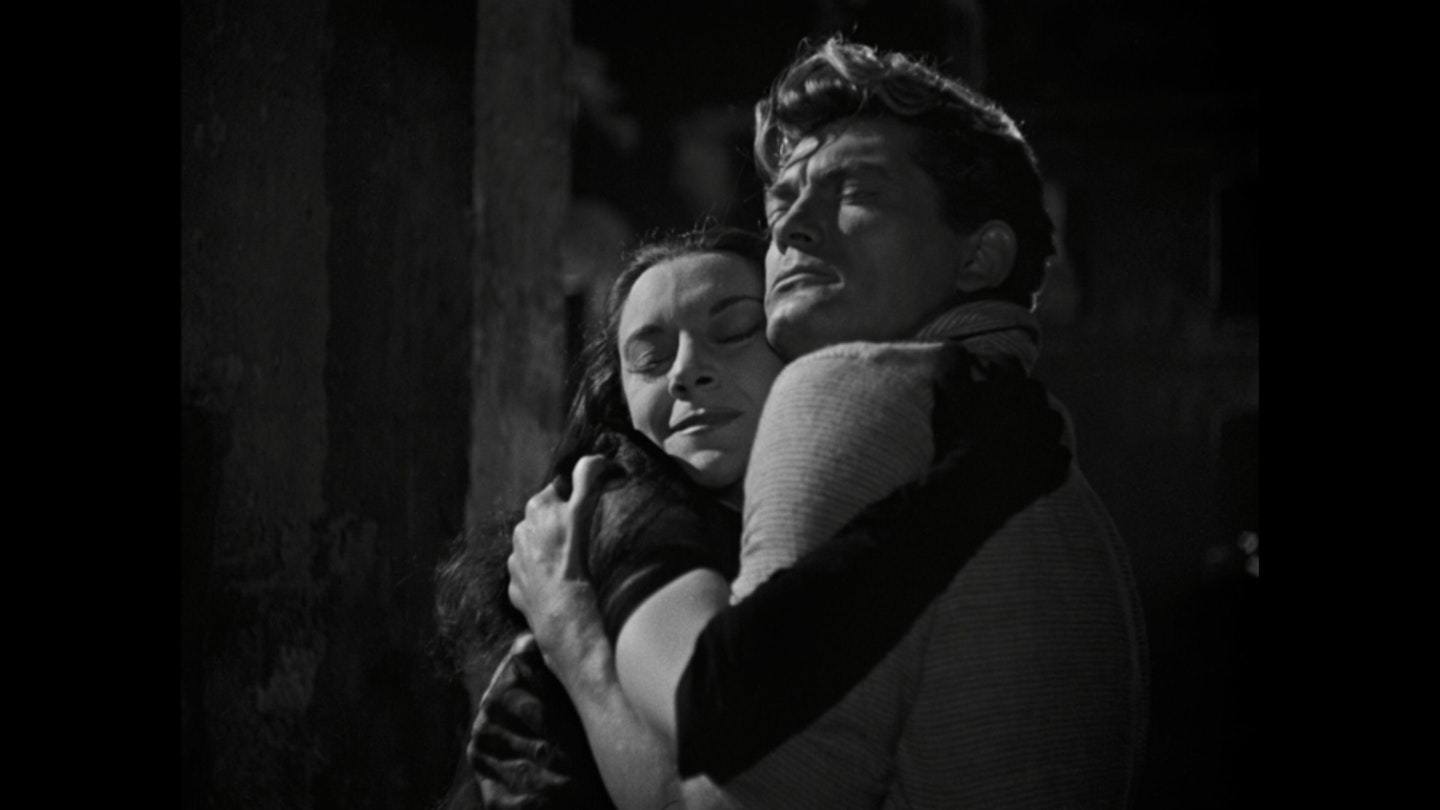
Year: 1950
Country: France
Director: Jean Cocteau
Jean Cocteau's greatest film takes the myth of Orpheus and Eurydice (He: head over heels in love; She: also head over heels but inconveniently stuck in the netherworld) and updates it to a menacing, post-war Paris. Orpheus, played by the devilishly debonair Jean Marais, is a poet plunged helplessly into a startling world of bombed out landscapes, Rolls-Royce-riding angels of death, leather-clad outriders, and, of course, that mirror to the Underworld. Marie Dea's radiant, pregnant Eurydice is the love who awaits him there. Made by a man who laid claim to being a painter and sculptor as well as a filmmaker, this is a true work of art in every sense.
Hollywood remake? Non, but we can only dream about a Guillermo del Toro take on the story.
Prizes Surprisingly overlooked for awards, it only scored only a BAFTA nomination, ultimately missing out to All About Eve.
What to say... "A perfect visualisation of an ageless love story."
What not to say... "Is that the one where Vera Farmiga adopts that scary little girl?"
83. Xala
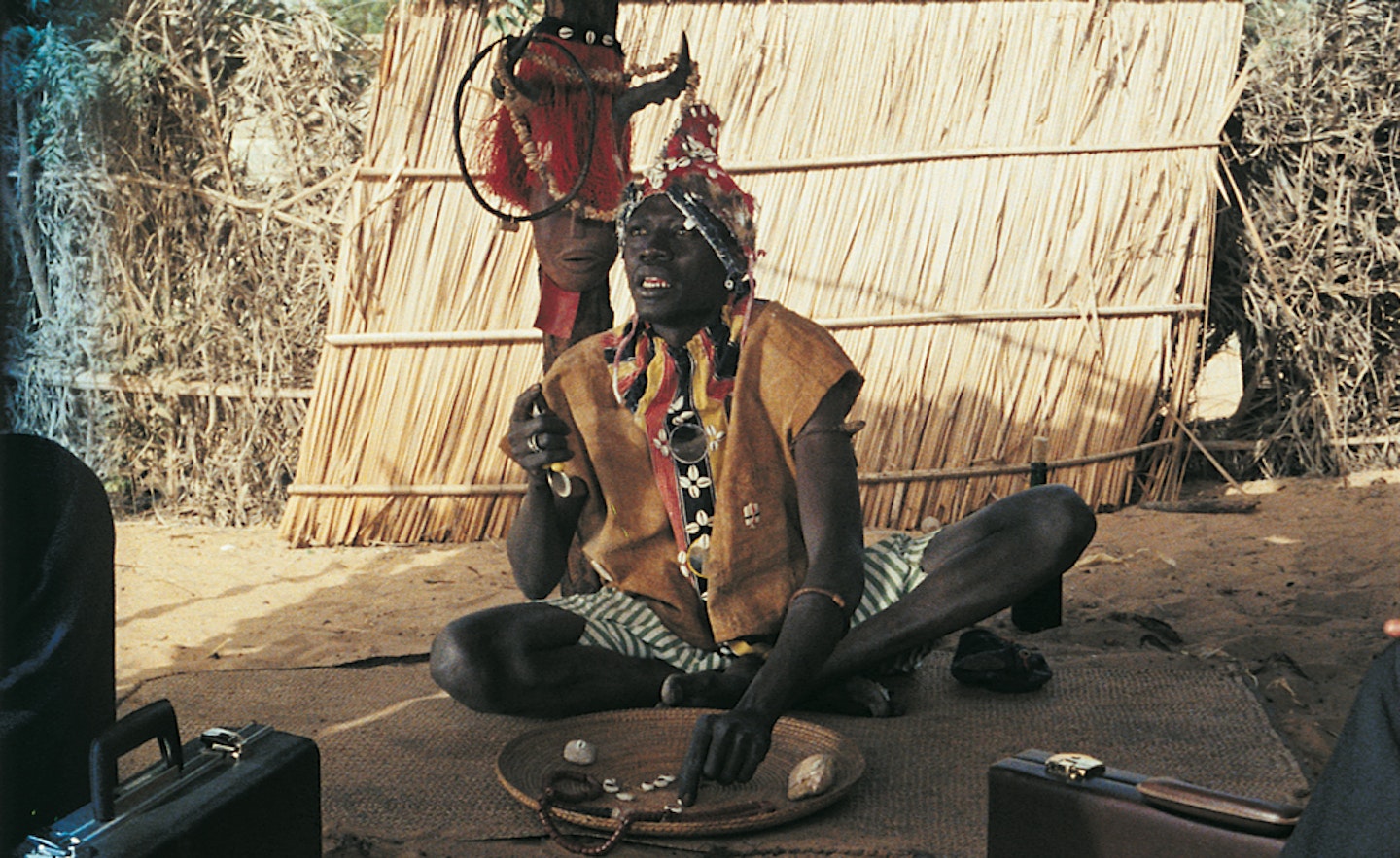
Year: 1974
Country: Senegal
Director: Ousmane Sembene
Just pipping Moolade and Ceddo as Sembene's best film. Xala, based on his own novel, is satire at its most subtle yet savage. A powerful business man (Leye) is taking his third wife, much to the chagrin of his exes and daughter, yet on his wedding night he is hit by a Xala or curse, rendering him impotent. Sembene turns the tale into a metaphor for Senegalese ineffectuality, skewering the pretensions and underhandedness of African politics with a quiet anger. He also creates a gallery of strong female characters, a direct contrast to the useless men.
Hollywood remake? None, and frankly we're not holding our breath here. This is not Hollywood's usual subject matter.
Prizes Well, there's the Special Jury prize at Karlovy Vary. Nothing else of note, however.
What to say... "The development of Africa will not happen without the effective participation of women. (Ousmane Sembene)
What not to say... "One word mate: Viagra."
82. Battle Royale
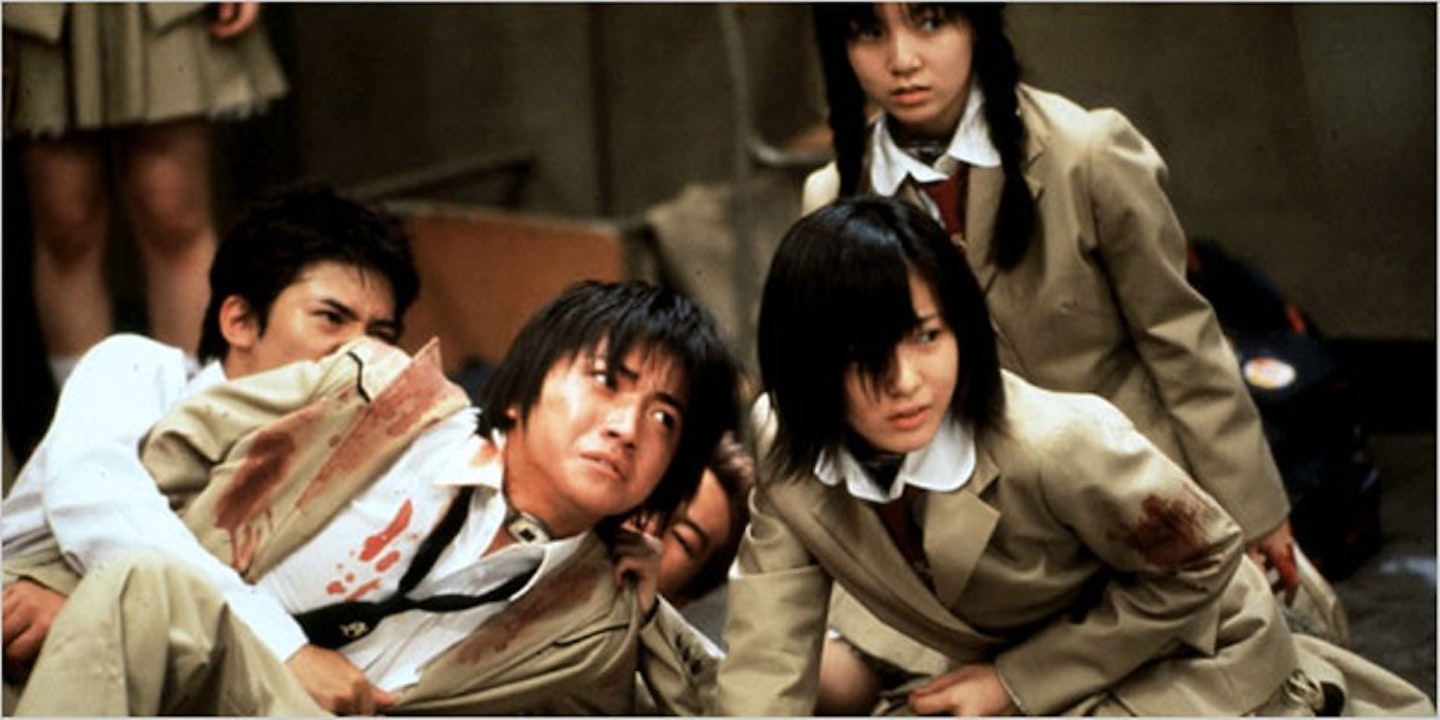
Year: 2000
Country: Japan
Director: Kinji Fukasaku
A high-concept masterpiece, this controversial effort (several attempts were made to ban both film and its source novel in Japan) from Fukasaku continues to provoke discussion with its devastating premise: a class of teenagers are taken to an island, fitted with explosive collars and told to kill one another until only one remains. It's gory - but this is not violence for its own sake. Fukasaku's got something powerful to say about intergenerational distrust, modern society, our attitudes to violence and one another and modern Japan as a whole.
Hollywood remake? In 2006, a remake was reportedly in the works at New Line, but following some difficulties with the rights and (more devastatingly for its chances, we suspect) the Virginia Tech school shootings, the remake was shelved. For now.
Prizes Three awards of the Japanese Academy, but no international recognition from any of the big shows.
What to say... "Life is a game. So fight for survival and see if you're worth it. (Teacher Kitano)
What not to say... "Heh heh heh, Japanese schoolgirls."
81. The Host
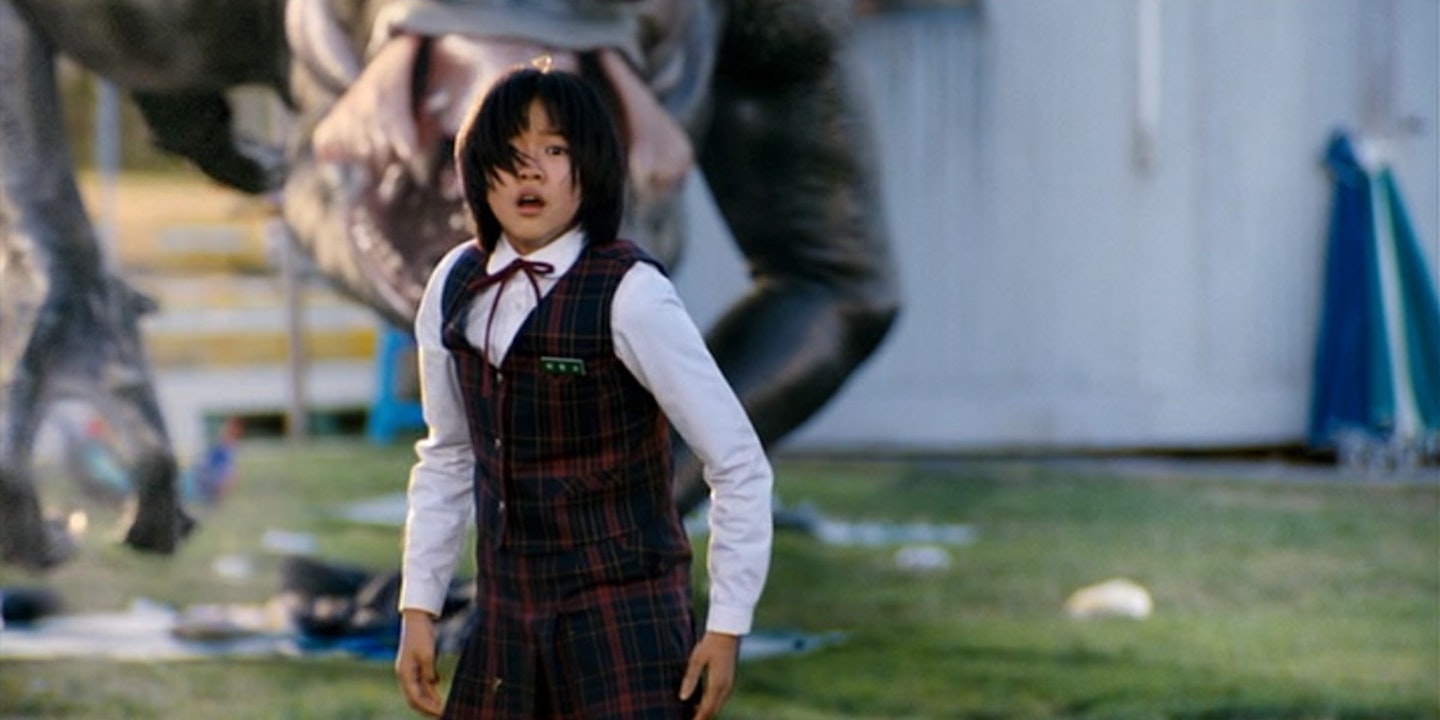
Year: 2006
Country: Korea
Director: Bong Joon-Ho
Most monster movies spend a good hour buying you dinner and making inconsequential small-talk before unveiling their beastie (blame Jaws' limited budget, perhaps); The Host is remarkable for whipping it out before you've even said hello - and what a creation it is. Slimy, grotesque, moving like the mutant offspring of a frog, a fish, a monkey and something from Miyazaki's nightmares, it cuts a swathe through otherwise down-to-Earth characters, the sort of blue-collar family usually seen in kitchen sink dramas. See it as a critique of American foreign policy or government's oppression of the working man, but either way a film that can go from horror to humour to tragedy this fast deserves our respect.
Hollywood remake? Well, it was in the works in 2008 with Gore Verbinski producing, newcomer Frederick Bond directing and a script by Smart People's Mark Poirier. It's all gone quiet since then, however, so maybe if we sneak away quietly they'll forget again.
Prizes It won four Blue Dragon awards and four Asian Film Awards, but none of the big boys.
What to say... "The criticism of American military might in the film - since it's an American researcher who dumps the chemicals that create the monster - actually nabbed this film good reviews in North Korea."
What not to say... "I like the bit where Ewan McGregor and Pierce Brosnan talk on the plane."
80. Mother India
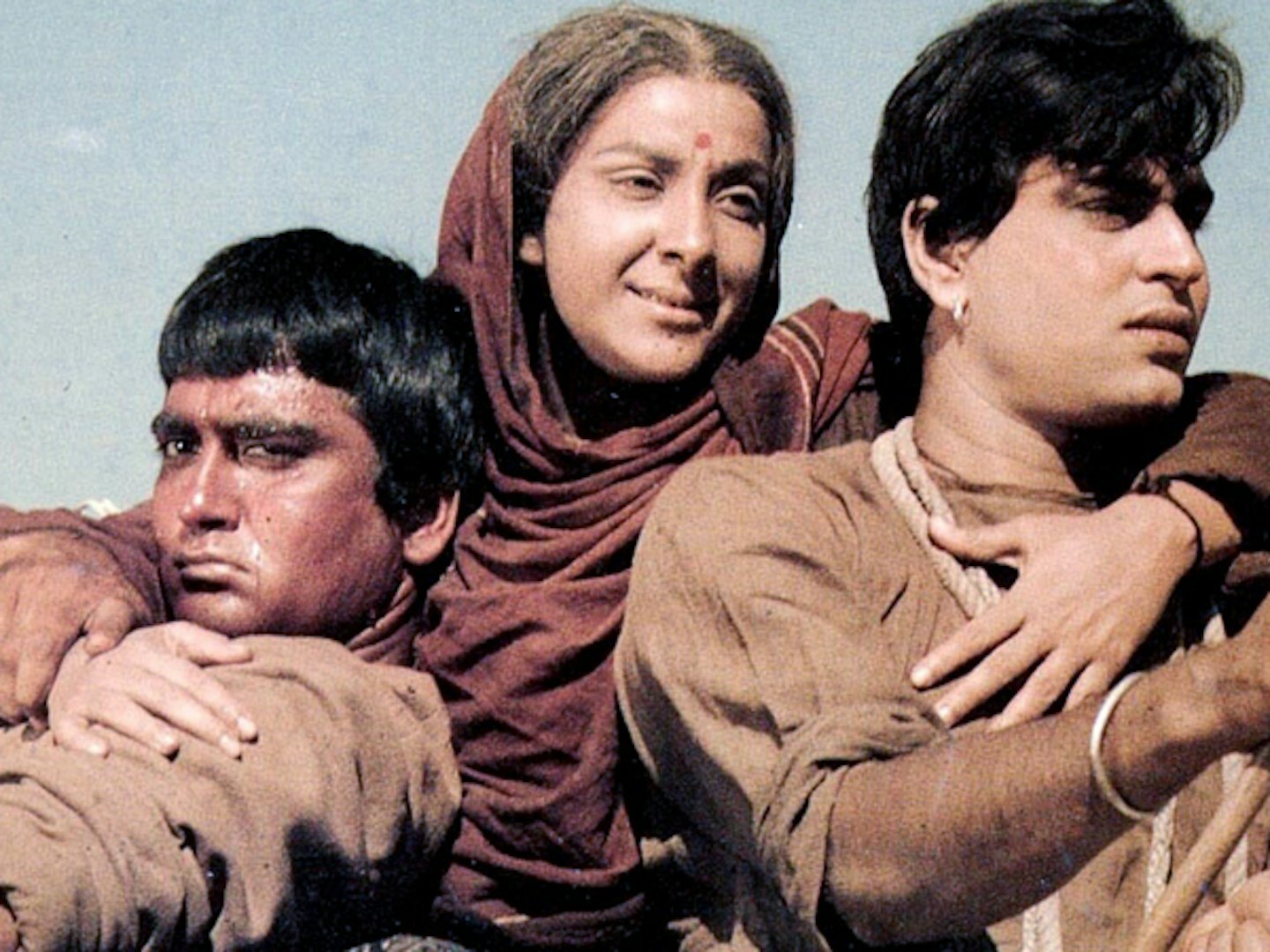
Year: 1957
Country: India
Director: Mehboob Khan
This huge crowd-pleasing blockbuster may be a bit creaky now but it has the Big Entertainment value to rival the biggest Hollywood spectacular. The plot sees a mother (Nargis, a force of nature) go through hell and high water to raise her children and keep her farm from money lenders. At nearly three hours long, it puts you through the wringer but it is a four hankie experience courtesy of heartrending songs and a devastating climax.
Hollywood remake? None but remade twice in India as Bangaru Talli and Punniya Boomi.
Prizes Reputedly lost the Best Foreign Language Film Oscar by one vote to Fellini's Nights Of Cabiria
What to say... "It's the Indian Gone With The Wind"
What not to say... "Frankly my dear I don't give a naan."
79. Bande A Part
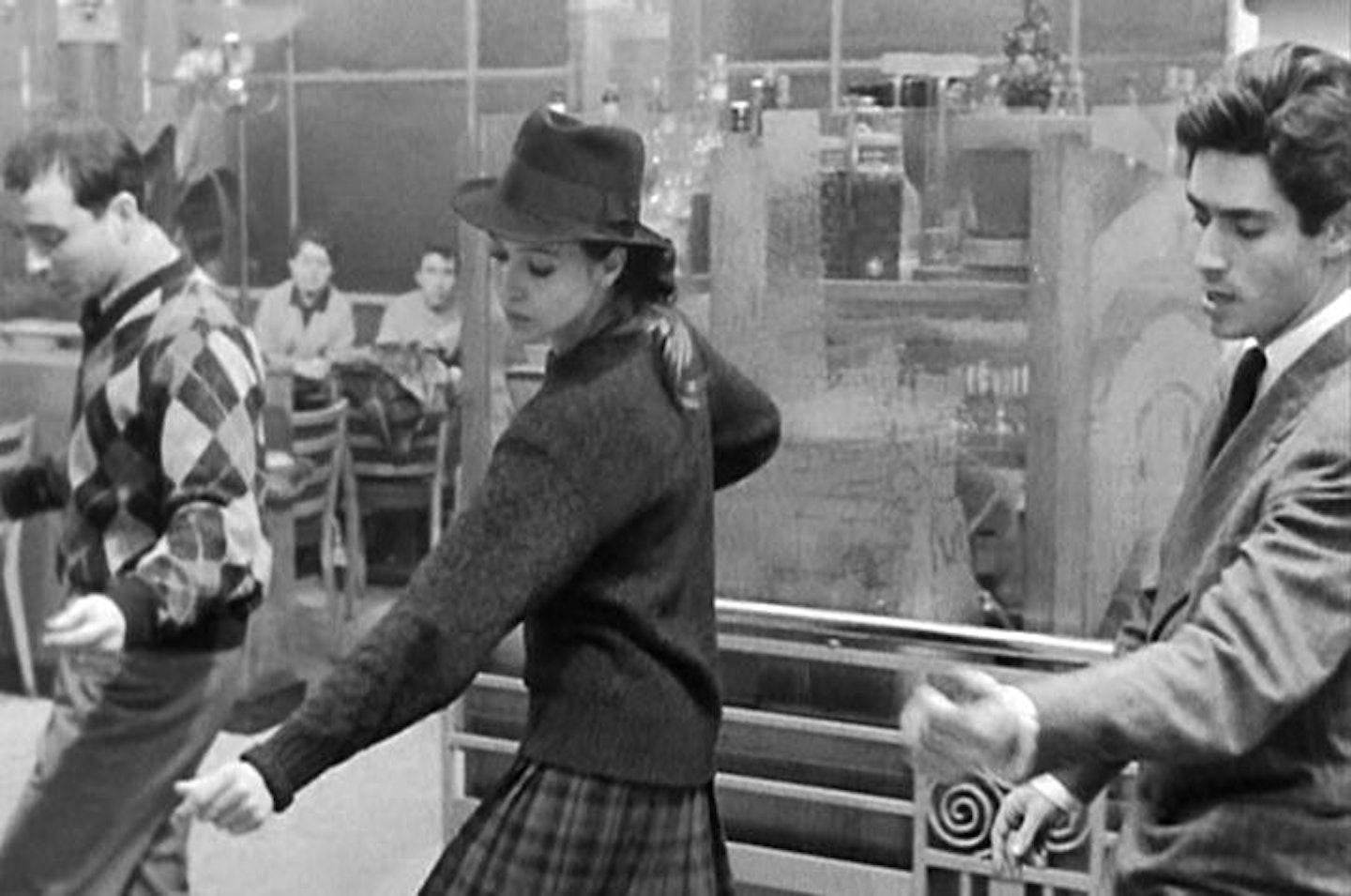
Year: 1964
Country: France
Director: Jean-Luc Godard
Quite possibly Godard's most blissfully entertaining movie, a heist gone wrong flick where two guys (Frey, Brasseur) and a gal (Godard's muse, Karina) plan to steal a huge wad of dough and end up with a murder on their hands. This is a Hollywood thriller relocated to Paris' grey suburbs, but Godard doesn't care about plot. Instead, he focuses on putting his characters through a series of CAF (cool as fuck) set-pieces - a minute of silence where the entire soundtrack goes silent, a world record race through the Louvre and, most famously, a sequence in which the three heroes perform an impromptu dance number in a cafe. Godard may have made more challenging and more interesting films - Le Mepris, Pierrot Le Fou - but none have Bande's sprightliness and charm.
Hollywood remake? Non. But Pulp Fiction famously riffs not only on Bande A Parte's impromptu dance number but also Anna Karina's look, lifted wholesale for Mia Wallace.
Prizes Non.
What to say... "Tarantino's production company is called A Band Apart, See what he did there?"
What not to say... "Bande A Parte - the best Wings album!"
78. Women on the Verge of a Nervous Breakdown
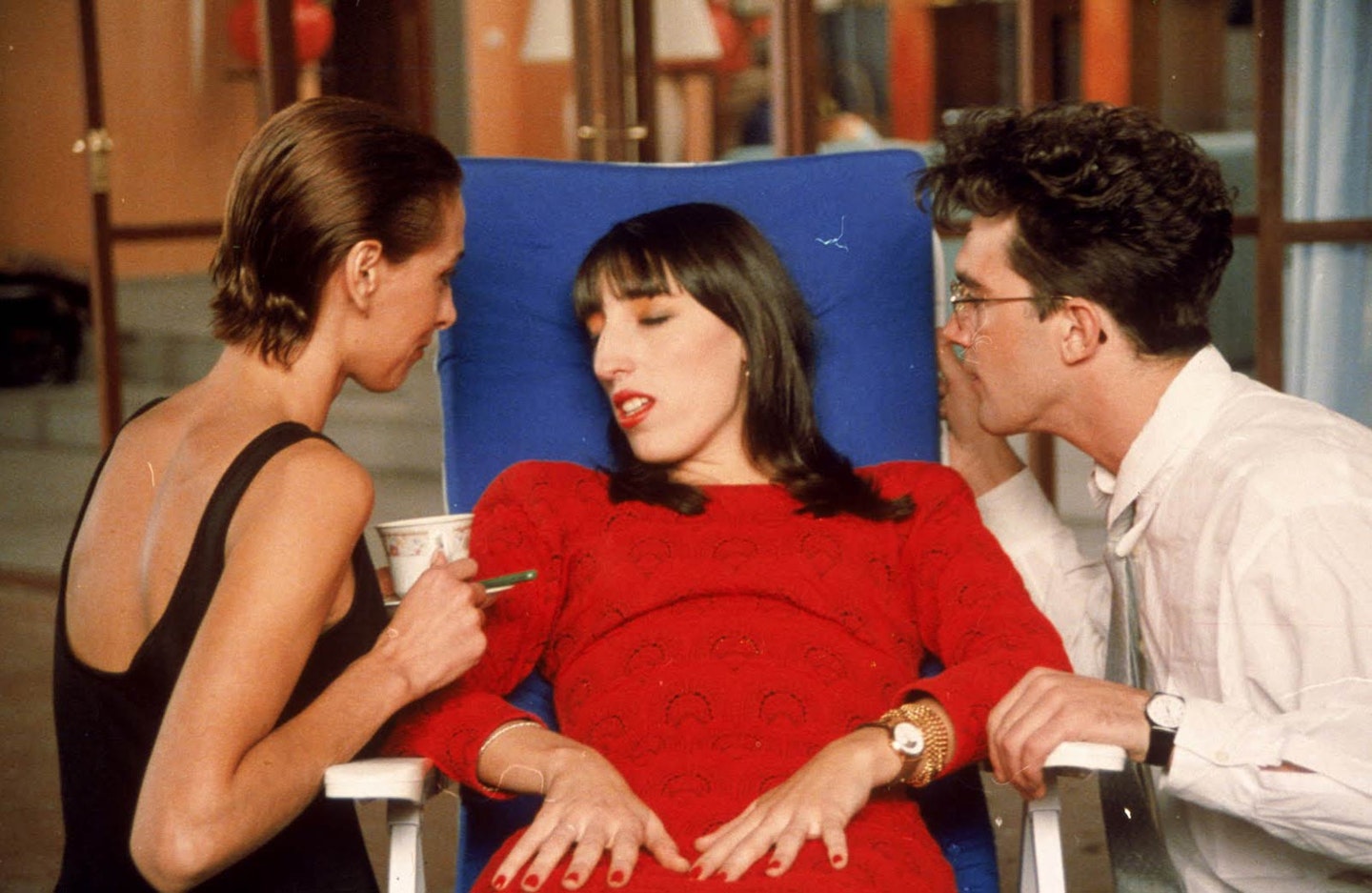
Year: 1988
Country: Spain
Director: Pedro Almodovar
A neon-bright farce tinged with a healthier dollop of insanity than is usual even in that genre, and served with a bucket of drugged gazpacho, this is probably the best example of Almodovar's early, funny stuff. Carmen Maura is trying to hold it all together as Pepa, just dumped by her lover, while her apartment becomes the scene of accidental overdoses, suicide attempts, terrorist plots, police inquiries, illicit trysts and hostage situations. As is traditional, Almodovar writes great female characters, hands them to some of Spain's best actresses and shoots them beautifully as they go. It may not have the polish of a Volver, but it's zany comedy at its best.
Hollywood remake? Almodovar's apparently planning a TV series spin-off of the film on Fox TV in the US, which his screenwriter promises will be "a suburban drama about a group of women who have known each other for a long time".
Prizes It won five Goyas, two European Film Awards and two Venice Film Festival gongs, and was nominated for a BAFTA, an Oscar and a Golden Globe.
What to say... "The Royal Tenenbaums riffs on the Mambo Taxi gag, with the same cab turning up every time a character needs a ride."
What not to say... "Pfft, women eh?"
77. House of Flying Daggers
](https://images.bauerhosting.com/legacy/empire-images/features/560ec14550e6c513721c3991/house-of-flying-daggers.jpg?auto=format&w=1440&q=80)
Year: 2004
Country: China
Director: Zhang Yimou
As with the director's similarly gorgeous Hero, this emphasises the eye-candy element in the reborn Wushu genre. The basic technique is this: cast gorgeous people. Have them fight each other in scenic places. The difference in the case of Flying Daggers is that the plot is a little more structured than usual: Mei (Zhang) is a blind dancer with links to the subversive House of Flying Daggers. Arrested by Leo (Lau), she escapes with the help of Jin (Kaneshiro) - but as both officers are in love with her, and Mei knows more than she lets on, it's soon tragedy time. Also, really kick-ass fight scenes.
Hollywood remake? Interestingly, in 2009 Sam Raimi was rumoured to be producing an English-language remake, but so far there's been no sign of that appearing.
Prizes Nominated for nine BAFTAs and a Cinematography Oscar, as well as a Golden Globe, it had to settle for less well-known prizes.
What to say... "The Chinese title translates directly as 'Ambushed From Ten Directions'."
What not to say... "I'd rather have a House of Flying Skateboards from Back to the Future."
76. The Idiots
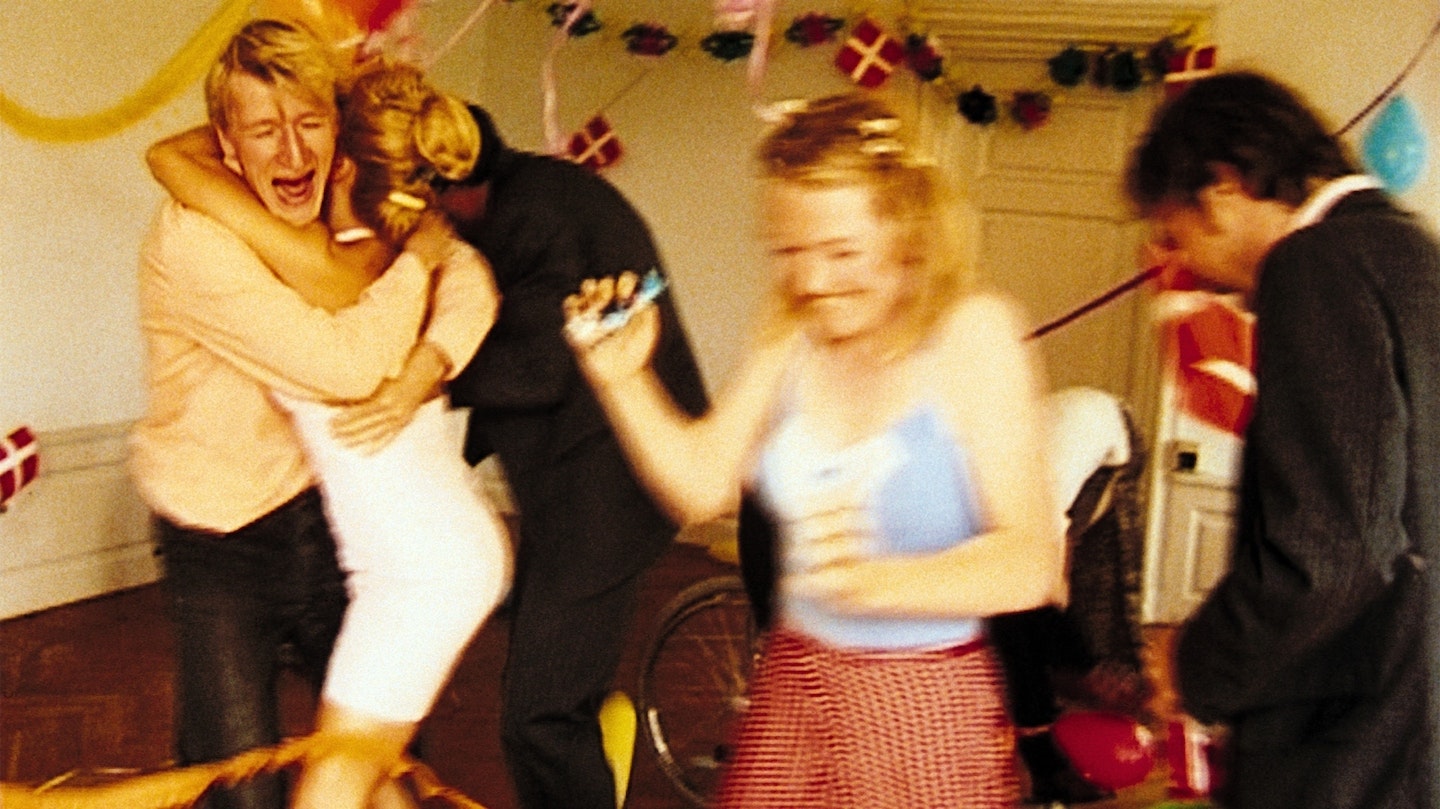
Year: 1998
Country: Denmark
Director: Lars Von Trier
A group of middle-class intellectuals come together in a commune and indulge in the practice of spazzing - the act of pretending to be mentally impaired. This is Lars von Trier at his most incendiary, allying the rough hewn, improvised qualities of Dogme with funny, disturbing, shattering scenes of intelligent people finding their inner spastic, most famously a gang bang that features unsimulated sex. Played in a completely different way, this could be a whacky edgy comedy starring Will Ferrell, but von Trier takes it in another direction, never adding easy-to-grasp motivations for behaviour and never shying from the uncomfortable ideas thrown up by the premise. Ballsy cinema with a capital B.
Hollywood remake? None. Hollywood doesn't really like this much nudity.
Prizes It won the FIPRESCI prize at the London Film Festival.
What to say... "A film should be like a rock in a shoe." (Lars von Trier)
What not to say... "People acting like idiots in a huge house? Isn't that Big Brother?"
75. A Bout de Souffle
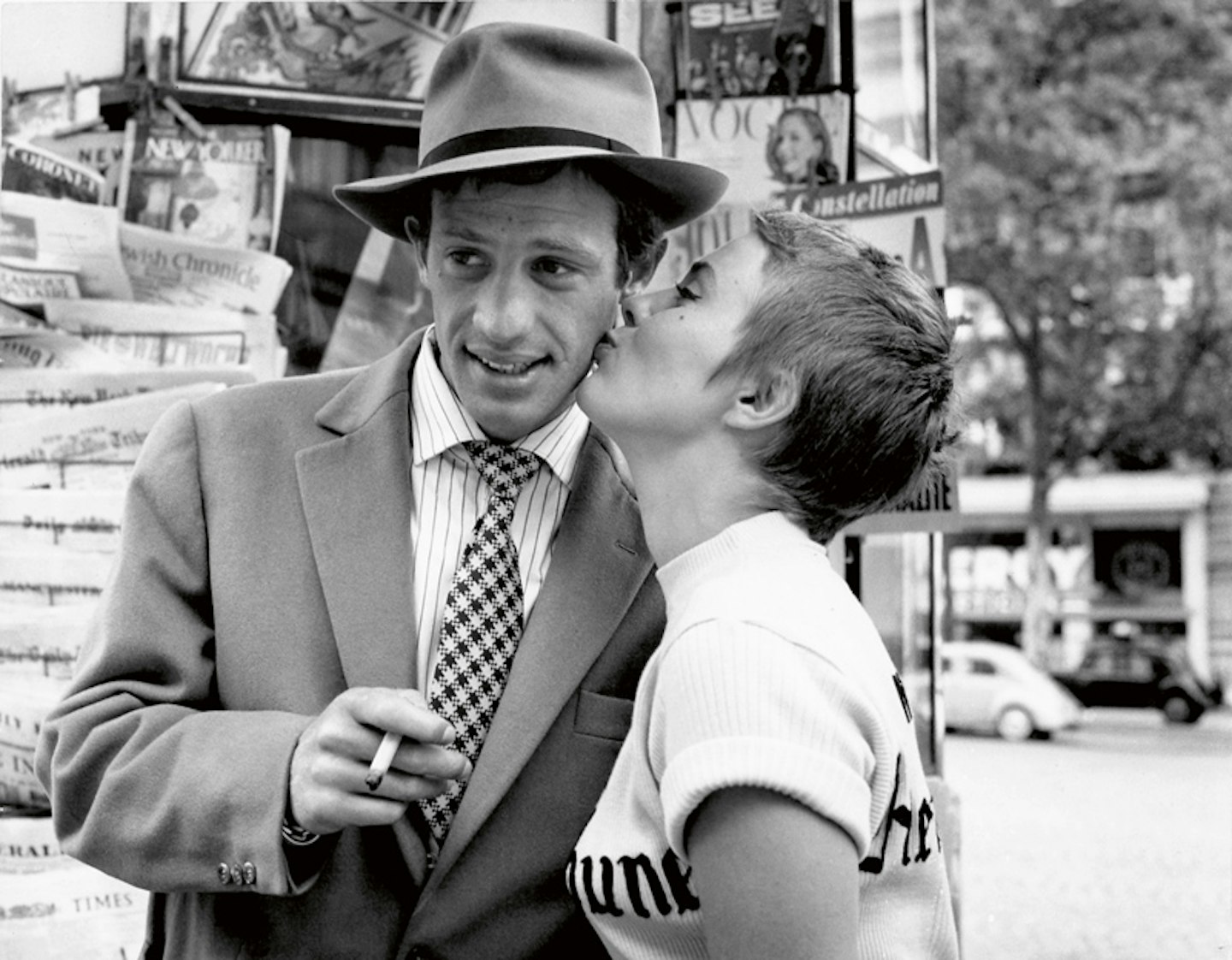
Year: 1960
Country: France
Director: Jean-Luc Godard
Godard's debut, co-written with Francois Truffaut, didn't just rewrite the movie rule book; it tore it up, threw it on the floor and did a cheeky little dance on top of it. Coursing with a love of American gangster flicks, A Bout De Souffle takes a B movie plot - a French hoodlum (Belmondo) kills a cop and goes on the run with his American girlfriend (Seberg) - and reinvigorates it with a dizzying arsenal of cinematic tricks (jump cuts, talking to camera, handheld cameras) and a fresh, fractured sense of storytelling. The chemistry between the surly Belmondo and the elfin Seberg is sex on the stick, but man of the match is Godard: playful, challenging and far too cool for l'ecole.
Hollywood remake? Jim McBride gave A Bout De Souffle a rockabilly redo with Richard Gere in the Belmondo role with Breathless.
Prizes Godard took home the Silver Bear at the Berlin Film Festival.
What to say... "All you need for a movie is a gun and a girl." (Jean-Luc Godard)
What not to say... "Ah, Jean-Luc Godard. Best. Enterprise. Captain. Ever."
74. Devdas
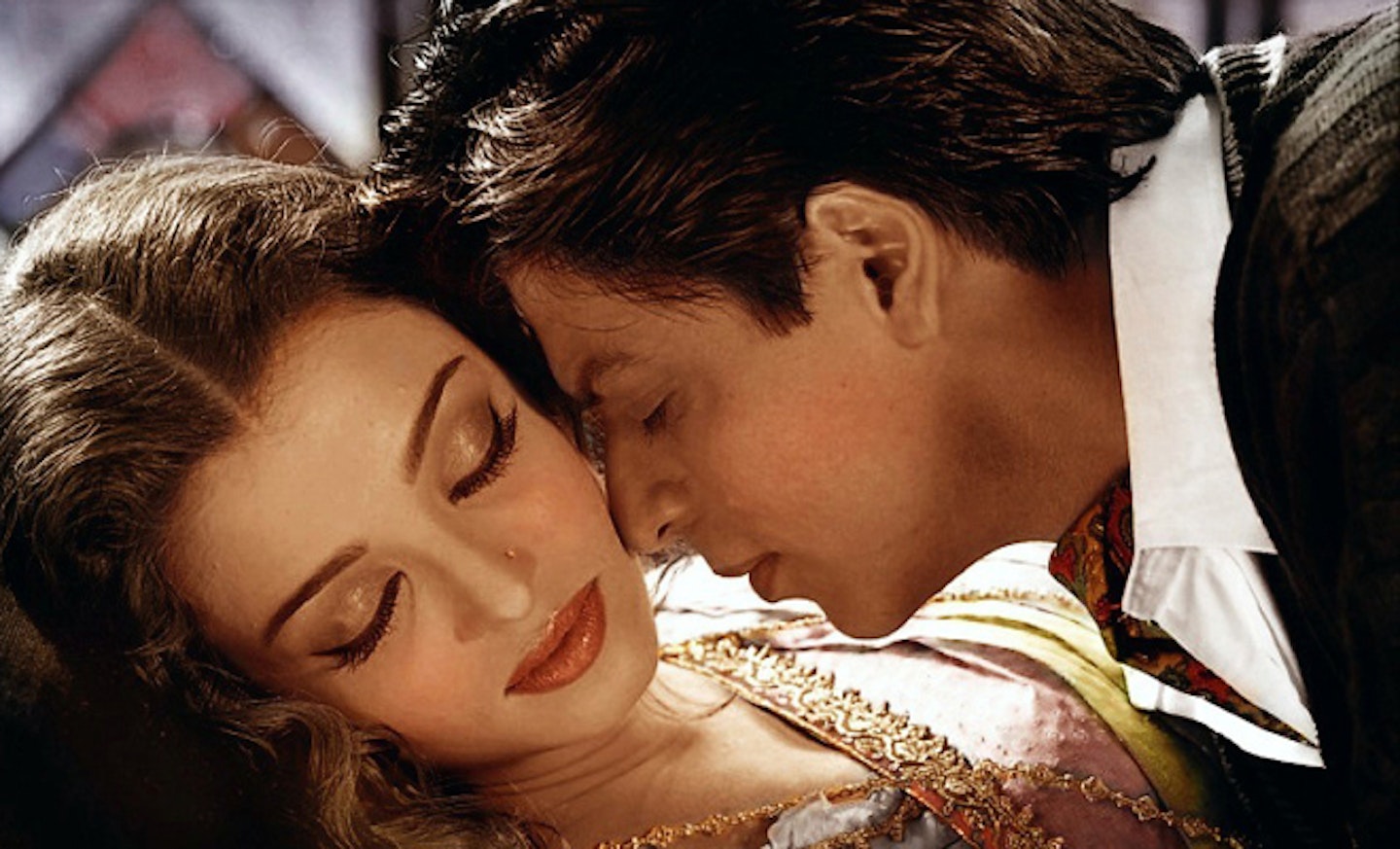
Year: 2002
Country: India
Director: Sanjay Leela Bhansali
Because it's a proper Bollywood blockbuster, that's why! Featuring three of Mumbai's biggest stars (Khan! Rai! Dixit!), based on a massively popular Indian novel, with a huge budget (in Bolly-terms, at least), a three-hour running time, opulent sets and throbbing, shimmering dance numbers. Not to mention a heavy dose of melodrama as rich boy Khan becomes torn between two women: his forbidden childhood love (Rai) and a courtesan (Dixit).
Hollywood remake? Hmmm. A star-crossed love-triangle melodrama? Hollywood needs another one of those!
Prizes 14 International Film Academy Awards, ten Filmfare Awards, five Indian National Film Awards, five Screen Weekly Awards and eight Zee Cine Awards.
What to say... "Shahrukh Khan isn't the Tom Cruise of Bollywood. Tom Cruise is the Shahrukh Khan of Hollywood!"
What not to say... "Goes on a bit, doesn't it?"
73. Hidden
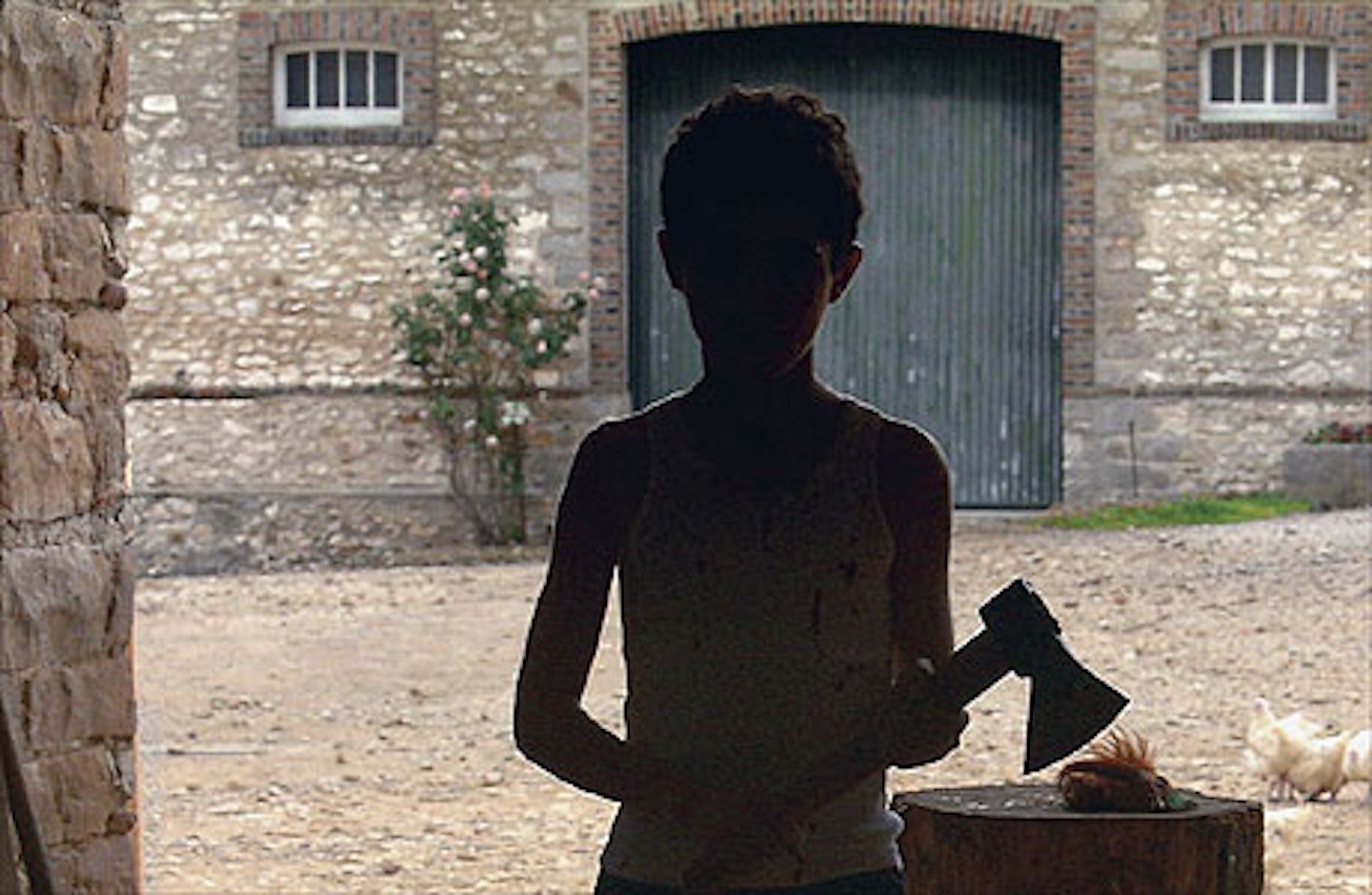
Year: 2005
Country: Austria
Director: Michael Haneke
Taut, arresting and unscored, Hidden is the unmistakeable work of Michael Haneke, an auteur more than a bit fascinated by the worm-like guilt that haunts the middle classes. Auteuil and Binoche are terrific as the fraying couple who start receiving voyeuristic videos in the mail, Benichou equally good as the shadowy figure from the past who Auteuil suspects is sending them. But is it him or someone else? The only thing we can say with any confidence is that it's not LoveFilm. Haneke's slowburn thriller is elliptical, oblique, frustrating and quite, quite brilliant.
Hollywood remake? Not yet, although Martin Scorsese has optioned it. We suspect in any other hands, it might have a slightly different ending.
Prizes A major critical darling, Hidden won Haneke a Best Director prize at Cannes as well as a pile of nominations, including a nod at the Empire Awards for Best Thriller.
What to say... "My films are intended as polemical statements against the American 'barrel down' cinema and its disempowerment of the spectator. (Michael Haneke)
What not to say... "So who are those people on the steps?"
72. Ten Canoes
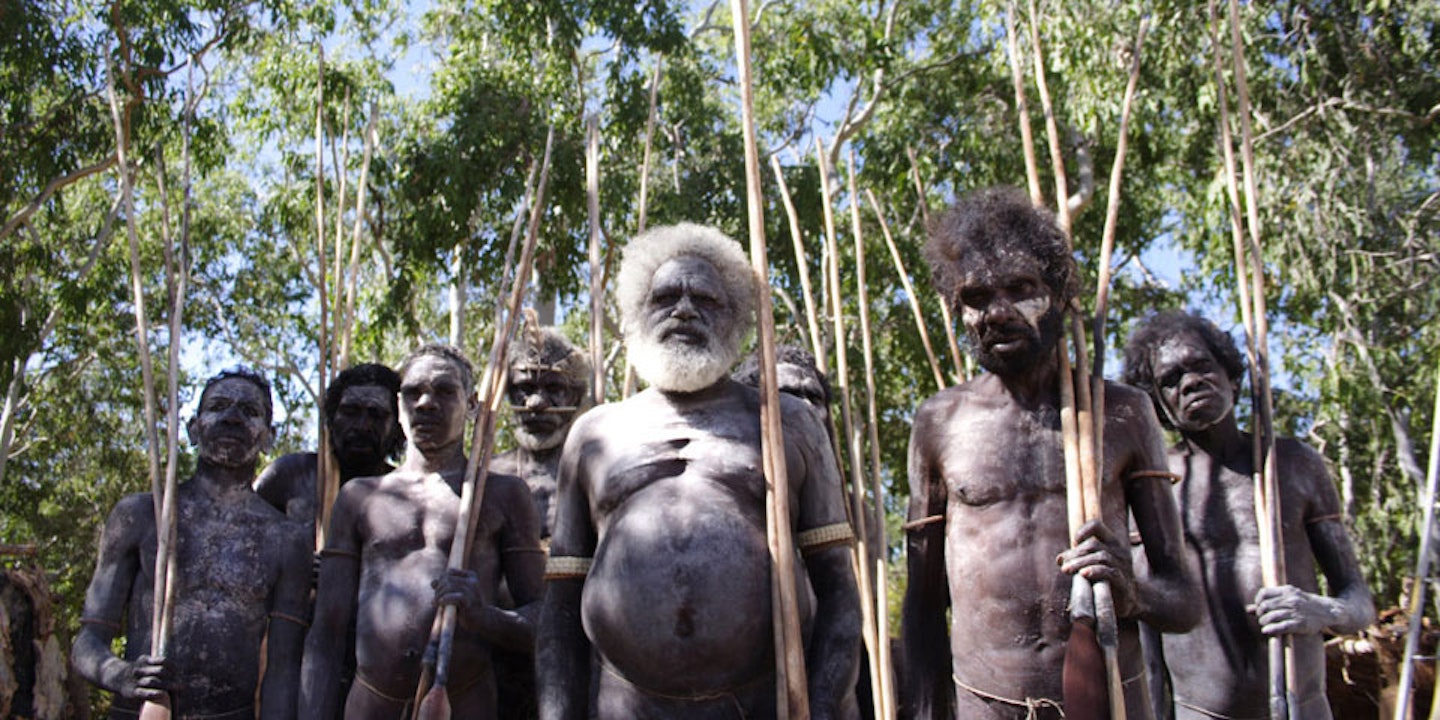
Year: 2006
Country: Australia
Director: Rolf de Heer, Peter Djigirr
Dutch-Australian filmmaker Rolf de Heer's movie was made in true collaboration with the Aboriginal inhabitants of the lush Arnhem Land, and proves an insightful - and entertaining - delve into their rich culture. Opening with a joke from narrator David Gulpilil that this is a real story, rather than one set "in a land far, far away", it unfurls in a surprisingly complex story-within-a-story fashion, each layer using the same actors, as it relates tales of forbidden love, conflict and death. With added fart jokes.
Hollywood remake? Not likely. Unless they attempt 'Ten Keanus'?
Prizes Lauded worldwide; among its many awards, Ten Canoes won six Australian Film Institute Awards in 2006, including Best Film, Best Screenplay and Best Cinematography, and de Heer was given the Un Certain Regard - Special Jury Prize at Cannes that same year.
What to say... "The story... is life."
What not to say... "Where's Crocodile Dundee?"
71. Persona
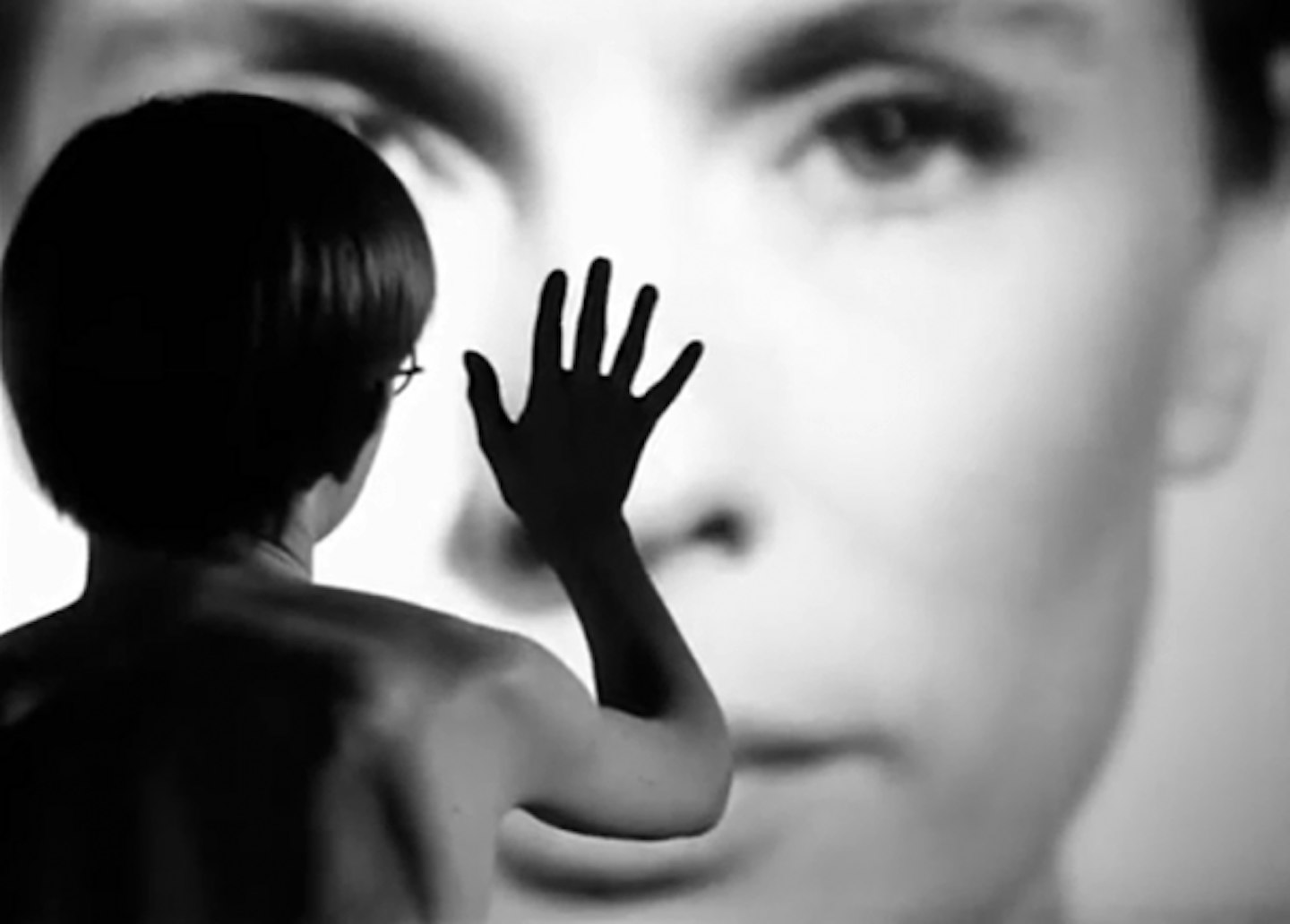
Year: 1966
Country: Sweden
Director: Ingmar Bergman
Perhaps the quintessential Really Serious Euro Art House movie, Ingmar Bergman's Persona is visually stunning, intellectually challenging and emotionally wrenching. A famous actress (Ullmann) loses her speech halfway through a performance and is placed in the care of a nurse (Andersson) in a remote seaside cottage. As the women grow closer and more intimate, Bergman mounts a fascination examination of female identity, played mostly on the faces of these two actresses (Bergman fell in love with Ullmann during the shoot). If this isn't enough, Bergman consistently lays bare the artifice of filmmaking, right up to the final moments where the film burns in the projector. Mesmerising.
Hollywood remake? Robert Altman's 3 Women play similar swapping personality games. Woody Allen has mined Persona his whole career, from the comic riffs on Bergman's close-ups in Love And Death to more serious efforts with Stardust Memories and Another Woman.
Prizes Swept the board at the US National Society Of Film Critics.
What to say... "Today I feel that in Persona I had gone as far as I could go. (Ingmar Bergman)
What not to say... "So, it's like Single White Female then?"
70. Hard Boiled
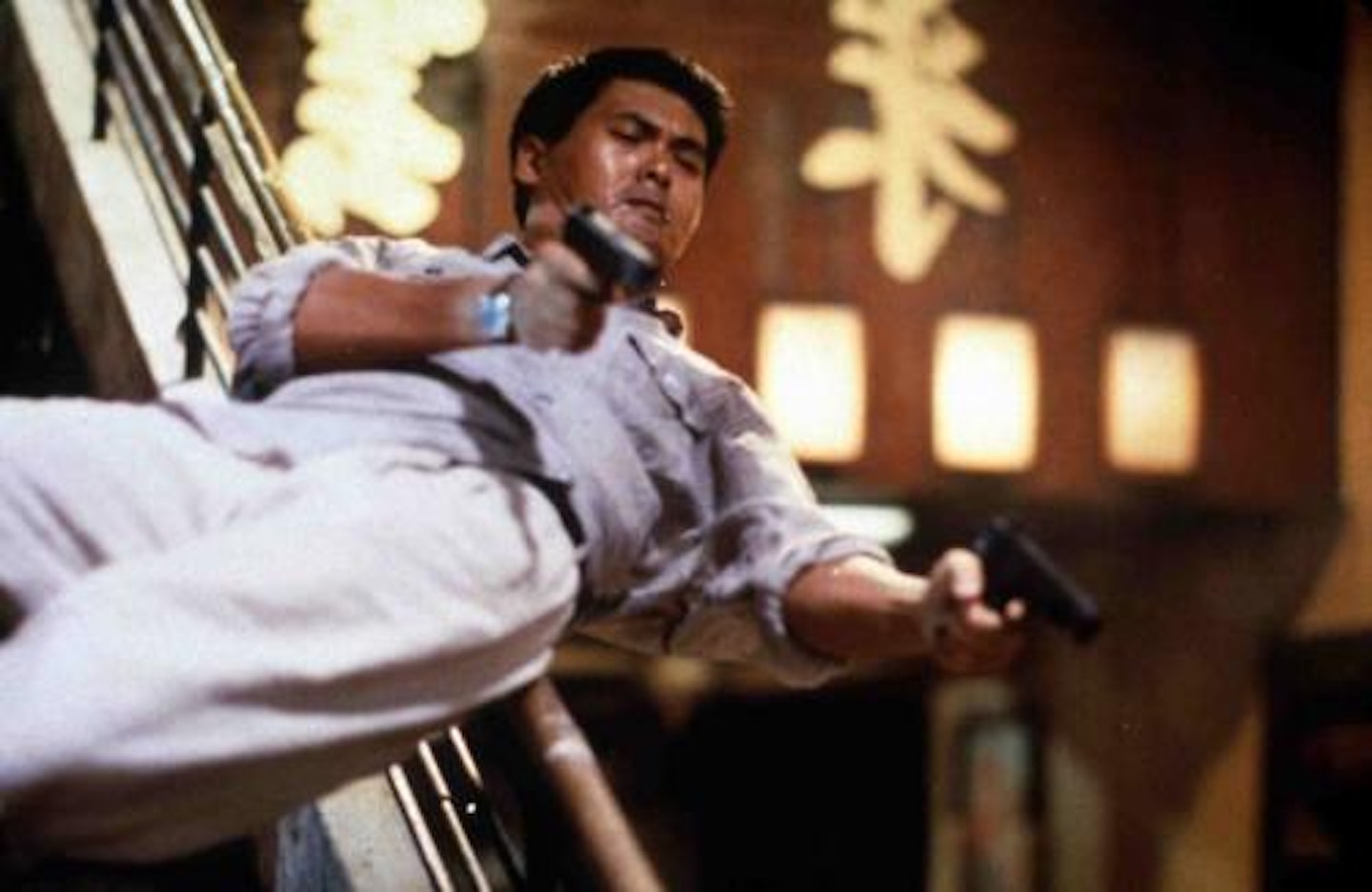
Year: 1992
Country: Hong Kong
Director: John Woo
John Woo's later work might have tailed off somewhat (see Mission Impossible II - or, if you prefer, don't), but his super-stylish Hong Kong period remains virtually untouchable, and Hard Boiled is the best of the lot. Even if it does sacrifice emotional development in Chow's kick-ass cop Tequila on the altar of gun porn, it remains a guns-a-blazing, walls-exploding, tea-room-destroying, hospital-devastating triumph, and a must-have for every action fan. It's so influential that it took Woo global and slung Chow into the big time, all whilst carrying a shotgun in one hand and a surprisingly large baby in the other.
Hollywood remake? No remake is on the cards, though a sequel of sorts was created in 2007 - for Xbox and PS3. Called 'Stranglehold', it continues the Uzi-filled adventures of Tequila in a playable balletic slo-mo shootout format.
Prizes Best film at the Hong Kong Film Awards, but not much else. Pfft. These awards-givers just don't appreciate a well shot-up tea room when they see one.
What to say... "The fact that Tequila plays clarinet is inspired by a real-life cop who played the drums, and it has a jazz soundtrack because, well. John Woo really likes jazz."
What not to say... "Hard Boiled, yeah? Classic film noir, classic. Raymond Chandler ain't got nothing on this one."
69. Ringu
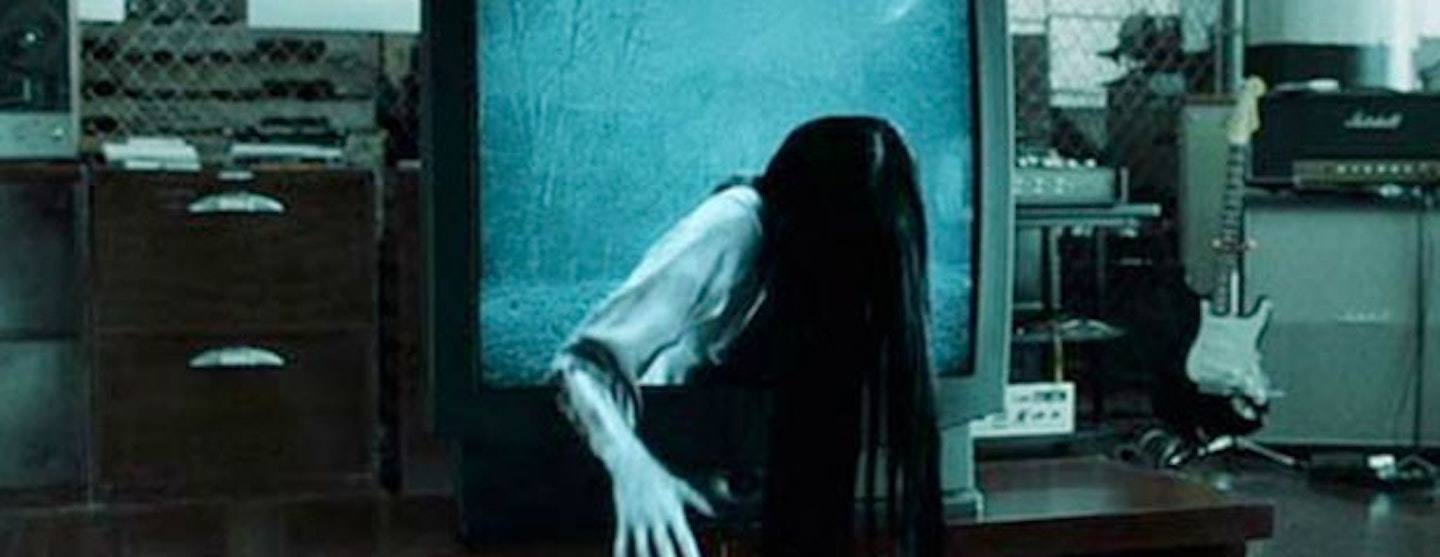
Year: 1998
Country: Japan
Director: Hideo Nakata
The best J-horror around is a first-class exercise in mood generation, a murky, doom-laden tale of a cursed videotape that visits death, in the form of a terrifying black-haired spirit named Sadako, upon anyone who watches it. Brilliantly directed, with little emphasis on jump scares and shock moments, by Hideo Nakata, it remains enormously influential, and has spawned a veritable army of sequels and copycats. Even the death of VHS hasn't stopped it being scary.
Hollywood remake? Oh yeah. Been there, done that, bought the T-shirt, with Gore Verbinski directing Naomi Watts in a movie that rivalled the mood of the original but then, as with so many blockbusters, failed to show restraint and showed the demon girl's face. And the less said about the sequel - directed by Nakata himself - the better.
Prizes A smattering of genre festival awards. Sadako will not be happy.
What to say... "The first - and best - of the rash of Japanese 'this [insert random object here] is CURSED!' movies. You won't look at your telly in the same way again."
What not to say... "I always preferred Pete Best."
68. Solaris
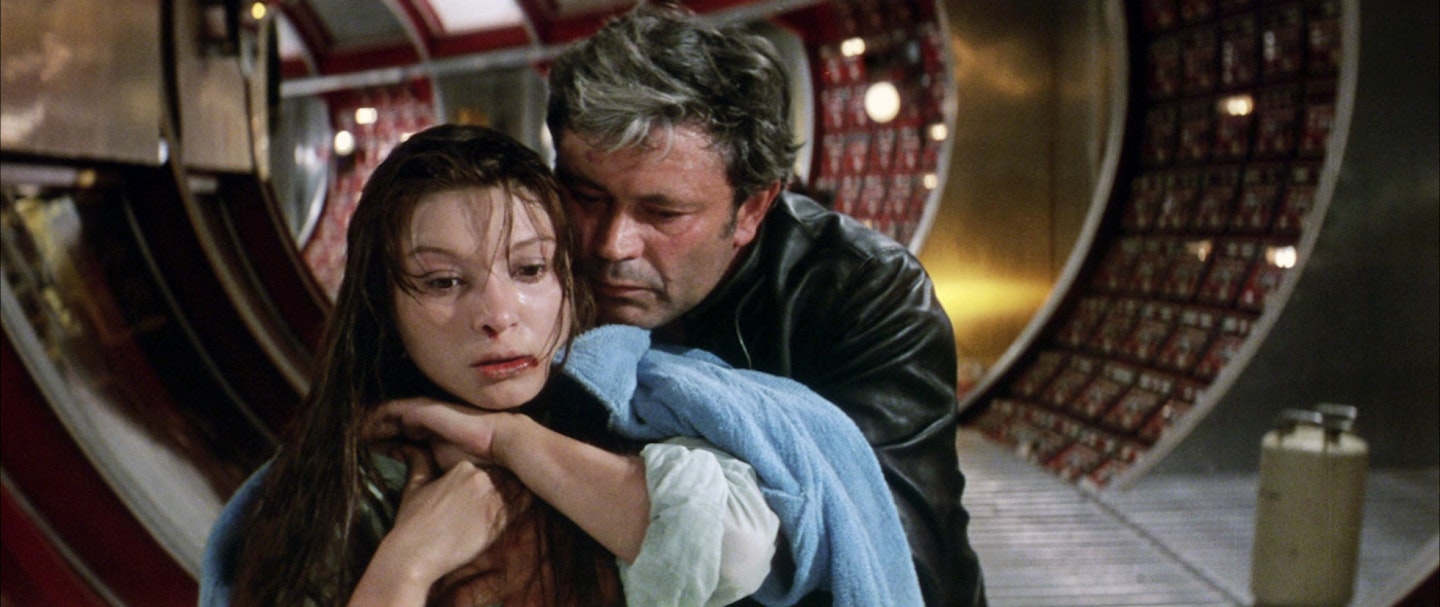
Year: 1972
Country: Russia
Director: Andrei Tarkovsky
The distant planet of Solaris, with its swirling oceans and hallucinatory qualities, is the setting for psychologist Kris Kelvin's (Donatas Banionis) interstellar mission. But is it malevolent or just misunderstood? The appearance of Kelvin's dead wife, a product of Solaris' mysterious powers, suggests the former, but Predators this ain't. Tarkovsky is more interested in the impact of outer space - and internal grief - on the human psyche than in Death Stars and xenomorphs.
Hollywood remake? Steven Soderbergh's much shorter but tonally very similar Solaris turned back to the source material, Stanislaw Lem's novel, as well as Tarkovsky for inspiration, casting George Clooney in the role Kris Kelvin role.
Prizes The Grand Jury Prize at Cannes.
What to say... "Sci-fi doesn't come any more cerebral than this."
What not to say... "When do the TIE fighters happen?
67. The Vanishing
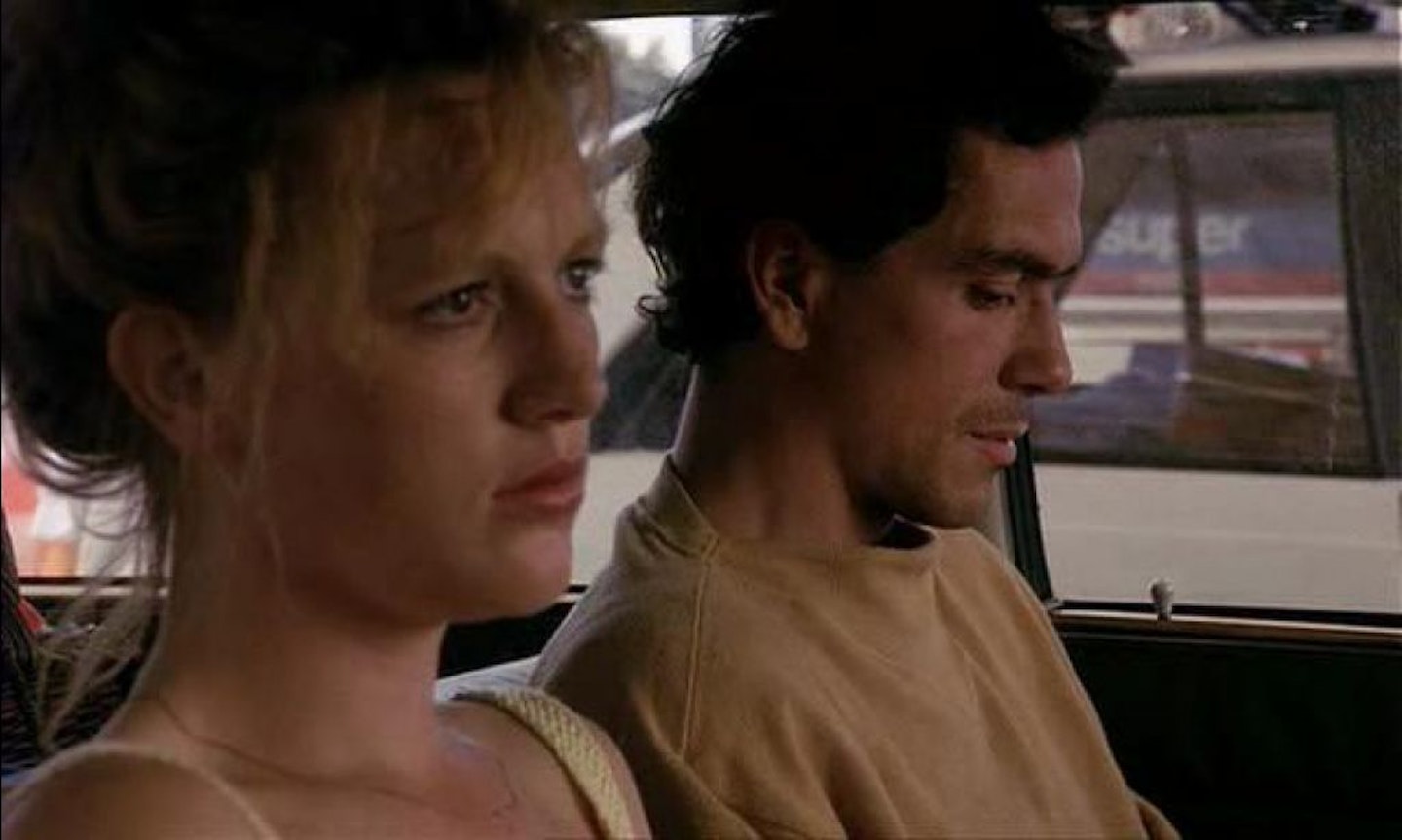
Year: 1988
Country: Holland
Director: George Sluizer
Subverting the usual thriller structure, Sluizer apparently answers all the big questions early on - who the bad guy is, what he's doing - and then spends the rest of the running time turning the screws on our hero anyway as the latter attempts to unravel the disappearance of his girlfriend at a busy service station three years before. It's deeply unsettling, at times all-too plausible and all the more horrifying for it - and if you're not discomfited by the ending, you may want to consider a career as the hardest person in the world.
Hollywood remake? Why yes, with Sluizer himself directing a pre-24 Kiefer Sutherland in the Donnadieu role, with Jeff Bridges as the killer and a pre-Speed Sandra Bullock as the abductee. However, the critics weren't quite so taken with the remake - perhaps because no one should treat our Sandy like that.
Prizes Ter Steege won a European Film Award as Best Supporting Actress.
What to say... "Vanishing is refreshingly free of manipulative scenes involving running bath water, jagged-edge cutlery and bunnies in the saucepan." (Desson Howe, Washington Post)
What not to say... "It's the oxy-action that really does the trick."
66. Crouching Tiger, Hidden Dragon
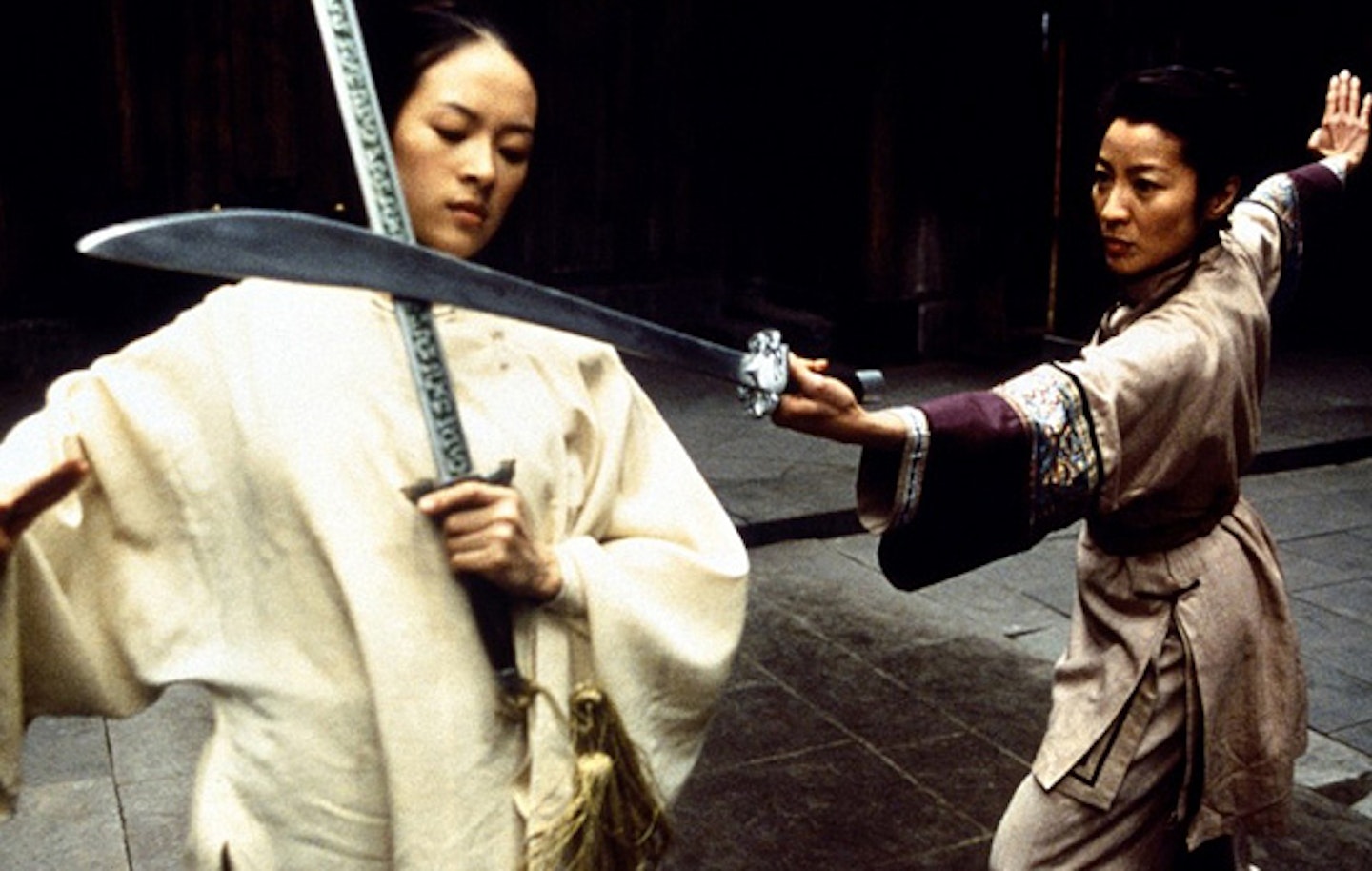
Year: 2000
Country: China
Director: Ang Lee
The plot, involving the recovery of a stolen sword and a couple of pairs of lovers, might seem a little far fetched at times, and the subtitled dialogue a touch too stately, but the sheer scale of Crouching Tiger's setting, cinematography and fight choreography will leave all but the most stone-hearted impressed. Delicate, dialogue-heavy scenes are torn apart by Yun-Fat and Zhang as they blast up and over treetops, through the air, and into their enemies with such balletic grace you can scarcely believe your eyes. Unlike anything seen before, it's further proof that Ang Lee is a master of all trades and jack of none (apart from superhero movies, arguably. Ahem.).
Hollywood remake? A comic book version has been made, as has a video game and a TV movie - following more-or-less the same plot, but with different actors and 1 1/2 hours more fighting put into the mix.
Prizes It landed four Oscars (Foreign Language Film, Original Score, Cinematography, Art Direction), four BAFTAs (Foreign Film, Music, Costume and Director) and many, many more.
What to say... "The title 'Crouching Tiger, Hidden Dragon' refers to the belief in Chinese mythology that you should keep your strengths hidden, which is reflected, of course, in the characters themselves."
What not to say... "Crouching Tiger, Dragon dancing up a tree, more like."
65. Un Chien Andalou
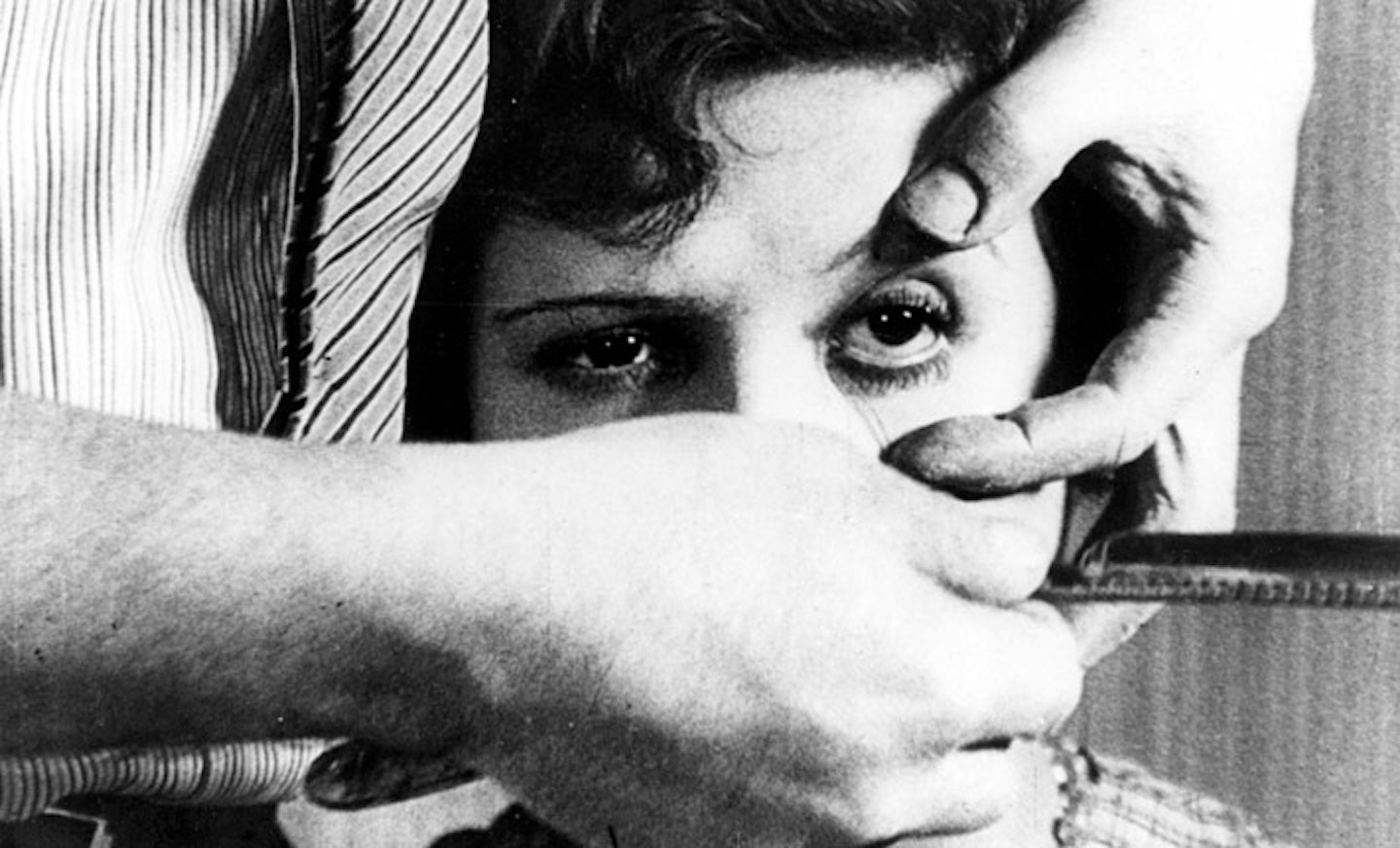
Year: 1929
Country: Spain
Director: Luis Bunuel
Try to imagine the craziest dream that David Lynch might have had after eating a plateful of cheese just before bed, and it still won't come close to the sheer bonkersosity of Un Chien Andalou. Collaborating with ol' buddy and surrealist artist Salvador Dali, first-time filmmaker Luis Bunuel throws together a series of random unconnected incidents - ants emerge from the wound in the palm of a hand, dead donkeys lie on two pianos and, in one of cinema's most shocking moments, an open eye is slashed in half with a razor in huge close up - for a shocking, blasphemous, blackly funny 17 minutes. At the first showing, Bunuel carried stones in his pocket for fear of being lynched. 80 years on and Un Chien Andalou has lost none of its power to disturb.
Hollywood remake? Don't be daft. But a huge influence on pop promo and tons of bad student films since.
Prizes None.
What to say... "Thank God I'm an atheist." (Luis Bunuel)
What not to say... "It's no Lassie, is it?"
64. Wings of Desire
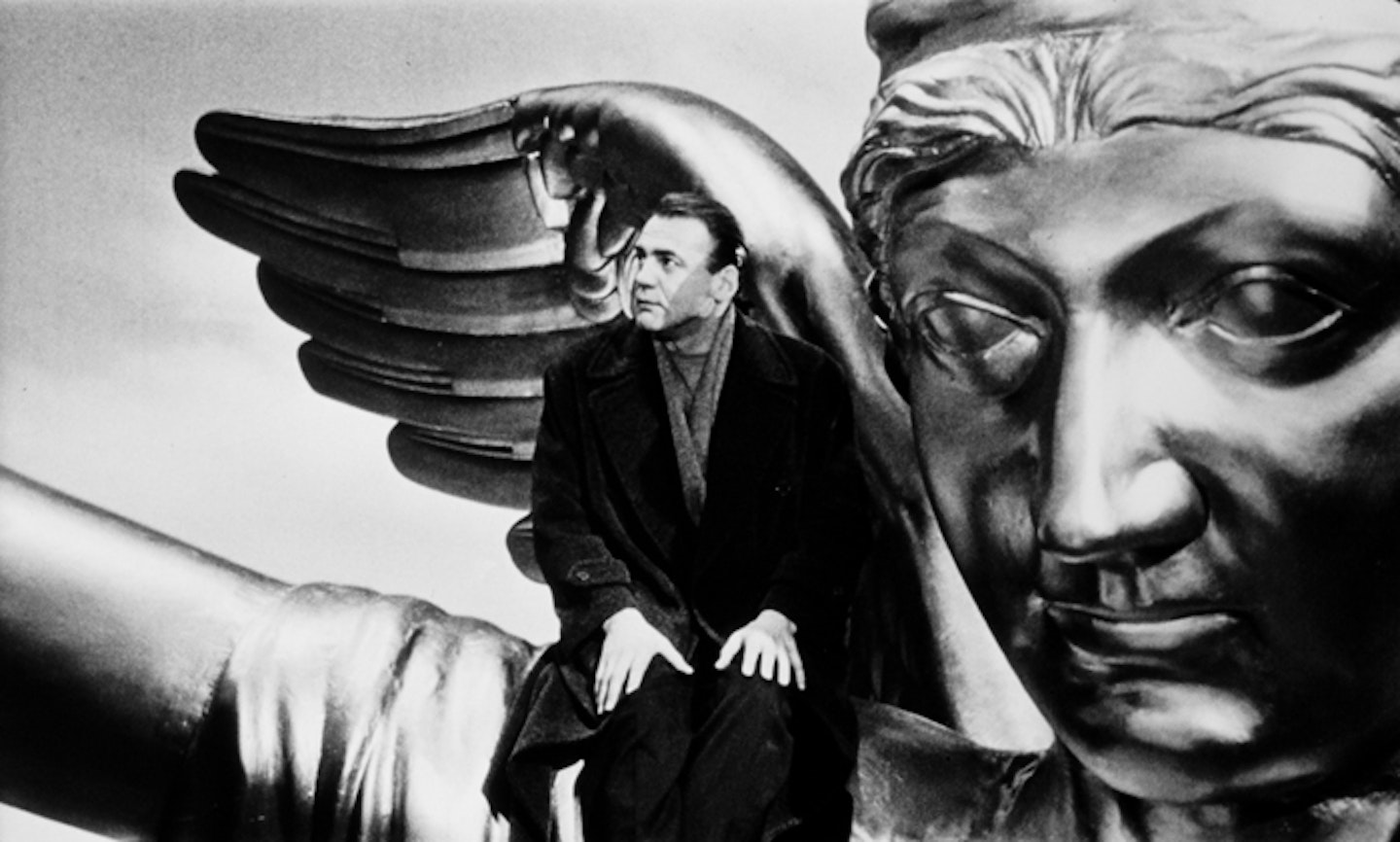
Year: 1987
Country: Germany
Director: Wim Wenders
The contrast of a grim West Berlin setting and the magical images of overcoat-clad angels among us is what lingers longest in the mind after watching this Wim Wenders effort - that, and maybe Bruno Ganz' beatific smile. As the angel who falls in love with a trapeze artist and starts to long for mortality, Ganz is a literally otherworldly observer, but it's only when he abandons his wings that the film leaps into colour and life, like a reverse Wizard of Oz. And any film that casts Peter Falk as a formerly divine being gets our vote.
Hollywood remake? Yes, as City of Angels with Nicolas Cage in the Ganz role and Meg Ryan as the object of his affections. While some of the same arresting imagery manages to make the transition, the ending's all messed up and let's face it: Dennis Franz is no Peter Falk. There's also a sequel called Faraway, So Close, for which U2 provided the title song.
Prizes This won two German and two European Film Awards, Best Director at Cannes, and nominations at the BAFTAs and Cesars.
What to say... "Well of course angels hang out in libraries. That just makes sense."
What not to say... "What's Columbo doing there?"
63. A Prophet
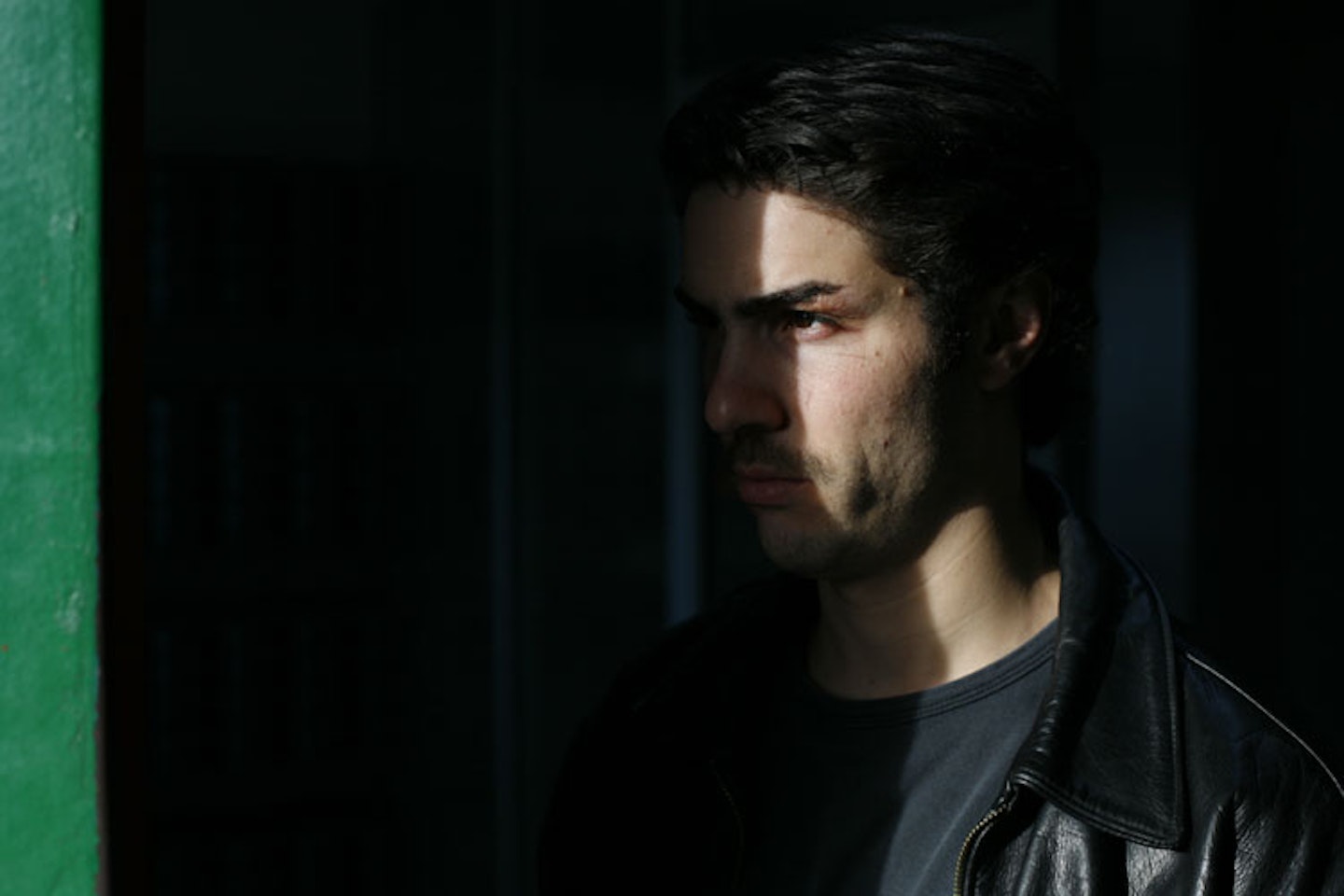
Year: 2009
Country: France
Director: Jacques Audiard
Audiard's great achievement here is to bring a social truism - prison makes petty criminals into hardened ne'er-do-wells - to living, breathing life. Malik, played by the extraordinarily good Rahim, enters prison bewildered and acting tough to cover insecurity; from that point we see his evolution into veritable hard-case. The basic structure, as a man evolves into a perfect criminal, may seem familiar from The Godfather to GoodFellas and everything in between, but the addition of prison walls compresses the action, amps up the tension and increases the importance of razor blades to uncomfortable levels.
Hollywood remake? No sign of one yet, but somehow we wouldn't rule it out in this case.
Prizes Nine Cesars, a BAFTA for Best Foreign Film, the Grand Prix at Cannes and an Oscar nomination - a respectable haul.
What to say... "The degree of civilization in a society can be judged by entering its prisons. (Fyodor Dostoevsky)
What not to say... "Can't be much of a prophet if he ended up in prison instead of getting the lottery numbers."
62. 8 1/2
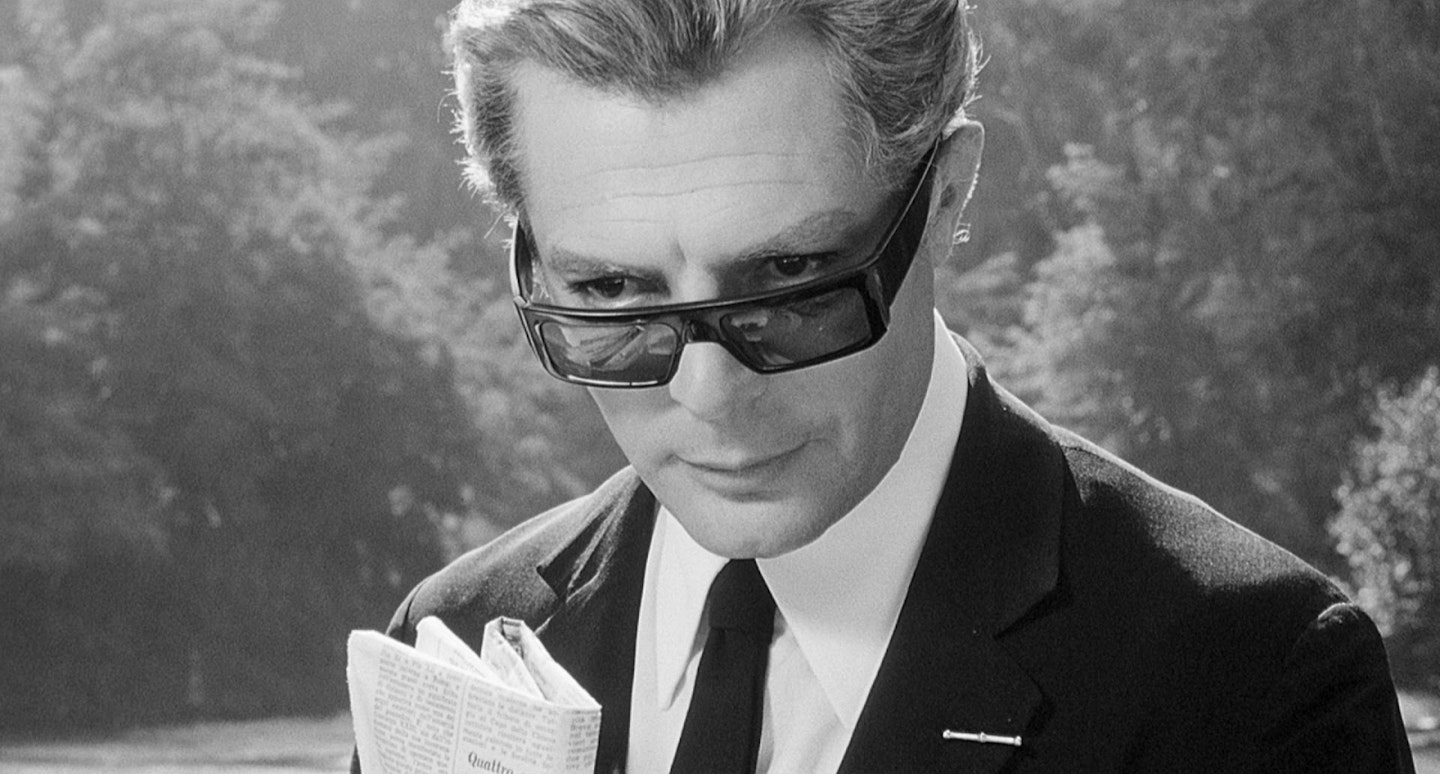
Year: 1963
Country: Italy
Director: Federico Fellini
Some directors make autobiographical films. Fellini's 81/2 strays way beyond autobiography into the nakedly confessional. The first film where Fellini literally loses the plot in favour of the dream-like, this weaves in and out of the memories, fantasies and relationships of celebrated film director Guido Anselmi (Fellini alter-ego Mastroianni), as he is struggles to find inspiration for his latest (science fiction) film. Complex, sexy, endlessly imaginative and boasting moments of magic, this is one of the best films about filmmaking, cinema's greatest evocation of a creative mental block and perhaps the fullest expression of the term Fellini-esque.
Hollywood remake? Rob Marshall's Nine is the song and dance version of 8 1/2. The long list of films 8 1/2 has inspired includes Alex In Wonderland, Day For Night, All That Jazz, Stardust Memories, Living In Oblivion and 8 Women.
Prizes It took home Best Foreign Language Film and Best Costume Design at the Oscars (Fellini was also nominated as Best Director). Also nominated for Best Film at the Baftas.
What to say... "Did you know that the title comes from the number of films that Fellini had made - seven solo ventures and three collaborations that he counted as halves?"
What not to say... "Coming soon: Brett Ratner's 8.5..."
61. Knife in the Water
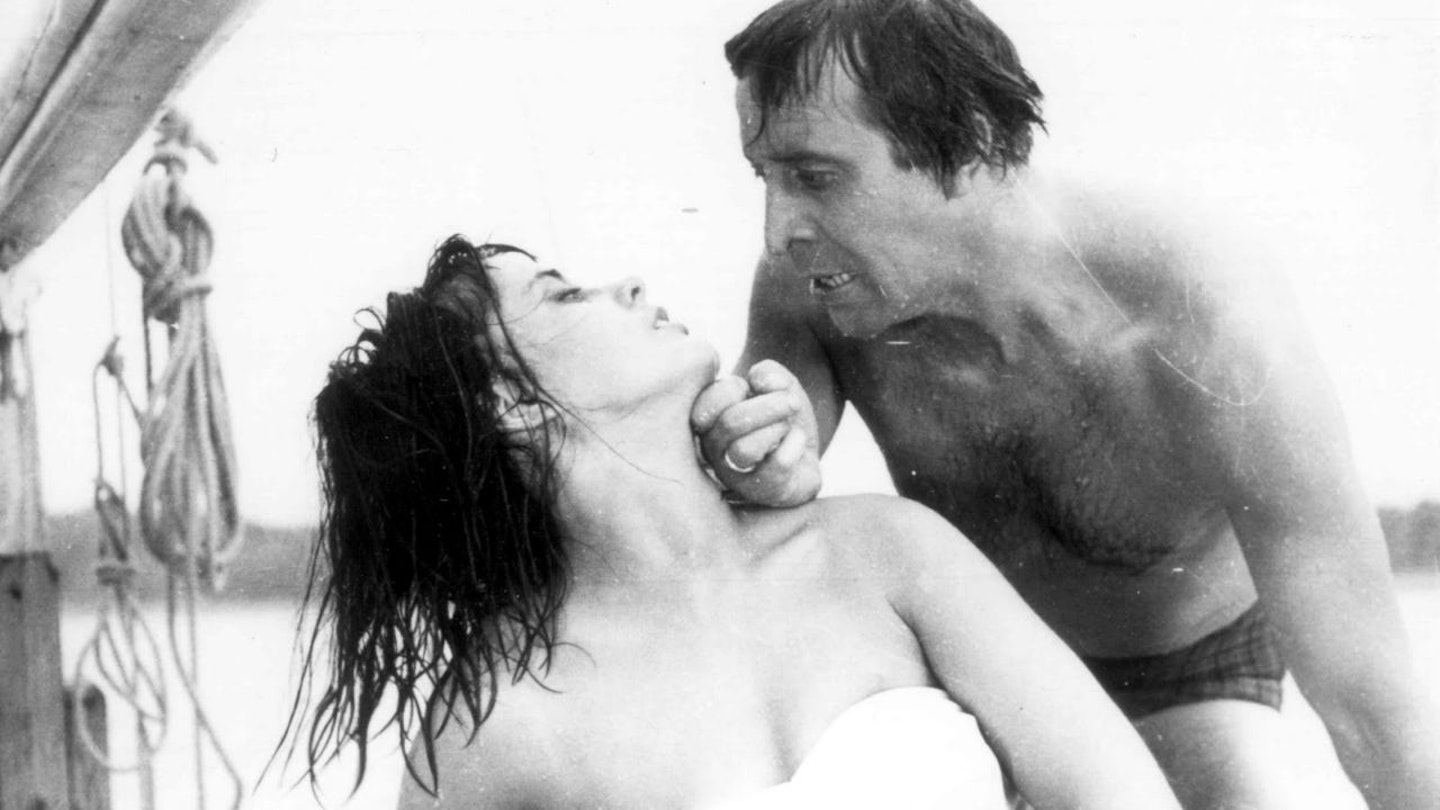
Year: 1962
Country: Poland
Director: Roman Polanski
Polanski's first film - his only Polish feature - has a concise, assured controlled quality remarkable in a debut, as a married couple pick up a hitchhiker who joins them on a boating excursion. Already a master at using confined spaces to reveal psychological states, Polanski spins the tale of three people holed up in a small boat into an absurdist black comedy-drama of sexual jealousy and the generation gap. Taut, tense, half tongue-in-cheek, half powerfully sinister, it is debatable whether Polanski has ever made a better film. And that includes Chinatown.
Hollywood remake? Films such as Dead Calm and The Talented Mr. Ripley have purloined its foreboding at-sea atmosphere.
Prizes Top honours at the Venice Film Festival, a Best Foreign Film Oscar nom and the highly coveted cover of TIME magazine.
What to say... "My films are the expression of momentary desires. I follow my instincts, but in a disciplined way. (Roman Polanski)
What not to say... "Paedo!"
60. Jean de Florette / Manon des Sources
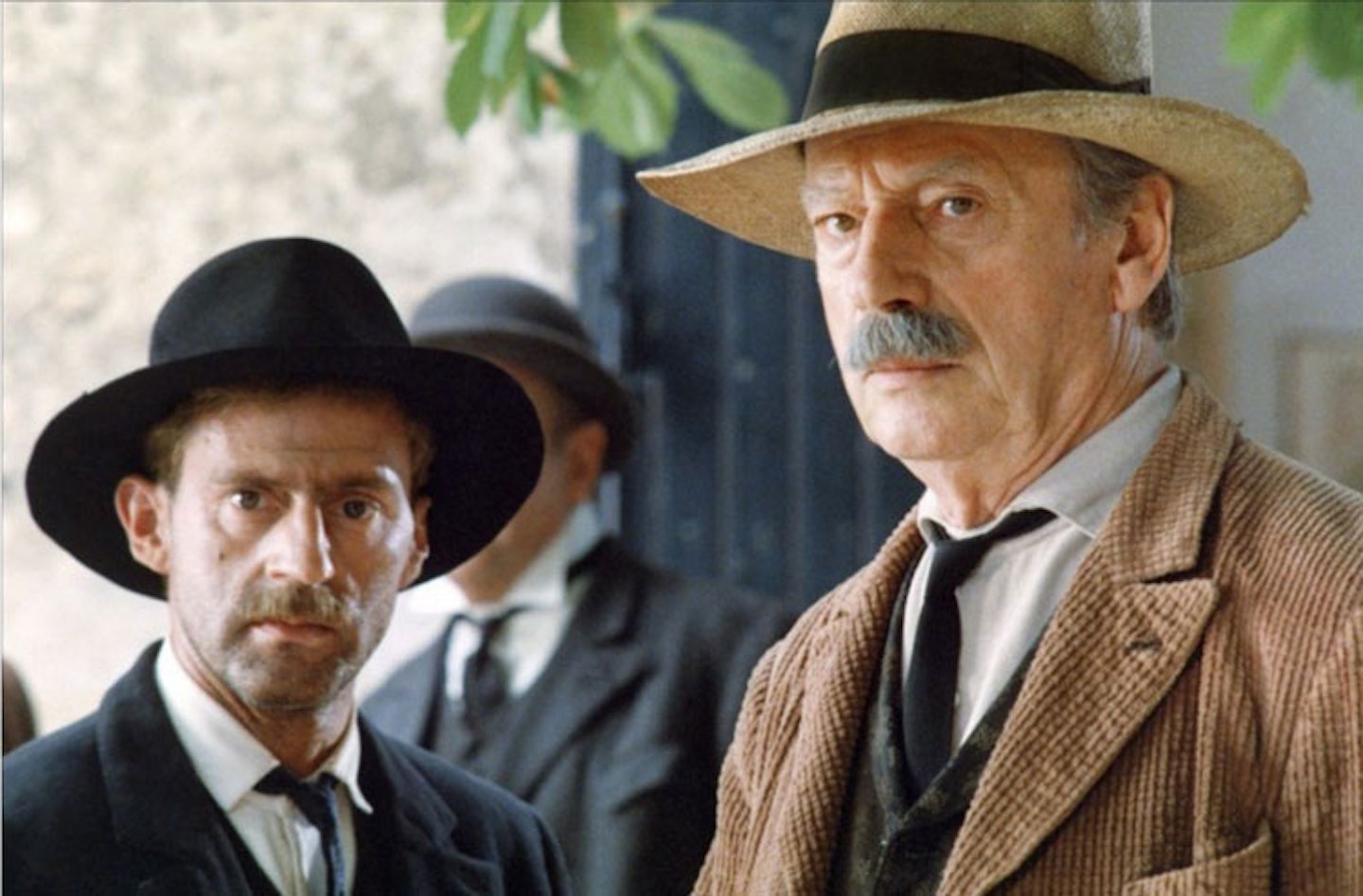
Year: 1986
Country: France
Director: Claude Berri
A two-part adaptation of Marcel Pagnol's L'Eau des Collines series (which the author translated into novels from his original screenplay, confusingly), this microcosmic epic of neighbourly jealousy, greed, lust and revenge somehow turns a thorough downer of a story into a compelling triumph for justice and good, thanks to an all-star Gallic cast and landscapes straight out of Van Gogh. In the first part, Gerard Depardieu's tax collector moves his family to the country to create a pastoral idyll; only to have his every effort blocked by the machinations of his neighbours; in the second, his daughter uncovers the plot.
Hollywood remake Nope. In Tinseltown, revenge is a dish best served smoking, not as cold as this.
Prizes Jean de Florette took one Cesar, for the fantastic Auteuil, but four BAFTAs. Manon took two Cesars, one each for Auteuil and Beart.
What to say... "The Cahiers du Cinema crowd may dismiss it as overly-literate 'cinema du papa', but you can't deny its effectiveness as drama."
What not to say... "Yeah, but it's no Year in Provence, is it?"
59. Heimat
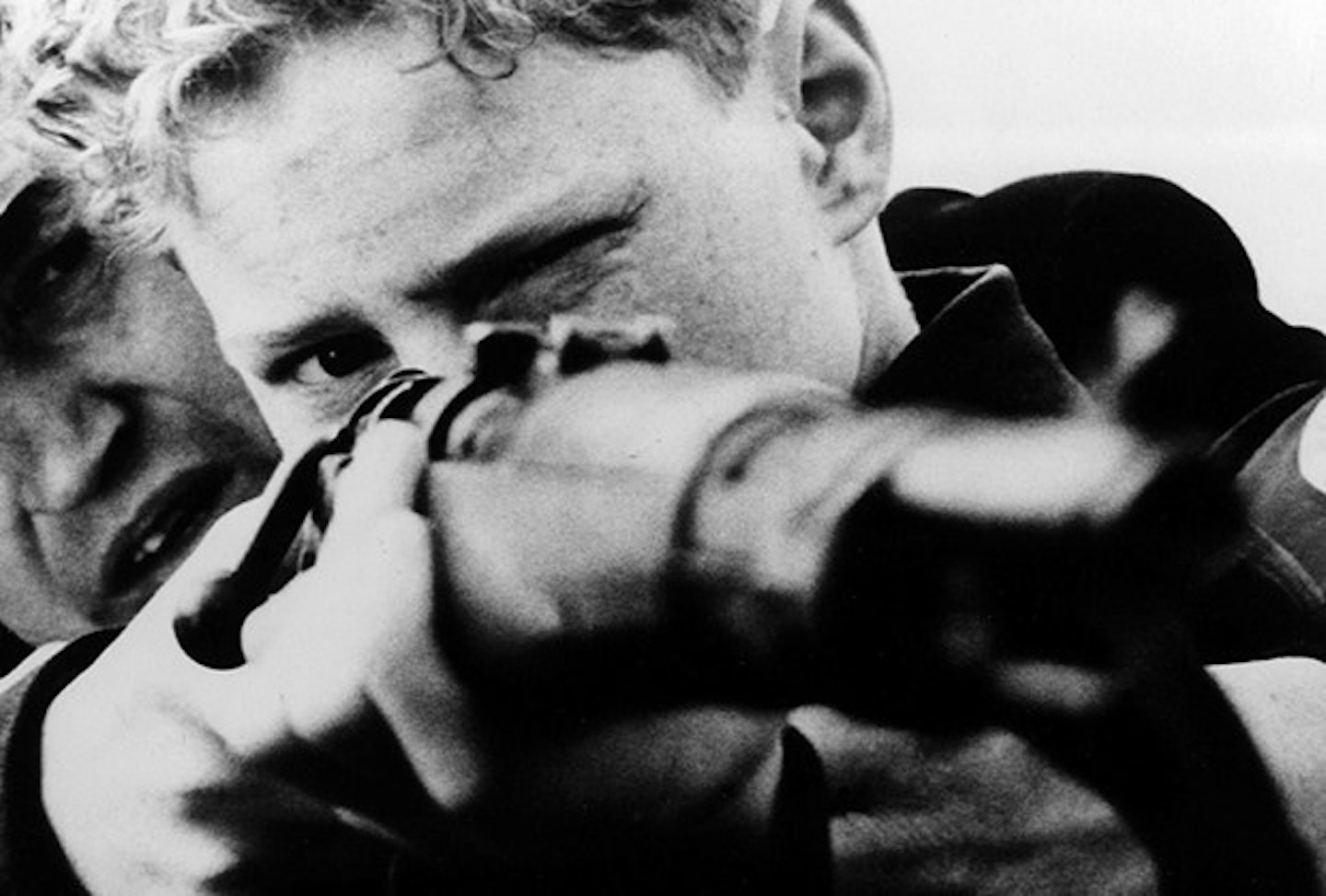
Year: 1985
Country: Germany
Director: Edgar Reitz
Imagine The White Ribbon, Triumph Of The Will, Wings Of Desire and Goodbye Lenin sellotaped together and you'd still be nowhere near the inter-generational scope of Edgar Reitz's century-spanning German epic. And by epic, we mean EPIC. This is 15-and-a-half involving hours of human drama set in the village of Schabbach and orbiting around the Simon clan as they endure the Great War, the rise of the Nazis, post-war depression and some really stodgy cabbage dishes. With the superb Marita Breuer's matriach, Maria, the redoubtable heart of this titular homeland, and admirable support by an inexperienced but universally terrific cast, Heimat is War And Peace and all the bits in between.
Hollywood remake? No, but by crikey we'd like to see them try.
Prizes A Special Prize at the Venice and a Best Actress gong for Breuer at the Bavarian Film Awards.
What to say... "Did you know Stanley Kubrick had a still of Maria's coffin hanging over his desk?"
What not to say... "It's HOW long?"
58. Persepolis
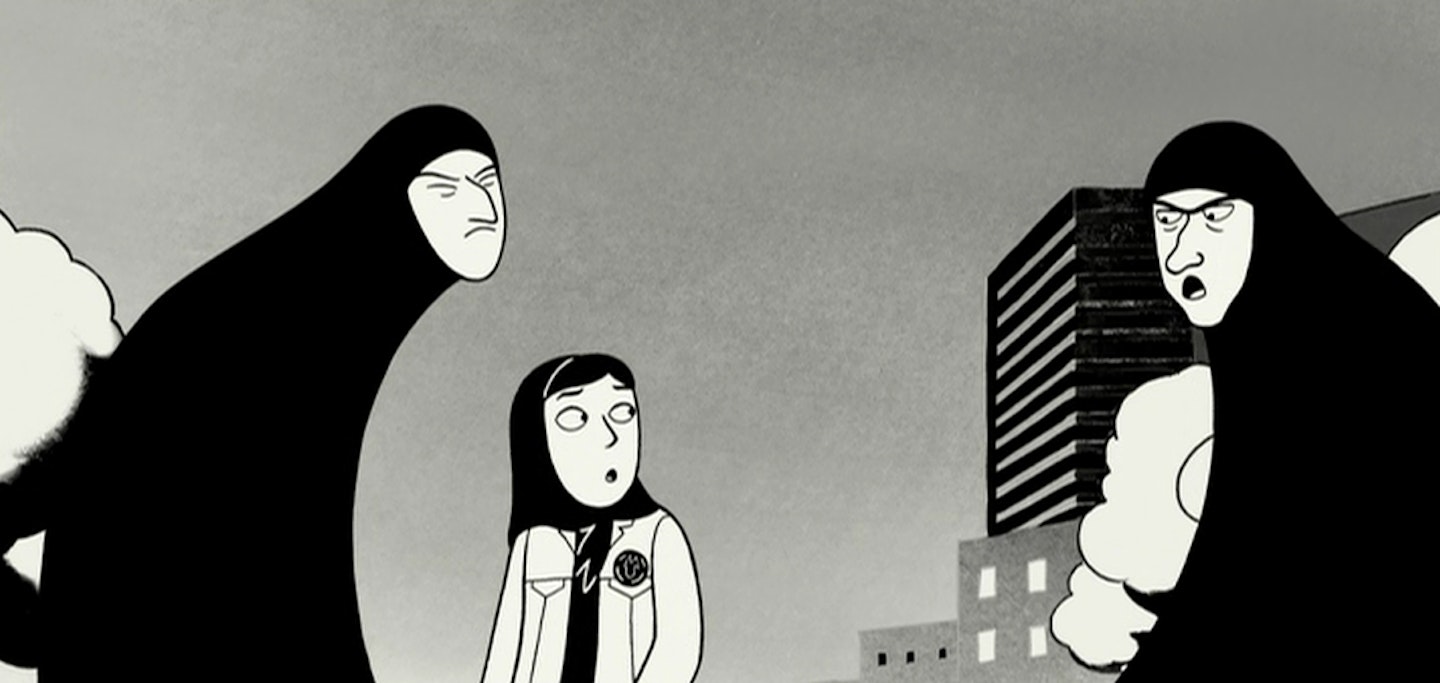
Year: 2007
Country: India
Director: Vincent Paronnaud, Marjane Satrapi
This black-and-white autobiographical tale of growing up in Iran, through revolution and war, and coming of age in Europe, is charming, funny, angry, shocking, romantic and perpetually surprising. The stark visuals, lifted in most cases directly from the comic but also referencing traditional shadow puppetry techniques, somehow make the story ring more true. Marjane may not be God's prophet, as she believed she was as a young child, but she's one of the most dynamic and feisty cinema heroines ever to threaten torture against one of her playmates.
Hollywood remake? This is too personal and too unique a picture to lend itself to a remake per se, although there was a special English dub of the film for international audiences with Sean Penn, Iggy Pop and Gena Rowlands lending their vocal stylings to the soundtrack.
Prizes It was nominated for the Animated Oscar, BAFTA and four Annies. It won the Jury Prize at Cannes and two Cesars, though, so Ratatouille couldn't stop it winning everything.
What to say... "Persepolis is a legitimate descendant of the Disney classics: a coming-of-age tale that manages to be both harrowing and exuberant." (Richard Corliss, Time)
What not to say... "Isn't that where Superman lives?"
57. Central Do Brasil
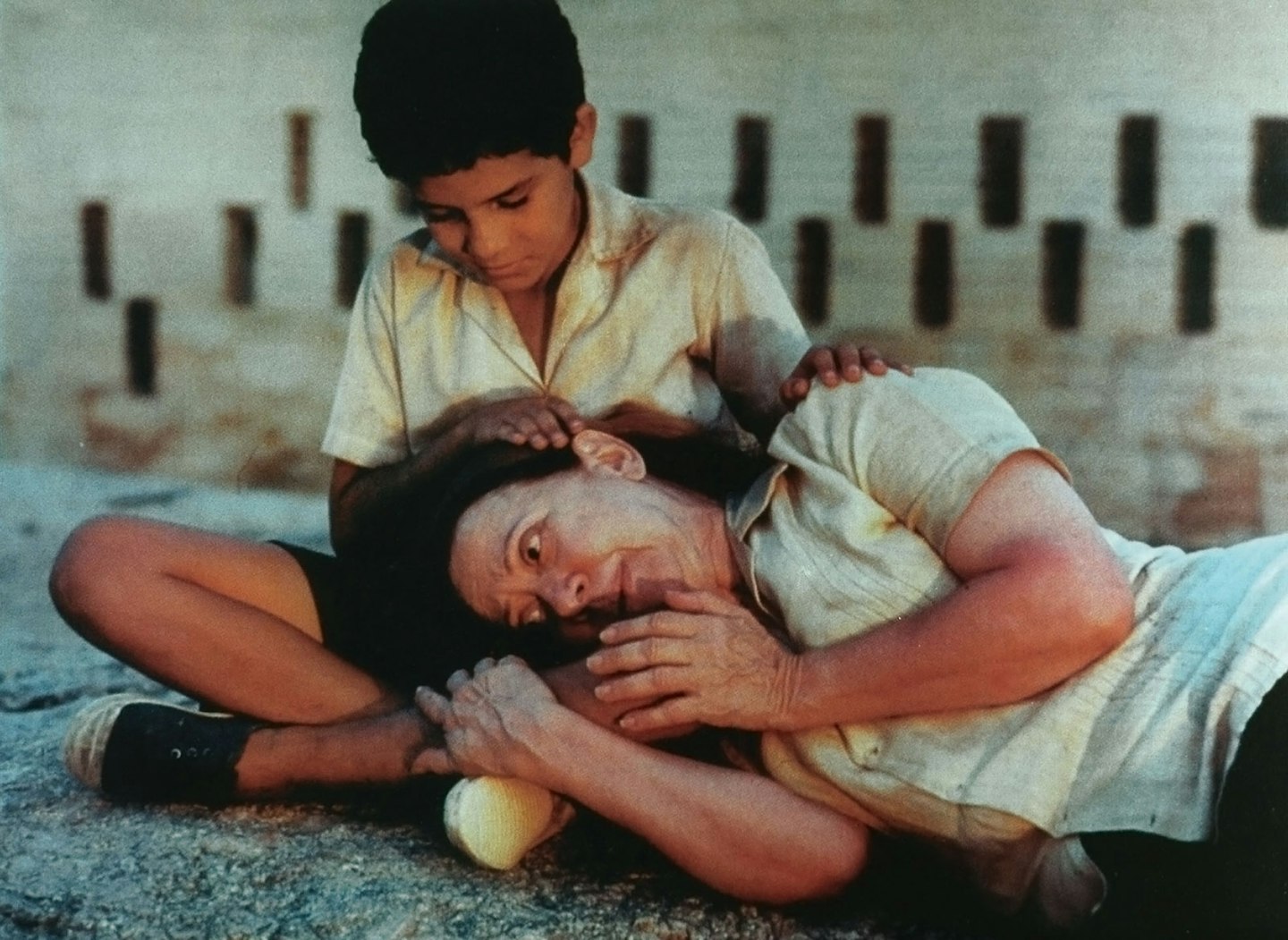
Year: 1998
Country: Brazil
Director: Walter Salles
An odd couple movie, in essence, Central do Brasil sees a hoary old ex-schoolmarm taking a lost child whose mother has died off for an adventure - an adventure to find his father. Over the course of their journey they bicker and fight and deal with the increasingly awful setbacks that come their way, all with such heartfelt and genuine delivery that it's easy to see why the two were showered with prizes after its release. Its simple premise belies the complexity in this beautiful pair of characters, prickly and authentic. It's touching, beautifully shot, wonderfully scored, and even has time to show the dark underside of Brazil while it's at it.
Hollywood remake? Not in a month of Sundays.
Prizes A BAFTA, two Oscar nods (Best Actress, Best Foreign Film), a Golden Bear for Best Film, a Silver Bear for Best Actress, a Golden Globe, and a partridge in a pear tree.
What to say... "Vinicius de Oliveira, who plays the lost child Josue, was picked for the role out of 1500 applicants."
What not to say... "Is this the one about Tolstoy or the one where Peter Dinklage hangs out with Bobby Cannavale?"
56. Belle de Jour
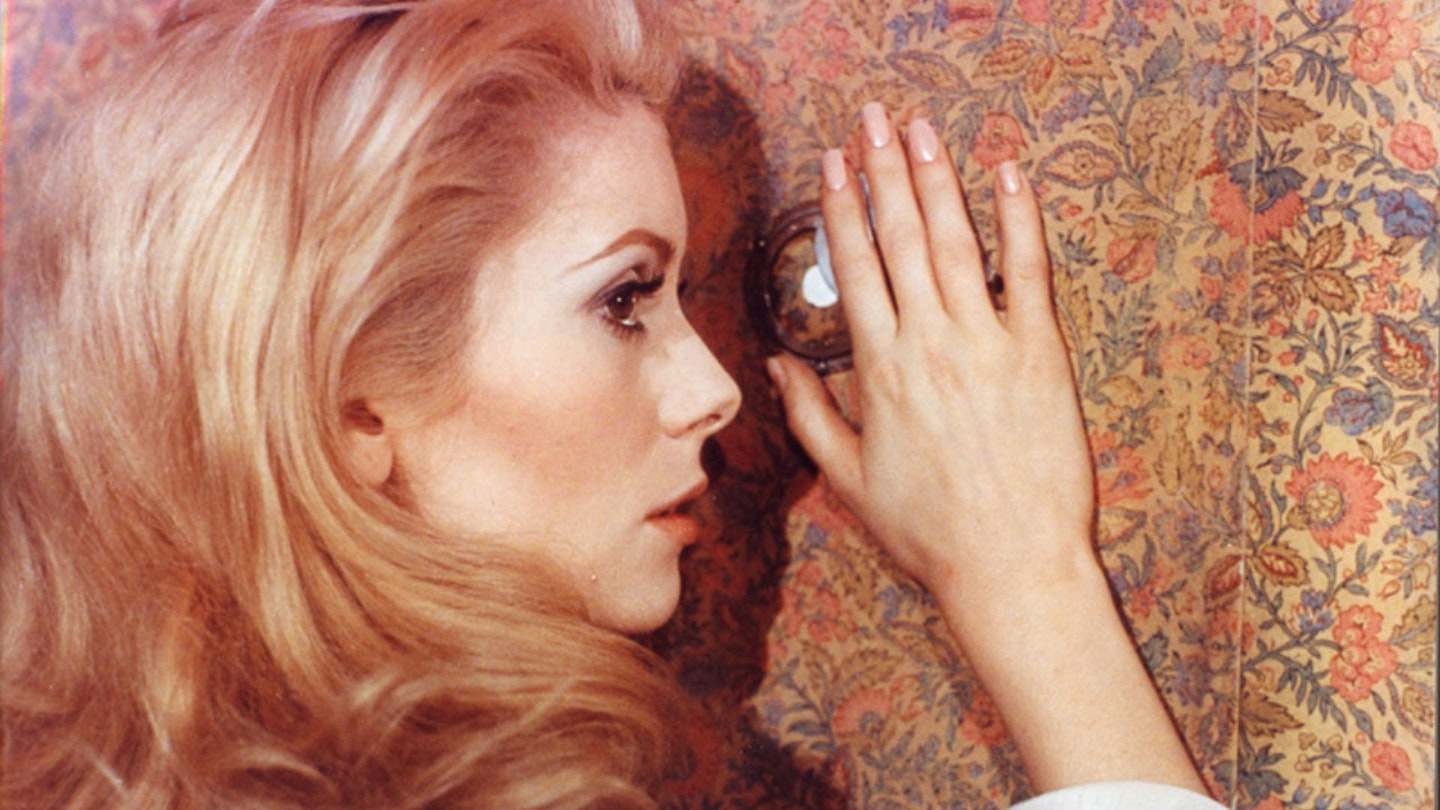
Year: 1967
Country: France
Director: Luis Bunuel
Wit. Elegance. Erotica. Subversion. Luis Bunuel wore these qualities like a medals and Belle du Jour is amongst his most highly decorated flicks. Catherine Deneuve whips up a tour de force as Severine, the bored, frigid housewife of a doctor who takes pleasure spending her afternoons working at a brothel entertaining ever more kinky clients. There is no actual sex in Belle de Jour - the key "sex" scene involves the contents of a small lacquered box - but it is hard to think of a more erotically charged film. Unsurprisngly, this became Bunuel's biggest hit at the age of 67.
Hollywood remake? Remade in various soft porn guises, chiefly The Violation Of Claudia.
Prizes Won the Golden Lion at Venice. Deneuve received a Best Actress BAFTA nom.
What to say... "My biggest commercial success? I attribute more to the marvellous whores than to my direction. (Bunuel)
What not to say... "Billie Piper, phwoar!!!!!!!"
55. Lagaan
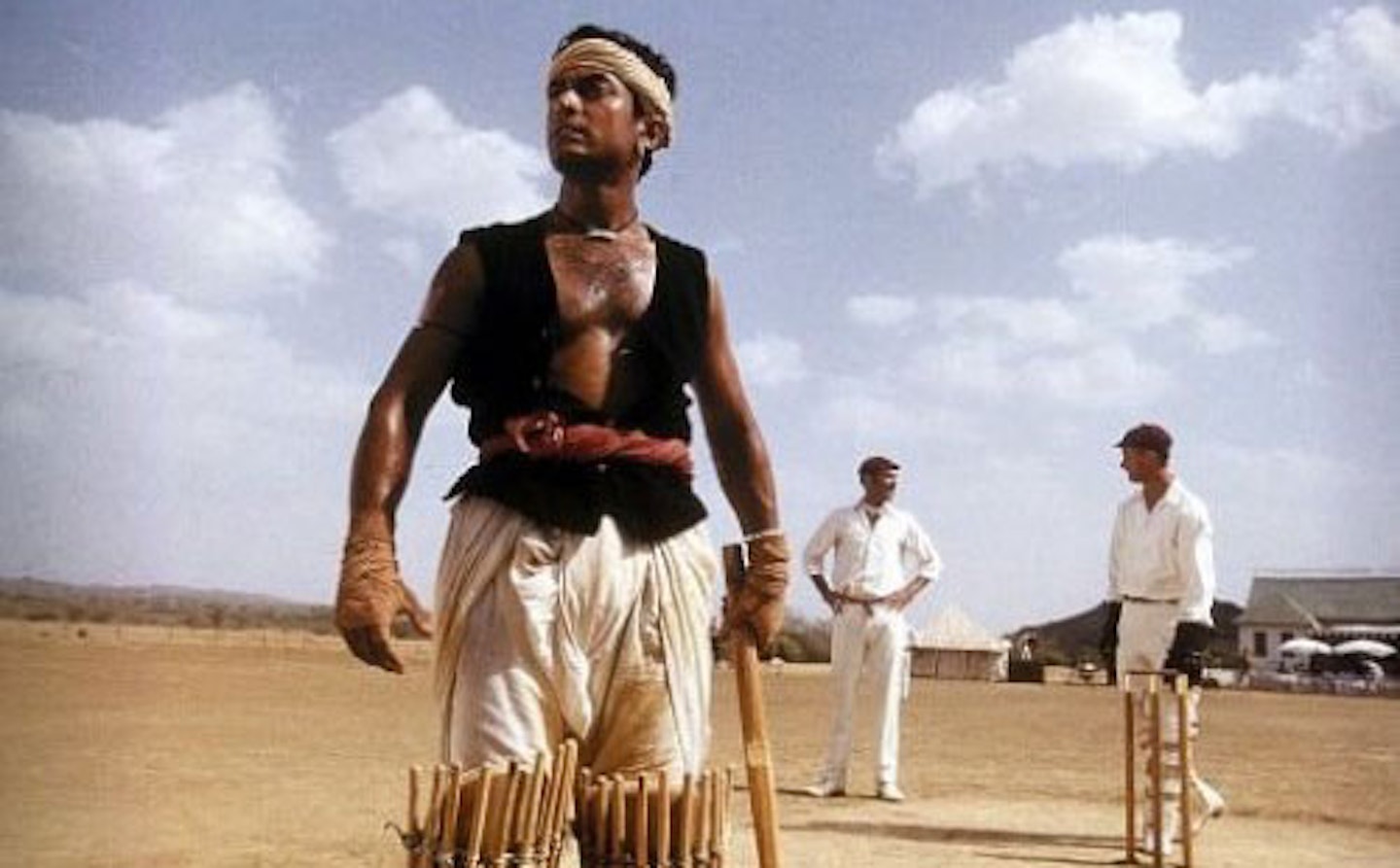
Year: 2001
Country: India
Director: Ashutosh Gowariker
The first glimpse most Western audiences had had of Aamir Khan, this ripping yarn had the Bollywood titan taking on the Raj with nothing more than dash, bravado and a cracking off-drive. Khan is farmer Bhuvan, the leader of a drought and tax ('lagaan')-stricken village, who challenges the British authorities to a winner-takes-all game of cricket. Subtitled 'Once Upon A Time In India', there's more than a touch of Spaghetti in the showdown that grips and turns like a Shane Warne legbreak, and throws in some very hummable tunes for good measure.
Hollywood remake? No; there are probably a few too many dance numbers.
Prizes A nomination for Best Foreign Language Film at the Oscars came to nought (Bosnian War drama No Man's Land took the honour).
What to say... "A well-crafted, hugely entertaining epic that has the spice of a foreign culture." (Roger Ebert)
What not to say... "The English team should have played an extra spinner."
54. Festen
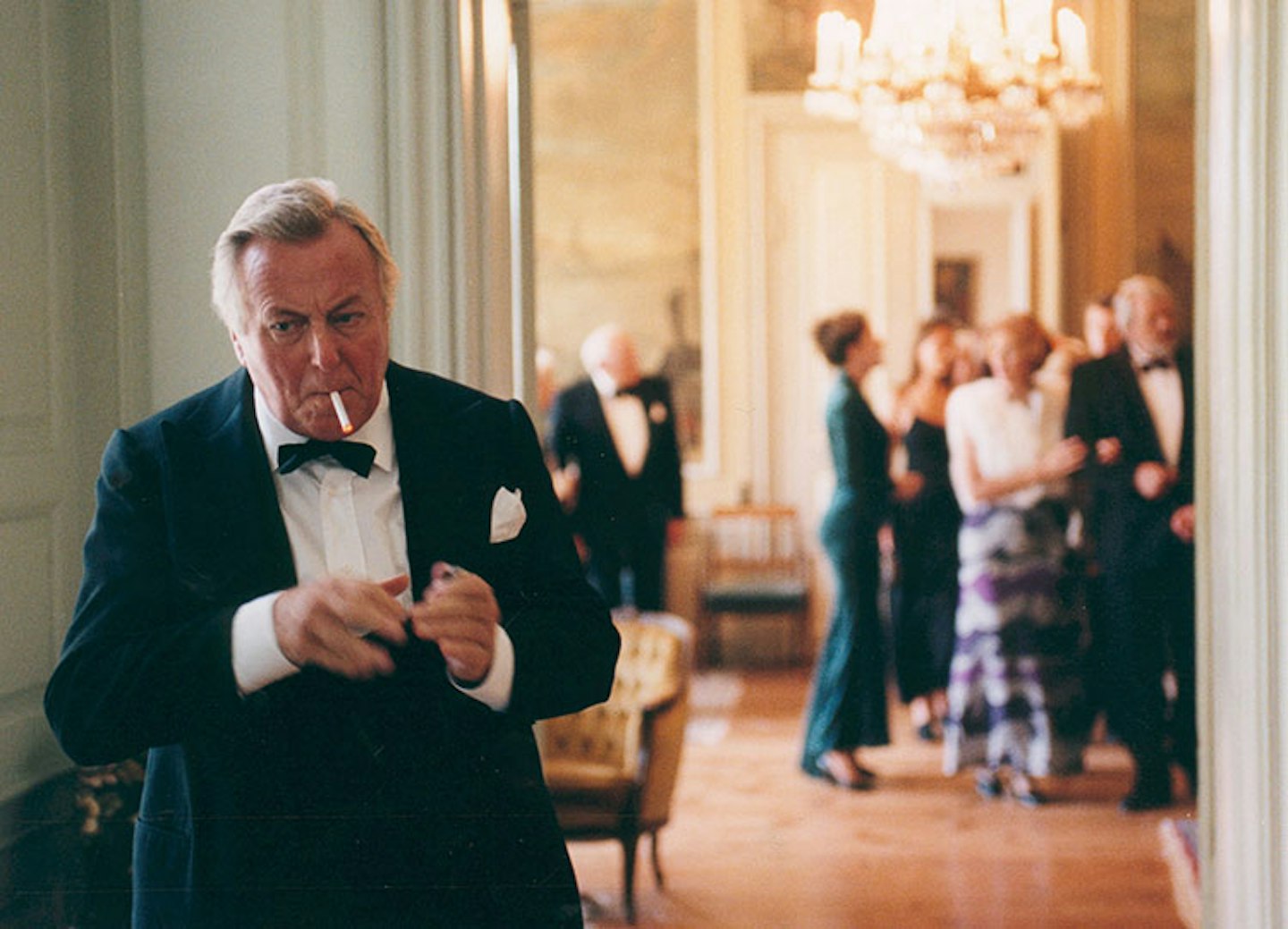
Year: 1998
Country: Denmark
Director: Thomas Vinterberg
Boasting more rules than Fight Club, the hullabaloo around the Dogme manifesto - camerawork must be handheld; sound must be diagetic; biscuits must be plain - can distract from what a terrific film Festen is. Funny yet disturbing, homemade yet highly polished, the twisted tale of a Danish patriach's 60th birthday celebrations is full of seeming contradictions that fit together perfectly. Yes, it's rare for a dinner party to feature revelations of sexual abuse, incest and rape, but then this is no ordinary dinner party. No ordinary film, either.
Hollywood remake? Considering the Dogme 95 ethos is about as welcome on a Burbank lot as a puppy with a tummy upset, it's perhaps no surprise that Hollywood has left well alone. Festen has been remade in Mexico, though, and repeatedly adapted for the stage - there's even an Afrikaans version.
Prizes A critical darling, Festen was rapturously received on the festival circuit. It won a Jury Prize at Cannes and Independent Spirit Award, among others.
What to say... "Dogme 95's manifesto frees Festen from the constraints of conventional filmmaking."
What not to say... "Is it in 3D?"
53. All About My Mother
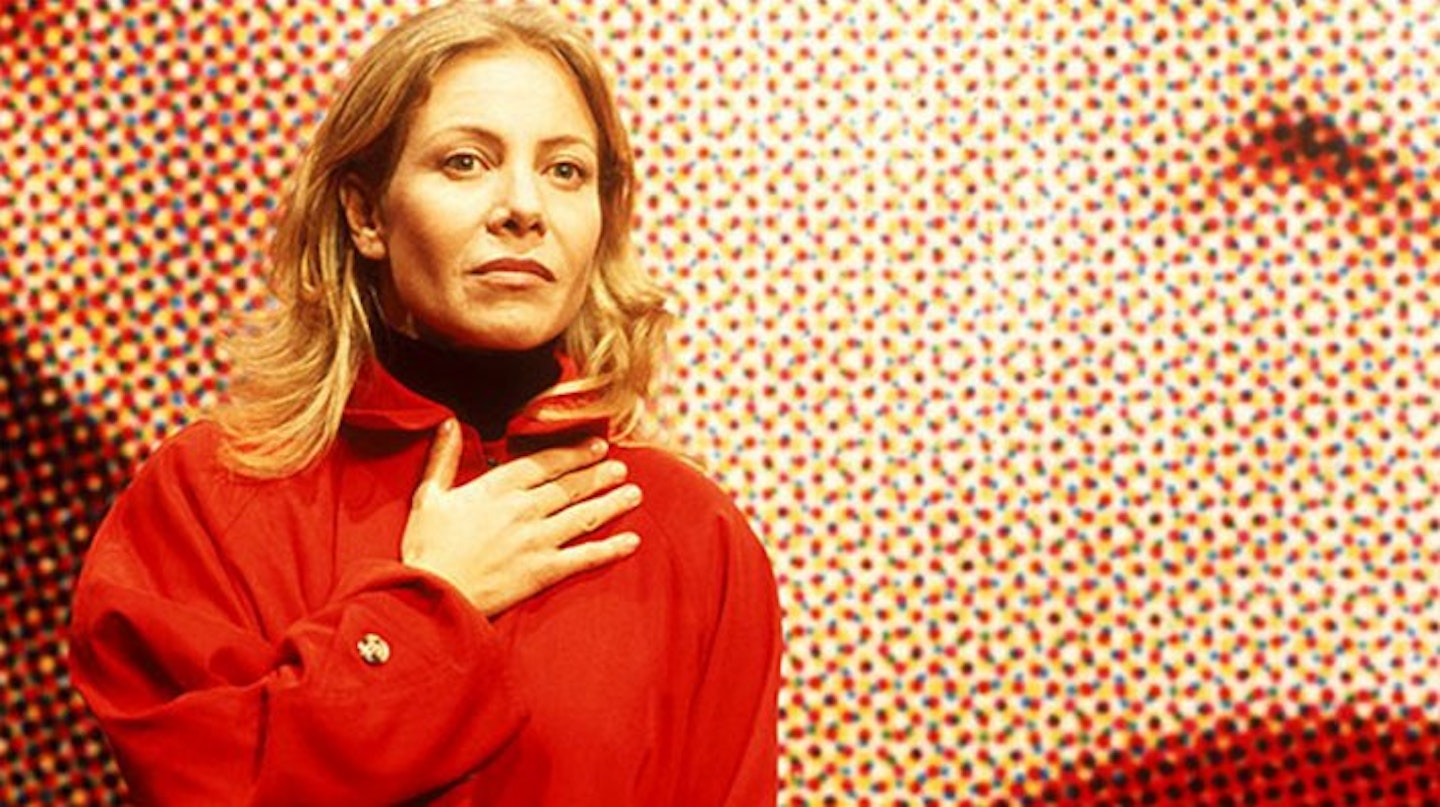
Year: 1999
Country: Spain
Director: Pedro Almodovar
This offbeam, heartfilled Almodovar packs the narrative zip of a soap opera and the emotional wallop of a Douglas Sirk melodrama. It also takes the Spanish auteur away from his Castilian stomping ground and on to Barcelona. There, Cecilia Roth's grieving mother connects with the father of her child, now a chick-with-a-dick prostitute, and a richly-drawn array of actresses, hookers and the odd pregnant nun. Sparkling, warm and witty, it's a fitting celebration of mums everywhere.
Hollywood remake? No, although it has been successfully adapted in the West End by Aussie playwight Samuel Adamson with Diane Rigg as actress Huma Rojo.
Prizes If there's a critic who didn't love All About My Mother, they kept pretty quiet. As Best Foreign Language Film it won an Oscar, Cesar, BAFTA and a Golden Globe for good measure. It also collected a small box of Goyas and a massive sack of critics' awards.
What to say... "The greatest celebration of actresses since All About Eve."
What not to say... "Shit, I forgot Mother's Day again."
52. Touki Bouki
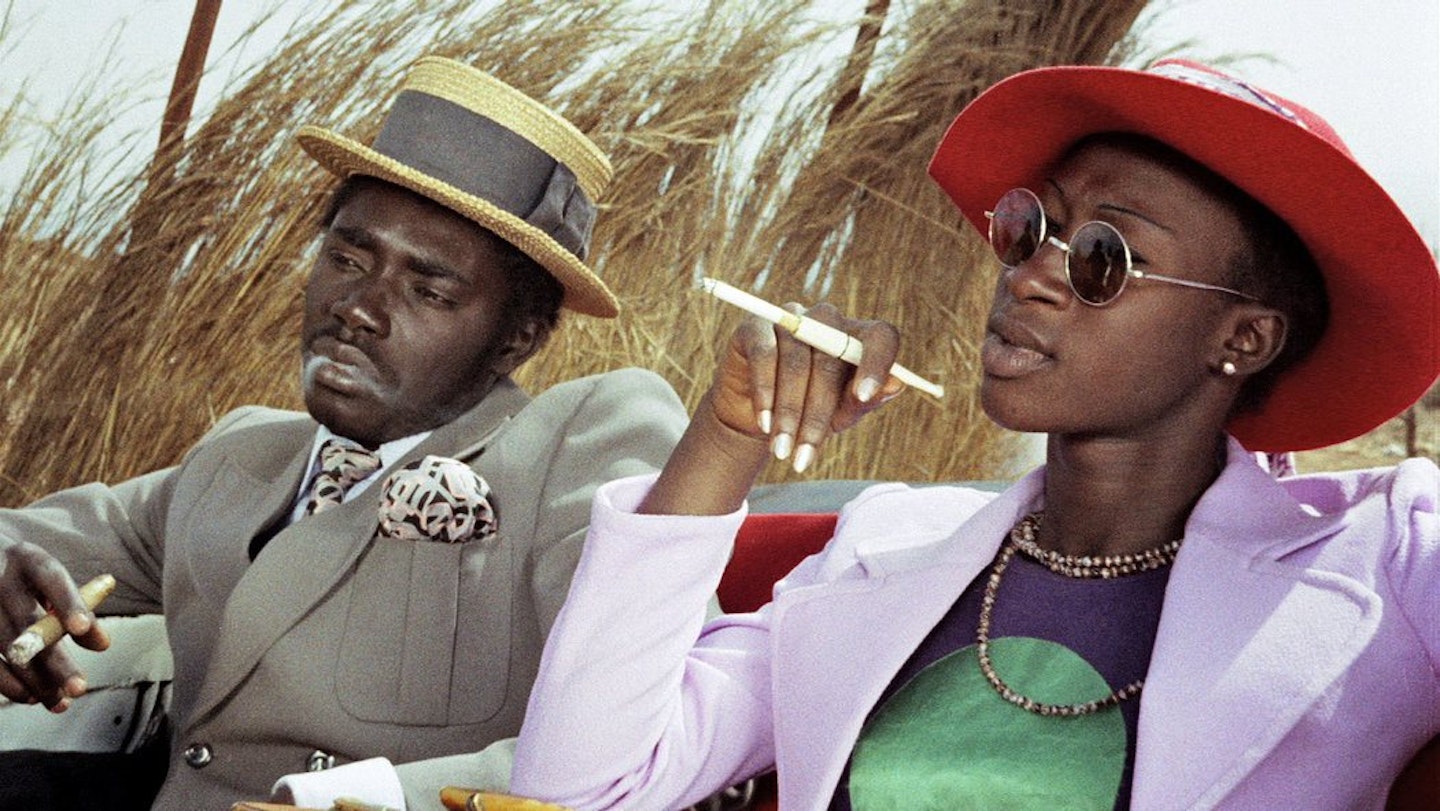
Year: 1973
Country: Senegal
Director: Djibril Diop Mambety
Because this comedic tale of a young motorbike riding herdsman (Niang) committing petty crimes in Dakar to help fund his escape to Paris with his girl (Mareme Niang) is shot through with French New Wave fizz that flies in the face of conventional African cinema. Full of experimental touches, frenetic editing, inspired flights of fantasy (the couple living the high life) and a protean soundtrack, Mamberty's debut has enough energy to get to the moon - and back.
Hollywood remake? Nope, but Martin Scorsese's World Cinema Foundation has restored and preserved Touki Bouki for posterity.
Prizes Top prizes at the Moscow Film Festival, Internation Critic Awards at Cannes.
What to say... "The hybrid of French style and African subject matter mirrors the hybridisation of Senegal."
What not to say... "Touki Bouki, Oh Rudy, A-wop bop-a loo-bop, a-wop bam-boom!"
51. Akira
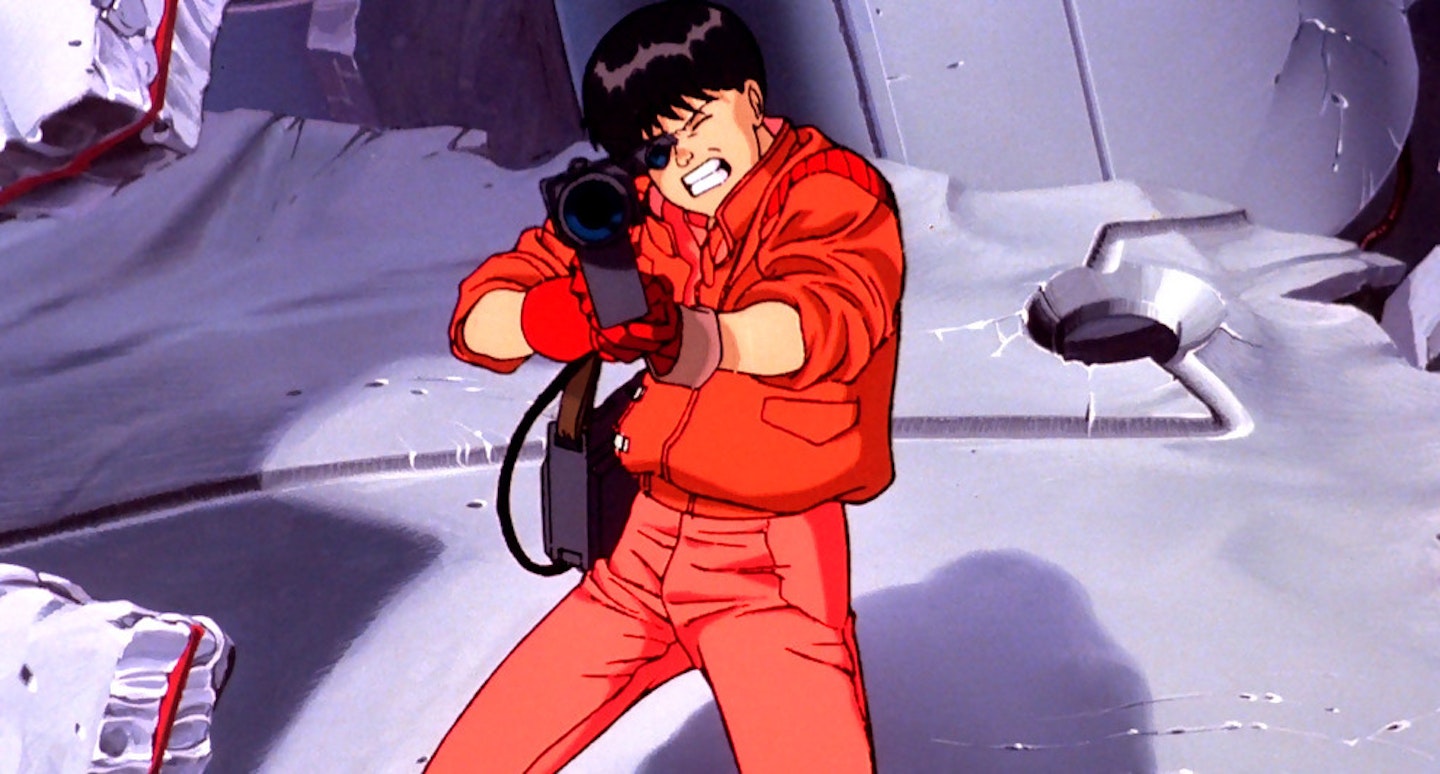
Year: 1988
Country: Japan
Director: Katsuhiro Otomo
For most of its audience, Akira came as a howling wake-up call, shifting the boundaries and proving to people who had never considered such a thing that cartoons are not necessarily for kids. A thinky science-fiction plot (not just spaceships and rocket men) combines with sex, violence and body horror to paint a disturbing picture of our collective sub-conscious, set in a densely populated and intricately detailed world. In a pre-internet age, this spread like a modern computer virus, powered by word of mouth: "You've never seen anything like this." We still haven't.
Hollywood remake? Unbelievably, one is in the works. Book of Eli directors the Hughes brothers are currently set to take the director's chair, with a script by Mark Fergus, Hawk Ostby and Eli's Gary Whitta. Warners are in fact planning two films, each focusing on 3 books in the series, with the first one tentatively scheduled for 2013.
Prizes Not a sausage.
What to say... "The future is not a straight line. It is filled with many crossroads. There must be a future that we can choose for ourselves. (Kiyoko)
What not to say... "Love that Kurosawa!"
50. Closely Observed Trains

Year: 1966
Country: Czechoslovakia
Director: Jiri Menzel
Menzel's coming of age drama is quiet, charming and wry in a way that 99.9% of American films have never managed to muster. Set during the German Occupation of Poland, Menzel delicately charts the attempts of trainee railway guard Milos (Neckar), one of cinema's first slackers, to lose his virginity and join the Czech underground with a touching vulnerability and a slight sense of the absurd. Gentle, politically aware and, yes, closely observed, this is a beautiful paen to timidity, innocence and plain old growing up.
Hollywood remake? Nope, but it was influential on the rash of '70s US Young Men Try To Get Laid flicks.
Prizes It landed the Best Foreign Language Film Oscar.
What to say... "We are lucky to have Closely Observed Trains, a film that continues to reward many a close re-watching. (Richard Schickel)
What not to say... "I think you'll find the British Rail Class 47 also known as the Brush Type 4 is approaching Platform 3."
49. M. Hulot's Holiday
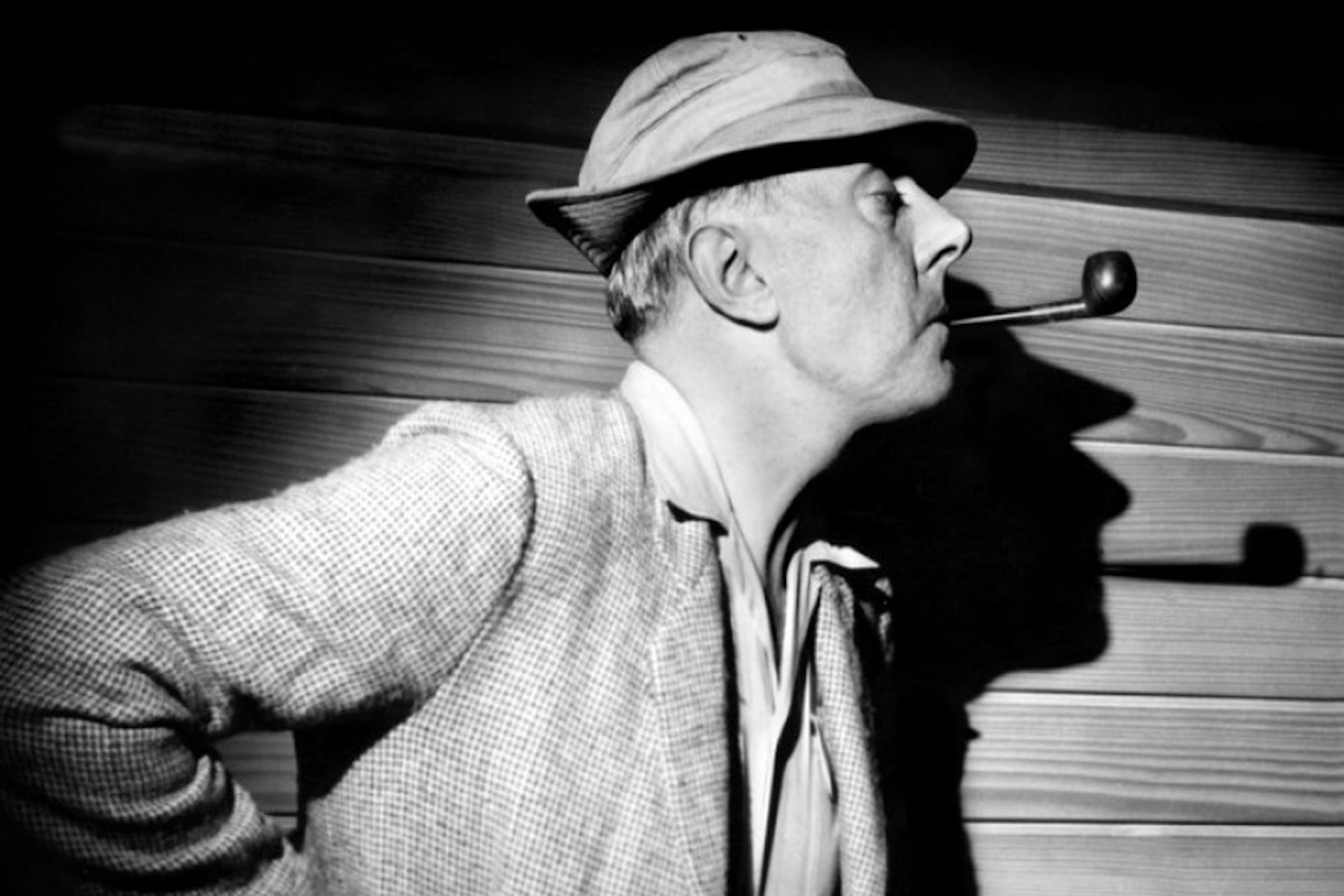
Year: 1953
Country: France
Director: Jacques Tati
An almost silent film made in the 1950s, a pure slapstick farce with a blithely oblivious central buffoon, this film must have seemed anachronistic even before the prints were developed. Perhaps that's because it's a classic, with Tati's beautifully drawn M. Hulot innocently causing havoc and misery to all around him as he enjoys a welcome break at the seaside. Often imitated (cf. Jerry Lewis, Rowan Atkinson), this has never been bettered, a perfect comedy meandering along despite the lack of anything resembling a real plot.
Hollywood remake? No direct remake, unless you count Mr Bean's Holiday, which we don't (although Bean owes a lot to M. Hulot's hapless mute) but Tati did play the role in five more films. It's also been obliquely referenced in everything from Amelie to High Fidelity to Punch-Drunk Love.
Prizes It won the Grand Prix at Cannes and was nominated for Best Screenplay at the Oscars.
What to say... "Christopher Lee voiced the British dub, you know."
What not to say... "Should've gone to Blackpool, mate!"
48. Downfall
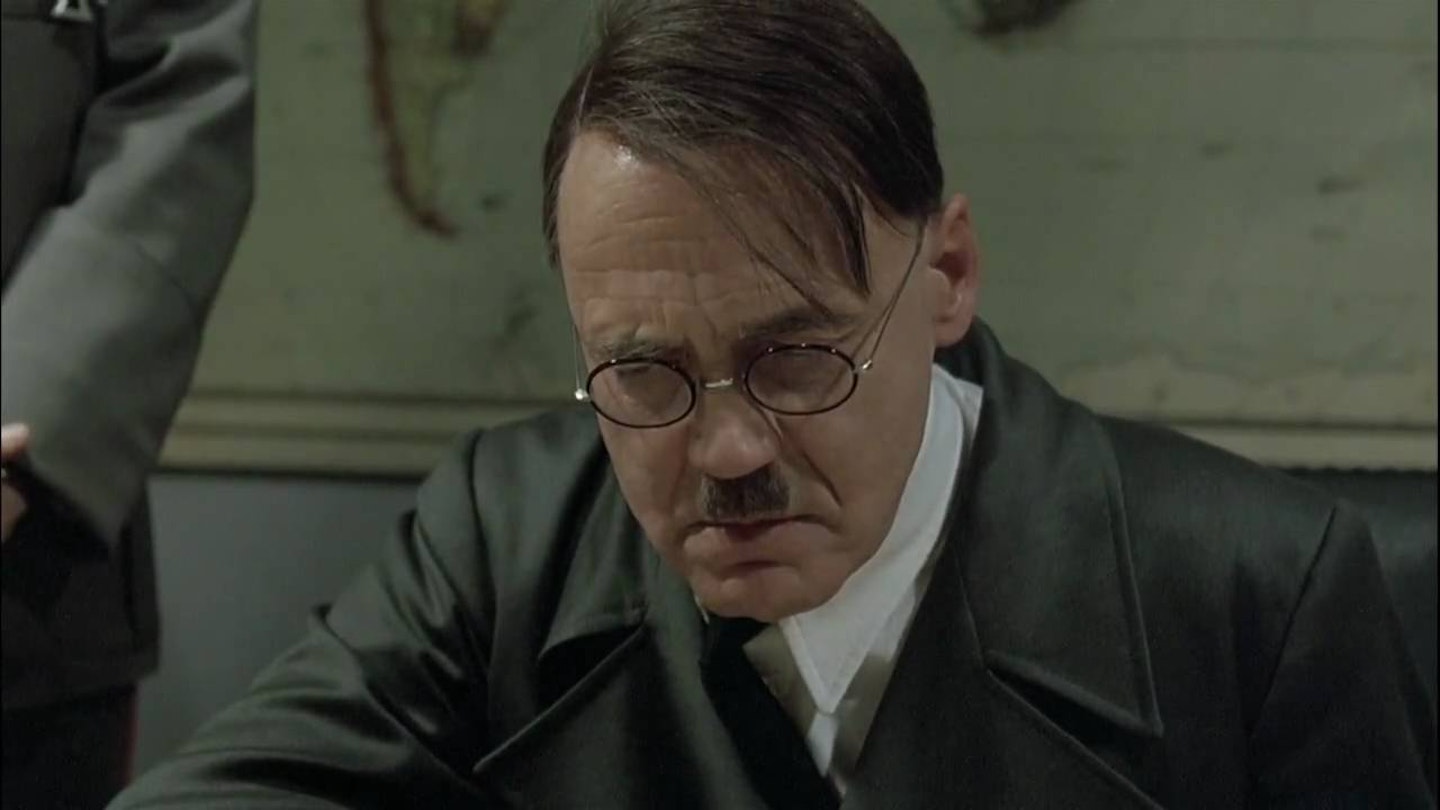
Year: 2004
Country: Germany
Director: Oliver Hirschbiegel
Because, quite simply, it's one of the best movies ever made about the Second World War - and there's barely any battle scenes in it. Depicting the final days of Adolf Hitler and his cronies in their claustrophobic Berlin bunker, it's a gut-wrenchingly potent portrayal of a dictator in denial and the yes men (and women) too timid - or blinded - to stop perfuming the stench of decay and defeat for him. Hitler portrayals have tended to veer towards the camp, but Bruno Ganz renders him authentically chilling and terrifying.
Hollywood remake? No. The closest you'll get is Valkyrie, which isn't fit to lick Downfall's jackboots.
Prizes Although it lost out to The Sea Inside in the Best Foreign Language Film category at the Oscars in 2005, it won 14 awards at various ceremonies worldwide.
What to say... "Ganz's research is impeccable - he even studied rare filmed footage of Hitler in conversation."
What not to say... "No I haven't seen it, but the mash-up where Hitler's banned from Warcraft is great. ROFLCOPTER!!!!"
47. 10
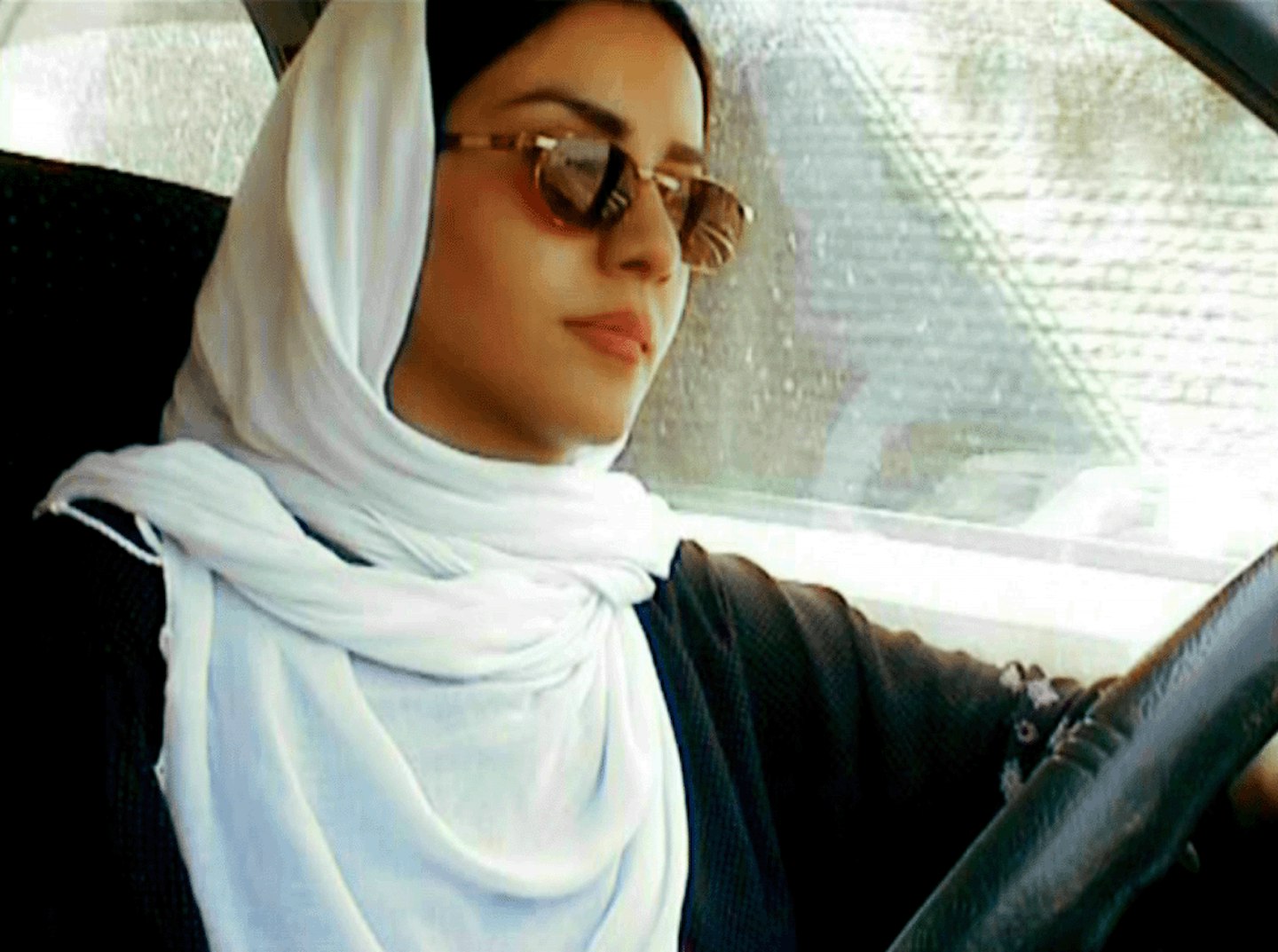
Year: 2004
Country: Germany
Director: Abbas Kiarostami
Sometimes the simplest ideas are the best. Kiarostami's Ten consists of ten sequences capturing ten conversations between twice married Tehrani woman Akbari and (variously) her son, her sister, an old dear, a prostitute and a young stranger as Akbari traverses the city. Examining the various roles inhabited by women in Iranian society, Kiarostami's MO, focusing on one face at one time, allows Akbari's story to gradually evolve and produces some extraordinary moments - her son's 15 minute tirade followed by her priceless reaction. It's a master working in a minimalist mode, but no less thrilling for that.
Hollywood remake? None, but Kiarostami made a fascinating making of 10 on Ten revealing his processes.
Prizes None.
What to say... "If anyone were to ask me what I did as a director on this film, I'd say 'nothing, and yet if I didn't exist, this film wouldn't have existed. (Kiarostami)
What not to say... "Where's Bo Derek?"
46. Jules et Jim
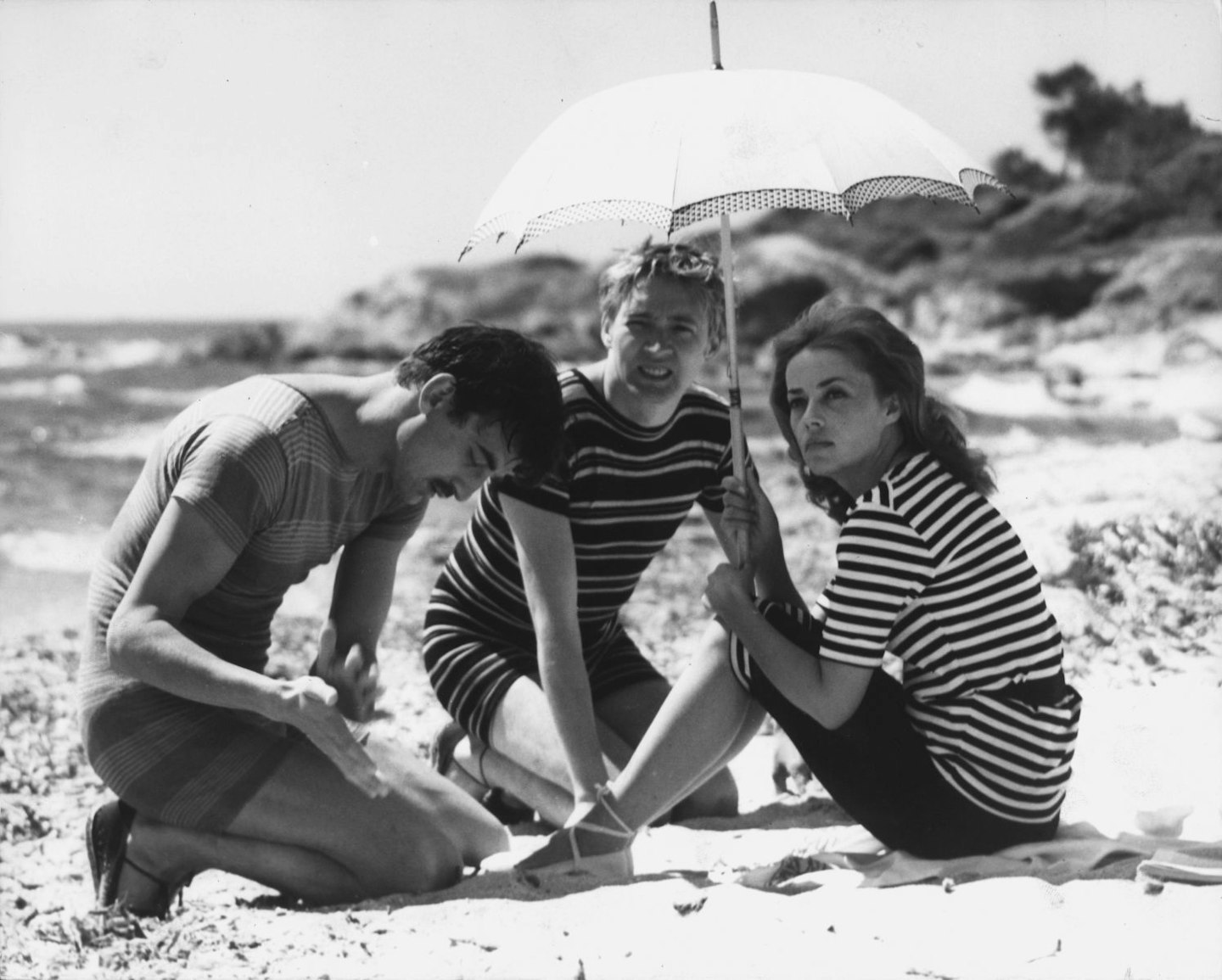
Year: 1962
Country: France
Director: Francois Truffaut
Before he was French UFO Dude in Close Encounters, Francois Truffaut made films and this, his third feature, is a cracker. It's a simple yarn - the titular friends (Werner and Serre) fall for the free-spirited Catherine (a captivating Moreau) - but Truffaut makes it sing through a freewheeling approach - newsreels, freeze frames, film stills, voiceover and tracking shots are all thrown in - that never soft peddles the emotional core. It's a film in the thrall of movies and in love with being in love, with all its ups and the downs. Unmissable: just ask Amelie Poulain who goes to see it in Amelie.
Hollywood remake? Paul Mazursky remade Jules et Jim as Willie & Phil with Michael Ontkean and Ray Sharkey fighting over Margot Kidder.
Prizes BAFTA noms for Best Film and Best Actress.
What to say... "Jeanne can't choose between the two / 'Cos Jules is hip and Jim is cool." (The Divine Comedy's When The Light Goes Out All Over Europe)."
What not to say... "So Jules fancies Jim, yeah?"
45. Suspiria
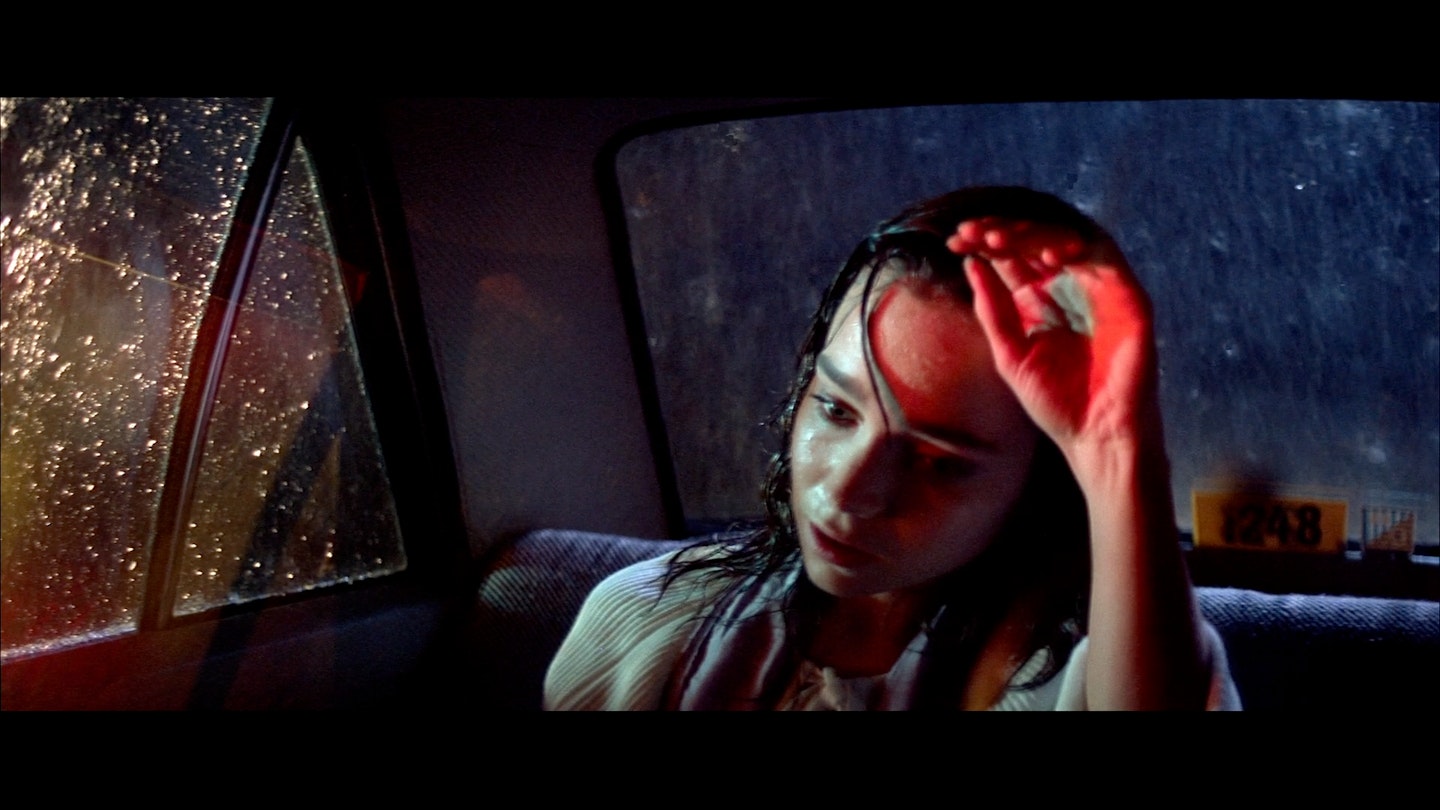
Year: 1977
Country: Italy
Director: Dario Argento
From Mario Bava to Lucio Fulci, Italy has done a nice line in horror films that are drenched in gore and covered in lashings of ominous atmosphere, all without making the blindest bit of sense. But it's Dario Argento's moody masterpiece, about a young girl stumbling upon a coven of witches, that stands head, shoulders and pointy nose above the rest. Truly terrifying, augmented by an unforgettable score by Argento's own band, Goblin, and filled with the sort of insane set-pieces for which Argento is famous, this is arguably the best horror film not made in the English language.
Hollywood remake? David Gordon Green's been trying to get his own version of Suspiria off the ground for a while now. Yes, David Gordon Green. The George Washington/Snow Angels/Undertow/Pineapple Express guy. Should be interesting...
Prizes Joan Bennett snagged a Best Supporting Actress nomination at the Saturn Awards in 1978. Otherwise... nada. Horrors don't tend to act as magnets for the big gongs.
What to say... "The finest example of giallo seen to date."
What not to say... "Argento? God, his daughter's fit, isn't she?"
44. Ikiru
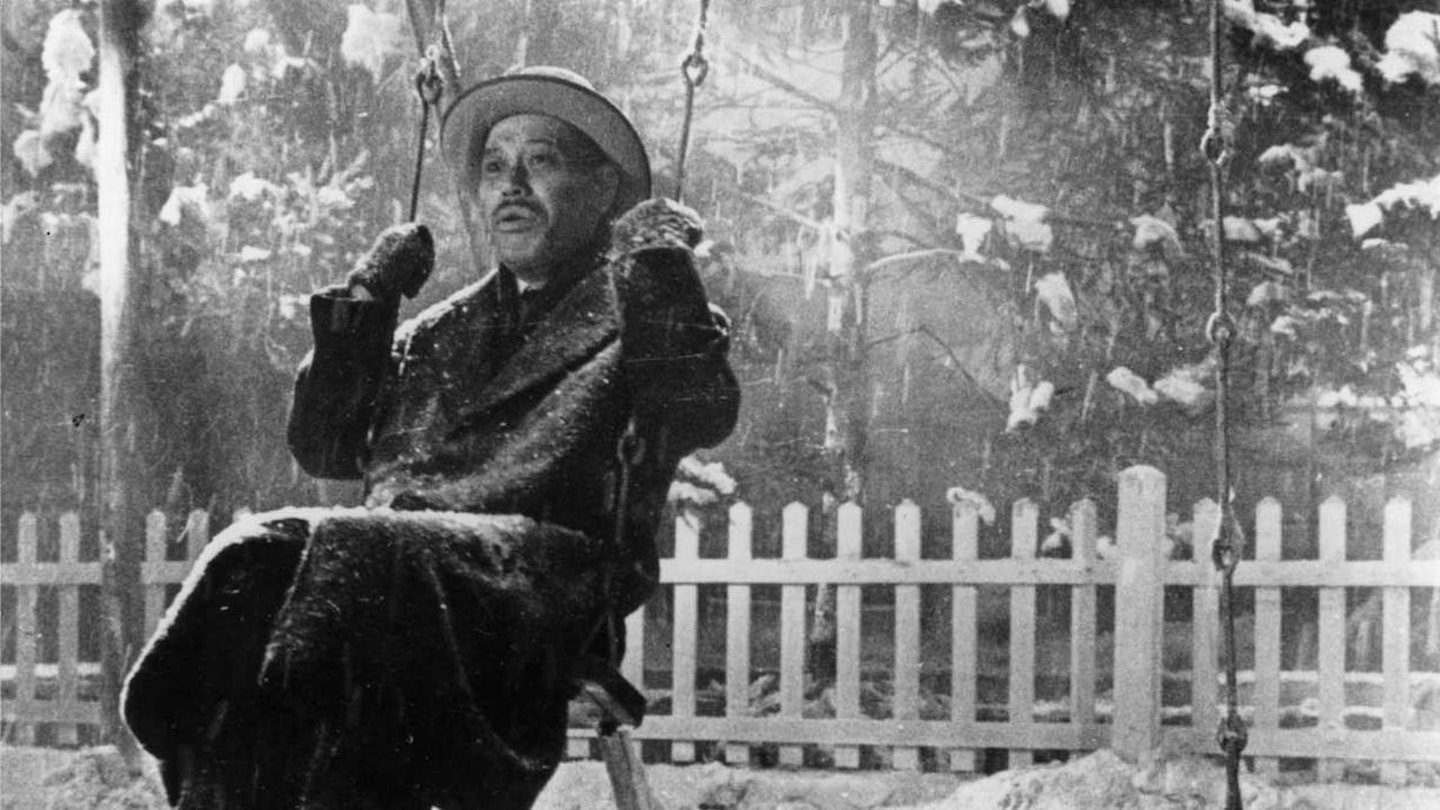
Year: 1952
Country: Japan
Director: Akira Kurosawa
The complete opposite of Kurosawa's samurai epics, Ikiru is an intimate chamber piece, as heartfelt and affecting as Seven Samurai is epic and thrilling. Discovering he is in the last stages of terminal cancer, an elderly civil servant (Kurosawa fave Shimura) emerges from his self absorbtion and devotes his last days to building a kids playground in the slums. A rare case of Kurosawa tackling (and criticizing) modern Japanese society, Ikiru is unbearably moving, reaching its zenith in the final image of a man on a swing in the rain.
Hollywood remake? A Tom Hanks remake was mooted in the early noughties but failed to materialise.
Prizes The top gong at the Berlin Film Festival.
What to say... "How tragic that man can never realize how beautiful life is until he is face to face with death."
What not to say... "Love that Manga!
43. Cyrano de Bergerac
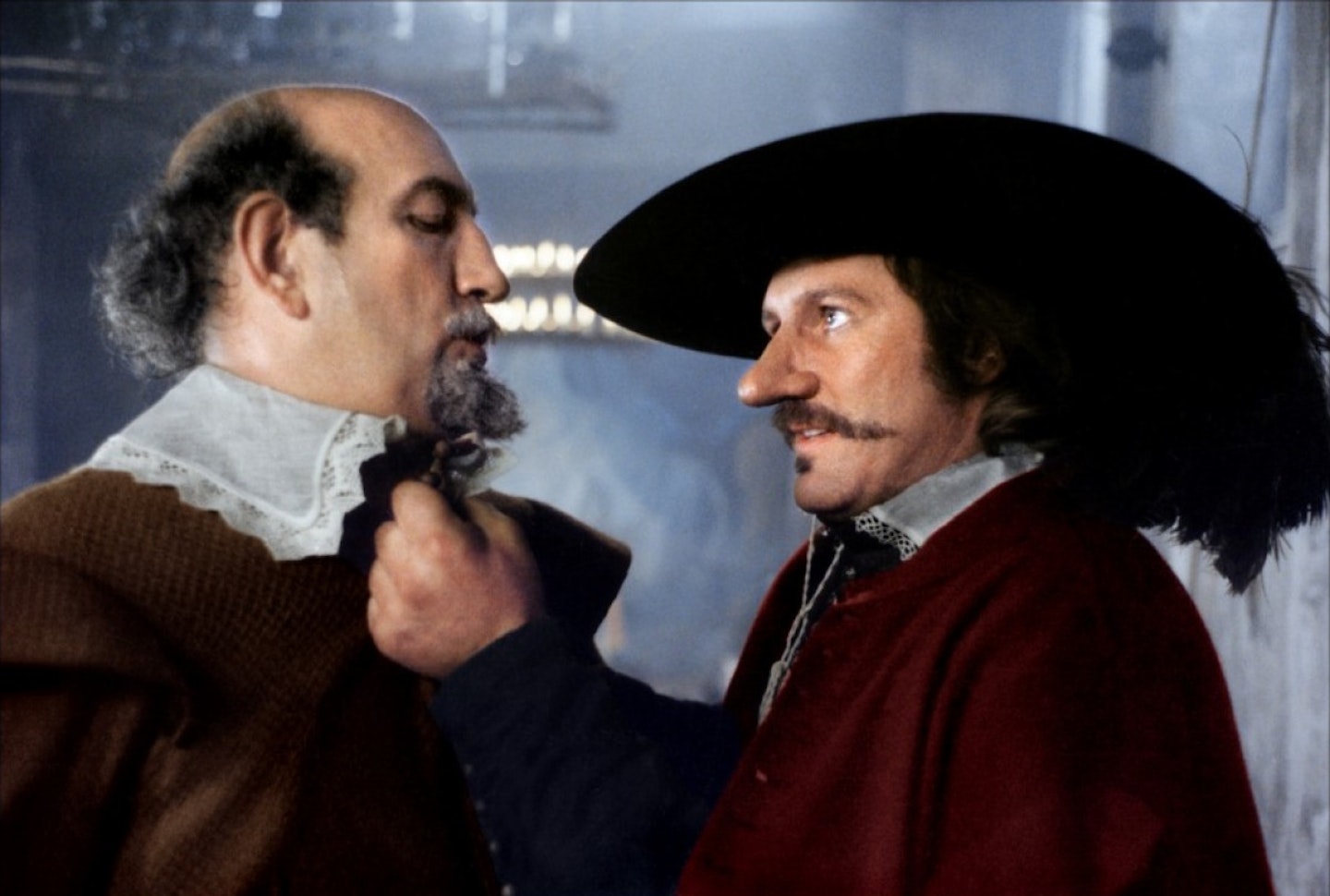
Year: 1990
Country: France
Director: Jean-Paul Rappeneau
Rappeneau's sweeping, epic adaptation of Rostand's comic melodrama is sumptuously designed, gorgeously played and wildly romantic. Gerard Depardieu, a man who flirts with joli-laid at the best of times, was never better cast than as the big-nosed poet, warrior and swordsman of the title, hopelessly in love with the beautiful Roxanne making us laugh even as he breaks our hearts. Often underrated, however, is Vincent Perez as the dashing but gauche Christian, on whose behalf Cyrano finally gets to express his romantic side.
Hollywood remake? Rather cleverly, Hollywood got in on this one first, prespinning Rostand's source play as a modern comedy with Steve Martin and Daryl Hannah in 1988's Roxanne. Which proves that those big studios do have a time-machine after all!
Prizes It swept the Cesars, won one Oscar for Costume Design and was nominated for Foreign Film to boot, and Depardieu landed Best Actor at Cannes.
What to say... "This film has more panache in its nose than most other costume epics can manage in their whole bodies."
What not to say... "Ye gods, that's a ginormous schnozz!"
42. In The Mood For Love
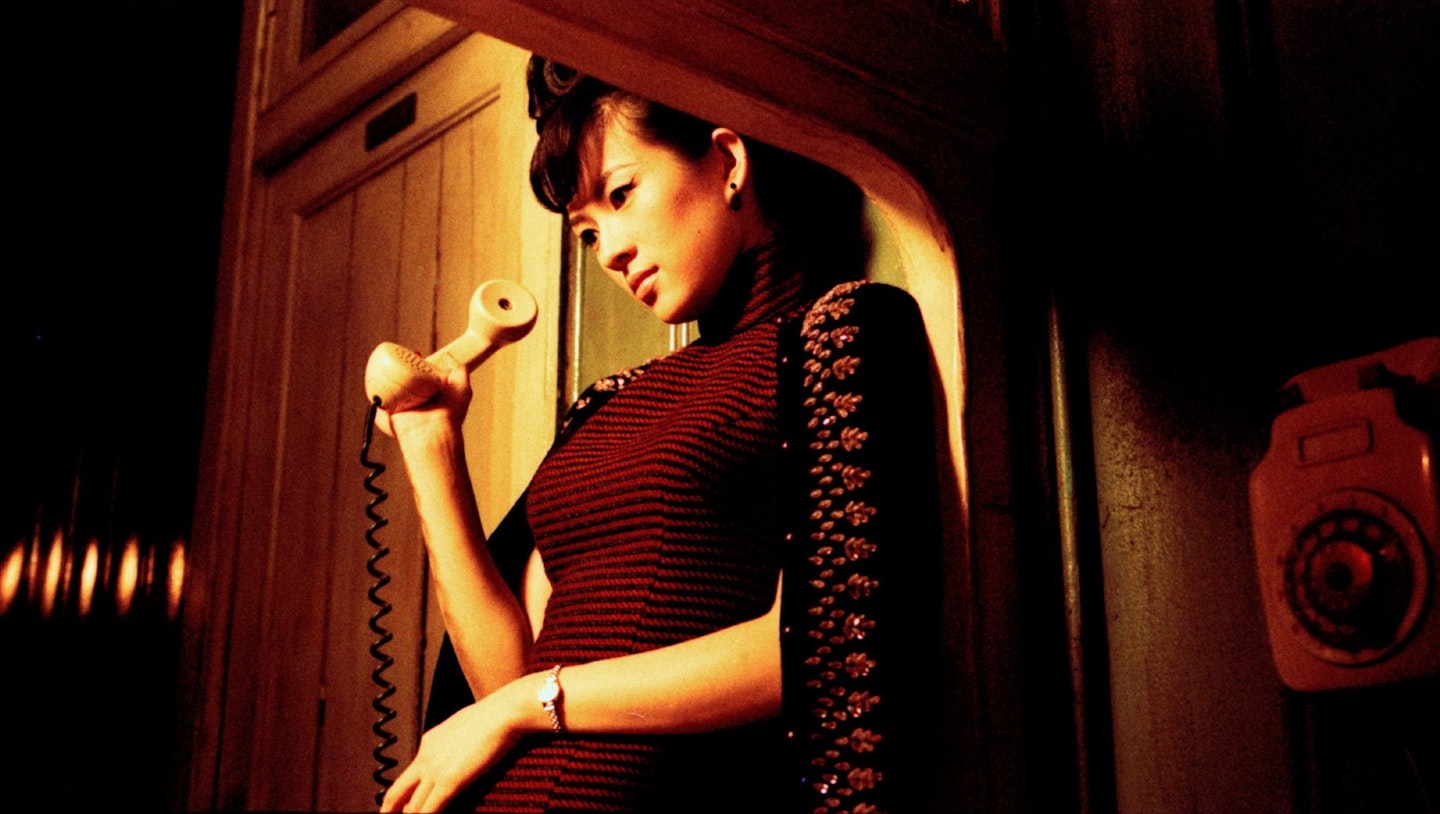
Year: 2000
Country: Hong Kong
Director: Wong Kar-wai
Wong Kar-wai's achingly romantic account of star-cross'd lovers has a strong claim to be the best-looking film you'll ever see. The '60s costumes, neon cinematography from genius DoP Christopher Doyle and unspeakably gorgeous cast will catch the eyes while the tale of two neighbours, who discover that their spouses are cheating on them and fall in love with one another while trying to deal with the revelation, tugs the heartstrings. Melancholic, perhaps, but as inspirational as Yo-yo Ma's bittersweet performance of the score.
Hollywood remake? Not quite, but the film has been riffed on in Lost in Translation, which lifted its famous whispered goodbye from a similar scene here.
Prizes No Oscar nomination, but a BAFTA nod and wins at the Cesars and Cannes to soften the blow.
What to say... "Note that the hotel room number, 2046, references the director's next film."
What not to say... "What if you're just in the mood for a quickie?
41. My Neighbour Totoro
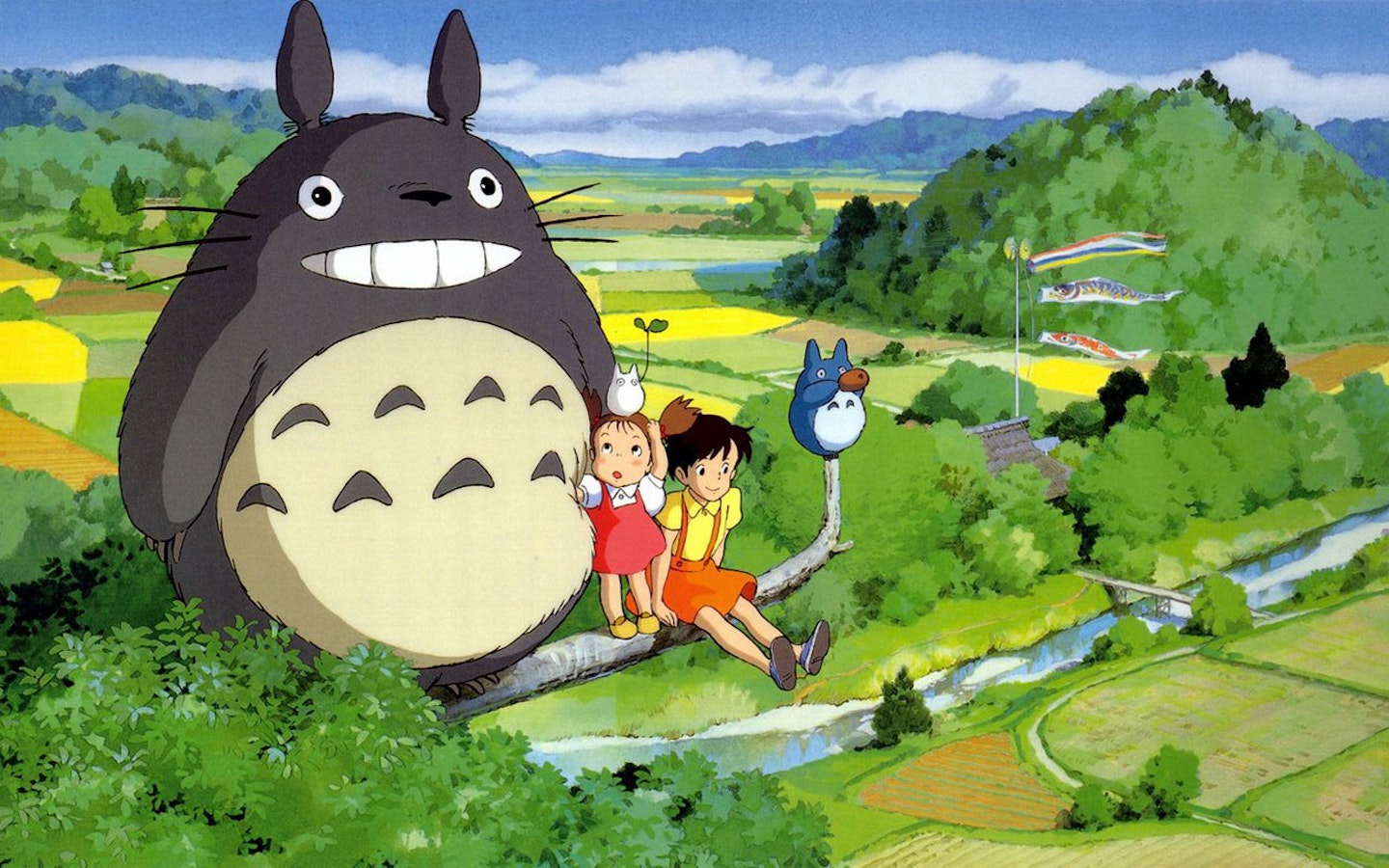
Year: 1988
Country: Japan
Director: Hayao Miyazaki
Sure, it has hardly anything in terms of plot and not what you'd call a lot of witty banter either, but Totoro's an out-and-out joy to watch, a subtle, atmospheric slice of childhood, perfectly capturing the naivety, the delight, and the mystery that is part of being young. Incidentally, it also brought us one of the most iconic cartoon characters ever created, a big grey furry fella who's now ten times as popular in Japan as Mickey Mouse could ever have dreamed of being in the US. With Miyazaki's usual flair for bringing us unforgettable characters and situations, this is refreshingly simple, a genuine crowd-pleaser, and nigh-on impossible to describe. In other words, it's classic Miyazaki.
Hollywood remake? They wouldn't dare. Seriously, no-one would.
Prizes The Animage Anime Grand Prix prize and the Mainichi Film Award for Best Film.
What to say... "Miyazaki created such feeling for youth because the movie is part-autobiographical, based on a time that he and his brother had to stay with his father while his mother suffered from TB."
What not to say... "No sweetie, cat buses don't really exist."
40. L'Avventura

Year: 1960
Country: Italy
Director: Michelangelo Antonioni
Group spend the day on rocky outcrop. Woman disappears. Couple search for her. Er, that's it. To describe L'Avventura as languid is like calling the Himalayas a bit hilly: pulsing drama this is not. What it is, though, is a visually arresting art work that elevates mood and imagery above narrative. The couple in question, Sandro and Claudia, are not the kind of people you'd want looking for you - they're often feckless, amoral and wear their ennui like a fragrance - but in Antonioni's hands their journey is a poignant exploration of loneliness and despair. And they're Italian, so they look alright too.
Hollywood remake? No.
Prizes Although it was booed fiercely at the end of its first screening, L'Avventura won the Grand Jury Prize at Cannes and was only pipped to the top prize by La Dolce Vita. It also picked up a BAFTA nomination.
What to say... "It's a Lost In Translation for the beatnik generation."
What not to say... "Cor, when's something going to happen?"
39. Le Samourai
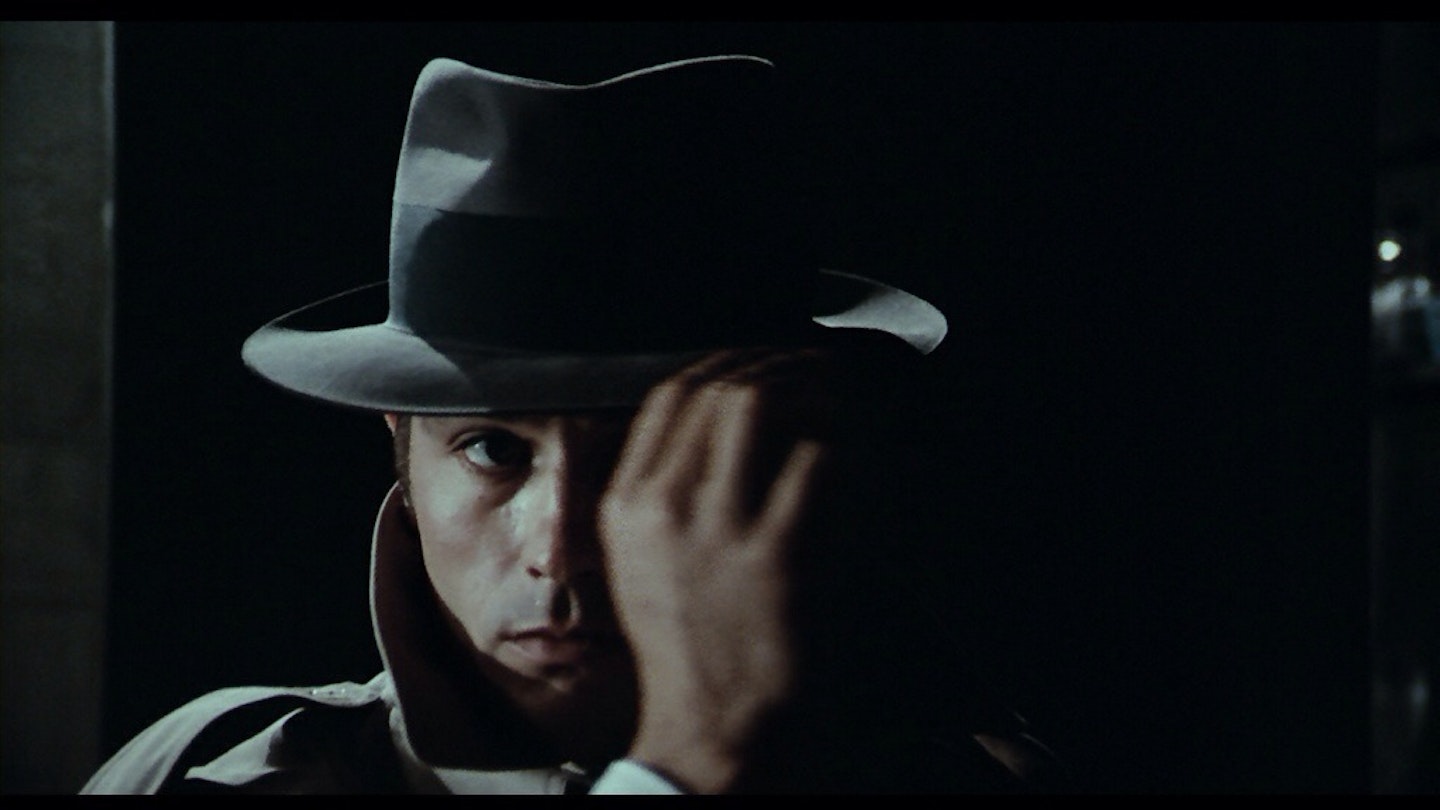
Year: 1967
Country: France
Director: Jean-Pierre Melville
A man so cool he can't be bothered to finish spelling his own name, hit man Jef Costello is hunted by enemies and friends alike - and he doesn't have any friends. He lives by the strict code of the Bushido, thinks deeply, chain-smokes cigarettes and wears a hat indoors. He is, in short, le samourai, the ultimate antihero in Jean-Pierre Melville's existential crime thriller. Thanks to Alain Delon's career-best turn and Melville's noose-tight plotting, he's a true icon of cinema.
Hollywood remake? Not per se, though John Woo wants to update it. Both Jim Jarmusch's Ghost Dog and Walter Hill's The Driver owe it a major debt - for the record, Forest Whitaker majorly out-Delons Ryan O'Neal.
Prizes Not even a tip of the hat at Cannes.
What to say... "The last word in cinematic cool."
What not to say... "Is it a Seven Samurai origin story?"
38. Ashes And Diamonds
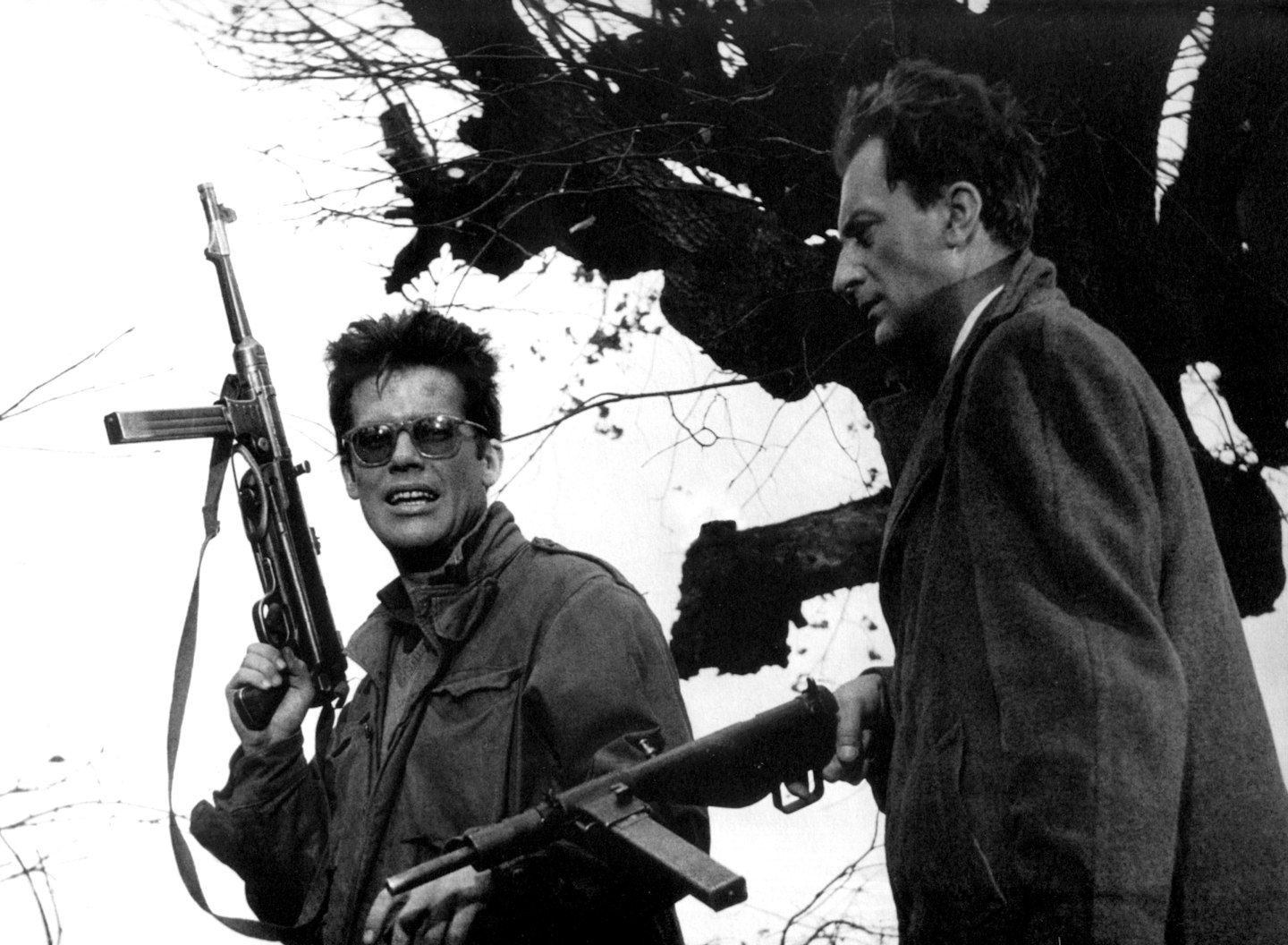
Year: 1958
Country: Poland
Director: Andrzej Wajda
While Ashes and Diamonds takes place amid the Warsaw rubble just after the end of World War Two, and while it concerns two former resistance fighters' quandary over a mission to assassinate a local communist leader, Andrzej Wajda's has the distinct feel of a '50s American youth revolt movie. This is largely down to a superb performance from Zbigniew Cybulski as shade-wearing would-be assassin Maciek, who throbs with charismatic cynicism.
Hollywood remake? None. Probably just as well: with that title, people would probably go along expecting a rom-com?
Prizes Winner of the FIPRESCI prize at the 1959 Venice Film Festival.
What to say... "Zbigniew Cybulski is the Polish James Dean, you know."
What not to say... "Zbigniew Cybulski looks a bit like Cliff Richard, doesn't he?"
37. Rome Open City

Year: 1945
Country: Italy
Director: Roberto Rossellini
It may be a landmark in Italian neo-realist cinema but sod that: Roberto Rossellini's is a compelling drama about the ravages of war on everyday folk. Tracing the hunting down, capture and torture of a Communist resistance leader (Pagliero) by the Gestapo, Rossellini replaces studio-system gloss with a tangible, intense naturalism, throwing in details (shots of toilets, babies on potties) that mainstream films would not dare show. Much has been made of its non professional cast, but two of the standouts come from pros: Magnagni as a pregnant Communist sympathizer and Fabrizzi as a noble priest.
Hollywood remake? No, but Rome Open City was the first part in Rossellini's War trilogy, completed by Paisa and Germany Year Zero.
Prizes It took Best Film at Cannes, and snaffled a Best Screenplay Oscar nom.
What to say... "Did you know that Federico Fellini assisted on the script?"
What not to say... "Listen very carefully; I shall say zis only once."
36. Dekalog
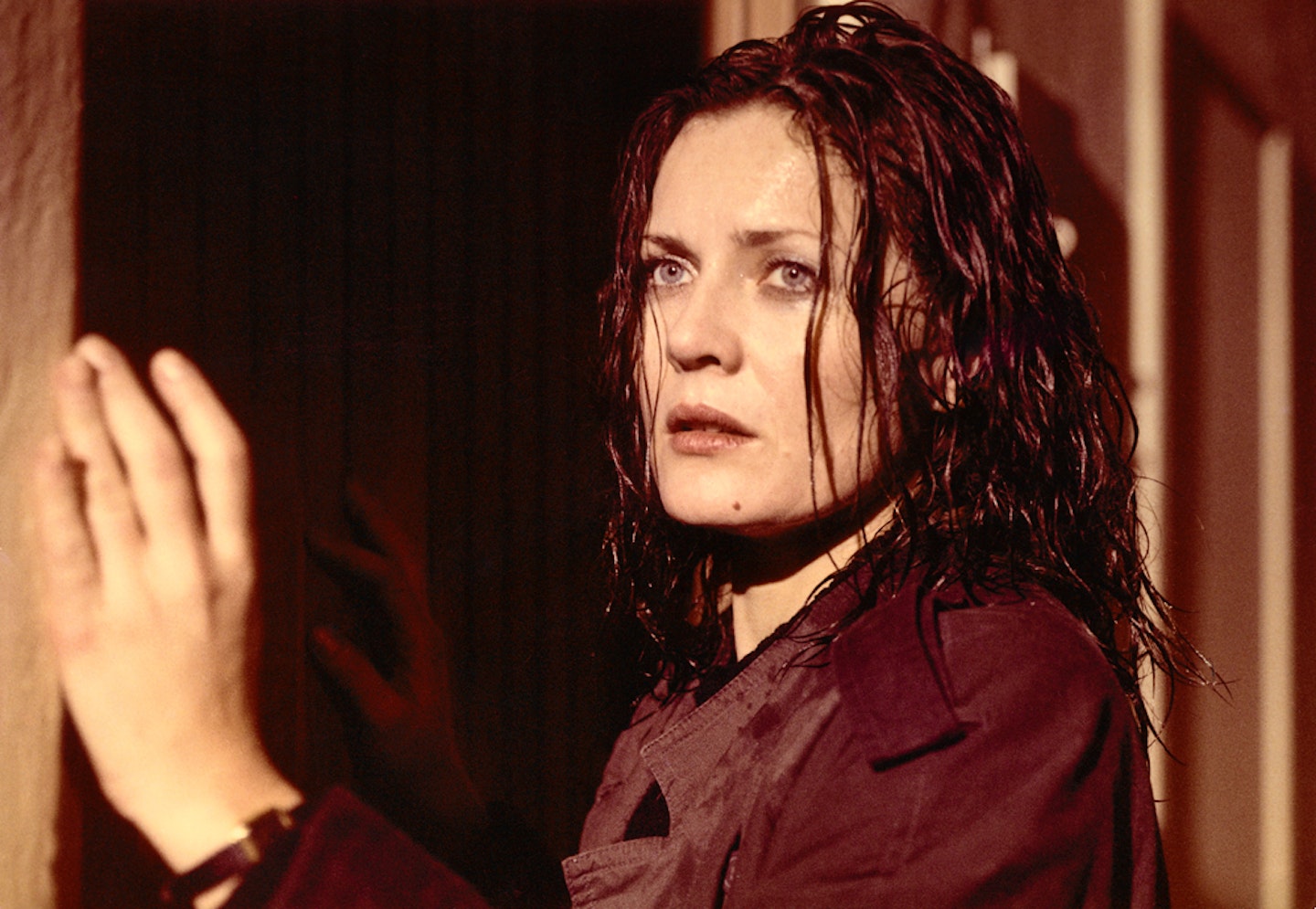
Year: 1988
Country: Poland
Director: Krzysztof Kieslowski
Originally made for Polish television but gaining cinematic life at film festivals, Kieslowski's 10 films spin off wildly from The Ten Commandments. Whereas Kieslowski's Three Colours Trilogy is luxurious cinema, Dekalog is sparse, stripped down filmmaking echoing the colourless Warsaw high rises the characters inhabit. Episodes 5 and 6 were expanded to become A Short Film About Killing and A Short Film About Love respectively, but taken as a whole this is an unforgettable tapestry of human failings. Stanley Kubrick said that the Dekalog was the only masterpiece made in his lifetime. Are you going to argue with Stanley?
Hollywood remake? Nie.
Prizes The FIPRESCI prize at the Venice Film Festival.
What to say... "There are mysteries, secret zones in each individual." (Krzysztof Kieslowski)
What not to say... "When does Moses turn up?"
35. La Grande Illusion
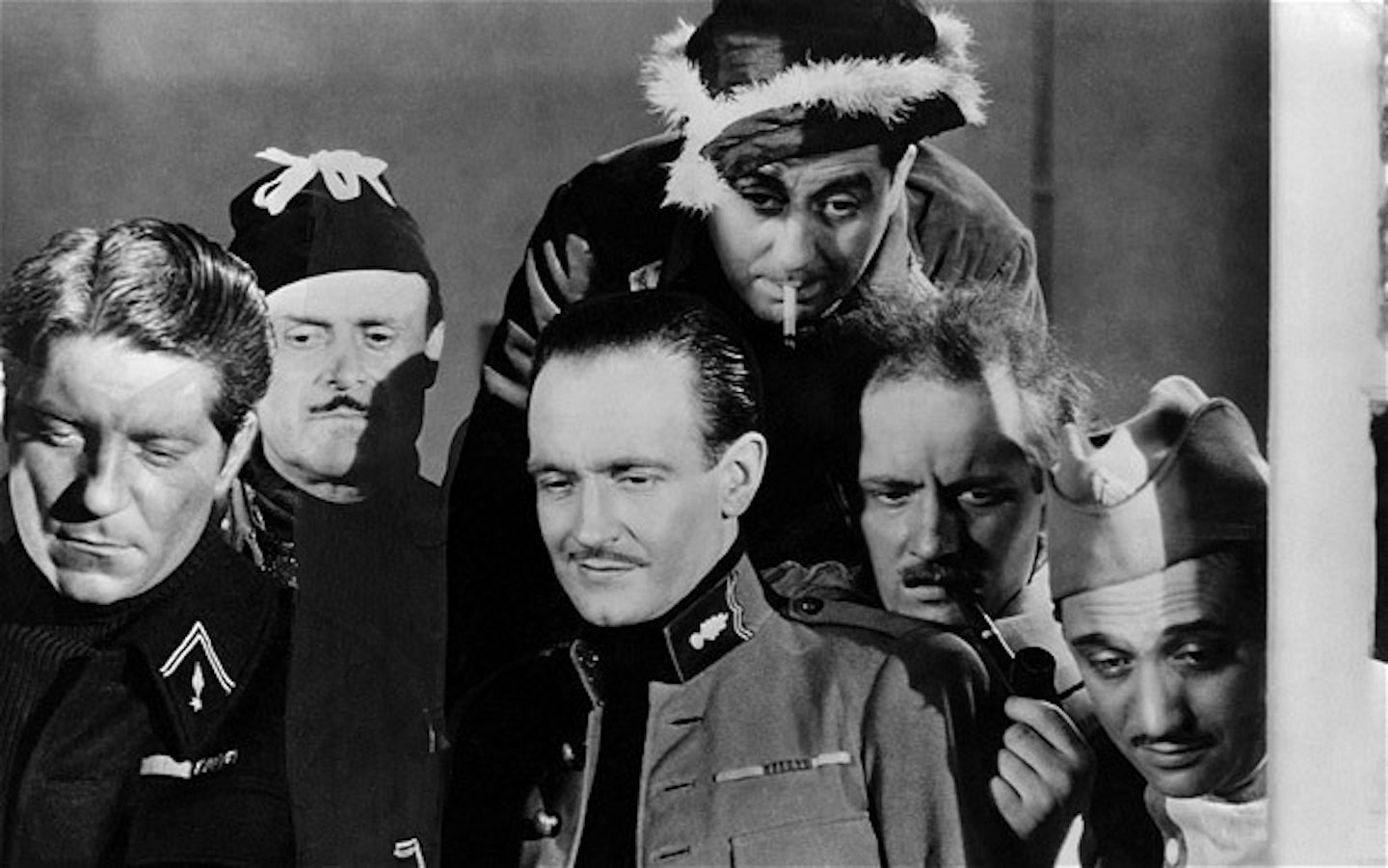
Year: 1937
Country: France
Director: Jean Renoir
Jean Renoir's other great masterpiece is set almost entirely in a POW camp - think Missing In Action with an IQ of 140. Yes, a war film with no actual fighting might sound a bit, well, dull but Renoir's great work matches other, more explodey anti-war films like All Quiet On The Western Front and Paths Of Glory for tension and drama. It also teaches a powerful message, as Eric von Stroheim's chivalrous Prussian reaches out across class, rather than national, lines to downed French pilots, Pierre Fresnay and Jean Gabin - and never cross a German in a neck-brace, innit.
Hollywood remake? No, although Renoir himself made an English-language companion piece in 1962 - The Elusive Corporal, set in a Second World War POW camp.
Prizes It scored the first ever foreign language nomination for Best Picture at the last of the pre-war Oscars, ultimately missing out to Frank Capra farce You Can't Take It With You.
What to say... "It's the ultimate humanist masterpiece."
What not to say... "Does it have any actual magic in it?"
33. M
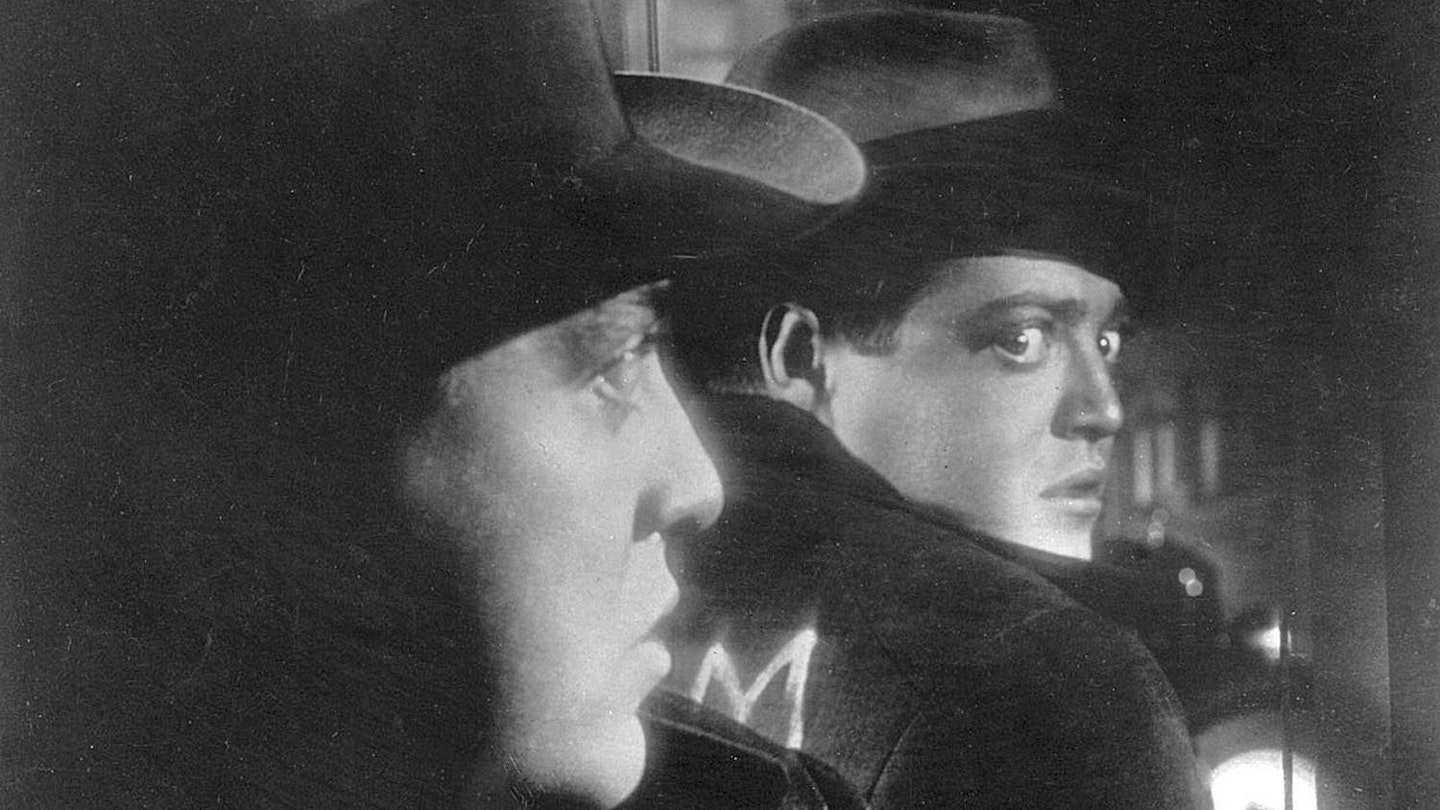
Year: 1931
Country: Germany
Director: Fritz Lang
Inspired by a real life manhunt for a serial killer in Dusseldorf, Fritz Lang is the best chase-the-serial killer movie ever made. At once a creepy character study of a psychopathic child murderer (big-eyed, soft-voiced Peter Lorre became a Hollywood character off the back of it) and a riveting portrait of a community doused in fear, Lang deploys an arsenal of filmmaking fireworks in league with a progressive attitude towards his subject that is complex and still relevant.
Hollywood remake? Twenty years later, Joseph Losey directed an American re-do with David Wayne in the Peter Lorre role.
Prizes Nein.
What to say... "This won't bring back our children. We, too, should keep a closer watch on our children." (Last Line)
What not to say... "Does Judi Dench play the lead?"
32. La Haine
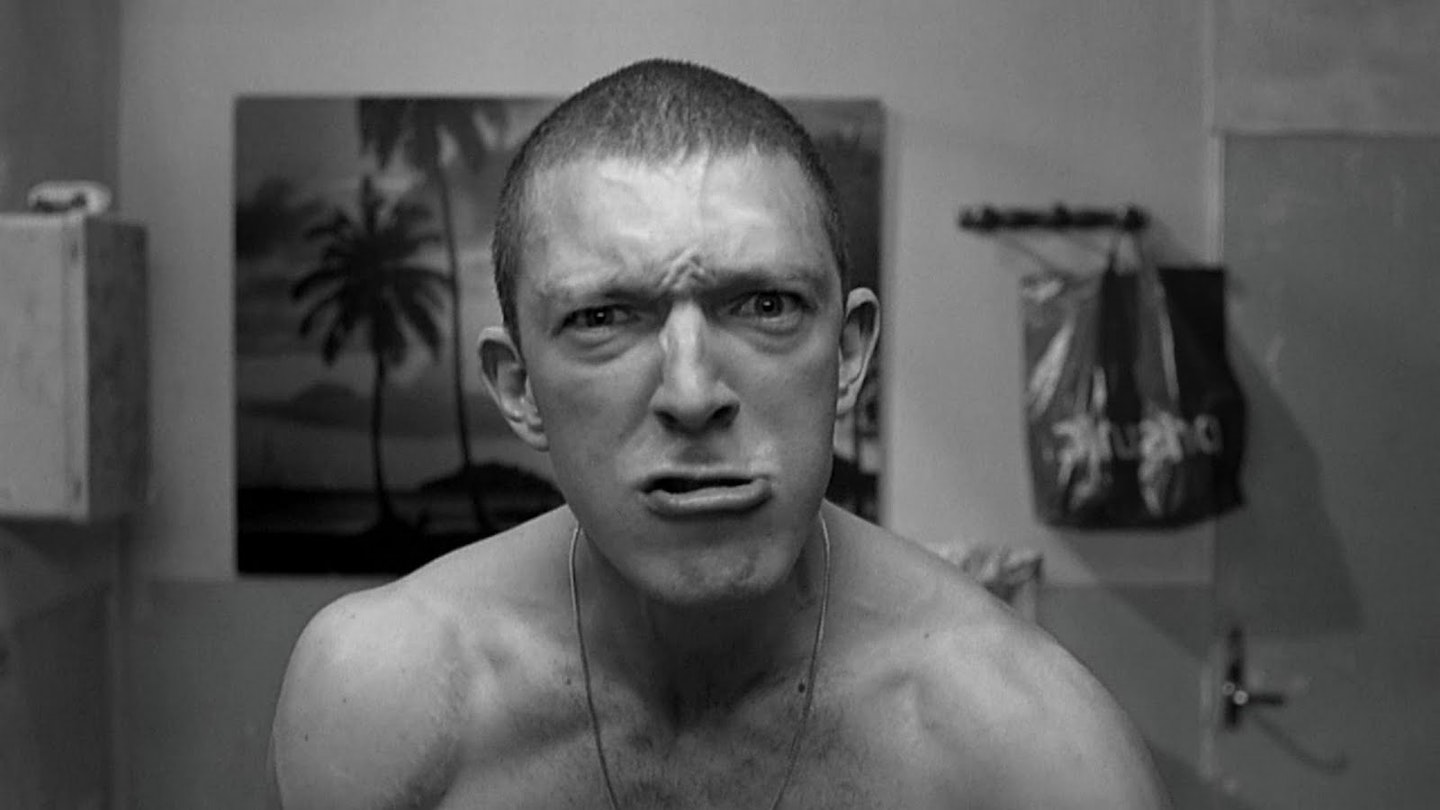
Year: 1995
Country: France
Director: Mathieu Kassovitz
The film that made us shift our De Niro impressions into French, La Haine inhabits the grim, riot-scarred tenements of Paris' housing projects. Vinz (Cassel), Hubert (Kounde) and Said (Taghmaoui) are our guides through this Parisian netherworld. Each is played with fired-eyed intensity, particularly Cassel who windmills through the city with a .44 Magnum and a vendetta against the world, when a friend is beaten into a coma by police. Mathieu Kassovitz' black and white photography gives this gut-punching slice of social realism a power conspicuously missing from his later works like, say, Gothika.
Hollywood remake? No, which is perhaps surprising considering how well its setting would translate to any number of US inner-cities.
Prizes La Haine won big in Cannes, where Kassovitz collected Best Director and the film was nominated for the Palme d'Or.
What to say... "Hatred breeds hatred."
What not to say... "Is that the bloke from Ocean's 12?"
31. Godzilla
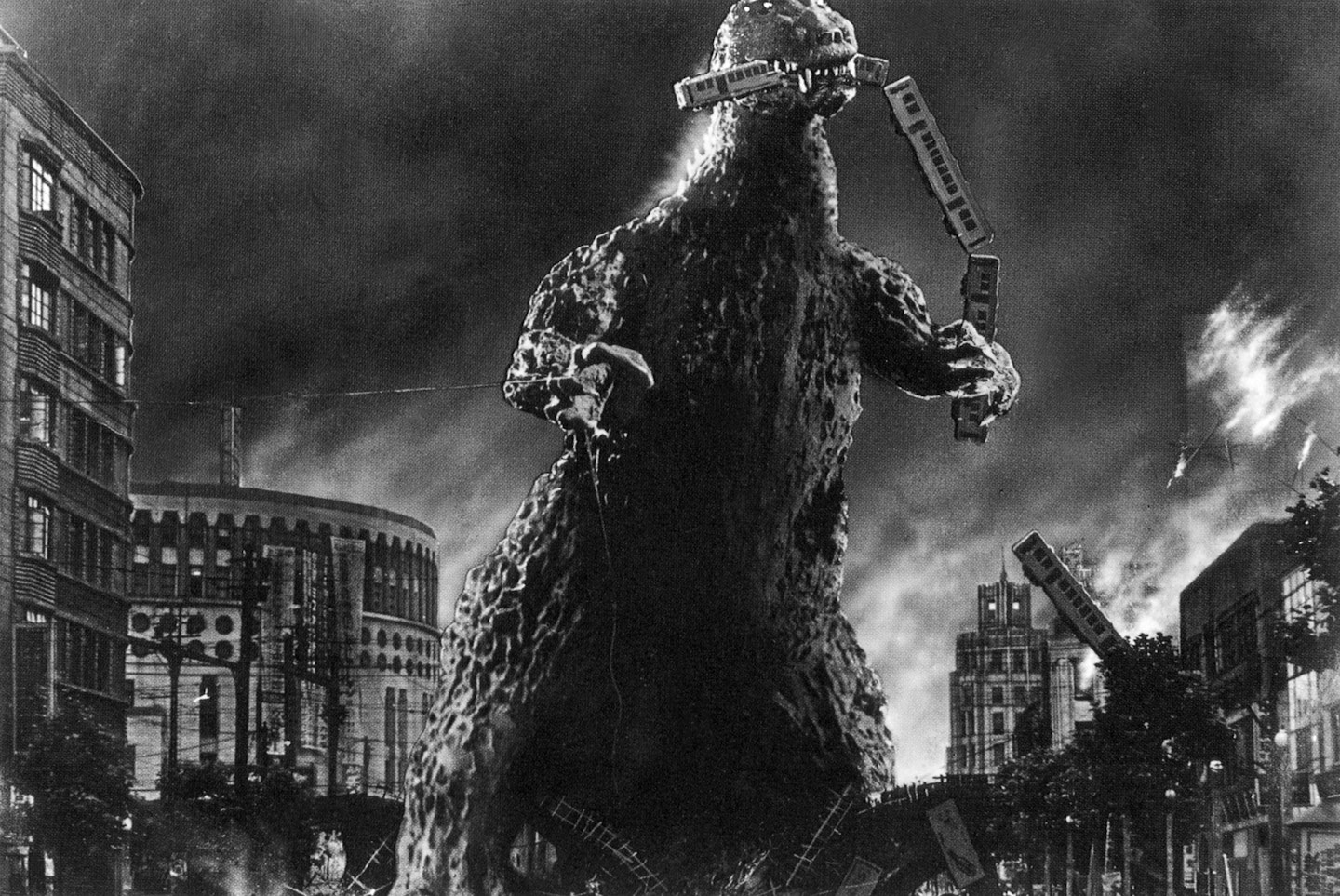
Year: 1954
Country: Japan
Director: Ishiro Honda
The sequels - and they are legion - are best known for pitting the iconic mutant-dino Tokyo-stomper against increasingly ludicrous foes (a giant moth, a robot Godzilla, er, King Kong?), and as such have garnered a semi-ironic cult following. But that's not the reason Ishiro Honda's original is on this list. Unlike its lovably daft, gargantuan offspring, Godzilla is a doomy post-Hiroshima fable, with US nuclear testing creating a literal monster which terrorizes a people still traumatised by war. Any rubber-costume silliness dissipates with the drama at the human level: one scene, for example, shows keening families in a hospital after one of the beast's attacks.
Hollywood remake? Yes, but it's best forgotten, eh?
Prizes Godzilla himself won a Lifetime Achievement Award in 1996 and was given a star on the Hollywood Walk Of Fame in 2004.
What to say... "The kaiju is a Hiroshima metaphor, you know (while nodding sagely)
What not to say... "Is Godzooky in it?"
30. Infernal Affairs
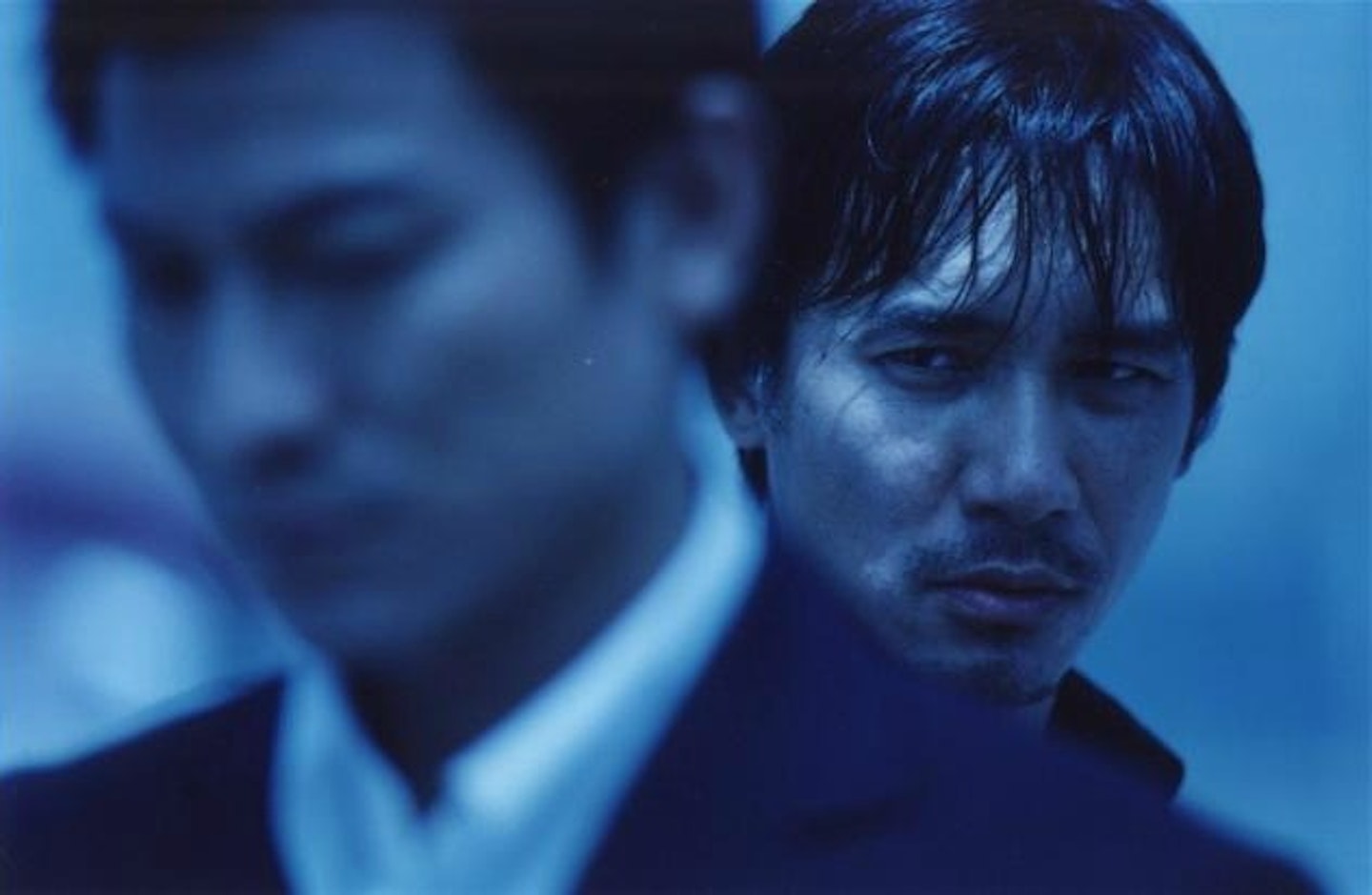
Year: 2002
Country: Hong Kong
Director: Alan Mak, Lau Wai-keung
The simple elegance of the concept - police mole in the Triads and Triad mole among the cops race to uncover one another - is the hook for a complex network of crosses and double crosses that would be dizzying but for the rock-solid, and hugely sympathetic, central performances by Andy Lau and Tony Leung as the two moles caught in worlds not of their making and forced to maintain false identities throughout every aspect of their lives. It's the emotional torment that both men suffer that makes the film such compelling viewing; the endlessly cool action scenes are only a bonus.
Hollywood remake? Why yes: you may have heard of a little film called The Departed, which Martin Scorsese directed to Best Picture and Best Director Oscar glory.
Prizes It did well at the Hong Kong film awards, but was popular with audiences rather than awards voters elsewhere around the world.
What to say... "Of course, it's less a cop flick and more a dramatic representation of the Buddhist concept of perpetual hell."
What not to say... "Is that the one where Richard Gere gets in a fight with Andy Garcia?"
29. Les Quatres Cent Coups
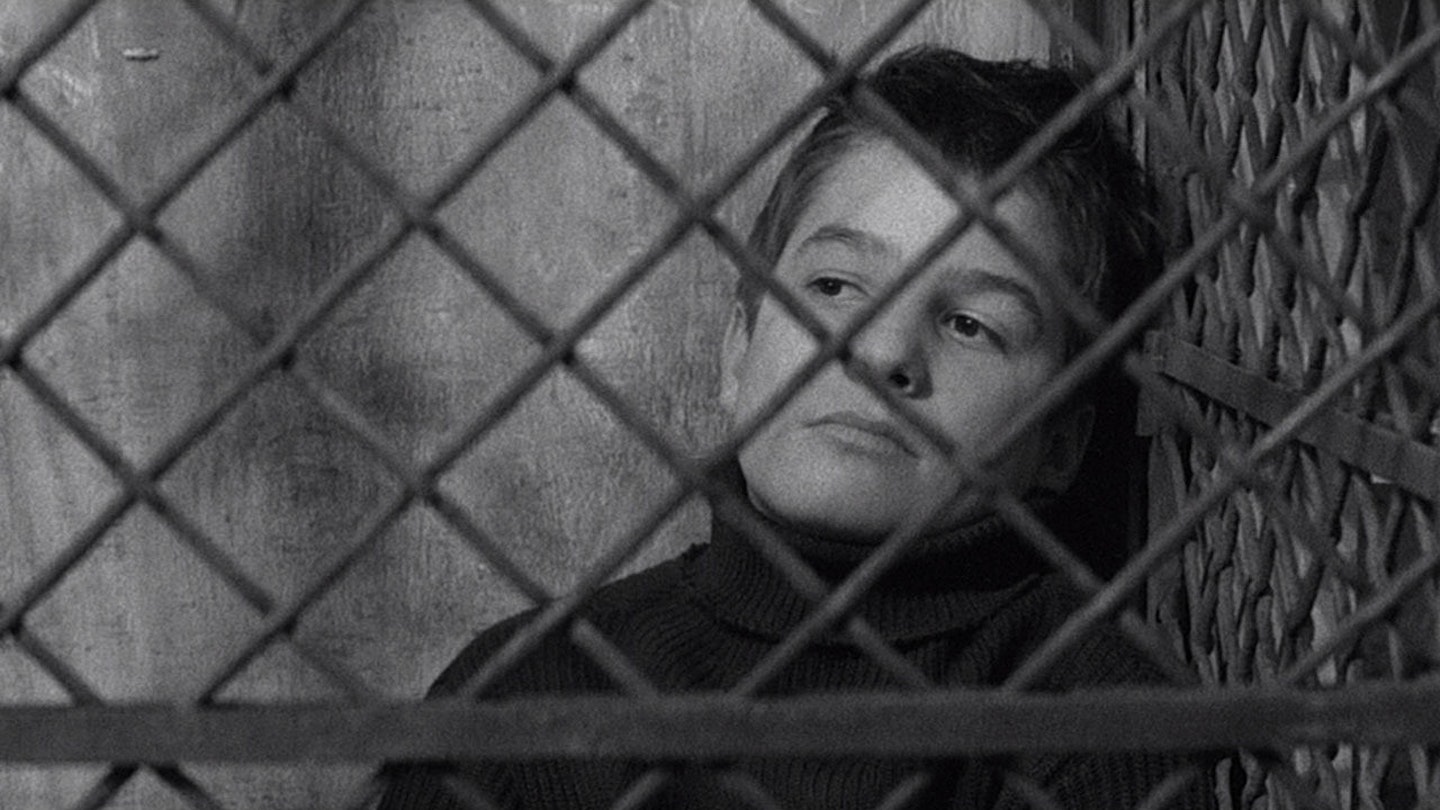
Year: 1959
Country: France
Director: Francois Truffaut
For his debut feature, critic-turned-filmmaker Francois Truffaut tore a strip from the fabric of his own childhood. Like Truffaut, The Four Hundred Blows' hero, Antoine Doinel (Leaud), was neglected at home, skipped school to go to the cinema and ended up breaking out of reform school. With the astonishing Leaud creating one of movies' greatest juvenile delinquents - watch him wipe his nose on the curtains - Truffaut fashioned a cinematic autobiography that is poignant, funny, lyrical, unsentimental and authentic right down to its famous freeze frame finale.
Hollywood remake? Non but Truffaut continued Doinel's story in four more films over a twenty year period, all starring Jean-Pierre Leaud. It's one of cinema's greatest franchises - yes even better than Leprechaun.
Prizes Winner of the Best Director gong in Cannes, nominated for the Best Original Screenplay Academy Award.
What to say... "Cinema is an improvement on life." (Francois Truffaut)
What not to say... "Antoine Doinel is the Gallic Danny Kendall."
28. Raise The Red Lantern
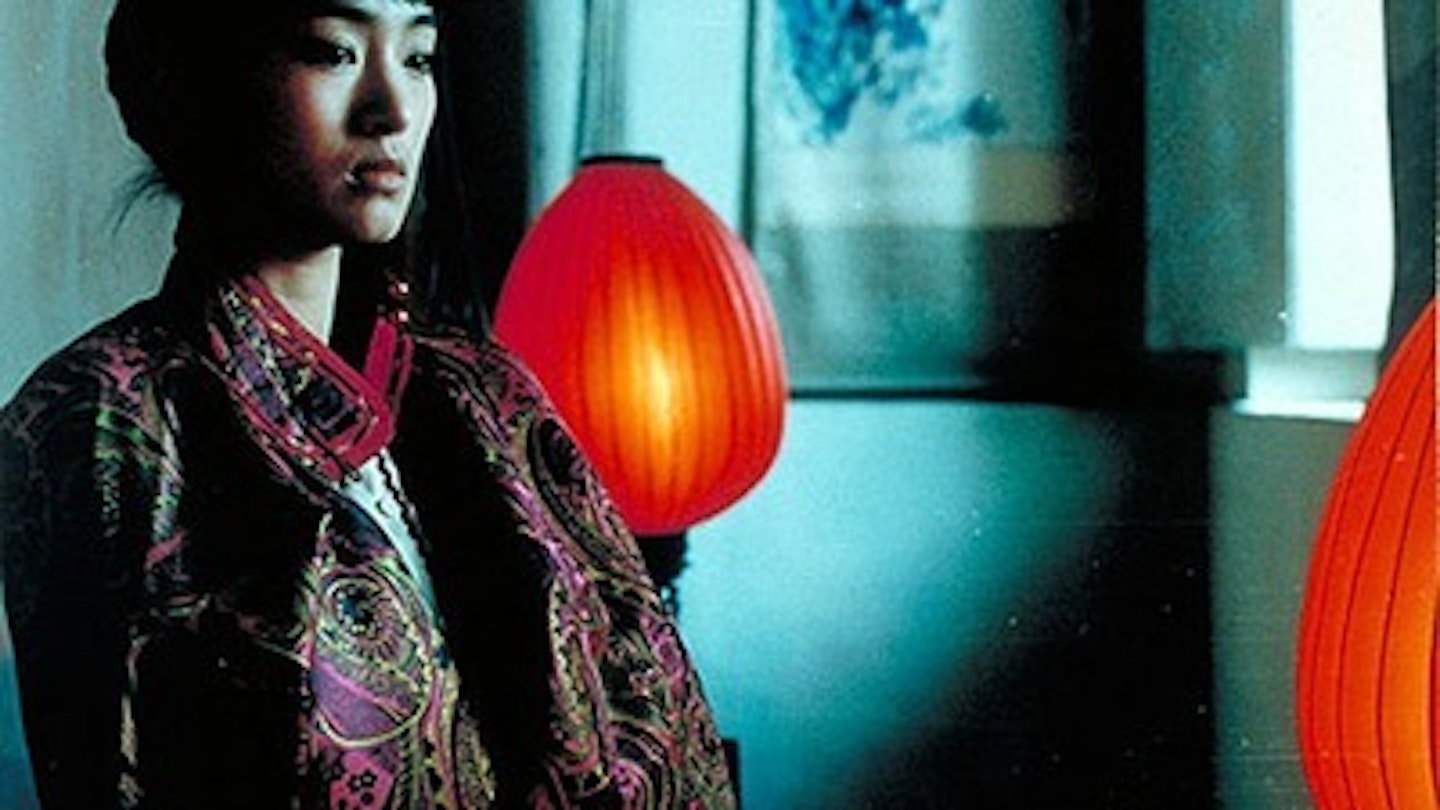
Year: 1991
Country: China
Director: Zhang Yimou
This is the haunting story, set in 1920s China, of Songlian (Gong, never better), a student who decides to become a rich man's concubine after the death of her father leaves her without means of support. Entering his household as the "Fourth Mistress", she swiftly becomes embroiled in the infighting between the women competing for their near-faceless Master's attentions, and finds herself a pawn in a deeply twisted game. Read it as a critique of Communist China, an impassioned plea for empathy or a feminist parable if you like, but it remains a haunting and unforgettable winter's tale.
Hollywood remake? Never. Too stately of pace and female of focus.
Prizes It won the BAFTA for Best Foreign Film, was nominated for the Oscar and took the Silver Lion at the Venice Film Festival.
What to say... "The consistent use of delimiting framing devices reinforced the overall sense of repression, doesn't it? (as per David Parkinson's Empire review)
What not to say... "Gives new meaning to the term red-light district, eh? Eh?"
27. Cinema Paradiso
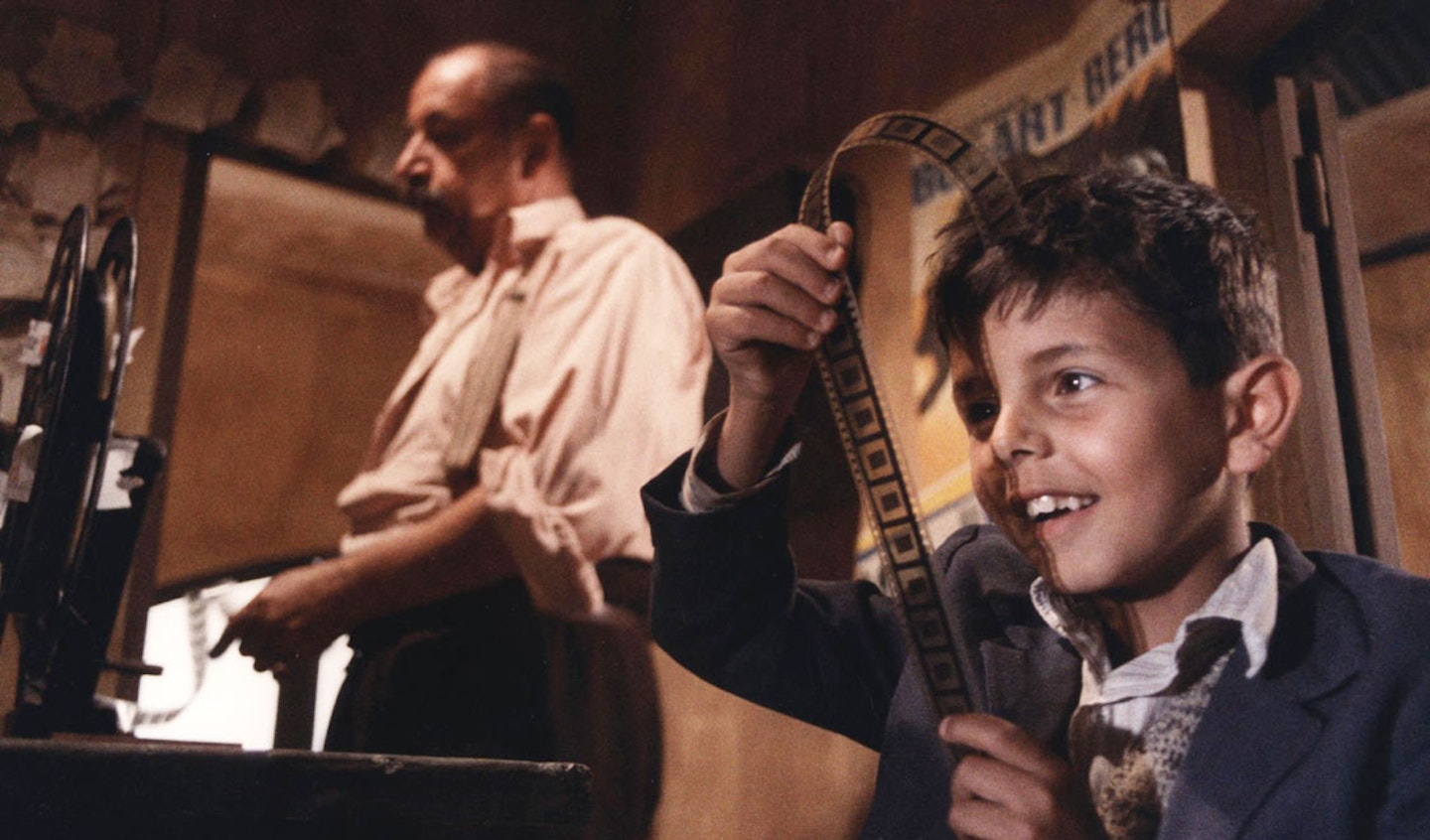
Year: 1988
Country: Italy
Director: Giuseppe Tornatore
Forget the Aeolian islands of Il Postino, forget Life Is Beautiful's Arezzo: the perfect Italian-set love story takes place in a cramped projection booth in a Sicilian cinema, and there isn't a buxom brunette anywhere in sight (well, downstairs maybe). Cinema Paradiso has charm, and wit, to melt the chilliest heart. The blossoming friendship of young tyke Salvatore and grumpy projectionist Alfredo will surely entrance anyone not won over cross-eyed priests and eccentric villagers, while the final kissing montage will devastate the hardest of hearts, and remind you why you love cinema in the first place.
Hollywood remake? No, but a longer, and in truth, saggier, version was released in 2002.
Prizes Paradiso won Best Foreign Language Film at the Oscars, the Grand Jury Prize at Cannes, a Cesar award and lots and lots of BAFTAs.
What to say... "The ultimate love letter to the cinema."
What not to say... "Does Cinema Paradiso do Orange Wednesdays?"
26. La Belle et la Bete
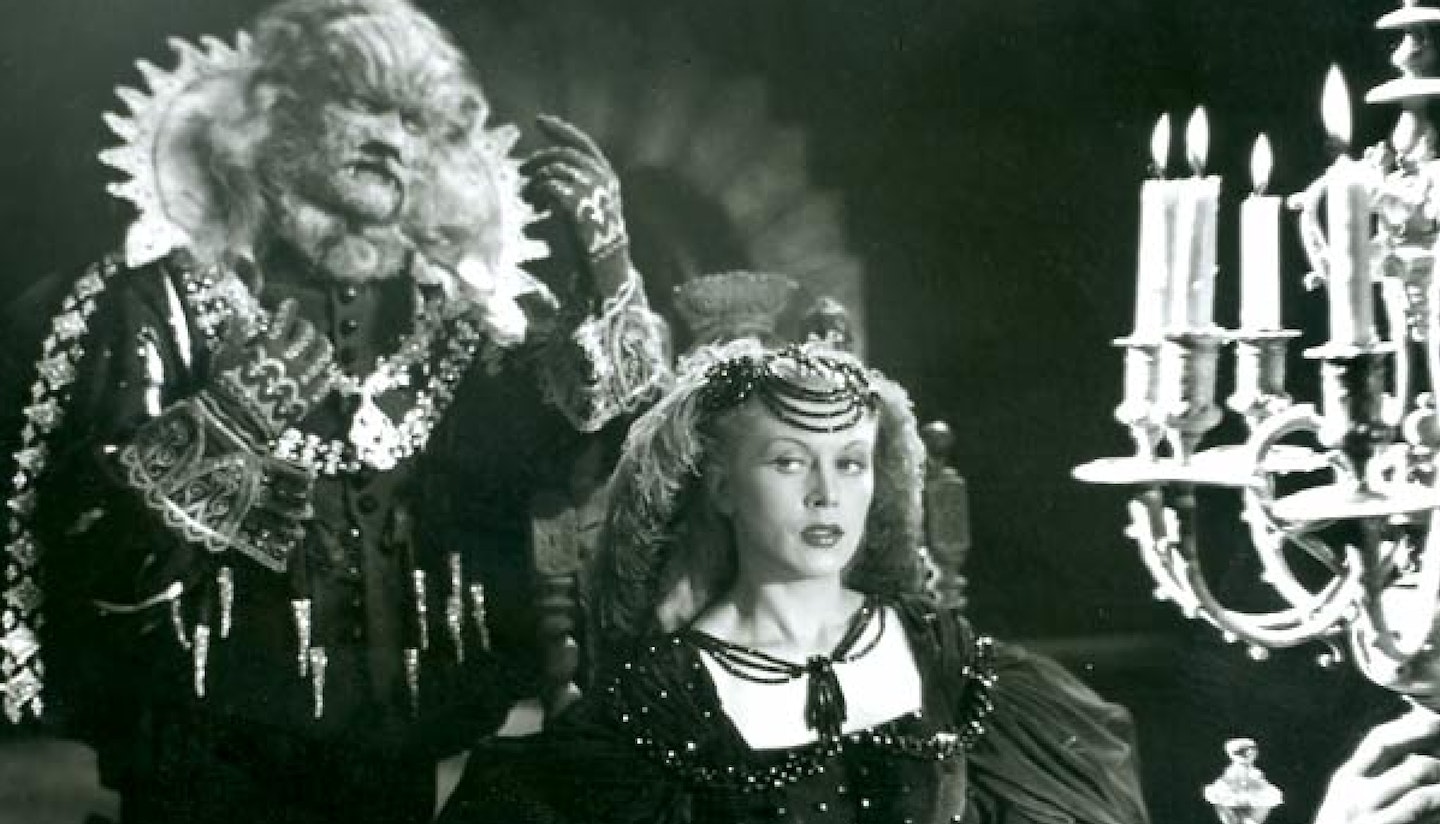
Year: 1946
Country: France
Director: Jean Cocteau
Considering the nightmarish tone and creepy ghoulishness of this classic take on the classic fairytale, it's key to point out this is far from being a children's film, despite director Jean Cocteau asking at the beginning of the film for "a little childlike simplicity". Some adult complicatedness is definitely also required as the sexual chemistry between the Beauty (Josette Day) and Beast (Jean Marais) sizzles on screen, complimenting the spooky eyeball-rolling trickshots and gloomy atmospherics. Disney's Beauty And The Beast it ain't, but the inspiration is crystal clear: just don't settle down with the kiddlywinks with this one.
Hollywood remake? Putting aside the Disney version of the same tale, there was also a Phillip Glass opera, written to perfectly synchronise with this film.
Prizes Aside from France's Prix Louis Delluc for Jean Cocteau, none.
What to say... "The sheer opulence of the costumes is down to a young man known as Pierre Cardin, who designed the men's wardrobe."
What not to say... "Hey, hey, hey where's Lumiere? Where's Mrs Potts? This is bullshit!"
25. Das Boot
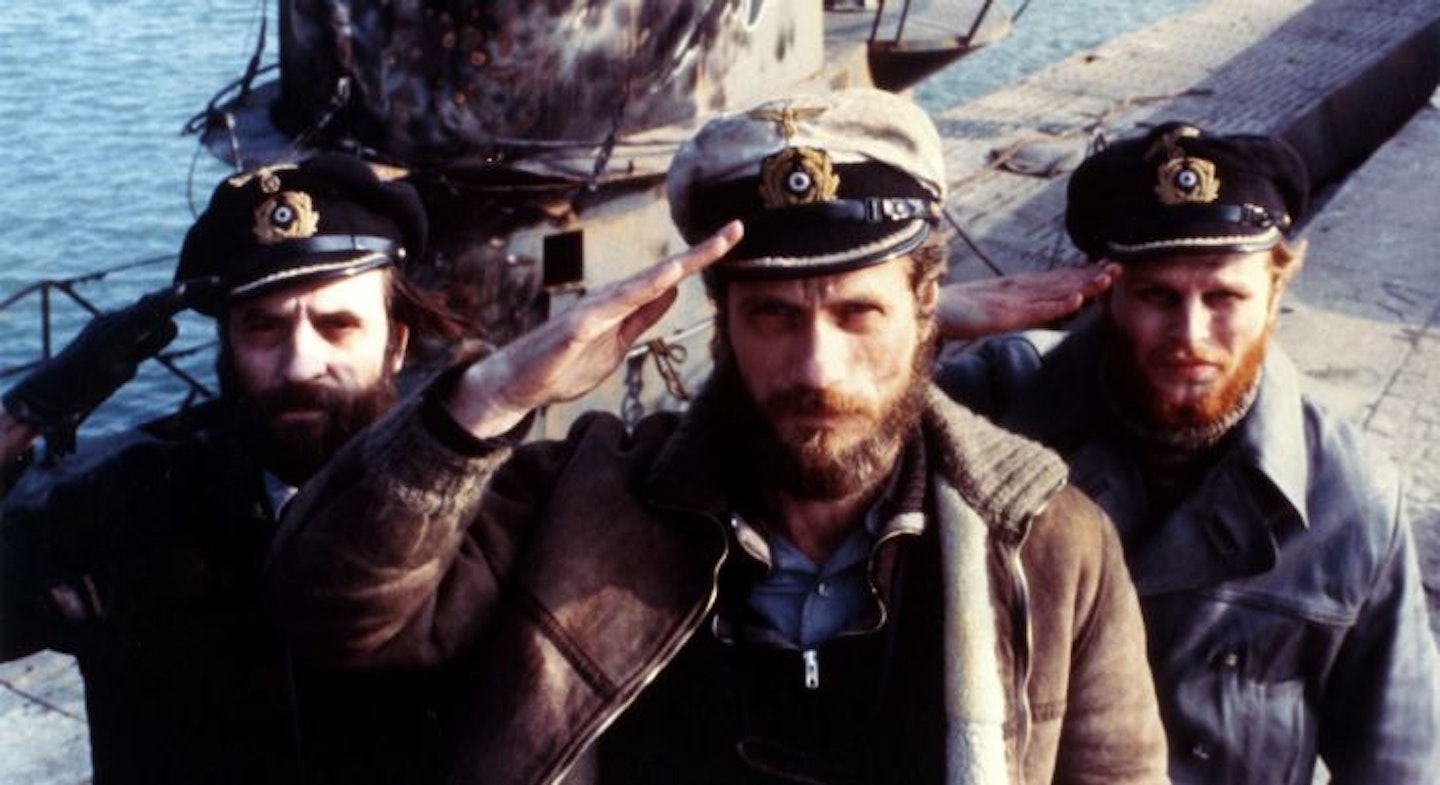
Year: 1980
Country: Germany
Director: Wolfgang Petersen
To experience the claustrophobia of U-boat warfare, lock yourself in a small metal cupboard with a few smelly mates and get another friend to lob high-explosives in your general direction for, ooh, say a tour of several months. While under perpetual threat of sudden inundation and/or implosion. If that seems a bit too much like hard work, settle down with a copy of Wolfgang Petersen's tense sub spectacular instead. Wait and watch as the crew of U-96 fight boredom and grow beards scouring the horizon for the next Allied convoy. Then start biting your nails.
Hollywood remake? Not unless you count U-571, which obviously you don't. The clammy claustrophobia of Israeli tank-film Lebanon owes an obvious debt too.
Prizes Nicht. Petersen's watery war flick met with disappointment at the Oscars, collecting a tub-full of nominations but winning nothing. The night ended Gandhi 5, German Navy 0 - so that peaceful protest thing might have something going for it after all.
What to say... "Arguably the greatest adaptation of a combat memoir since All Quiet On The Western Front."
What not to say... "Ping? Ping? Ping?"
24. Come And See
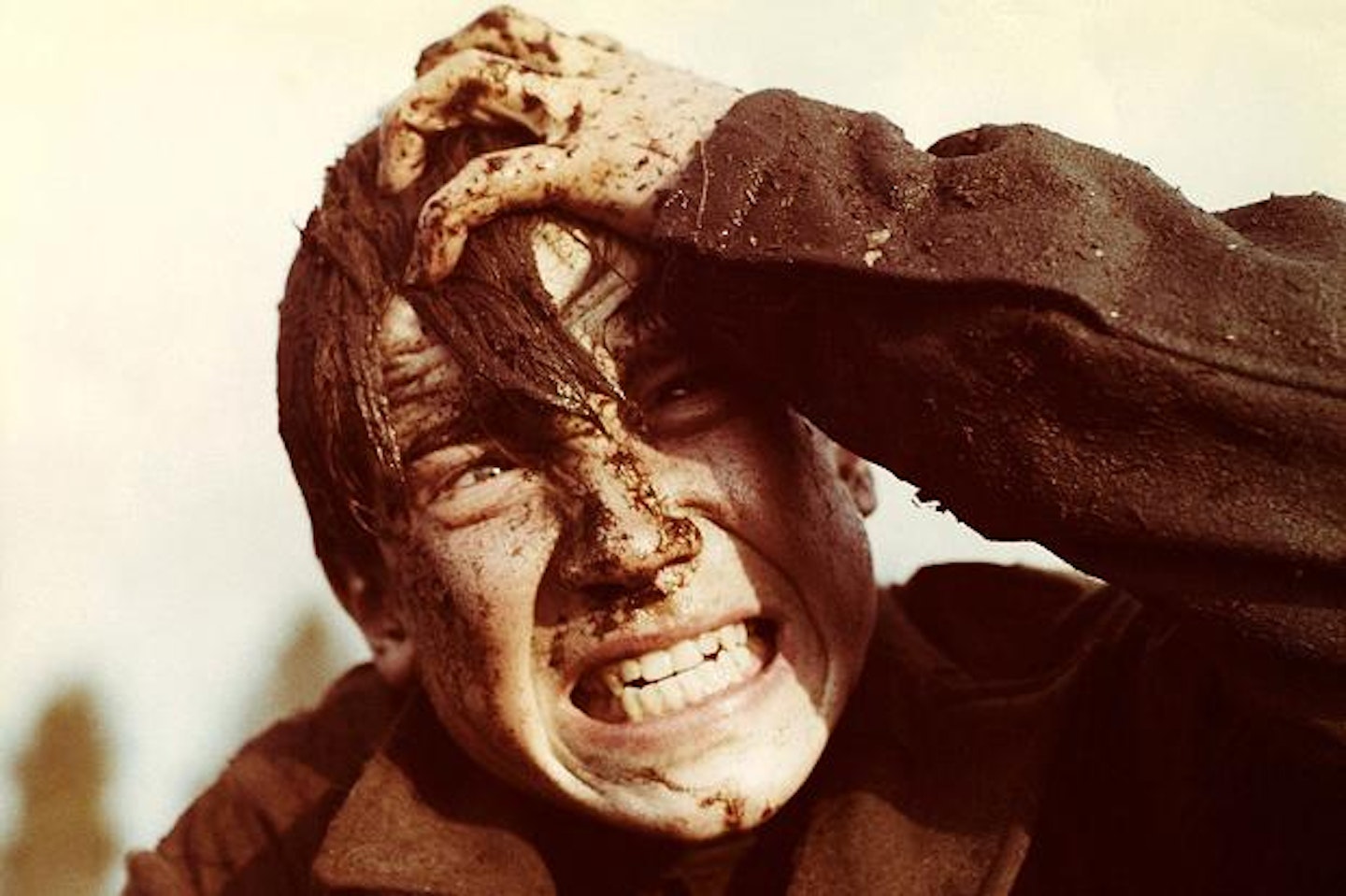
Year: 1985
Country: Russia
Director: Elem Klimov
A teenage boy's bleak-as-pitch odyssey through wartorn Belarus is named after a verse from the book of Revelation which, while too long to quote in full, can be paraphrased in this context as, "Don't come expecting a Nora Ephron rom-com." Biplanes circle like buzzards above, corpses are piled like firewood against buildings, while Nazi death squads scour the countryside with bug-eyed glee. It's a journey that carriers the viewer to hell and leaves us there. Nothing, before or since, has captured the psychological carnage of war like the final shot of the boy's face, now hollow-eyed, lined and aged.
Hollywood remake? No, although we wouldn't mind seeing David Lynch's version.
Prizes Only two, both at the Moscow International Film Festival, but most of the Soviet Union went to see it.
What to say... "Elem Klimov's film is the Apocalypse Now of foreign-language cinema."
What not to say... "If 29 million people saw it when it came out, does that make it the Soviet Union's Avatar?"
23. Spirit of the Beehive
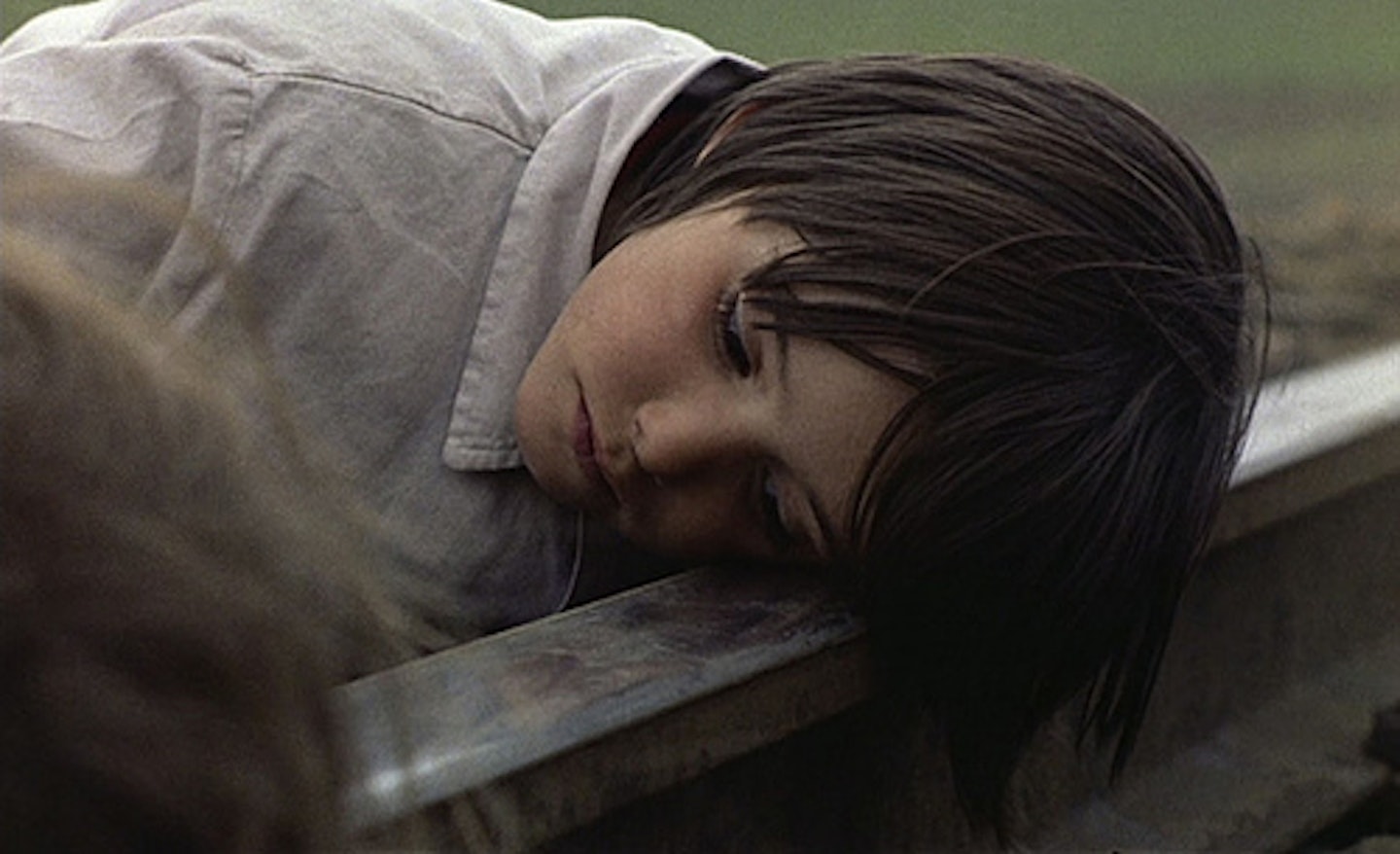
Year: 1973
Country: Spain
Director: Victor Erice
Erice's first film - one of the great debuts - perfectly paints the inner life of a small girl with unforgettable dream-like imagery, subtle social commentary and innate sensitivity. Six year-old Ana (a stunning Ana Torent) is spellbound by a screening of Frankenstein in her small Castillian village and convinced that a fugitive she befriends embodies the spirit of Boris Karloff's monster. Haunting, lyrical (cinematographer Luis Cuadrado was going blind during the shoot) with points to make about Franco's reign, few films have entered the worlds children create for themselves so beautifully.
Hollywood remake? Guillermo del Toro's Pan's Labyrinth owes Beehive a huge debt in its story of a small girl who parlays political realities into a fantasy world.
Prizes No.
What to say... "The Spirit Of The Beehive contains exactly 1000 shots - 500 inside, 500 outside."
What not to say... "Is it like The Swarm?"
22. Rashomon
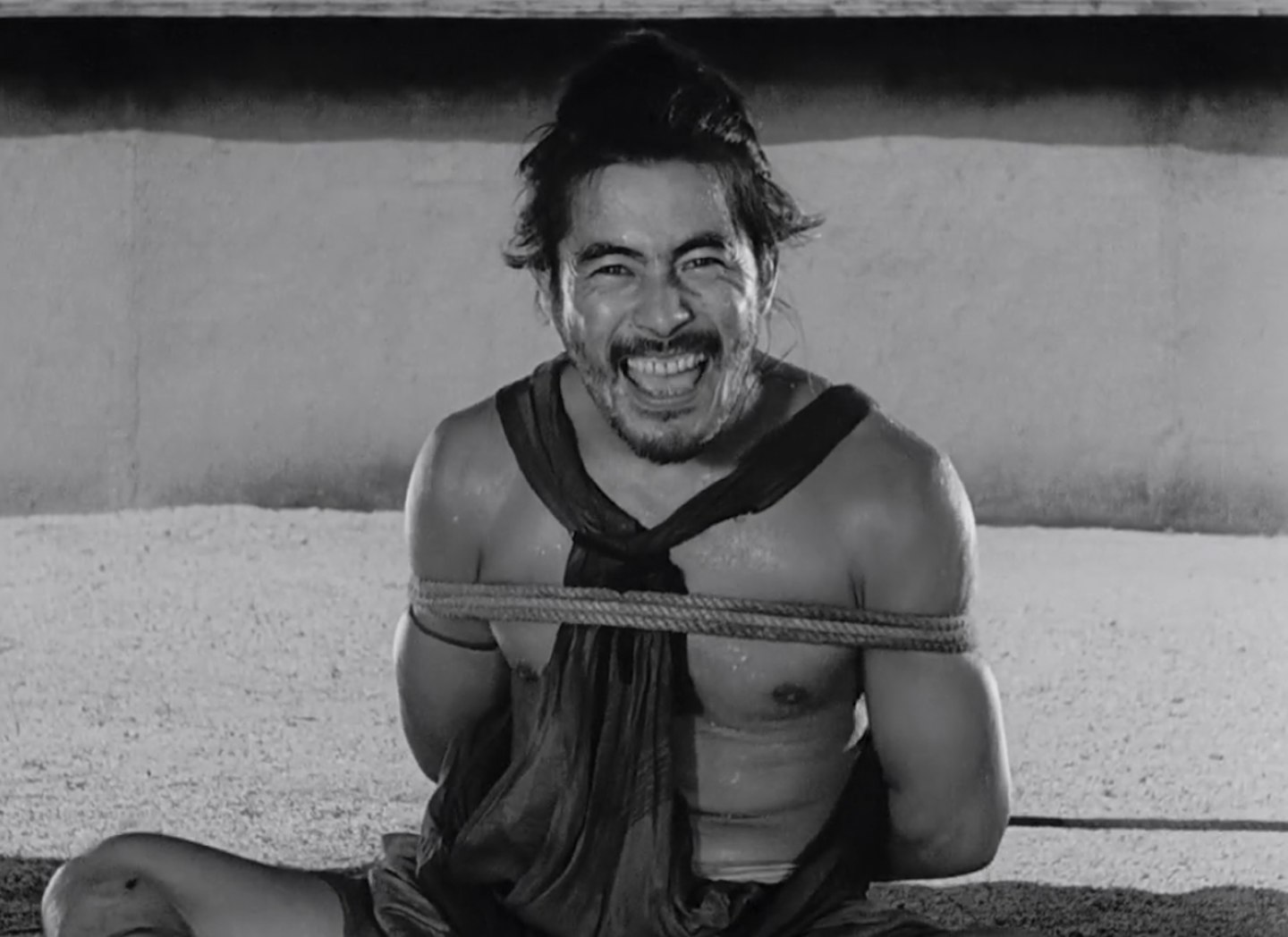
Year: 1950
Country: Japan
Director: Akira Kurosawa
The movie that put Japanese cinema on the map, Kurosawa's first masterpiece takes a murder and (possible) rape in a forest in feudal Japan and examines it from four different perspectives (the rape victim, a bandit, a priest, a woodcutter) all uncovered at a trial. Unlike a traditional whodunit, events get murkier and more tangled with Kurosawa cranking up the intrigue and uncertainty as contrasting viewpoints clash. The stunning look of the movie - from the torrents of rain in the opening shots to the dappled sunlight in the forest - plays its part in making every little thing difficult to discern, backed up by forceful performances, especially from Toshiro Mifune.
Hollywood remake? The Outlaw, a Western starring Paul Newman and Edward G. Robinson, is an actual remake with Kurosawa credited as a screenwriter. But numerous films have employed its subjective versions concept, such as Hero, Basic and Vantage Point. It also brought the term "the Rashomon effect" into the legal lexicon.
Prizes The Best Foreign Language Oscar, and Best film at the Venice Film Festival.
What to say... "Did you know that Rashomon was the first film to point a camera directly at the sun?"
What not to say... "The truth is out there."
21. Nosferatu
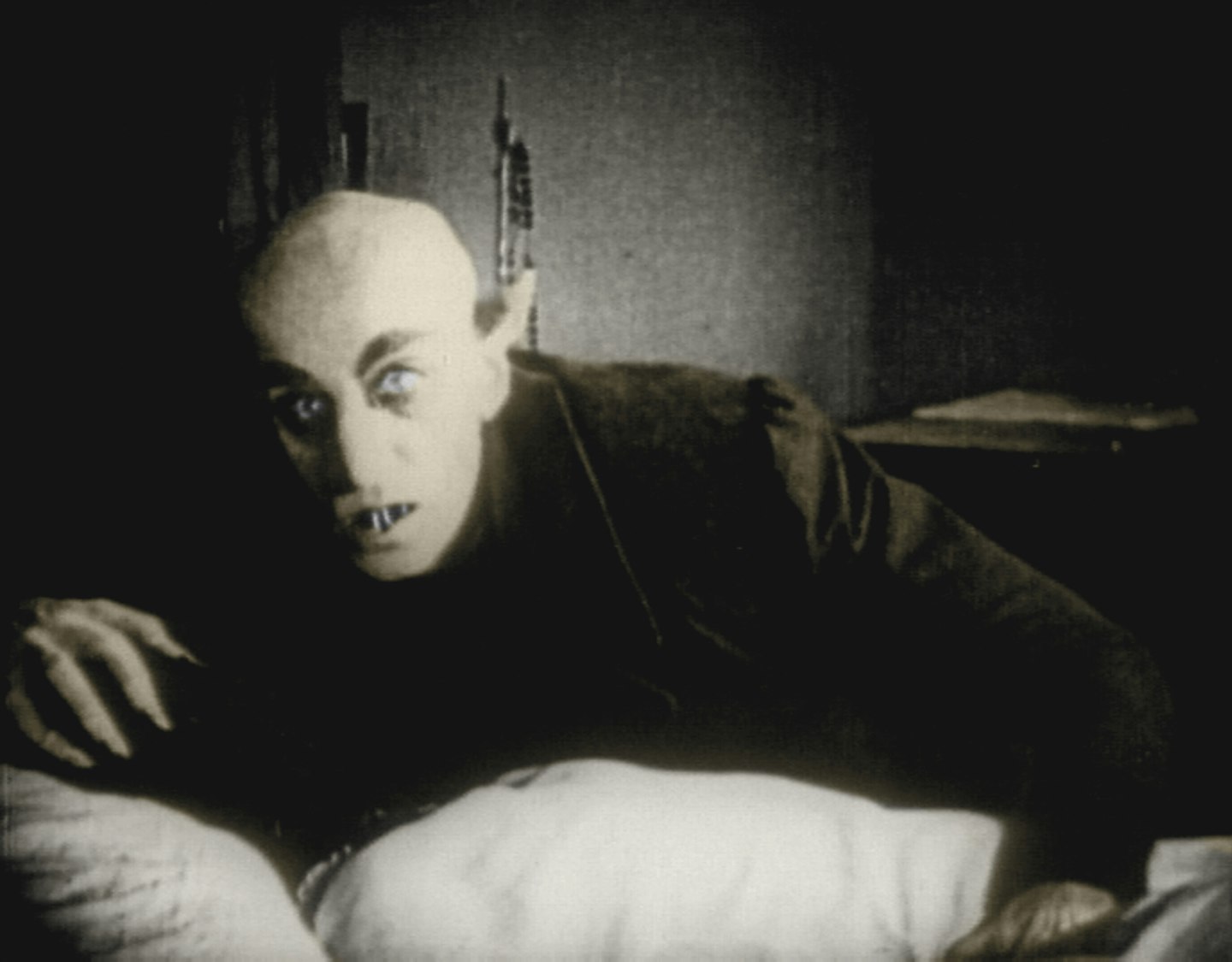
Year: 1922
Country: Germany
Director: F.W. Murnau
F(riedrich) W(ilhelm) Murnau's silent classic is the original vampire movie, before the cliches and the camp sunk their fangs into the genre. The astonishing looking Max Schreck excels as Count Orlov, the vampire who desires the wife of his clerk, Hutter (Gustav Von Wagenheim), and sets sail to claim his prey. It might not be scary in the modern sense, but it manages to be eerie and magical at the same time, due to Murnau's filmmaking prowess (shadows have never been creepier), great special effects and the gaunt figure of Schreck's proto-Dracula.
Hollywood remake? Practically every vampire movie since dips liberally from Nosferatu's well. Werner Herzog managed an interesting remake with Klaus Kinski. Tobe Hooper's Salem Lot borrows Orlok's look for Mr. Barlow. In 2000, E. Elias Merhige's Shadow Of A Vampire detailed the making of Nosferatu re-imagining Max Schreck as a real vampire, with Willem Dafoe as Schreck and John Malkovich as F.W. Murnau.
Prizes Nada.
What to say... "Is this your wife? What a lovely throat?" (Orlov)
What not to say... "Are you Team Orlov or Team Hutter?"
20. Y Tu Mama Tambien
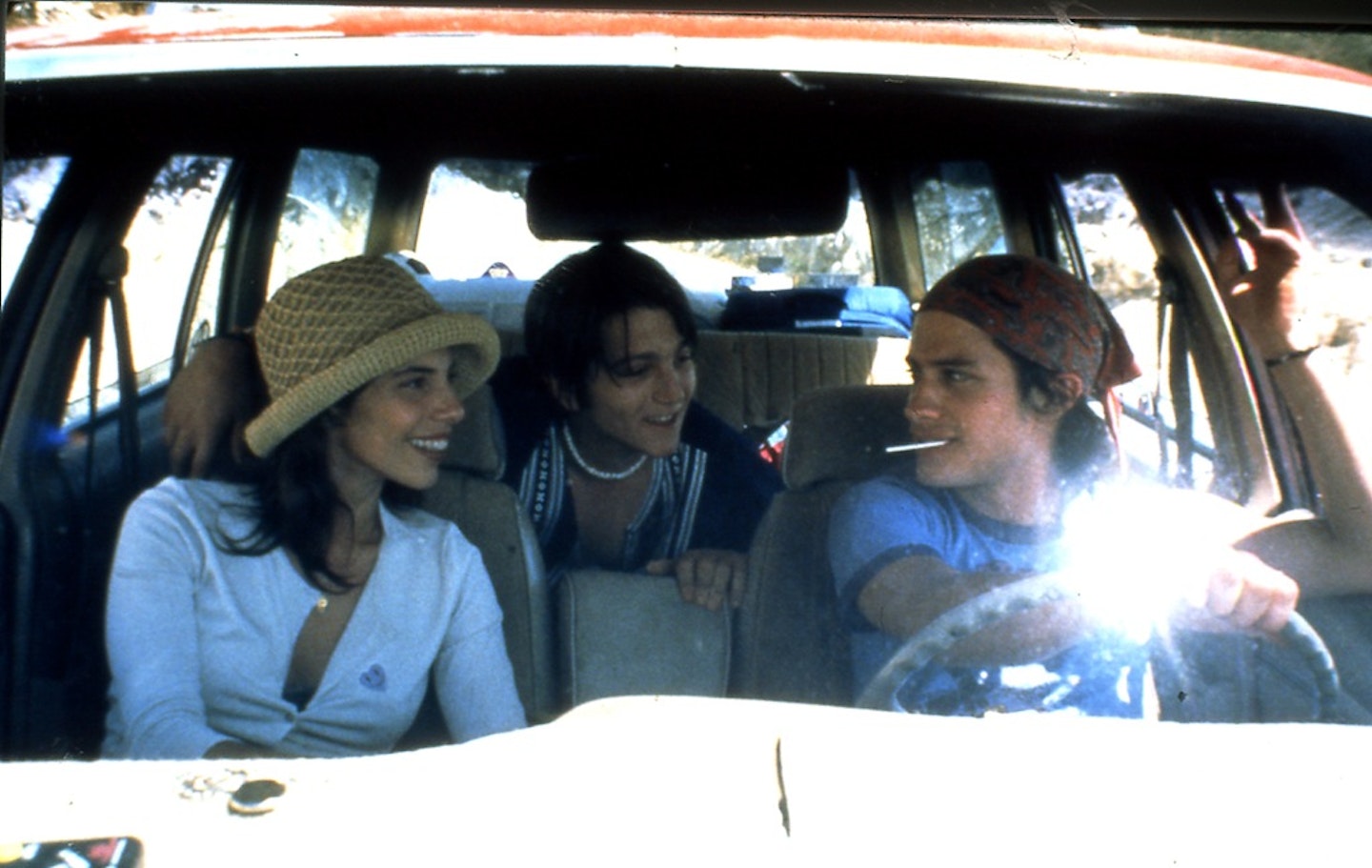
Year: 2001
Country: Mexico
Director: Alfonso Cuaron
Bernal and Luna are best friends in real life, and it shows over the course of this delightfully shot road movie. As two friends who convince the attractive wife of a relative to journey with them to a beach called 'Heaven's Mouth' - which, unfortunately, doesn't exist - the pair are all Heaven's mouth and no trousers. Their cocksure machismo is a joy to watch, knowing underneath that their complete lack of experience is about to appear through the cracks, bouncing off the gorgeous and more mature Verdu. Breaking Mexican box office records, it's a grown-up coming-of-age tale whose take on what it is to be a man will stay with you for a good long while.
Hollywood remake? There's been talk of Eva Mendes taking Verdu's role in a potential American version, but nothing has come of it - which is probably just as well, considering the delicate chemistry between the original cast.
Prizes Nominated for best original screenplay at the Oscars and the BAFTAs, it won most of its many awards elsewhere, picking up the Best Foreign Language film at Independent Spirit, and Best Screenplay at Venice.
What to say... "The subtle political message can be seen in the surnames of all the main characters, as they are all named after famous figures in Mexican history, such as Zapata, Iturbide and Carranza, whereas the one Spanish character is called Cortes."
What not to say... "And Your Mother Too? Isn't that a Daphne and Celeste song?
19. Aguirre, Wrath of God
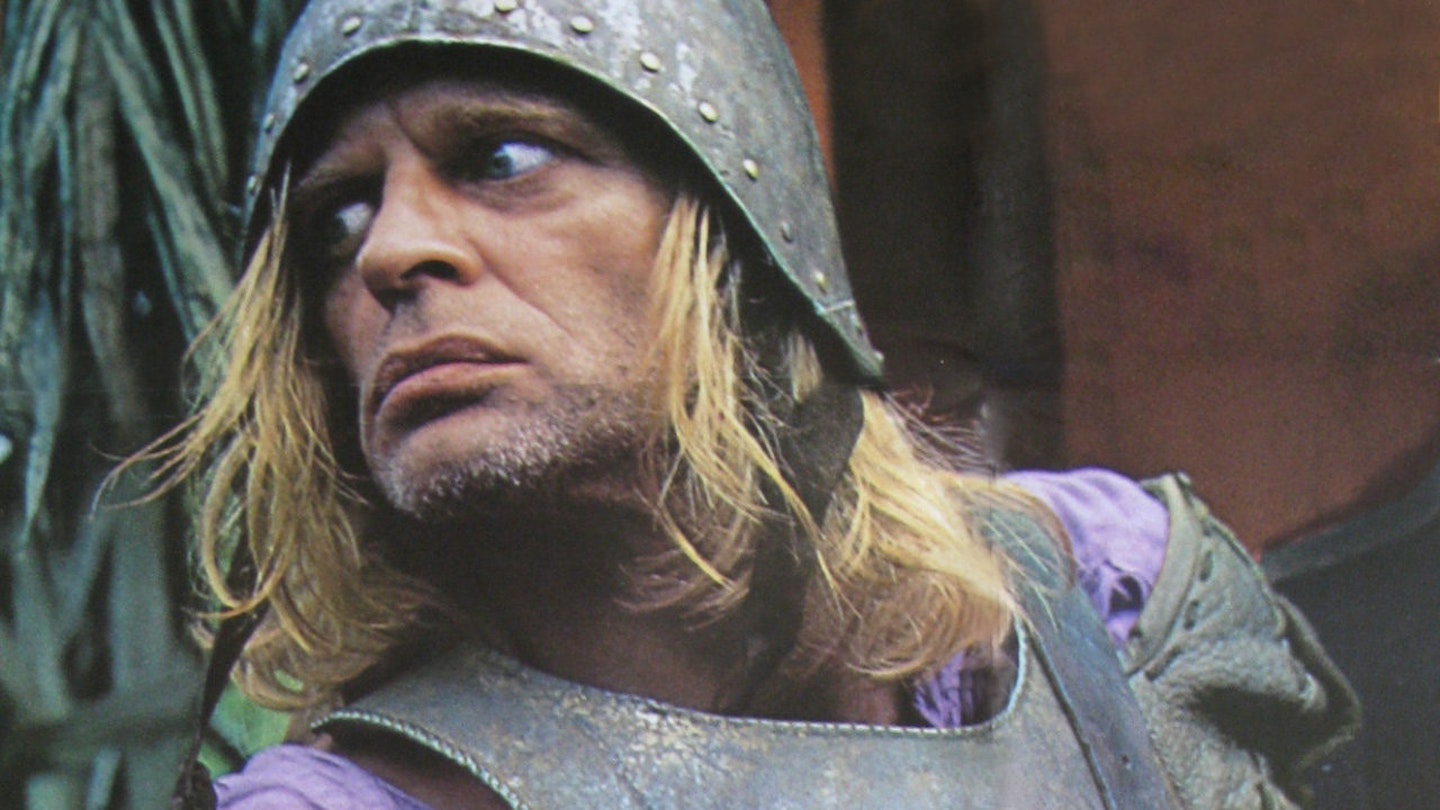
Year: 1972
Country: Germany
Director: Werner Herzog
The film that put Werner Herzog on the map, Aguirre is the fable-like story of a Spanish Conquistador (Kinski) driven bonkers by his ambition to find the legendary city of Eldorado in 16th Century South America. This is the heady, natural world ambience of Bad Lieutenant played out to the max, with Kinski beating Cage hands down in the intensity Olympics. Lest we forget, this is the movie that kick-started the tempestuous Herzog-Kinski relationship and a raft of great on-set anecdotes - when Kinski threatened to abandoned the film mid-shoot, Herzog threatened to shoot the actor, then turn the gun on himself.
Hollywood remake? Apocalypse Now has a similar sense of jungle fever and Terrence Malick's films - especially The Thin Red Line and The New World - share Aguirre's passion for nature.
Prizes Nada.
What to say... "Every gray hair on my head I call Kinski." (Werner Herzog)
What not to say... "Aguirre Wrath Of Khan - classic!"
18. Oldboy
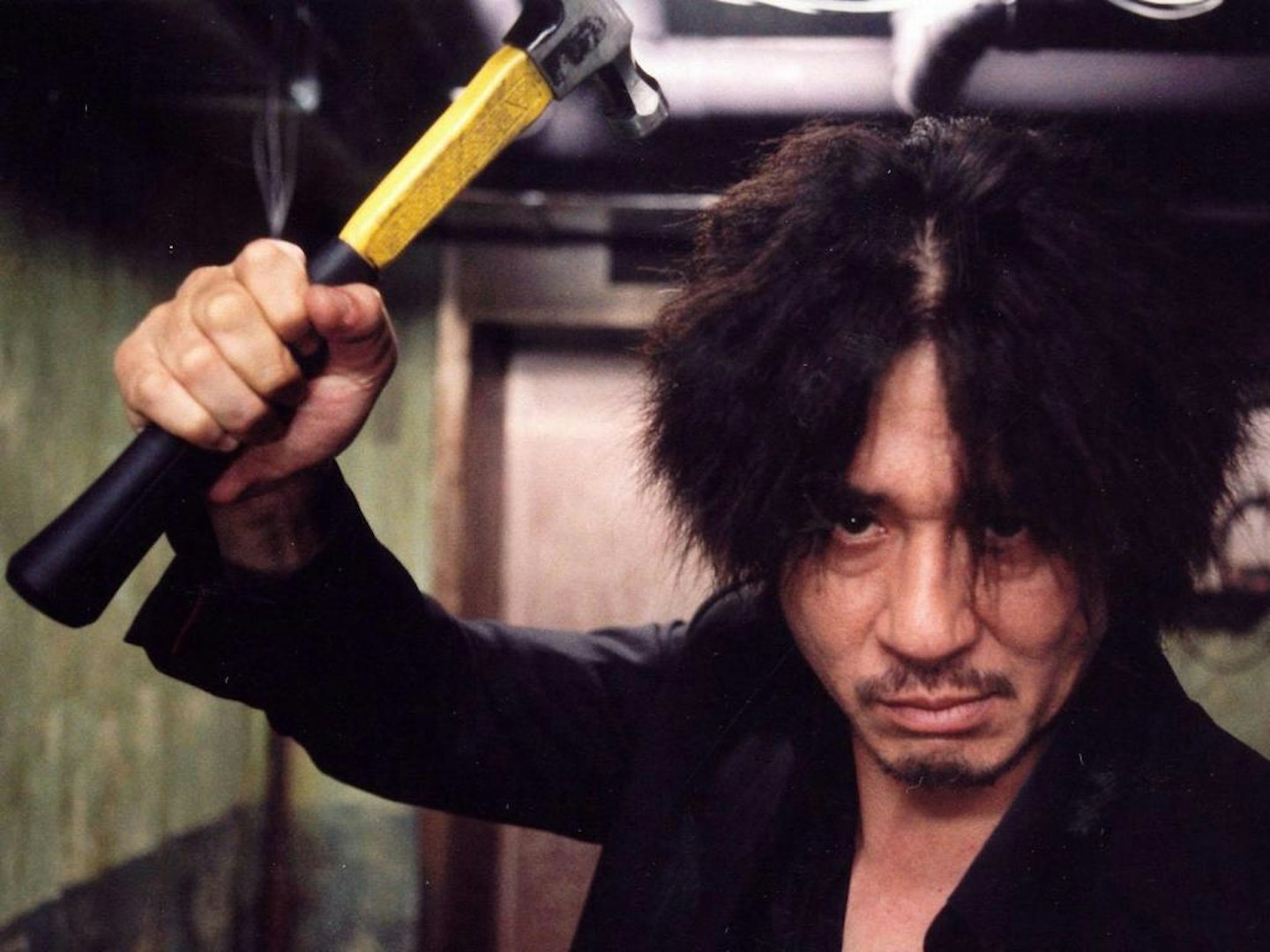
Year: 2003
Country: Korea
Director: Park Chan-wook
Octopus rights activists and DIY die-hards may not agree, but Park Chan-wook's excruciatingly bleak and violent tale of vengeance is essential viewing. Loosely based on a Japanese manga about a man who's imprisoned in a cell for fifteen years and vows to hunt down his captor upon release, it's a movie that delivers hammer blow after hammer blow. Some of them, notably during the magnificent single-shot corridor-based fight scene, are literal, but most, as the film hurtles towards its dark, twisty climax, are metaphorical. Either way, it's classic stuff.
Hollywood remake? For a while, Steven Spielberg and Will Smith were attached to an American version, and while we would have loved to see how the 'Berg tackled that hammer attack sequence, we would have hated to see its edge watered down for a PG-13, multiplex-friendly vibe. Not that that was necessarily what would have happened, mind. Anyway, the project is currently looking for a director.
Prizes The film wowed 'em upon its debut in Cannes, picking up the Grand Jury prize, and also won Best Foreign Film at the British Independent Film Awards.
What to say... "If you thought The Dark Knight was the darkest comic book movie of all time, you ain't seen nothing yet."
What not to say... "The darkest comic book movie ever? Haven't you seen Teenage Mutant Ninja Turtles II: Secret Of The Ooze?"
17. The Apu Trilogy
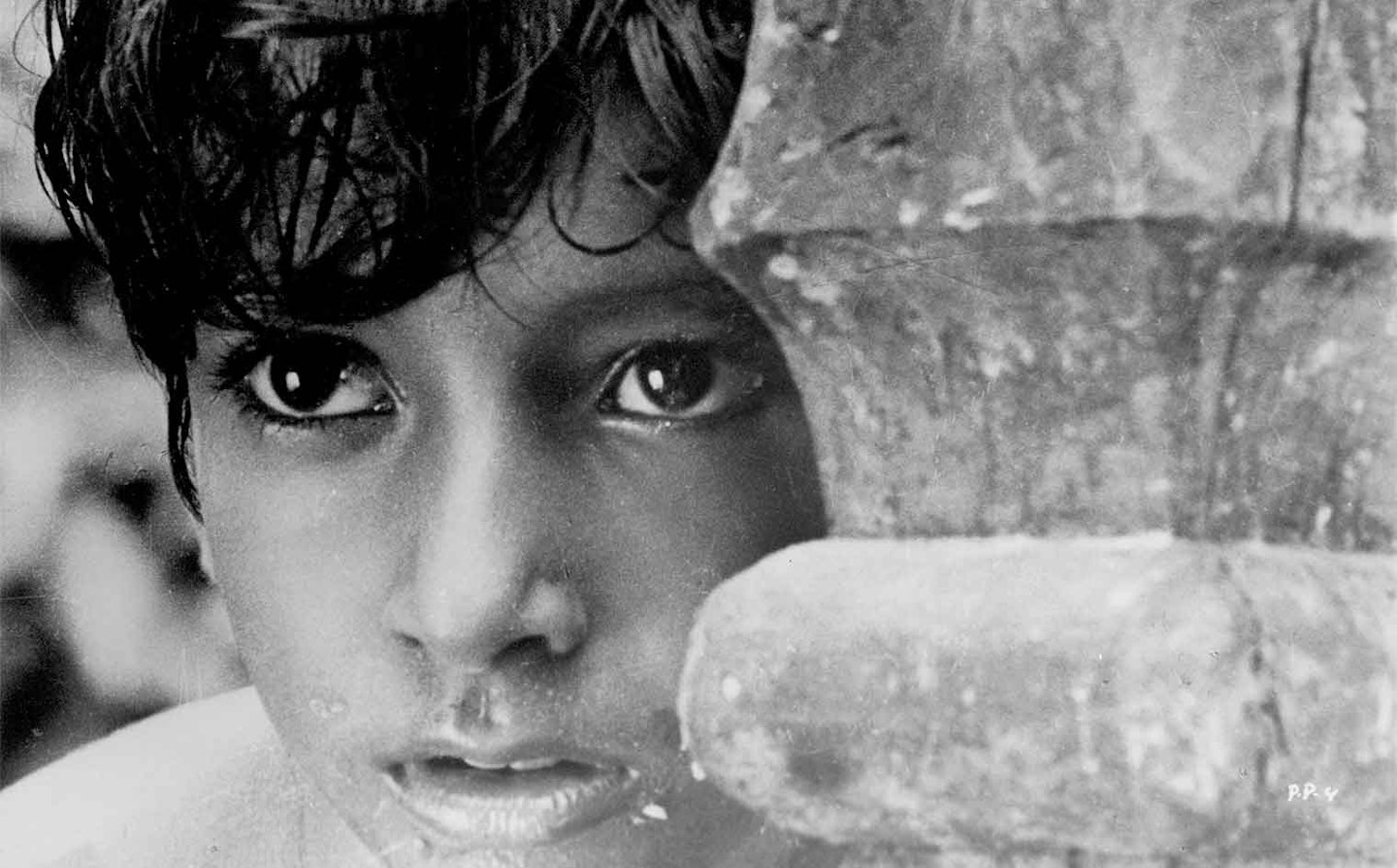
Year: 1955/56/59
Country: India
Director: Satyajit Ray
The Apu Trilogy follows young Bengali, Apu Roy, from his impoverished childhood in a small village (Pather Panchali), through his University education and conflicts with his mother (Aparajito) to a more turbulent adult life (Apur Sansar), where Apu is struggling with an arranged marriage and subsequent fatherhood. All three films thrum with humanity, an accumulation of beautifully captured moments and a real feel for the rhythms of everyday life, with the more conventional Apur Sansar finding a note of hope to conclude a stunning trilogy. And no, it doesn't include Ewoks using Stormtrooper helmets as bongos.
Hollywood remake? No remakes, but Scorsese (Taxi Driver mixes the real and hyper real a la Apur Sansar) and Phillip Kaufman have made clear the Apu affection.
Prizes Pather Panchali won 13 International awards (including Best Human Document award at Cannes), Aparajito snagged 11 (including Venice's Golden Lion) and Apur Sansar won a BFI Best film award and a BAFTA Best Film nom.
What to say... "To have not seen the films of Ray is to have lived in the world without ever having seen the moon and the sun. (Akira Kurosawa)
What not to say... "Jai-ho!"
16. Tokyo Story
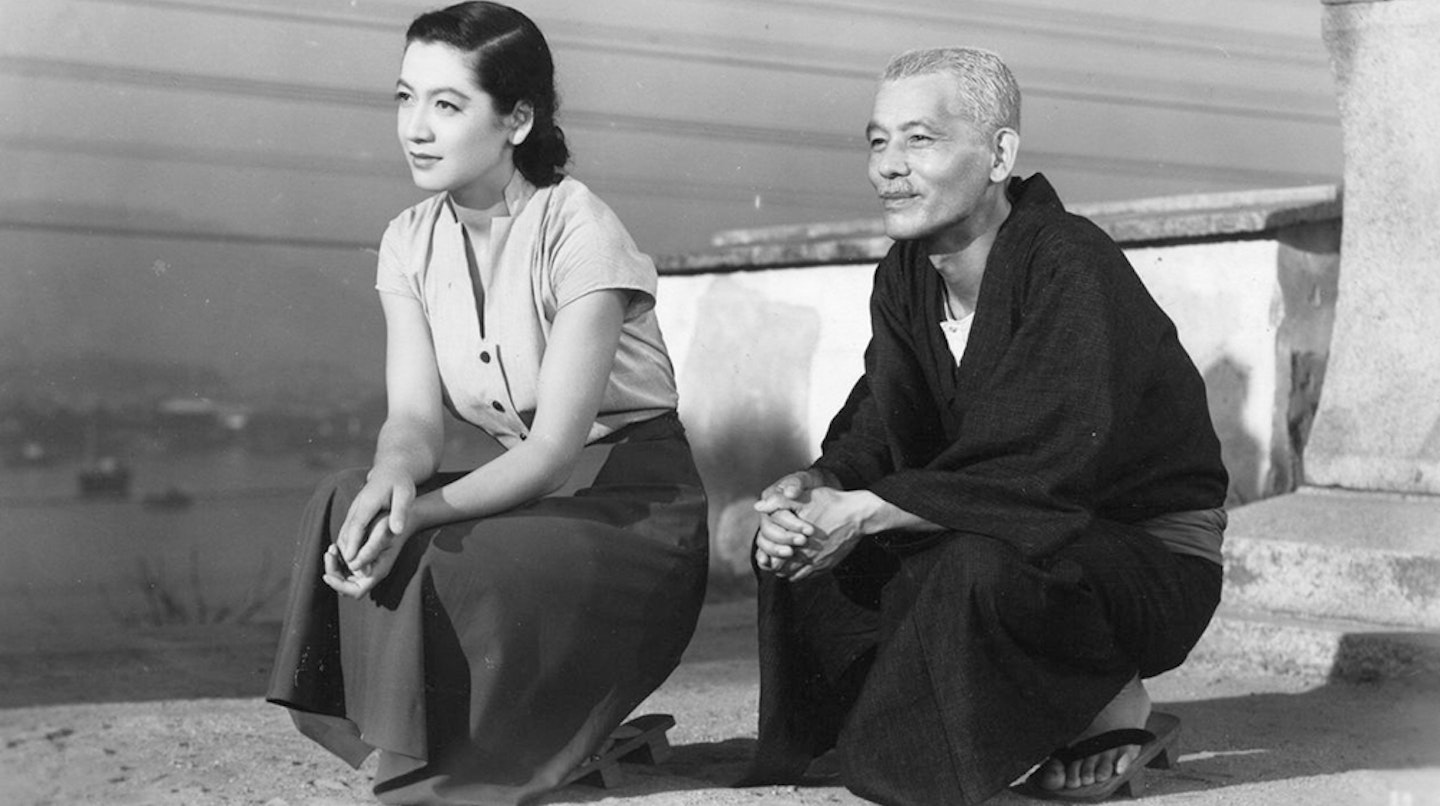
Year: 1953
Country: Japan
Director: Yasujiro Ozu
If the thing that rocks you back in a Bruckheimer movie is, let's say, Nicolas Cage running away from a huge explosion, then the thing that kidnaps your breathe in Tokyo Story is Setsuko Hara's smile or Chishu Ryu's sighs. An intimate family drama, Ozu's film is simplicity personified: an elderly couple visit their children and grandchildren, become a burden (no-one admits this), go home and then the grandmother dies. Two things stand-out: it doesn't have a false, sentimental bone in its gentle body. And, given its TV movie premise, it is the most stylish cinematic experience imaginable, defined by a low static camera and unique use of sound.
Hollywood remake? No US remake - it is too sedate for American tastes - but German flick Cherry Blossoms plays variations on the theme
Prizes None, but it is that rare film that scores 100% on Rotten Tomatoes.
What to say... "The pacing of Tokyo Story is not slow. It is calm."
What not to say... "Love that Fast And The Furious: Tokyo Story"
15. Let The Right One In
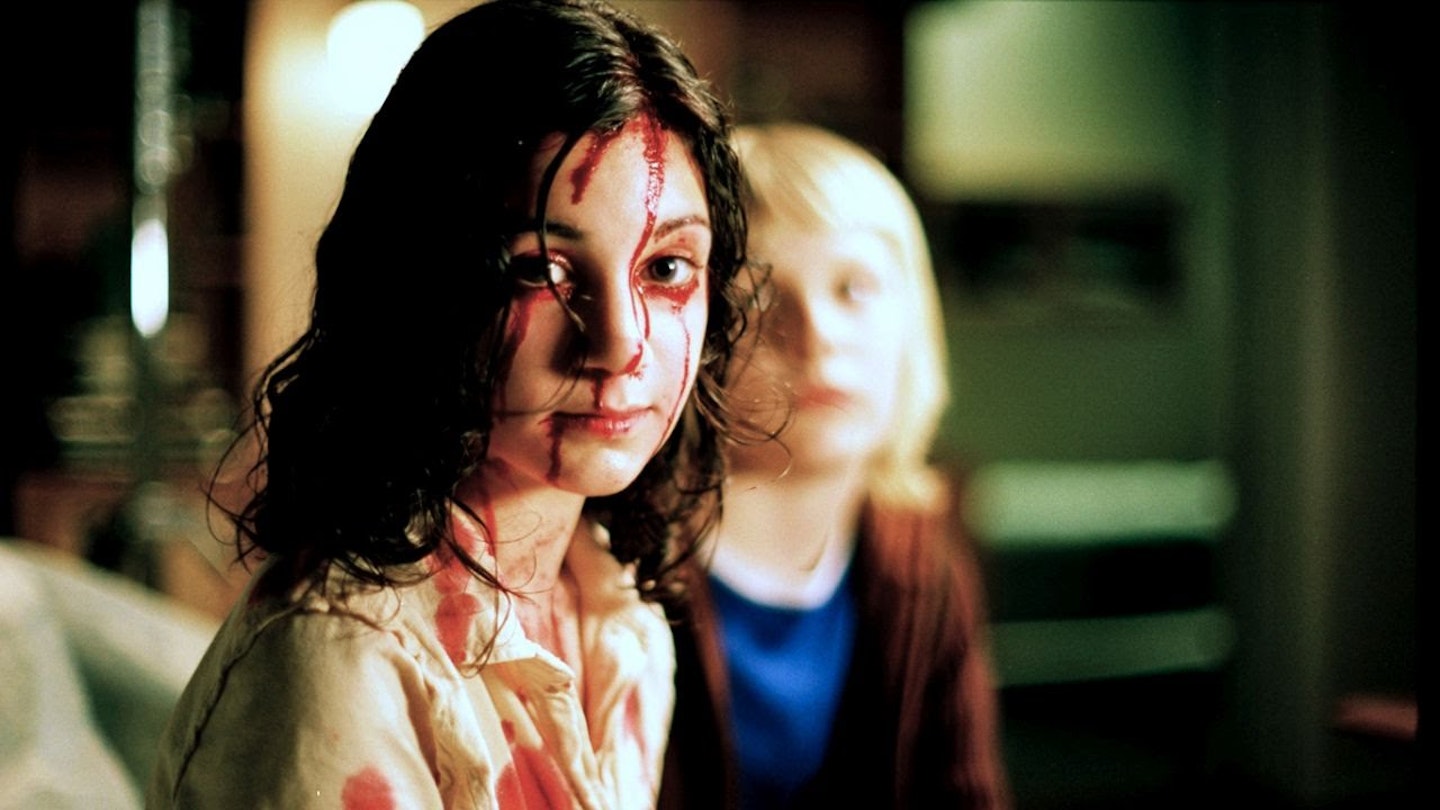
Year: 2008
Country: Sweden
Director: Tomas Alfredson
In these days where every second movie seems to feature vampires, it takes a very special twist on the legend to surprise us - but this one knocked us out and then bit us in the jugular. Bullied, disturbed Oskar (the astonishing Hedebrant) befriends strange new girl Eli in his building (Leandersson), unaware that she is not exactly a girl and anything but new. As the bodies mount and the blood splatters, it's still that strange central friendship that makes this so frightening, and so magnetic.
Hollywood remake? Yes: before the original was even released in the US, Cloverfield's Matt Reeves had signed on to write and direct a US version, starring Kodi Smit-McPhee (The Road), Richard Jenkins and Chloe Moretz (Kick-Ass). We'll see the results on October 29, 2010.
Prizes A BAFTA nomination for Best Foreign Film, a host of critics and Festival awards, and a storm of protest over its lack of an Oscar nod.
What to say... "Of course, they rather fudged the whole issue of Eli's gender, which is dealt with at more length in the book."
What not to say... "I'm Team Edward, myself."
14. Three Colours Trilogy
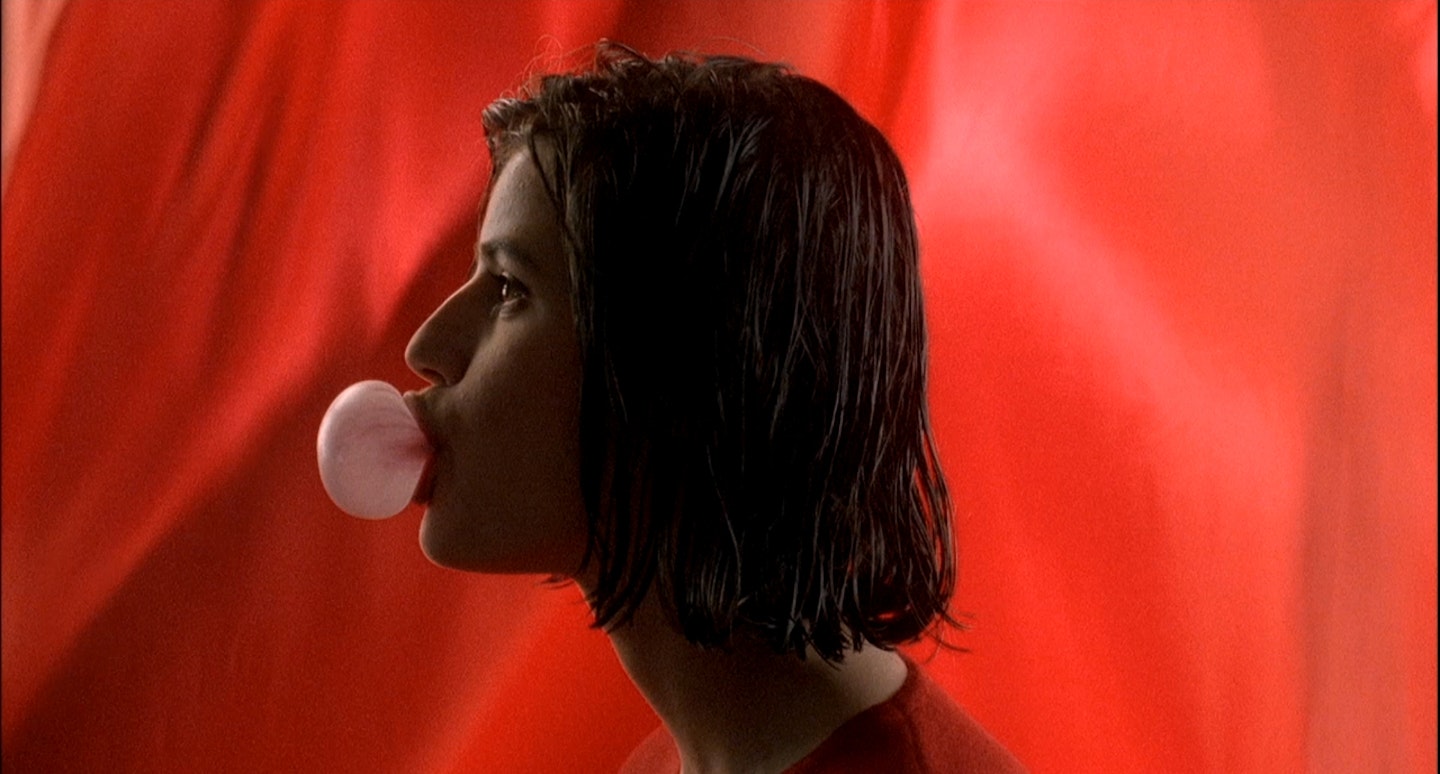
Year: 1993/94
Country: Poland
Director: Krzysztof Kieslowski
Okay, it's three films for the price of one, with a cast of lovelorn judges, lonely emigres and grief-stricken widows searching for consolation in an unforgiving modern day Europe. But while Kieslowski's colour-coded trilogy works through the colours of the French national flag (if he'd picked South Africa, he'd still be making it), and is rooted in liberte, egalite and fraternite, it's chock full of universal themes and emotions. They won't cheer you up - many of them centre on loss and sorrow - but just try not to be moved by them.
Hollywood remake? Nope, although they wouldn't even need to change the colours.
Prizes Widely hailed as the best of the three, Red scored highest, with Oscar nods for Best Director, Original Screenplay and Cinematographer and a Palme d'Or nomination. Blue won Best Film and Best Actress for Juliette Binoche at Venice, while White won a Silver Bear in Berlin.
What to say... "Kieslowski is one of the filmmakers I would turn to for consolation if I learned I was dying." (Roger Ebert)
What not to say... "Did you know the fourth colour was going to be puce?"
13. La Regle du Jeu
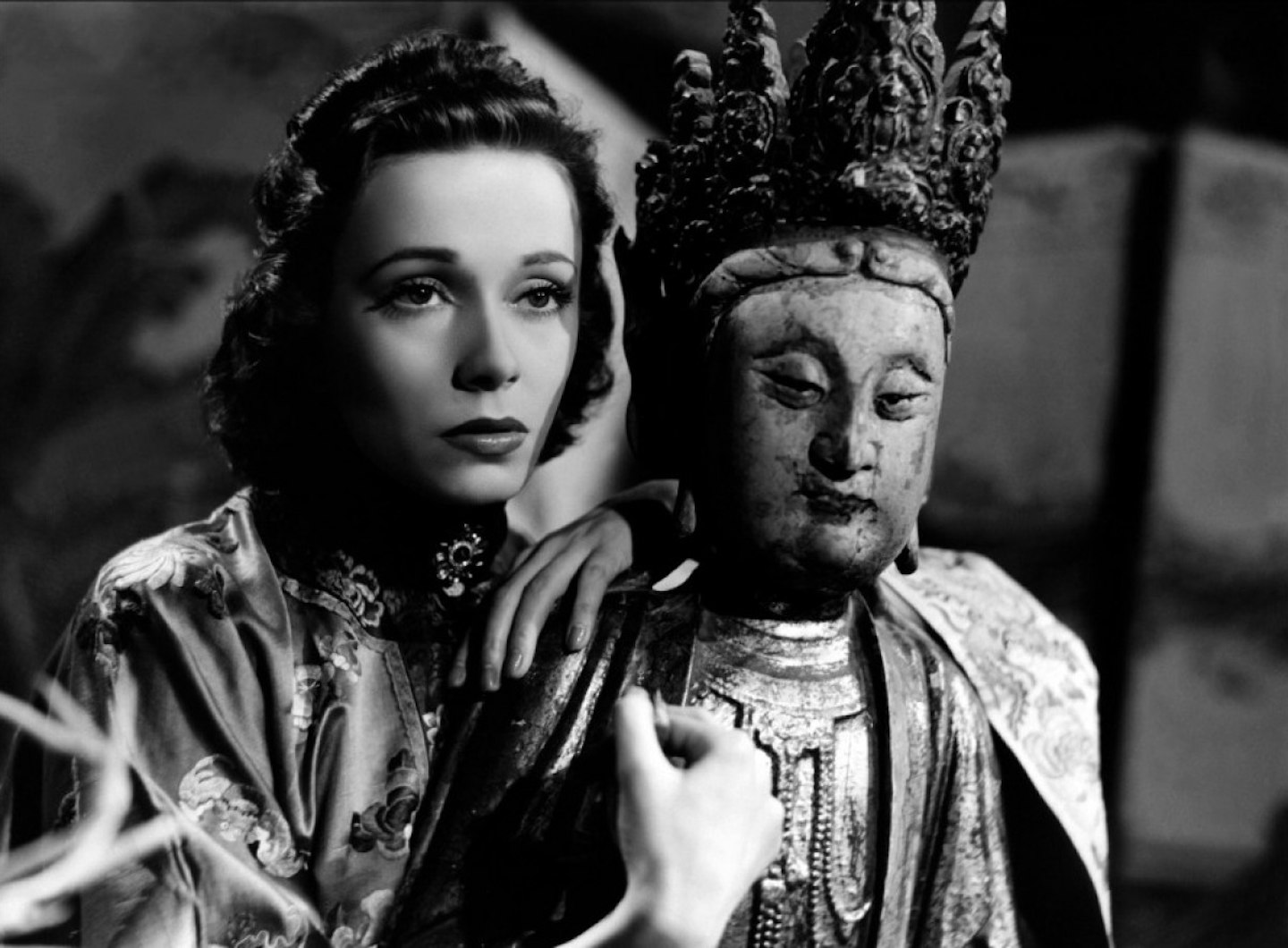
Year: 1939
Country: France
Director: Jean Renoir
Jean Renoir directed and starred in his velvet-rich comedy of manners, making him one of French cinema's first player/managers. His character, Octave, is the jester around whom his fellow aristocrats reveal their true, venal natures - culminating in the massacre of several hundred rabbits and a murder. His film, a stunningly shot, devastatingly indignant critique of the Third Republic, innocuously wrapped in a romantic farce, was banned in France and greeted with disdain (and not just by rabbits). Which goes to show that even the French can miss a classic.
Hollywood remake? Scenes From The Class Struggle In Beverly Hills (1989) cleverly shifts the setting to '80s LA. Gosford Park also reprises many of the elements of Renoir's country house setting. As Robert Altman once said: "I learned the rules of the game from 'The Rules of the Game'."
Prizes Rien.
What to say... "Renoir described making his controversial masterpiece as like 'dancing on a volcano'."
What not to say... "Which one's Regle?"
12. Metropolis
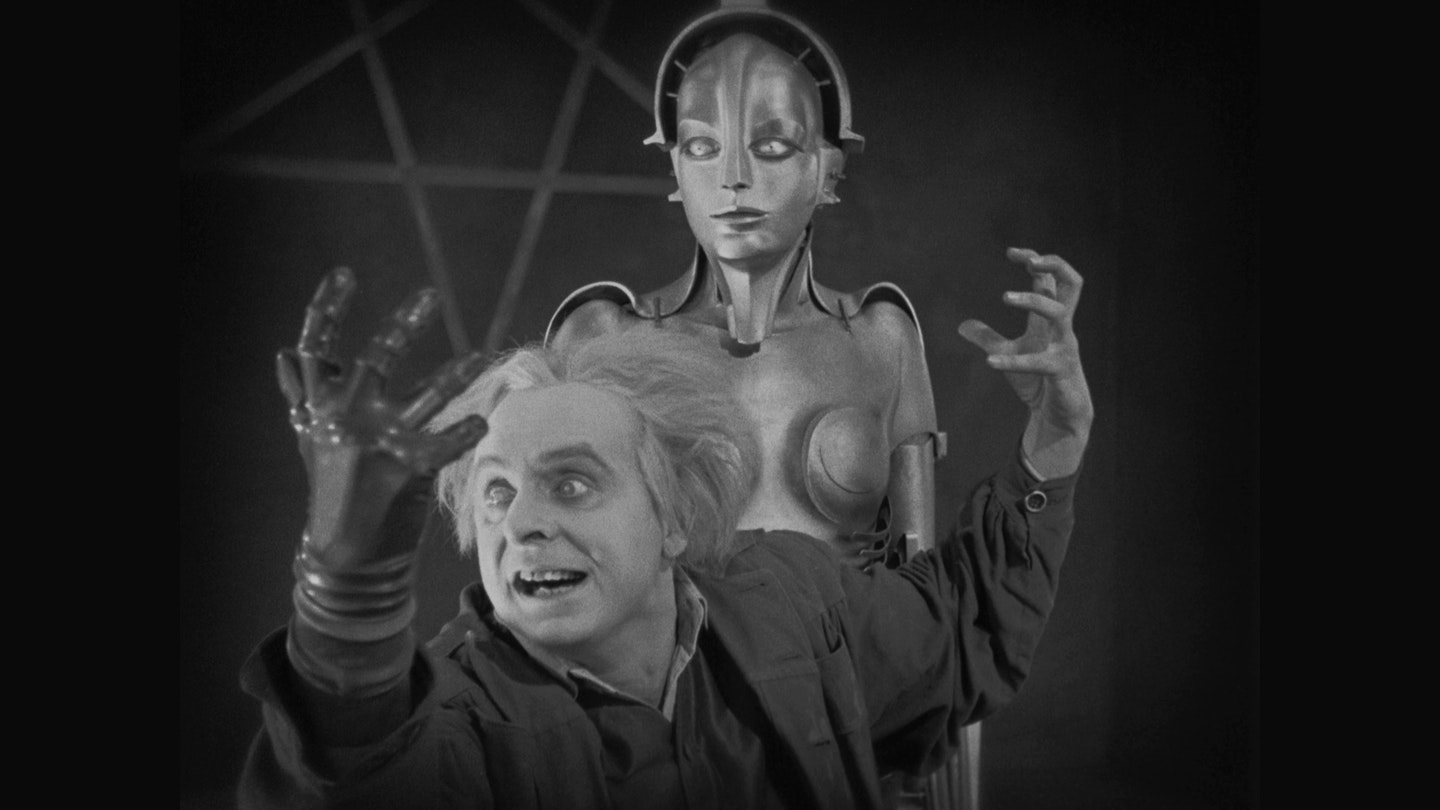
Year: 1927
Country: Germany
Director: Fritz Lang
For the silent era's most expensive film, costing over 5 million Reichmarks, you'd be right to expect megalomania on a grand scale. And sure enough, Metropolis has a bloated plot involving robots, social workers and the super-city of the future. But this is not just a grandiose 1920s exercise in budget pushing. It's a visual delight, an astounding legacy to Lang's talent and aspirations. Certain scenes, such as the clock, the riot and the slaves stepping up a gear, still leave audiences today feeling like this future is yet to come, 80 years after the film was originally made. It's a mad, mesmerising masterpiece, and the foundation stone for any would-be science fiction fan.
Hollywood remake? A feature-length anime was made in 2001, drawing on both the original and the 1949 anime written by Osamu Tezuka (who'd never actually seen the film). The result looked gorgeous, but meandered all over the place plot-wise.
Prizes Its 2002 restoration won a special, one-off award from New York Film Critics Circle Awards, but other than that, almost nothing.
What to say... "In the 1940s, the political message of the film was interpreted by the Nazi party to be in support of their ideas, with Adolf Hitler even calling it his favourite film ever made."
What not to say... "Ah, Metropolis? I love a good Superman movie."
11. La Dolce Vita

Year: 1960
Country: Italy
Director: Federico Fellini
A near three hour odyssey through the decadence and hedonism of '60s Rome through the eyes of jaded journalist Marcello (Mastrioianni), La Dolce Vita is the fullest expression of Fellini's worldview, revelling in astonishing sights (Jesus suspended by a helicopter, Anita Ekberg in the Trevi fountain) and intoxicating sounds (Nino Rota's score). It's at once a savage critique of worthless hedonism yet a film so sensual and luxurious that it was condemned by the Catholic Church. The surname of a photographer in the movie also ushered the word "paparazzi" into the vernacular.
Hollywood remake? Not really. Woody Allen's Celebrity is a reworking of similar ideas. Lost In Translation, How To Lose Friends And Alienate People, Down With Love and LA Story all pay their respects. It also spawned a gay porno remake in 2006.
Prizes The top gong at the Cannes Film Festival, and an Oscar for Best Costume Design.
What to say... "There is no end. There is no beginning. There is only the passion of life." (Federico Fellini)
What not to say... "Come to Dolce Vita, Romford's hottest nightspot."
10. Spirited Away
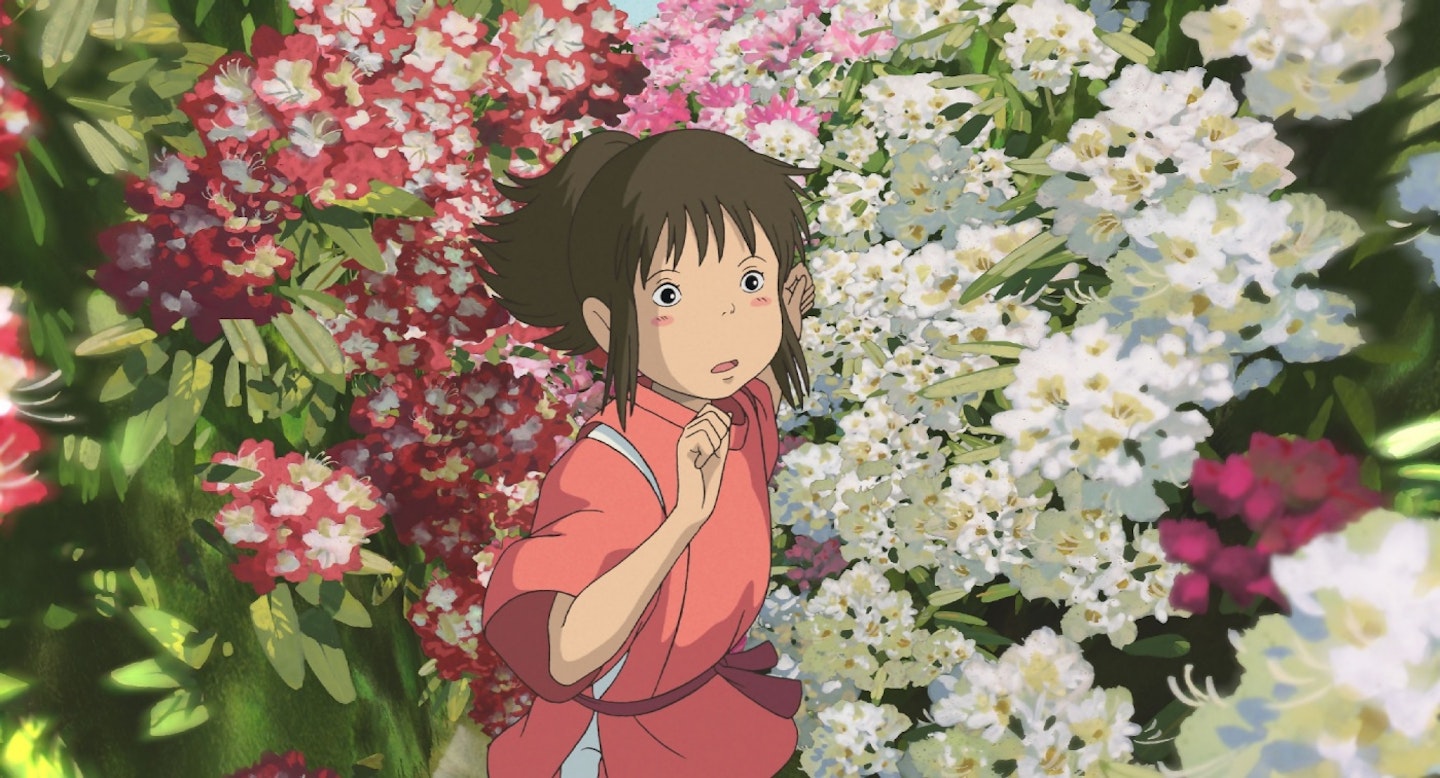
Year: 2001
Country: Japan
Director: Hayao Miyazaki
Miyazaki was a legend in animation circles long before this film was released, and Princess Monoke had already set box-office records that proved his popularity in Japan. But this tale of Chihiro's search for her missing parents in a folkloric bathhouse full of nature spirits and minor deities (really) is the one that cemented his reputation around the world, showcasing his unique mastery of magical storytelling, Japanese folktales and bizarre characters: giant baby transformed into a hamster, anyone? You may not understand what's going on, but its dreamlike logic will carry you along anyway.
Hollywood remake? No. And let's not encourage it: "What's with the paper planes attacking the dragon? Can we make those real planes and put the dragon on a tall building in downtown New York maybe?"
Prizes Best Animated Film at the Oscars, four Annies and a US National Board of Review award.
What to say... "Really, children are quite incapable of grasping the subtleties of the commentary on inter-generational conflict in Japan and the heroine's liminal journey."
What not to say... "Here, that witch has a big head, doesn't she?"
9. The Wages of Fear
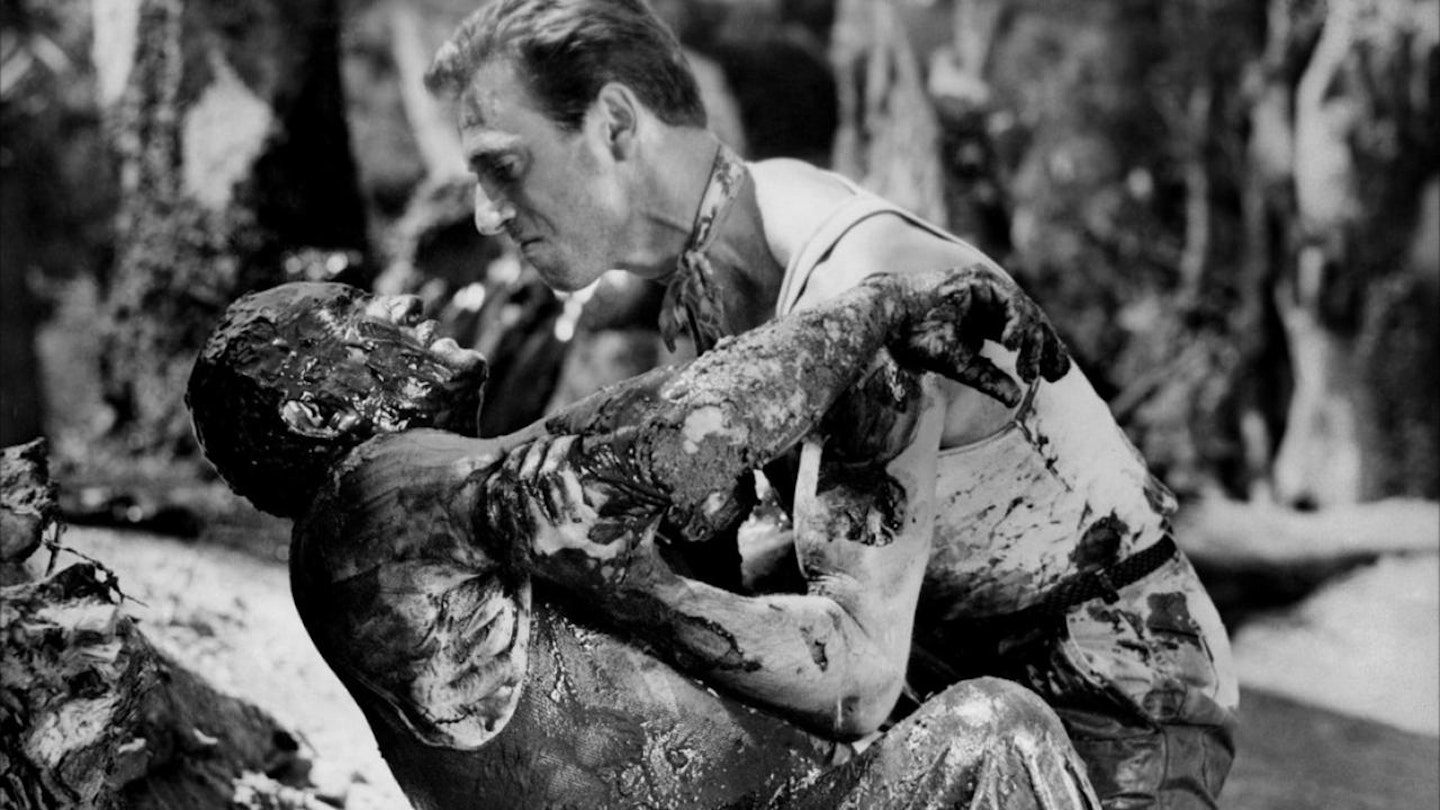
Year: 1953
Country: France
Director: Henri-Georges Clouzot
Two trucks. Four men. Enough nitrogylcerine to blow up South America. These are heady ingredients for any thriller, but the genius of Clouzot's downbeat stunner lies in its murky, masterful characterisation. He invests the first half in developing his quartet of desperate men, each willing to risk it all for a stack of oil company greenbacks, so that by the second, a nerve-ripping ride up mountain passes and through tortuous jungles, we're right there in the cab with them.
Hollywood remake? Not one but two: Howard Koch's Violent Road (1958) and William Friedkin's Scorcerer (1977). The latter was also originally called The Wages Of Fear but renamed after one of the trucks.
Prize Overlooked Stateside, it was garlanded in Europe. A BAFTA, Berlin Golden Bear and Cannes' Grand Prize all sat proudly on Clouzot's mantelpiece.
What to say... "It's the blueprint for the modern high-concept thriller."
What not to say... "Is that the one with the truck that couldn't slow down?"
8. The Seventh Seal
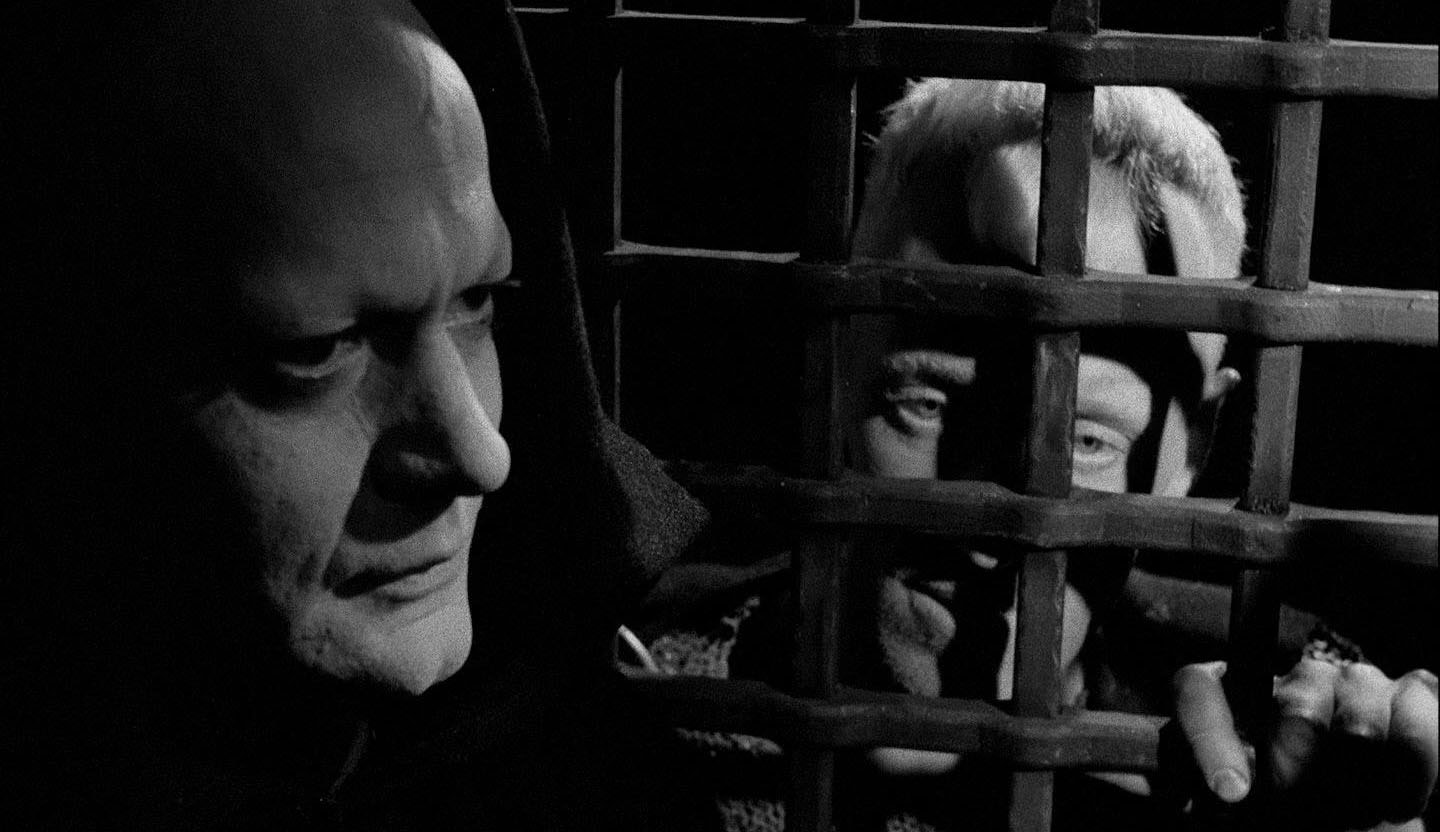
Year: 1957
Country: Sweden
Director: Ingmar Bergman
Shot in a mere 35 days, Bergman's 17th film as a director sees a Knight (Max Von Sydow, Bergman's alter-ego) return from the crusades, hook up with Death but refuse to accompany him until he can find a grain of hope in a world riddled by plague, flagellation and religious persecution. Seventh Seal explores the Big Themes usually found in literature - chiefly the essence of faith - and makes them cinematic through a succession of luminous, unforgettable images. In a career littered with masterpieces, this remains Bergo's best.
Hollywood remake? Unsurprisingly Platinum Dunes haven't got round to this yet. But the iconic Knight-Death chess game been spoofed in Bill And Ted's Bogus Journey (Death plays Twister!) and (500) Days Of Summer.
Prizes The Special Jury Prize in Cannes.
What to say... "Ooo, if he asks you to play chess, don't even do it. The guy's, like, a whiz." (Buffy The Vampire Slayer)
What not to say... "Didn't see Seals I to VI"
7. City of God
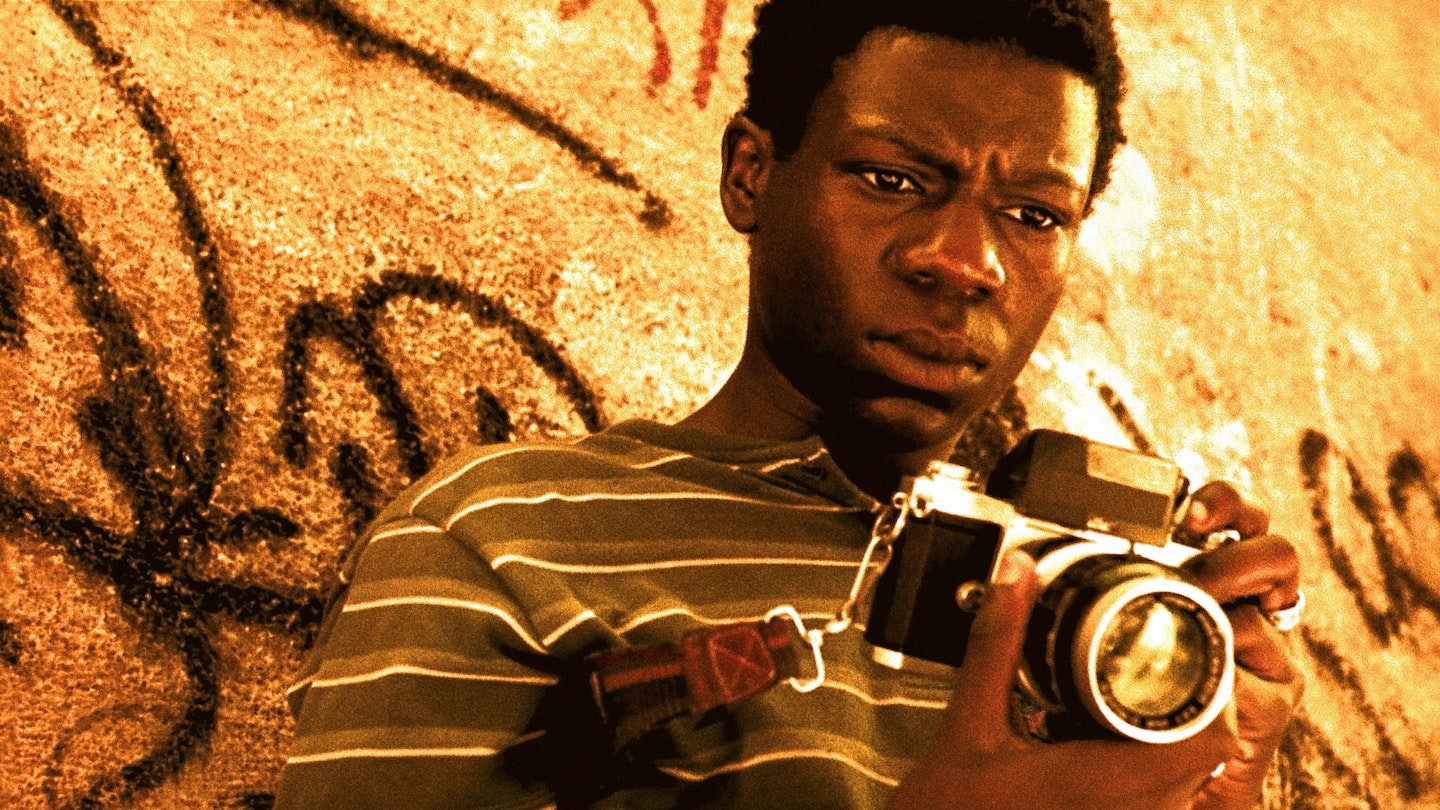
Year: 2002
Country: Brazil
Director: Fernando Meirelles, Katia Lund
The unflinching portrayal of the dark underbelly of life in Rio's favelas is what caught everyone's attention, but it's the amazingly naturalistic performances by the largely untrained young cast that set this apart and made it clear that it's not just another misery-fest. Sure, horrible things happen to good people (and bad) as the central characters grow from childhood to trouble adolescence and adulthood, but the epic scope and lengthy running time isn't wasted on simplistic pictures, and even the monsters emerge as living, breathing, suffering human beings. It's beautifully shot too: the colours are so bright that the blood almost becomes another accent.
Hollywood remake? Not on your nelly. Though Precious: Based on the novel Push by Sapphire comes closest in tone at times.
Prizes Nominated for four Oscars and won one BAFTA.
What to say... "There's the odd homage to the action cinema of the northern hemisphere, but this is more than just the Brazilian GoodFellas."
What not to say... "On the whole, I prefer the portrayal of the favelas in The Incredible Hulk (2008)."
6. Battle of Algiers
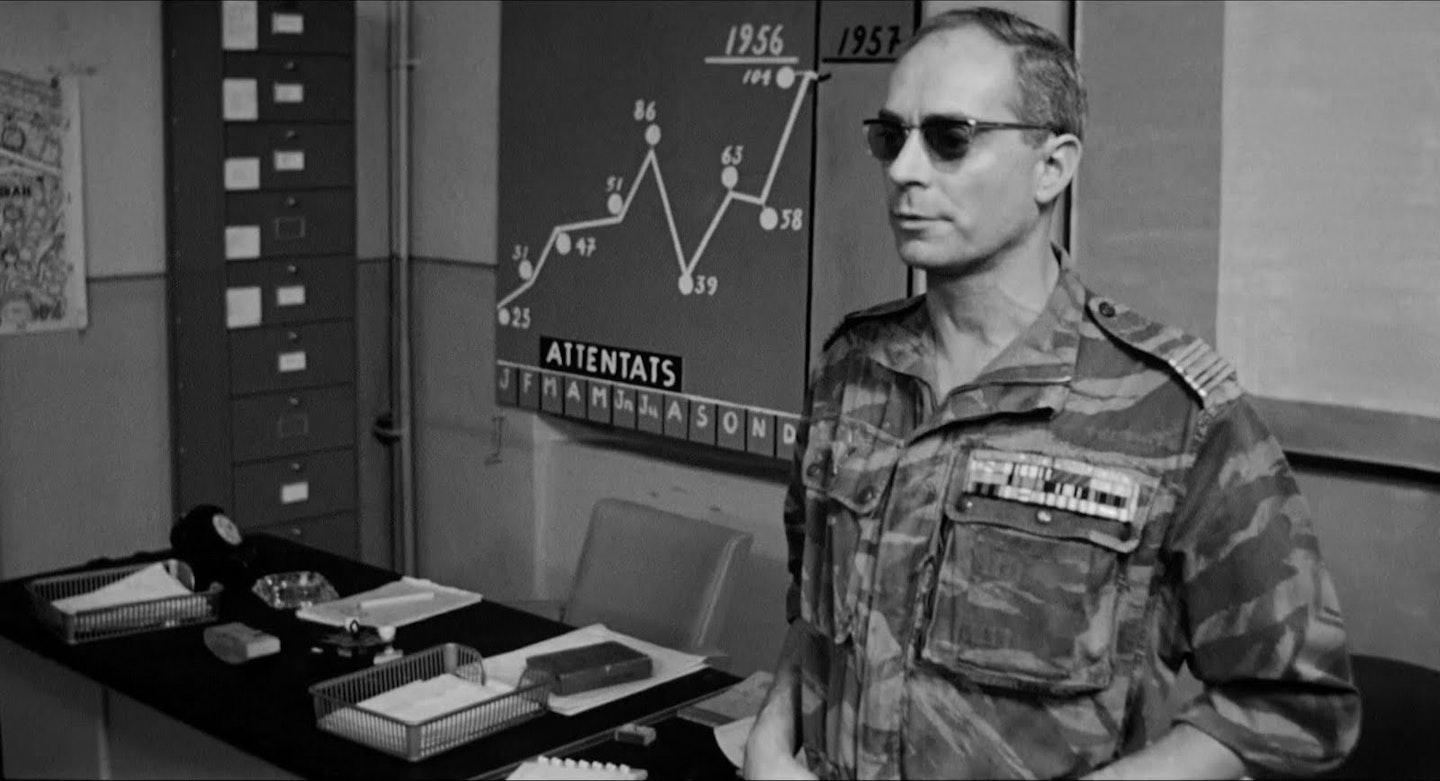
Year: 1966
Country: France
Director: Gillo Pontecorvo
Long before Quaritch there was Colonel Mathieu, a man so hard he could wear a jaunty beret in public without fear of mockery. Jean Martin's paratrooper is the sledgehammer used against Algerian independence fighters in Gillo Pontecorvo's foreshadowing of just about every insurgency, revolt and uprising since. It was famously shown to Pentagon staff in 2003. This movie doesn't just influence filmmaking, it influences entire foreign policies.
Hollywood remake? Not yet, although thrillers from Salvador to Green Zone bear its clear imprimatur.
Prizes Fittingly, Italian director Pontecorvo picked up the Gold Lion at Venice. He came away empty-handed at the Oscars though, despite Algiers' nominations in the Screenplay, Director and Best Foreign Language Film categories.
What to say... "The most potent left-wing critique since Potemkin and cinema's first block-by-blockbuster."
What not to say... "Okay, but who won?"
5. Pan's Labyrinth
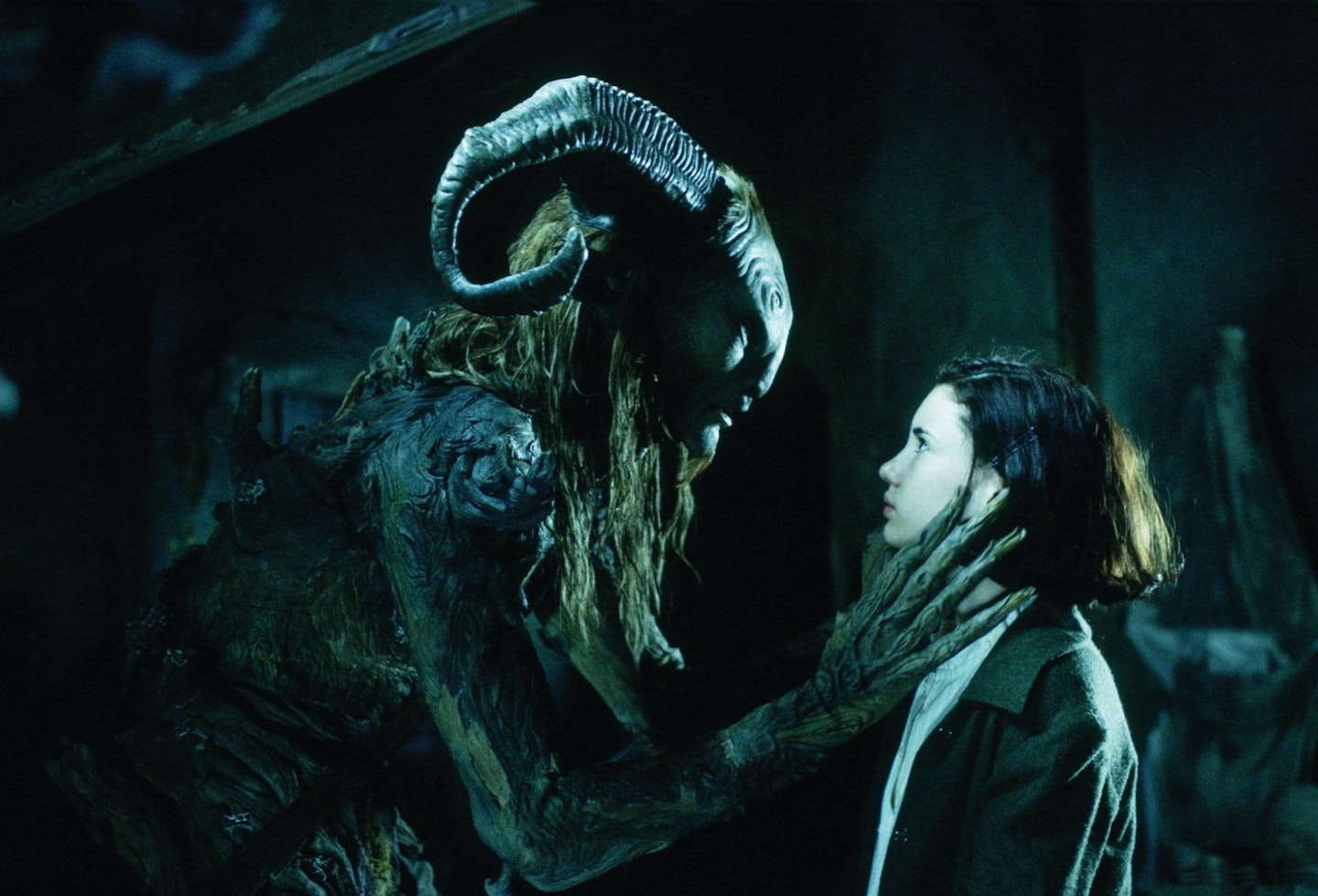
Year: 2006
Country: Mexico
Director: Guillermo del Toro
Read it as a fairytale, a cry against fascism, a horror or a fantasy or a tale of a strangely beautiful mental illness: whichever way you look at it, this twisted masterpiece still packs an emotional punch that would floor Chuck Norris. The story of young Ofelia's quest, against the poisonous backdrop of post-Civil War Spain, to survive three fantastical tasks and prove herself a Princess could have been trite, but in Del Toro's sure hands becomes magnificent. Creepy and beautiful in equal measure.
Hollywood remake? Not yet. If they did, however, they'd set it after Vietnam, the stepfather would be a disturbed vet and the ending would be quite, quite different.
Prizes Won three Oscars (it was nominated for three more) and seven Goyas, Spain's equivalent.
What to say... "Note how Del Toro's fondness for clockwork is echoed in the stepfather's devotion to his watch - and how clockwork is generally a sinister force in his films."
What not to say... "Wait, so was the faun real or not?"
4. Bicycle Thieves
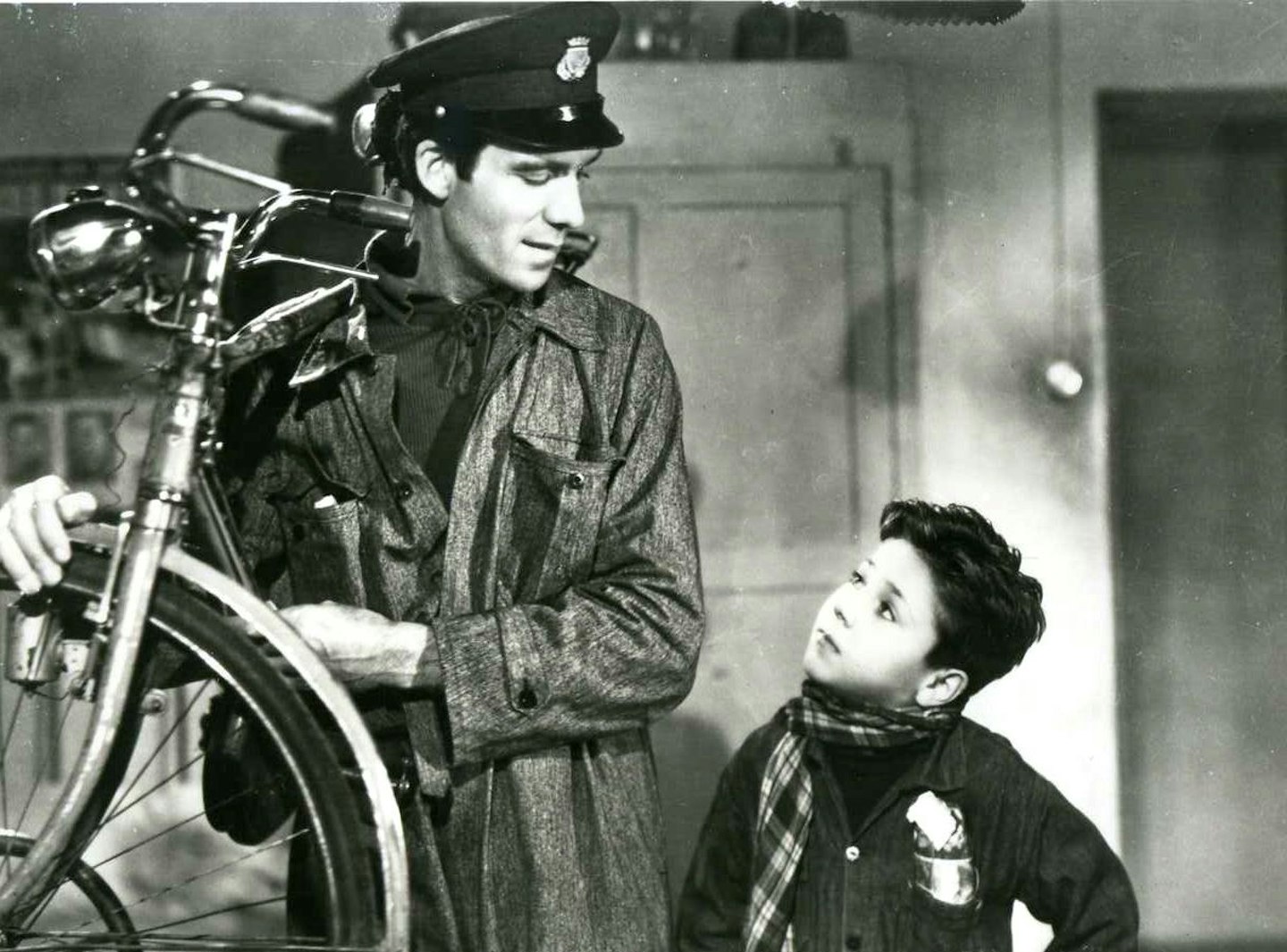
Year: 1948
Country: Italy
Director: Vittorio Da Sica
It's as simple but powerful as movies get. A man gets a job as a bill sticker on the proviso that he has a bike. On his first day of work, his bike is nicked and he spends the entire day combing the city with his young son (an astonishing Staiola) searching for it. It's lauded for its naturalistic performances from non actors, revolutionary use of real locations, and critique of post-war Italy, but this has a highly structured screenplay that builds and builds to deliver real emotional wallop.
Hollywood remake? Pee-Wee's Big Adventure plays the stolen bike motif for comic book laughs rather than socio-economic commentary.
Prizes It won an Honorary Oscar for Best Foreign Language Picture and a BAFTA for Best film.
What to say... "It's a landmark in Italian Neo Realist cinema!"
What not to say... "You should have bought a chain for that bike, mate"
3. Battleship Potemkin
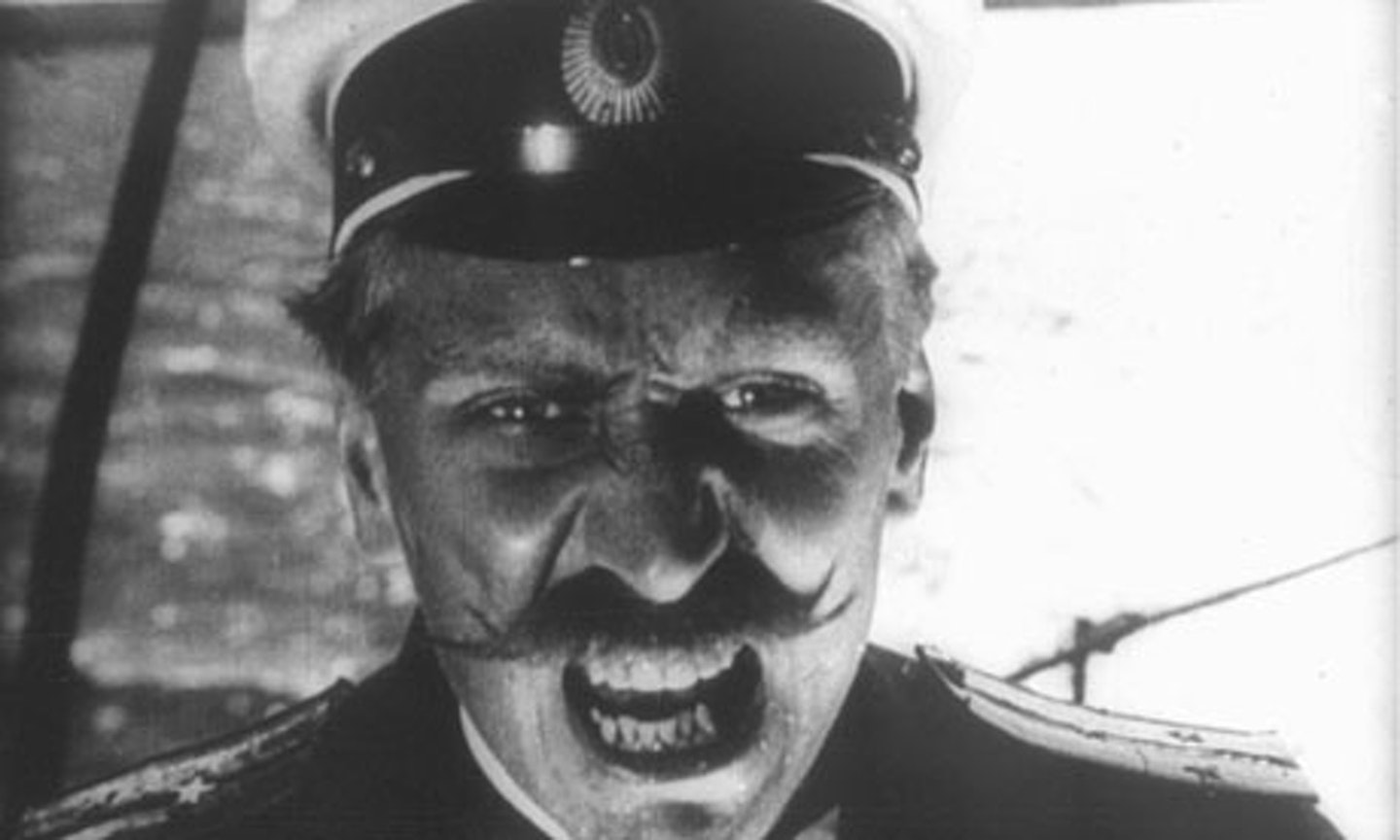
Year: 1925
Country: Russia
Director: Sergei Eisenstein
Comissioned to mark the 20th anniversary of the 1905 revolution, Sergei Eisenstein's silent dramatisation of the naval mutiny of the battleship Prince Potemkin put Russian cinema in general and Eisenstein in particular on the world movie map. Whole forests have been destroyed to accommodate the academic treatises that have been written about the editing techniques and stylised compositions on display, here but ignore all the intellectual apparatus and enjoy the bold, adventurous storytelling. It's most famous sequence - tsarist troops systematically slaughter civilians on the Odessa Steps -is so powerful it is often believed to be based on historical fact: it is actually a pure Eisenstein invention and debatably cinema's greatest set-piece.
Hollywood remake? No straight remakes but Bananas, Brazil and most famously The Untouchables are amongst the many that have played riffs on the famous pram rolling down the Odessa steps moment. Bonnie And Clyde and The Godfather have also seen characters shot in the eye, a replay of a famous Potemkin image. The Pet Shop Boys also wrote a new score for the film in 2004.
Prizes No - this pre-dated film awards.
What to say... "Did you know that Eisenstein strapped a camera to an acrobat who cavorted down the Odessa steps?"
What not to say... "You've sunk my battleship!"
2. Amelie
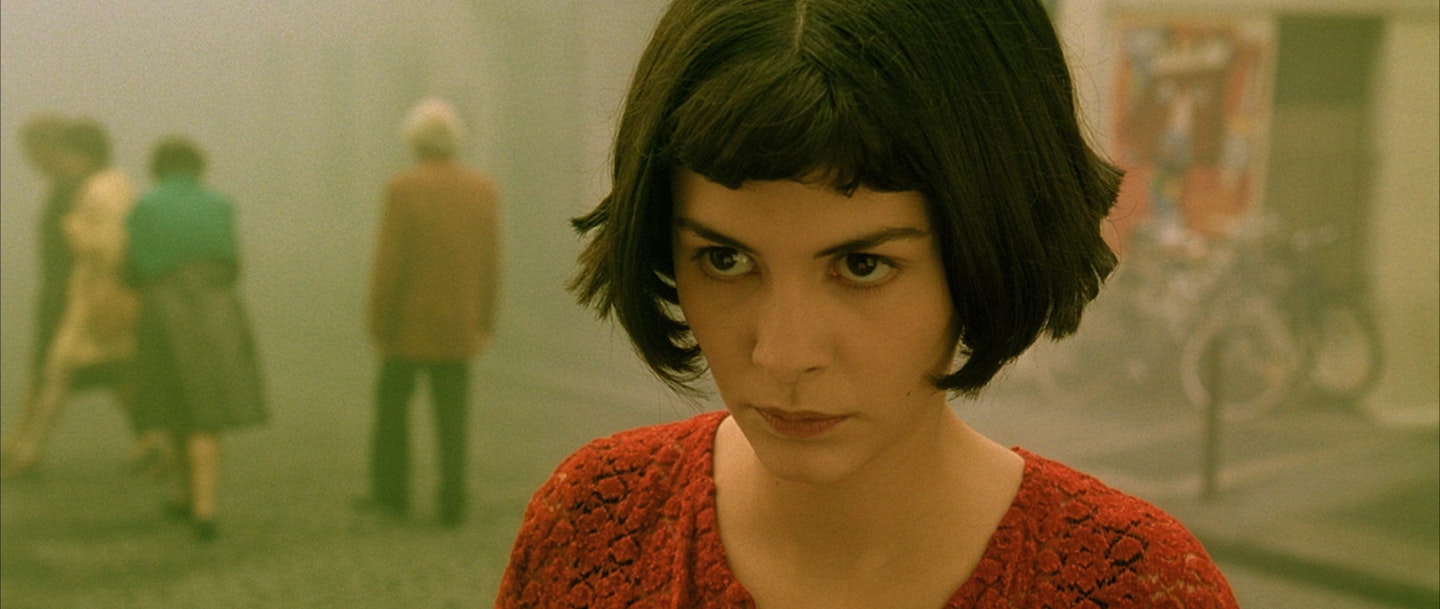
Year: 2000
Country: France
Director: Jean-Pierre Jeunet
Amelie is a strange beast, a whimsical fairytale that has more darkness under its skin than most usually want to admit. After all, Amelie engages in malicious practical jokes and stalking behaviour in her attempt to help the other lonely souls of Paris - and herself - so isn't all sweetness and light and big impish eyes (although, y'know, mostly). Between Bruno Delbonnel's acid coloured cinematography, Tautou's wondrous central performance and Jeunet's twisted magical realism, the end result is so utterly loveable that the whole world fell under Amelie's spell. Show us a hardbitten cynic and we'll show you someone who secretly watches this under cover of darkness and a case belonging to something by Kieslowski.
Hollywood remake? There was a rumour at one point that a remake starring Julia Roberts was in the works, but that never got beyond the rumour stage. Proof that the universe is essentially benign? Probably.
Prizes Winner of two BAFTAs and four Cesars, and nominated for five Oscars.
What to say... "Of course, it's the menace behind the big eyes that makes it so compelling."
What not to say... "Really? Only 15 people having an orgasm at any given moment in Paris? City of love my ass."
1. Seven Samurai
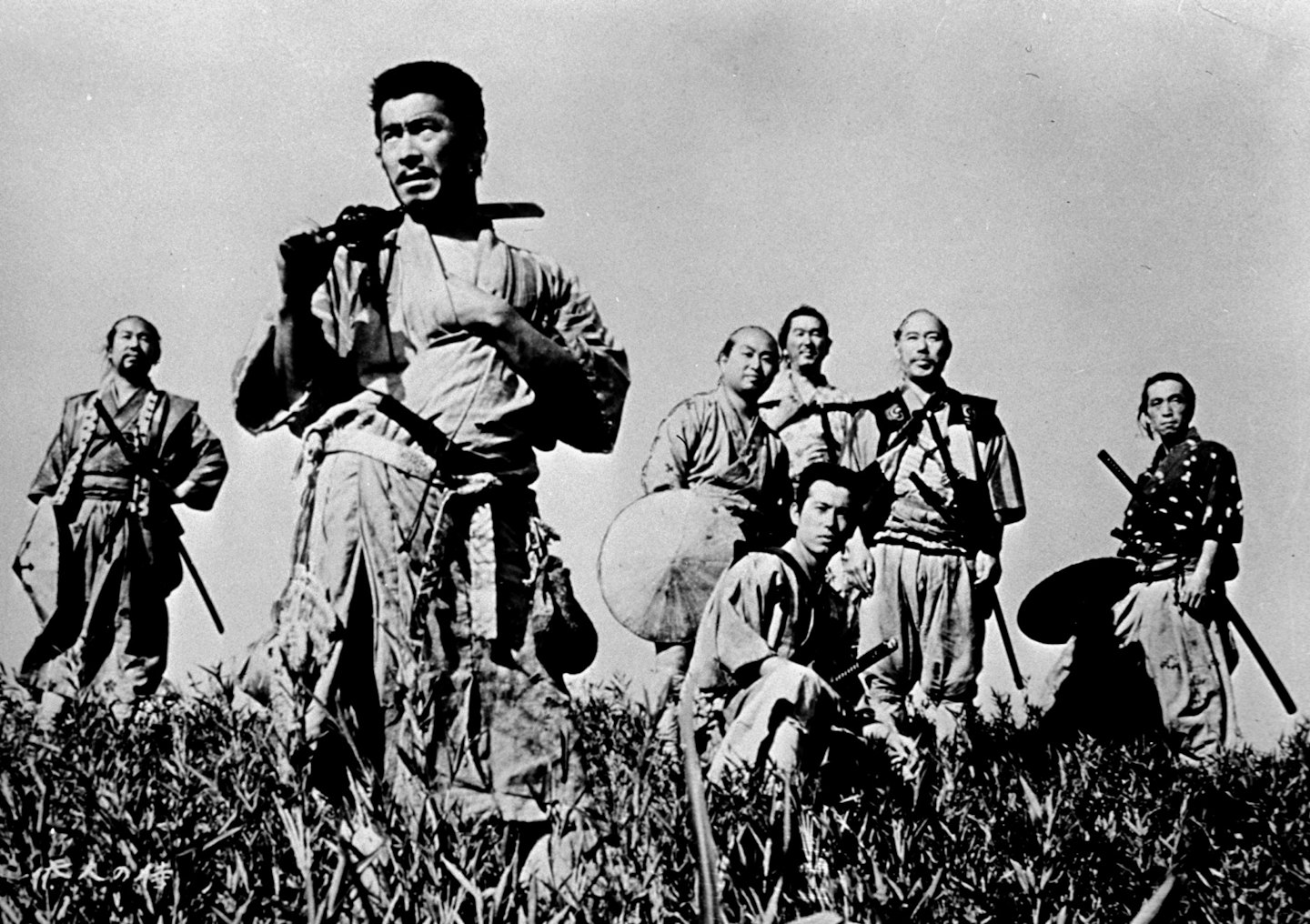
Year: 1954
Country: Japan
Director: Akira Kurosawa
The perfect fusion of action and character, East and West, blockbuster and arthouse, Kurosawa's first entry into the samurai genre is one of the great masterpieces in any language. Kurosawa creates distinct memorable characters out of seven, luckless samurai hired to defend a poor farming village from marauding bandits, showcasing his heroes as rounded but dignified outcasts - Shimura's noble leader and Mifune's crazed hothead are the standouts. All human life is here as are debatably cinema's greatest battle scenes, the climactic showdown in the rain the stuff of cinematic legend.
Hollywood remake? Famously remade as The Magnificent Seven which was remade as Battle Beyond The Stars. It is also a key inspiration for A Bug's Life as well as any men-on-a-mission movie since. A contemporary remake has been in development for ages.
Prizes It won the Silver Lion at Venice and was nominated for two Oscars (Art Direction, Costume Design) and three Baftas (Best Film, Best Foreign Actor for Shimura and Mifune).
What to say... "When Yoda scratches the back of his head in Attack Of The Clones, that's a tic taken from Takashi Shimura's wise leader."
What not to say... "It's my bestest chopsocky flick"
[Buy ](https://www.amazon.co.uk/dp/B00LJ07FBC/ref=as_li_ss_tl?ie=UTF8&linkCode=ll1&tag=qemparticle32-21&linkId=fc38abd4f7ba43ffd7cd98a0175d32f2&language=en_GBge=en_GB )[Seven Samurai](https://www.amazon.co.uk/dp/B00LJ07FBC/ref=as_li_ss_tl?ie=UTF8&linkCode=ll1&tag=qemparticle32-21&linkId=fc38abd4f7ba43ffd7cd98a0175d32f2&language=en_GBge=en_GB )[ now on Amazon](https://www.amazon.co.uk/dp/B00LJ07FBC/ref=as_li_ss_tl?ie=UTF8&linkCode=ll1&tag=qemparticle32-21&linkId=fc38abd4f7ba43ffd7cd98a0175d32f2&language=en_GBge=en_GB )
